What’s the Best Minivan for 2021?

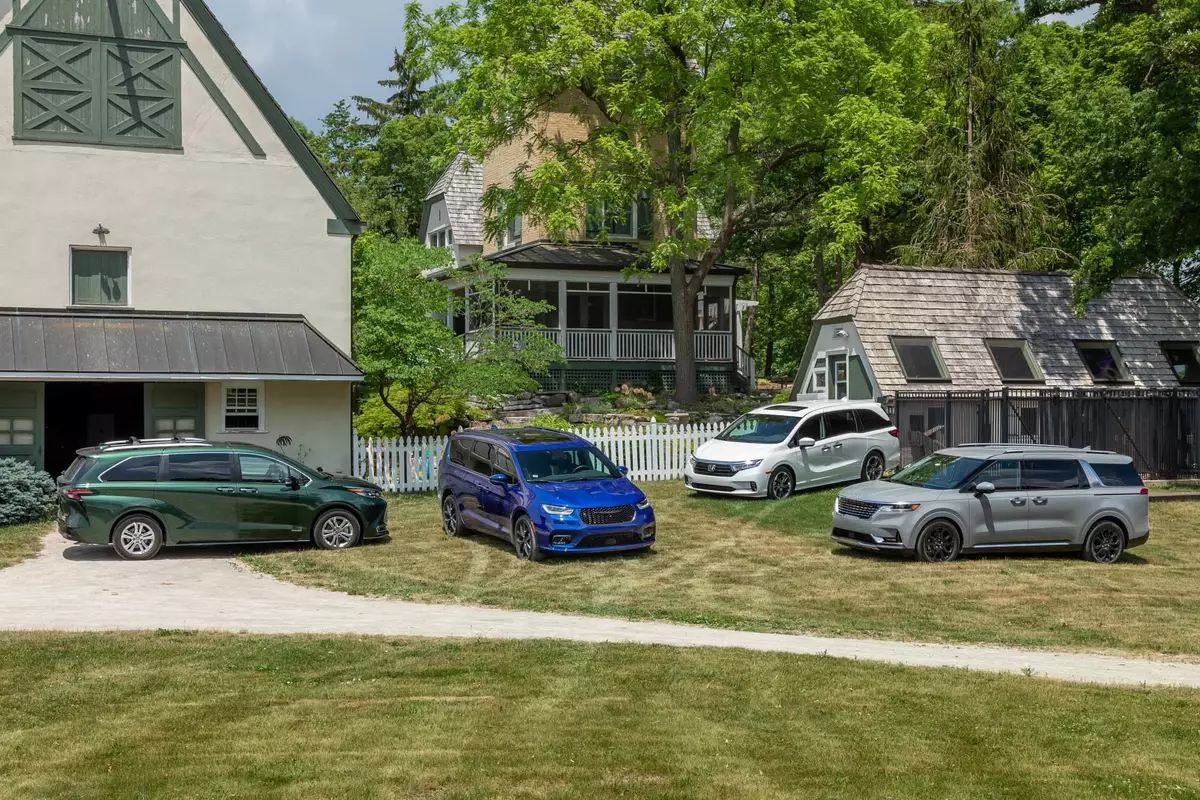
If you’re considering buying a minivan, first we have to commend you, because clearly you’re not an image weenie who fears how you might look in one of these maligned vehicles — or at least not so much of one that you’ll let it keep you from all they have to offer. What they offer, among other things, is extraordinary space efficiency, with cavernous confines for the amount of space they take up on the outside — superior to SUVs, be they hulking truck-based or more modest crossover styles. Minivans aren’t just for families, but they’re better than ever at catering to them, and we find the models that try too hard to be something else typically lose the advantages of the species.
It’s been many years since our past minivan roundup, which ended with the Kia Sedona on top. Much has happened since then, including Chrysler replacing the Town & Country with the Pacifica and, just this season, Kia replacing the Sedona with the 2022 Carnival. It was time for another look. The exact model years, trim levels and drivelines we tested and their final ranking were:
1. 2022 Kia Carnival SX, 3.3-liter FWD
2. 2021 Chrysler Pacifica Limited, 3.6-liter AWD
3. 2021 Honda Odyssey Elite, 3.5-liter FWD
4. 2021 Toyota Sienna Platinum, 2.5-liter AWD
As always, our results apply specifically to the vehicles we tested as equipped and priced — not the entire model line. Careful shoppers will view our likes and dislikes below for each car and decide what matters most to them. The Good and Bad entries are arranged in descending order of their importance to the judges — Assistant Managing Editor Kelsey Mays and News Editor Jennifer Geiger — and their influence on the results.
Minivan Challenge
Results | Winner | How We Tested
All judging categories could earn a maximum of 20 points with the exception of value, which allows a maximum of 40 points. The following graphic shows all categories and the various wins and losses at a glance.

4. 2021 Toyota Sienna Platinum AWD, 229 points (out of a possible 420)
The verdict: The Sienna is one of two contestants that’s trying not to be a minivan, a mission that hurts certain aspects, but its ginormous second row makes it a strong choice to carry a couple of adults on a winding road trip, even if its mild commitment to family features suits it less for ferrying a horde of kids to soccer practice.

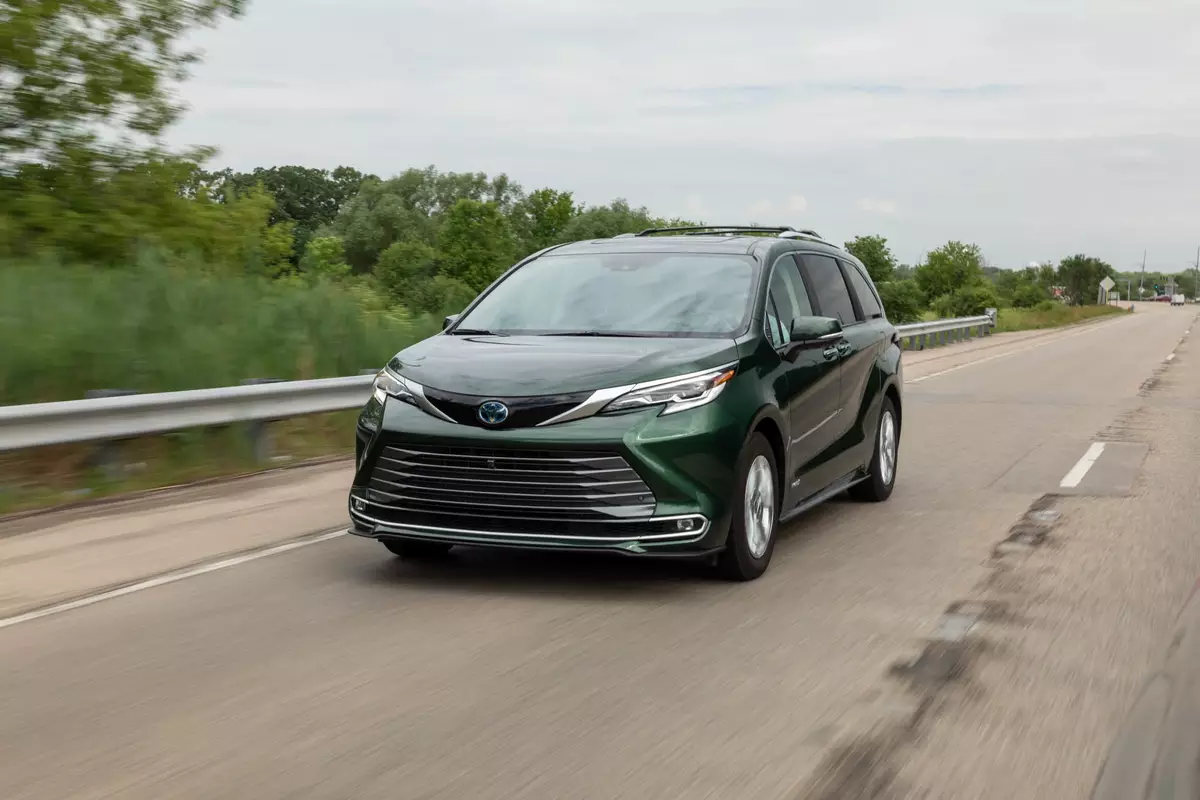

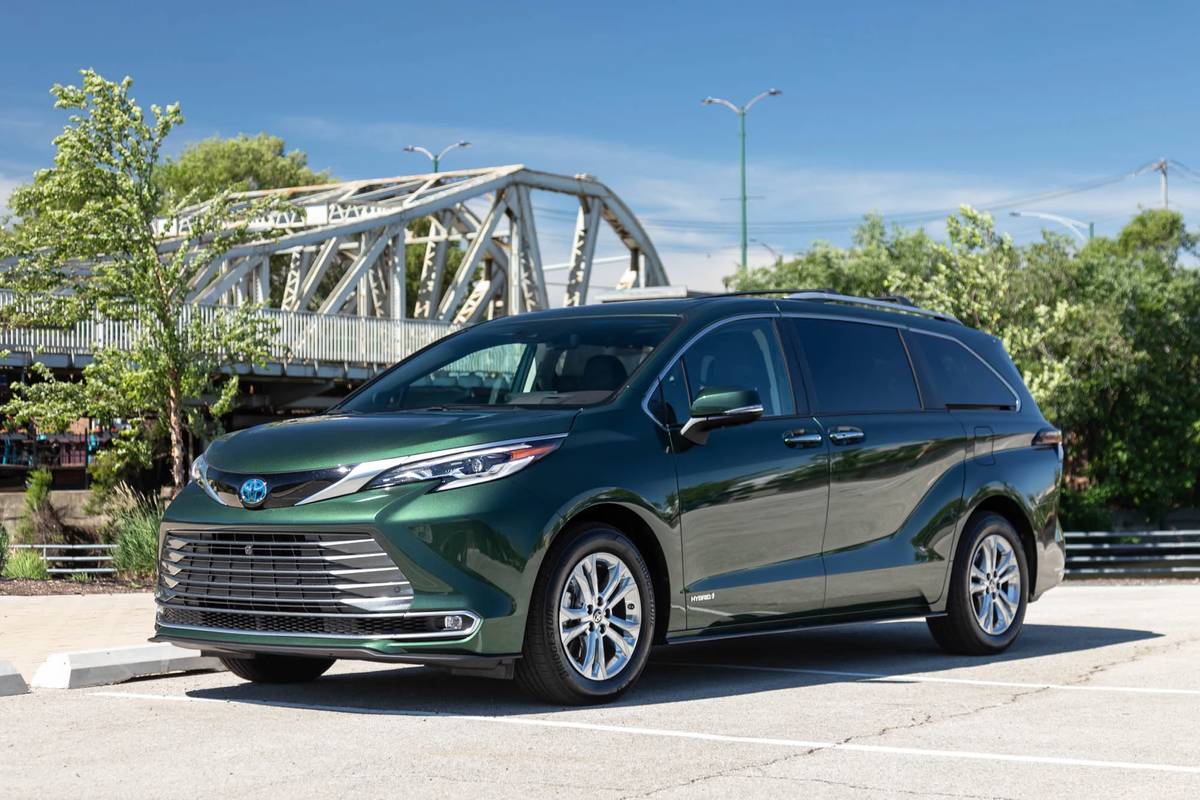
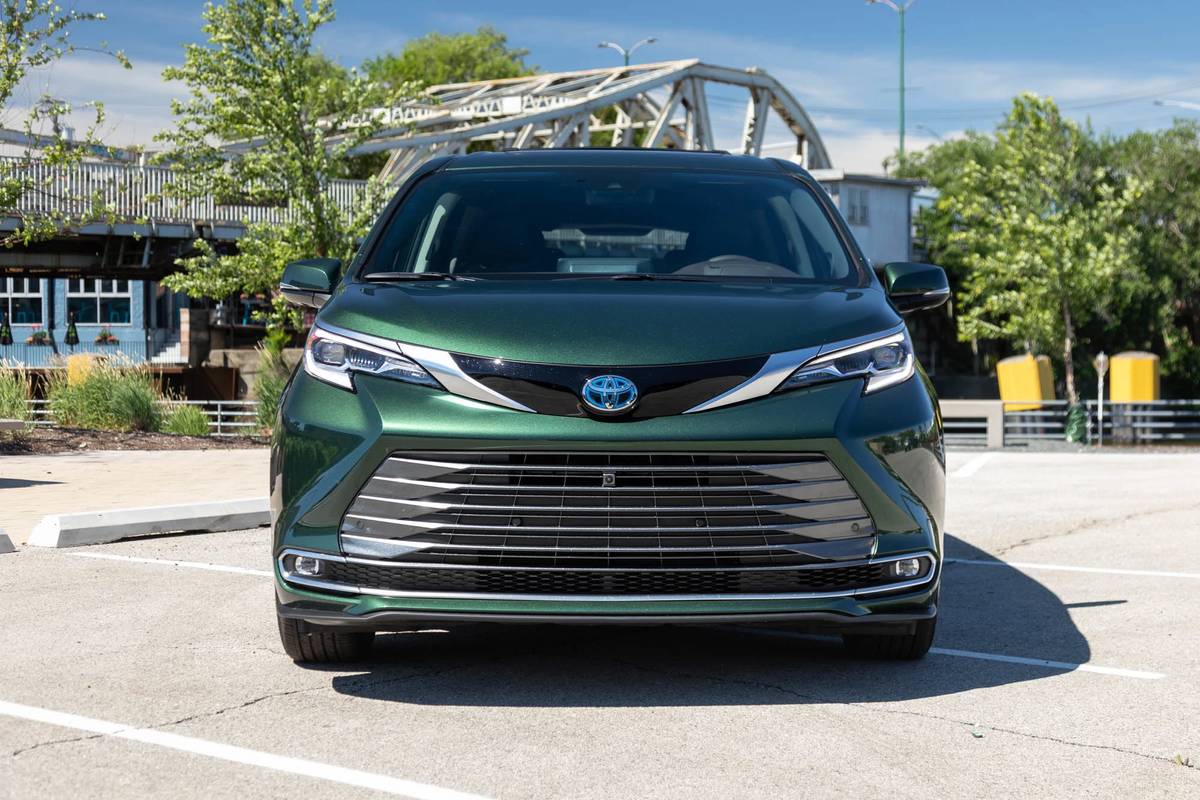


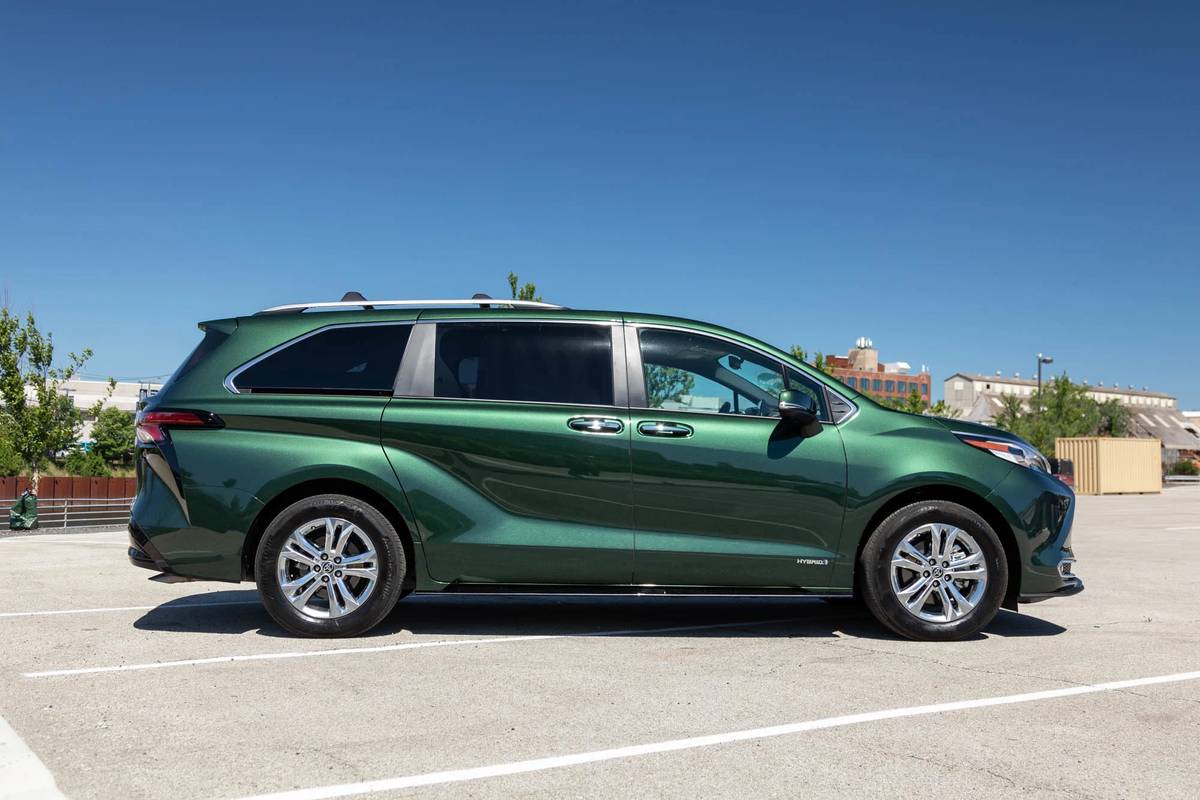
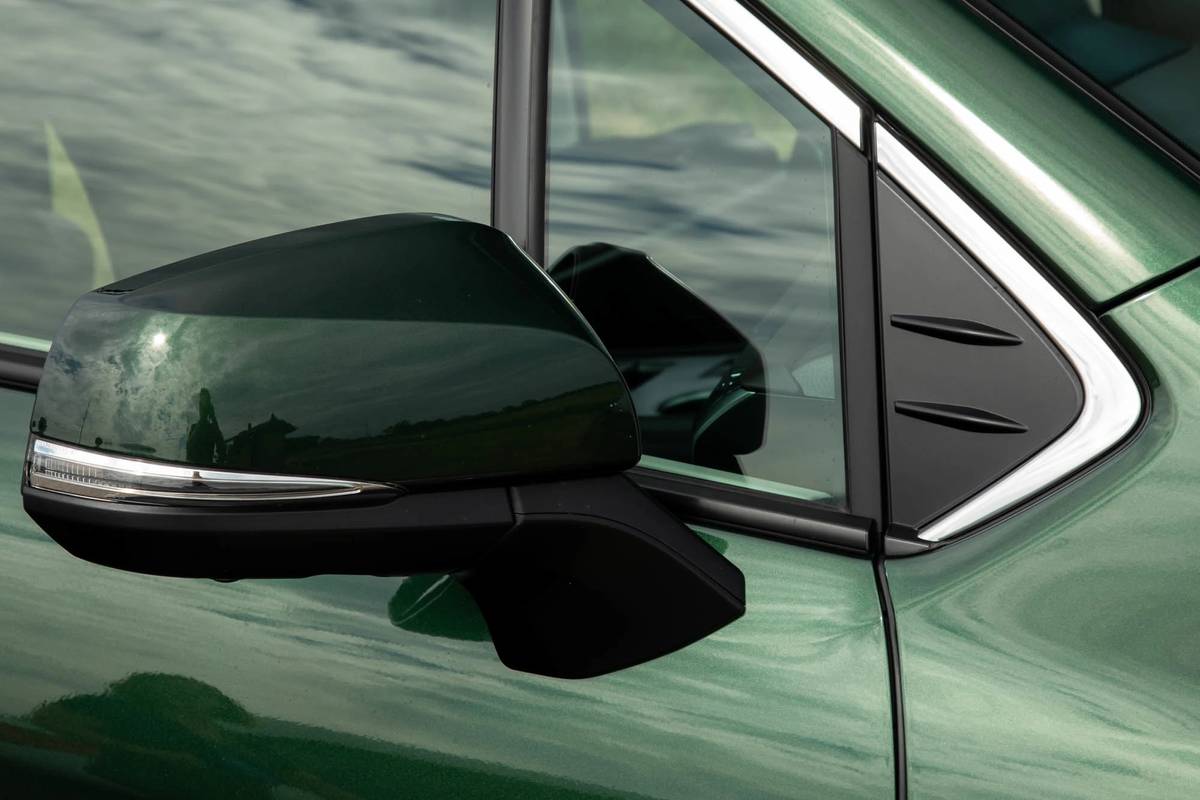
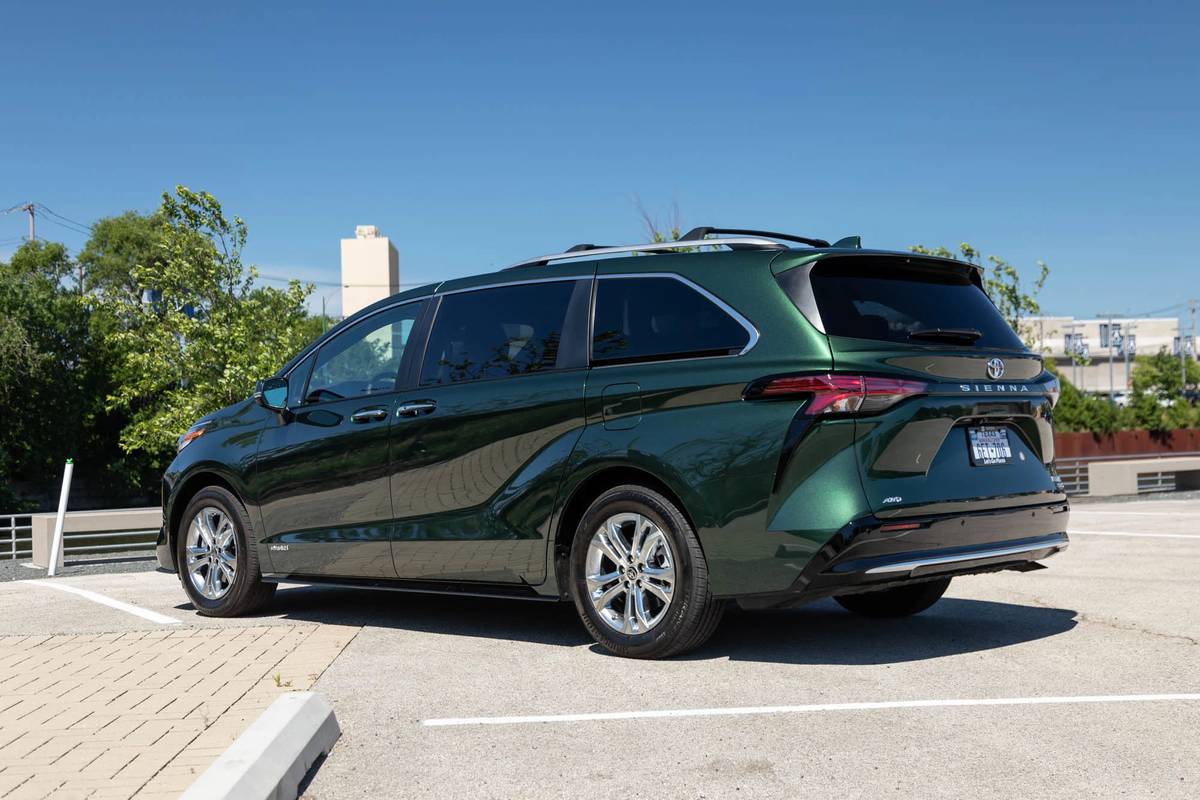
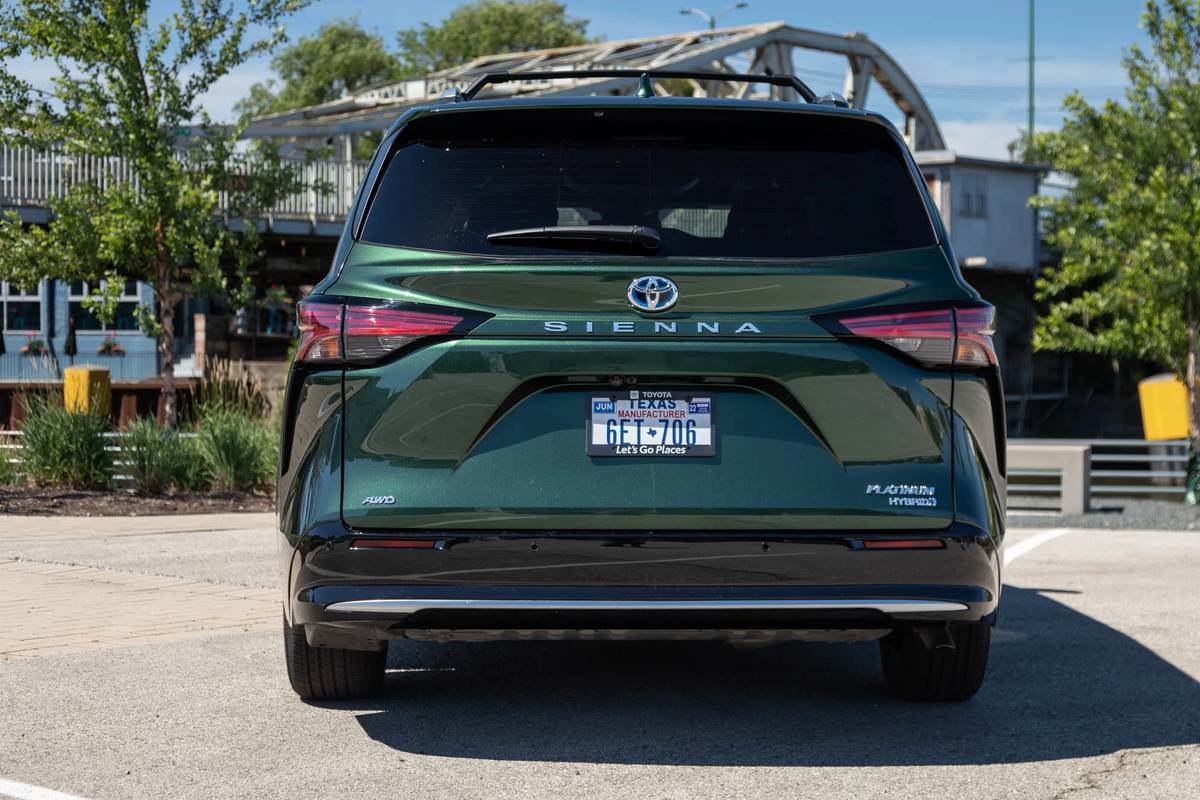
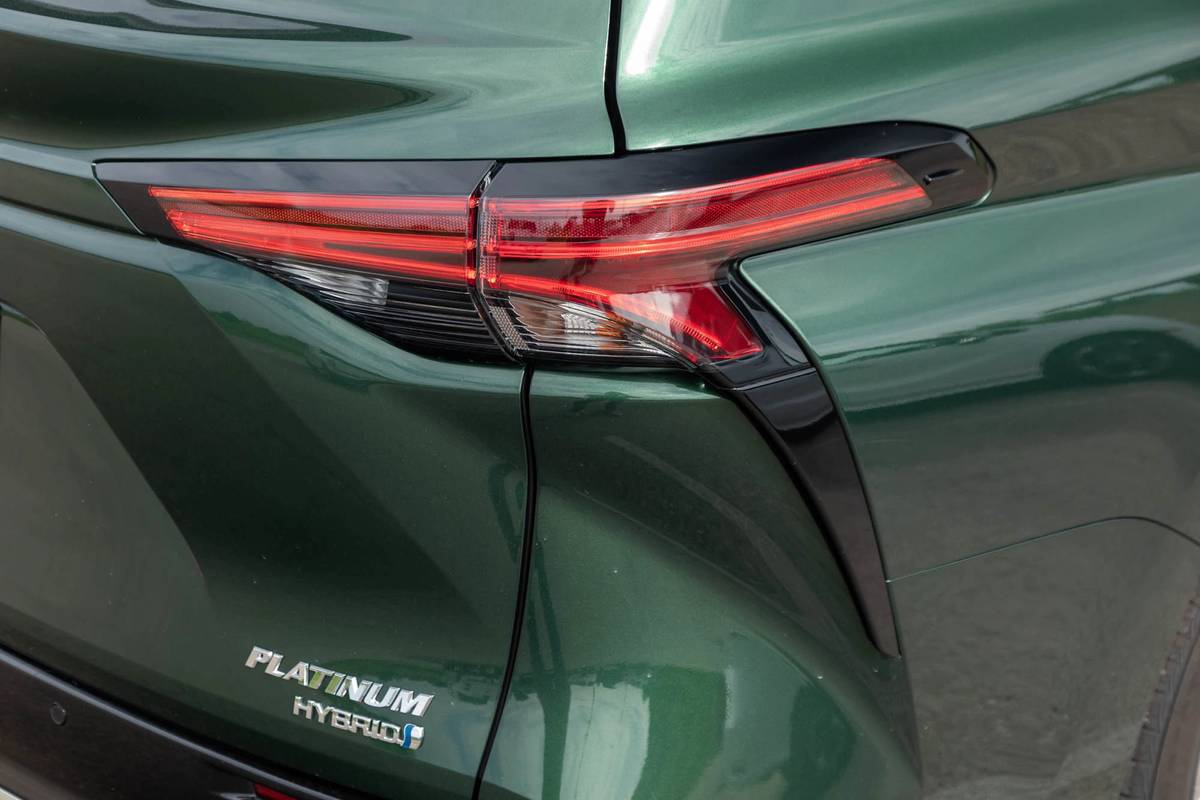

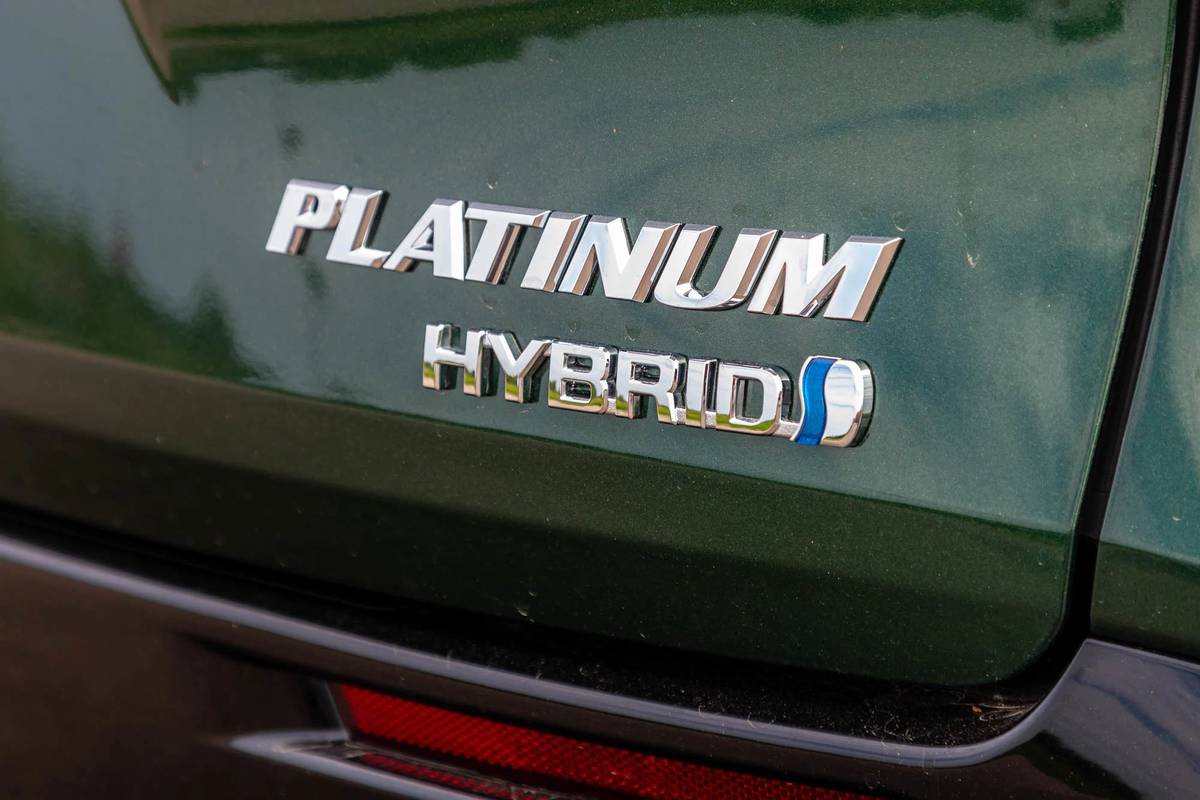

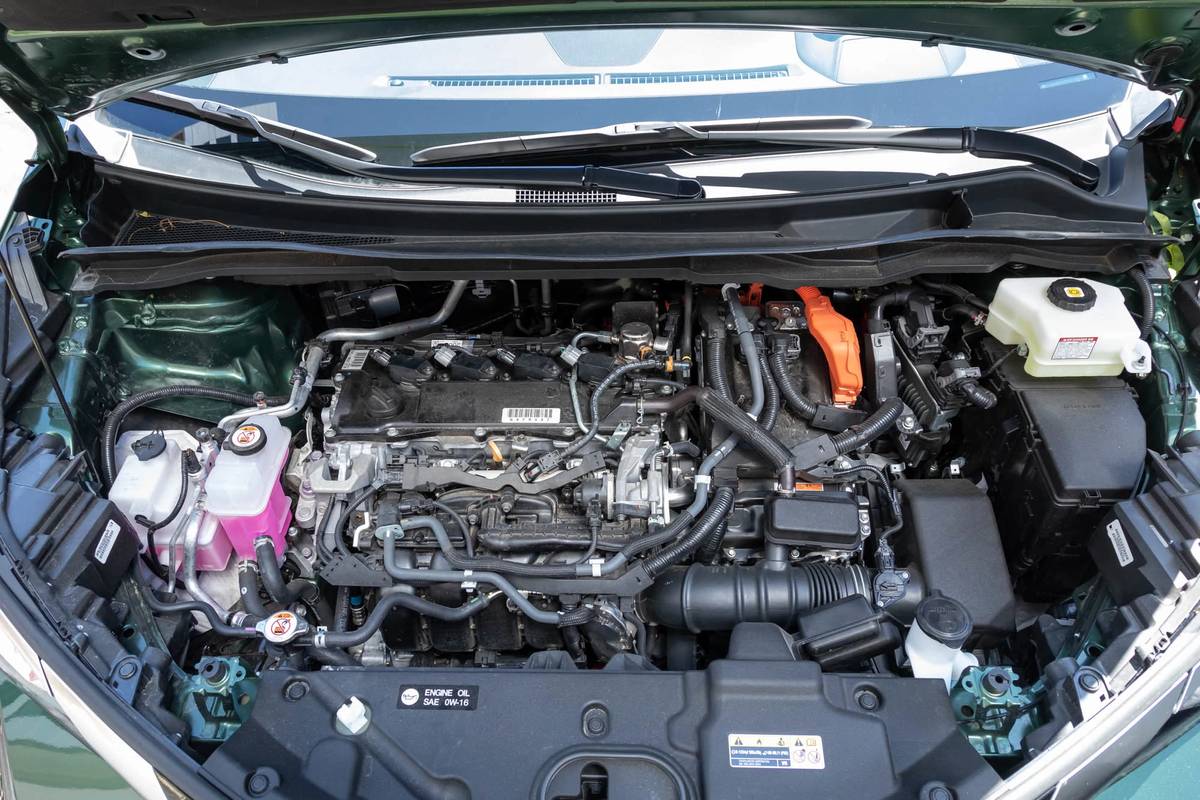
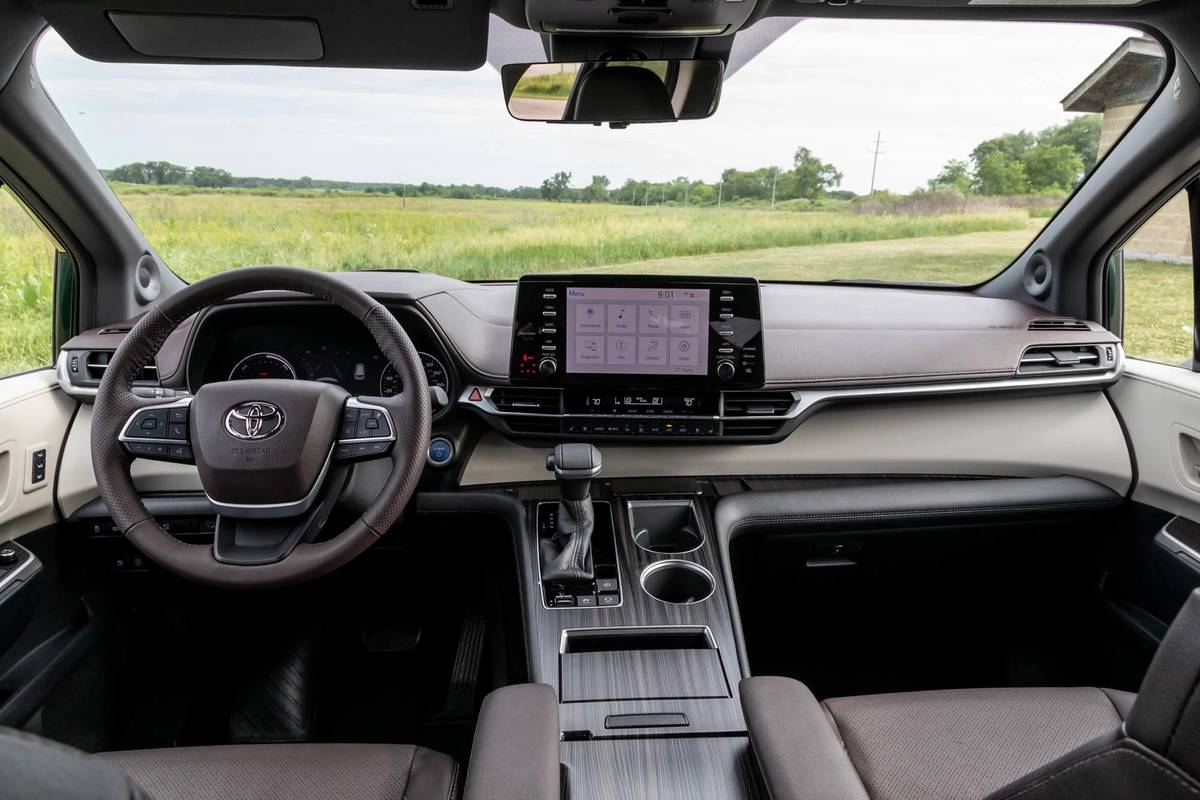
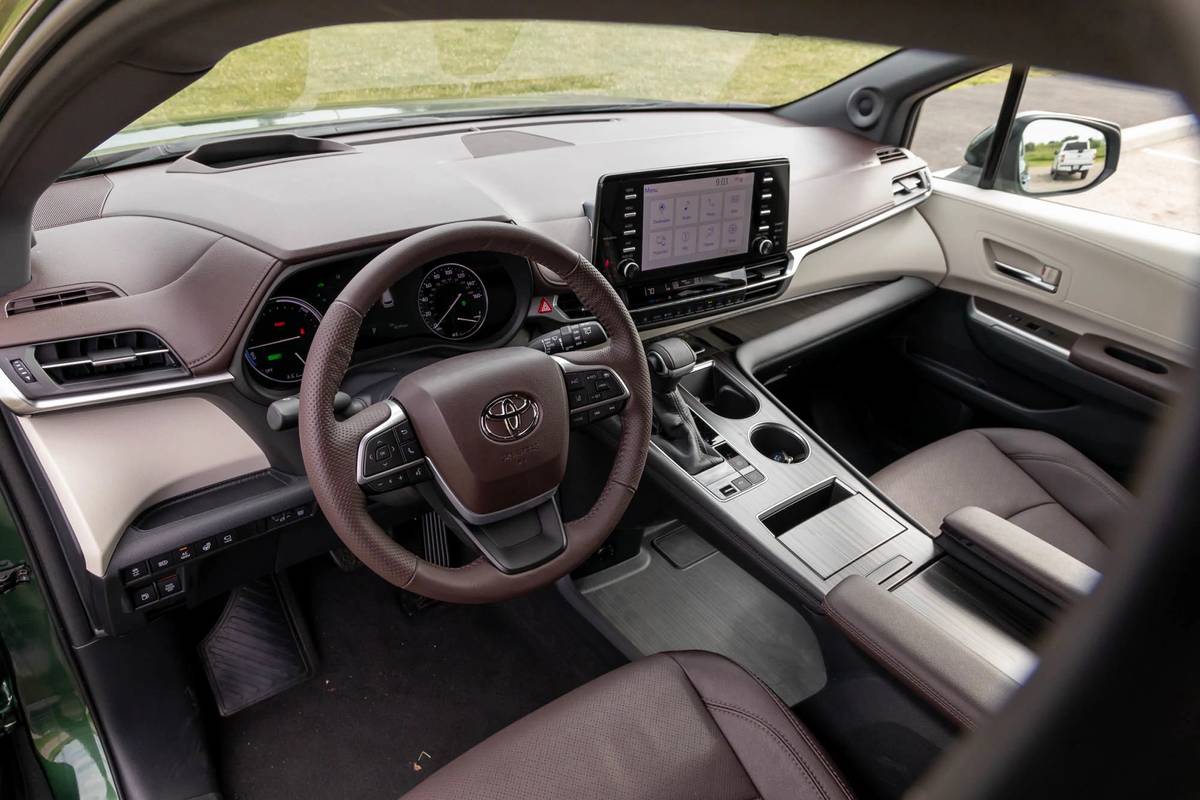
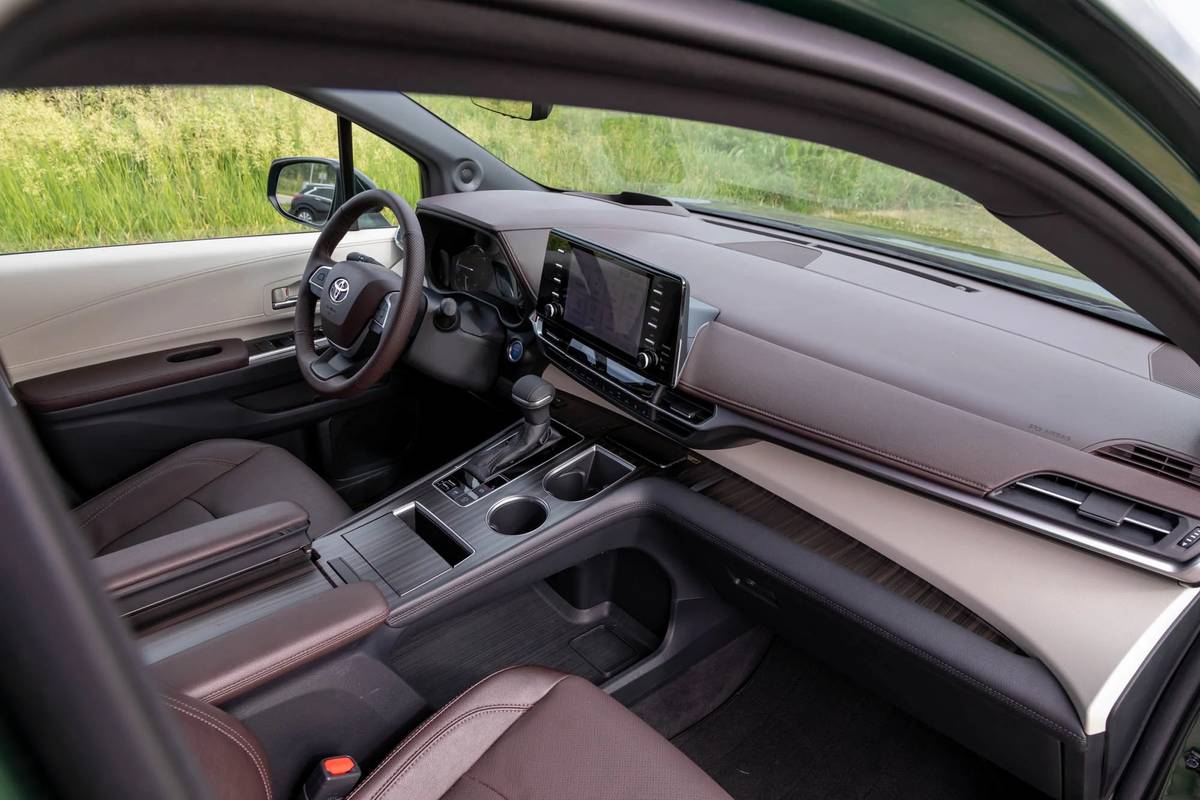
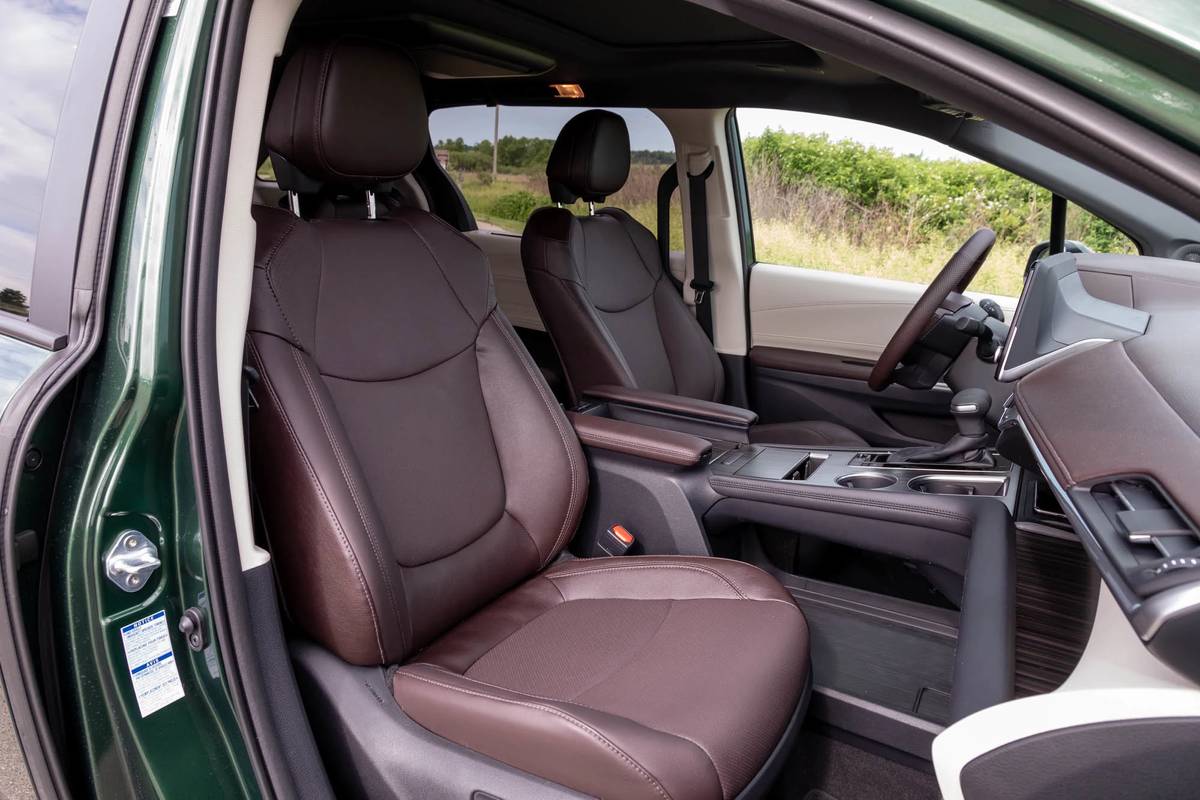
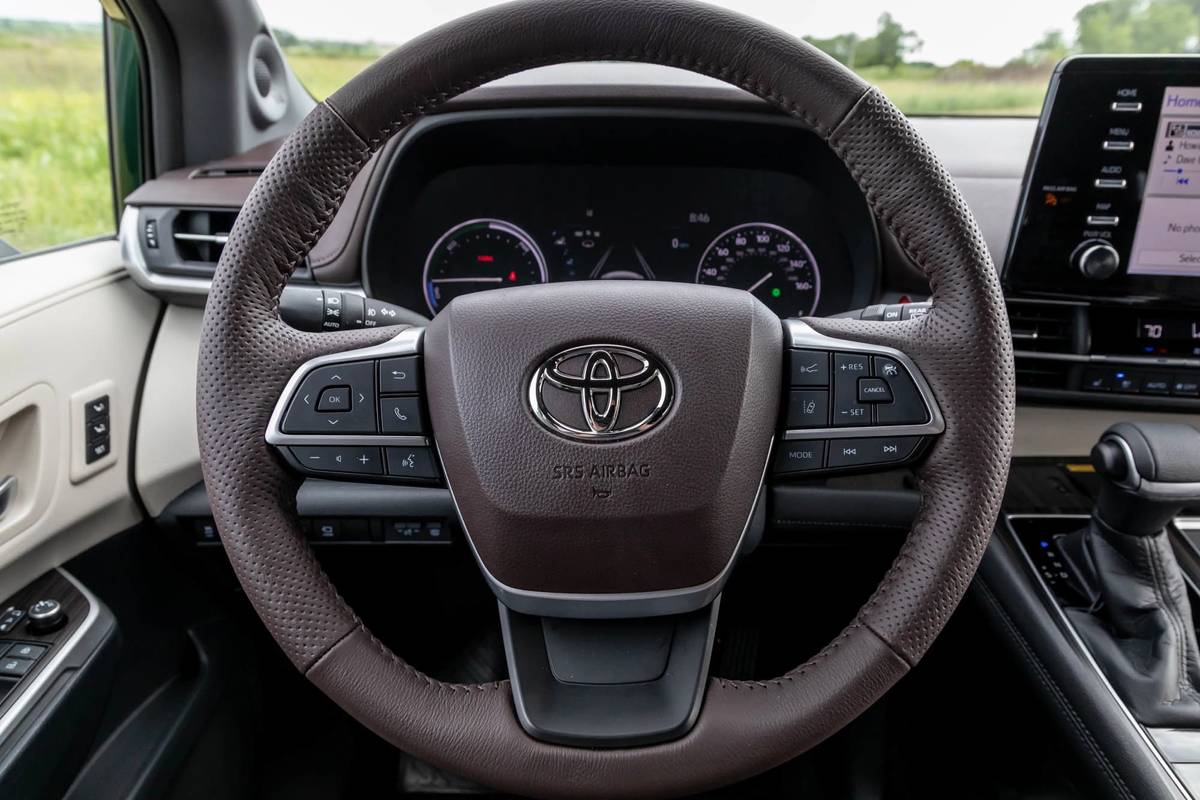
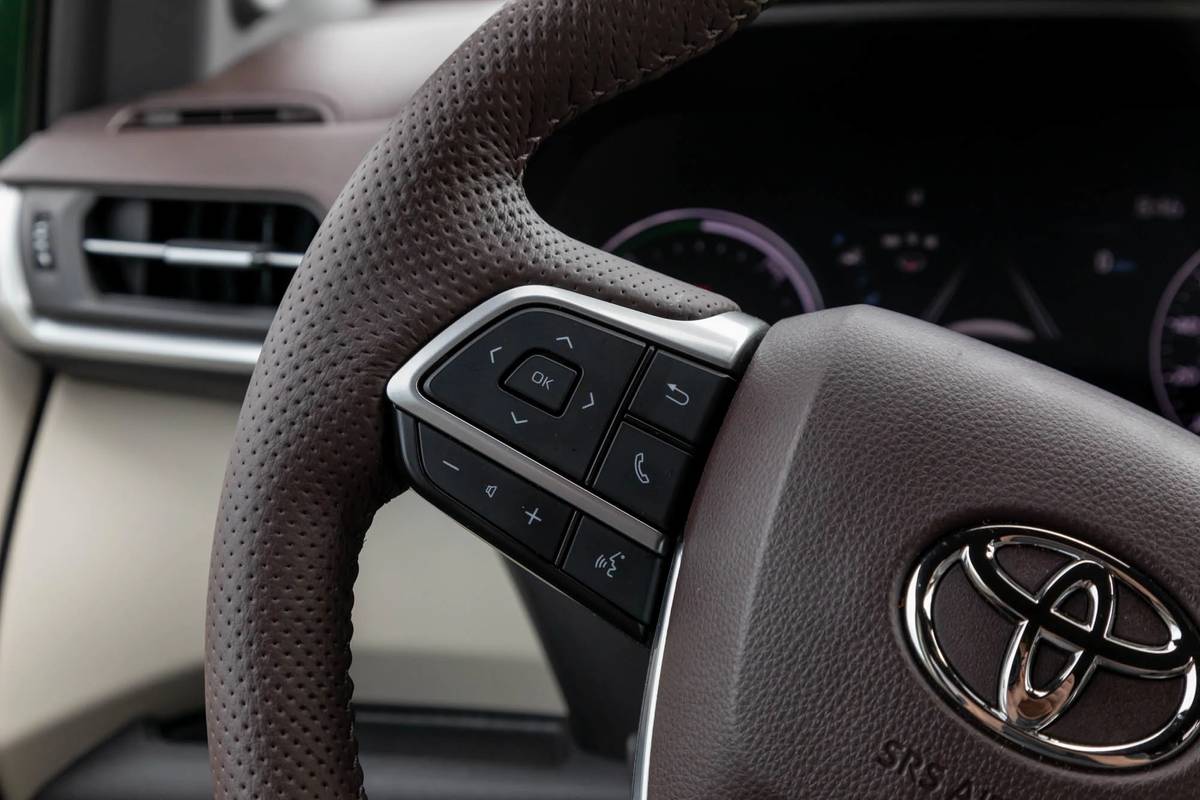

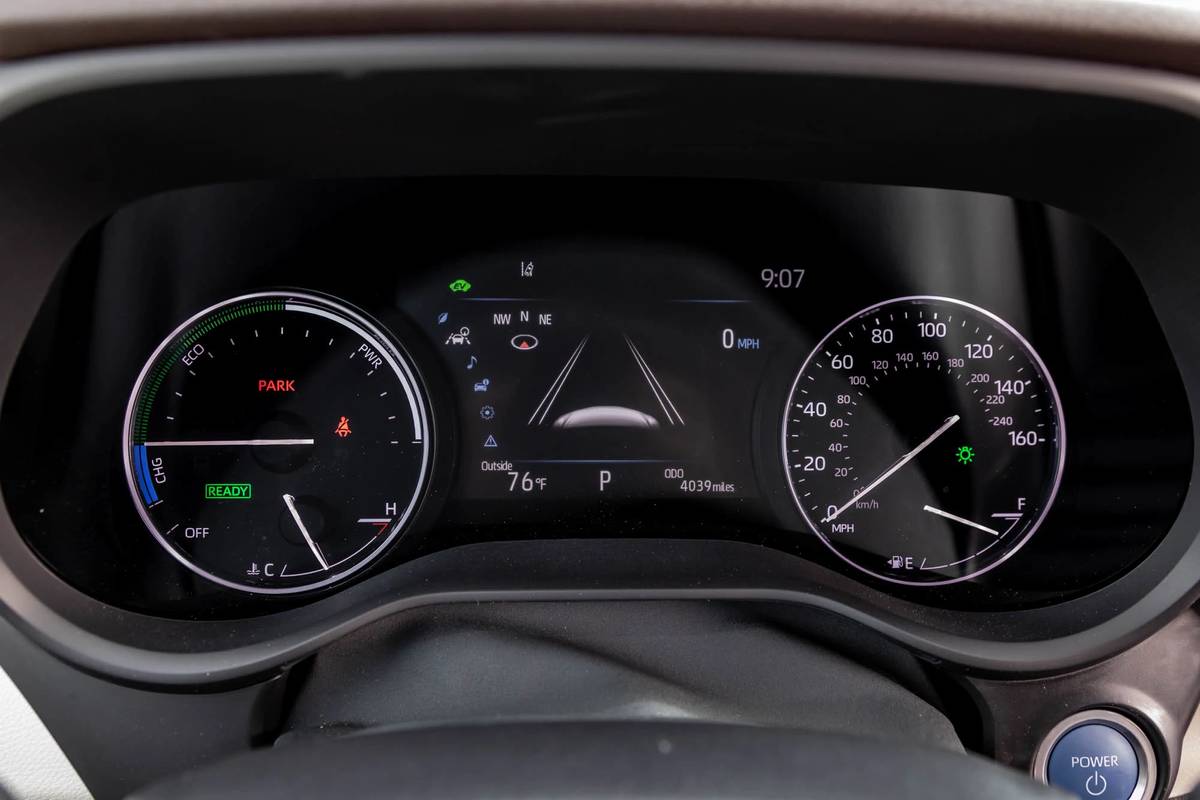

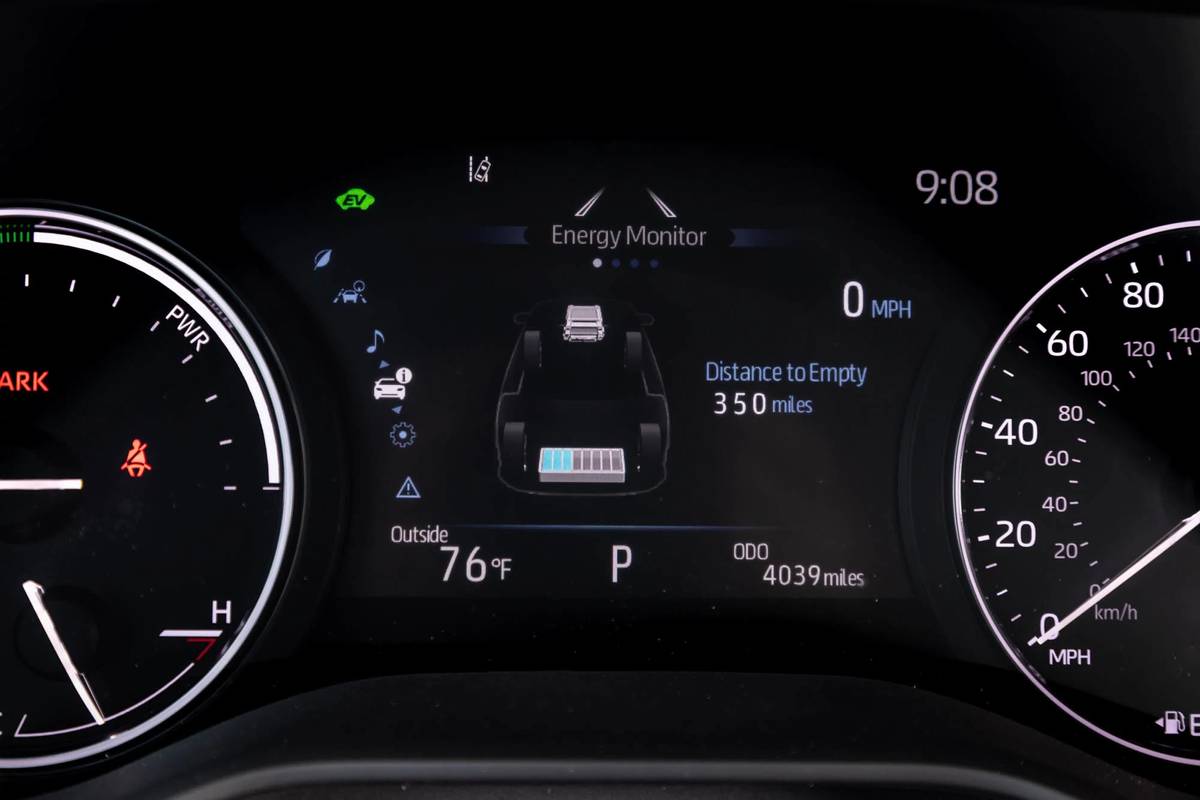
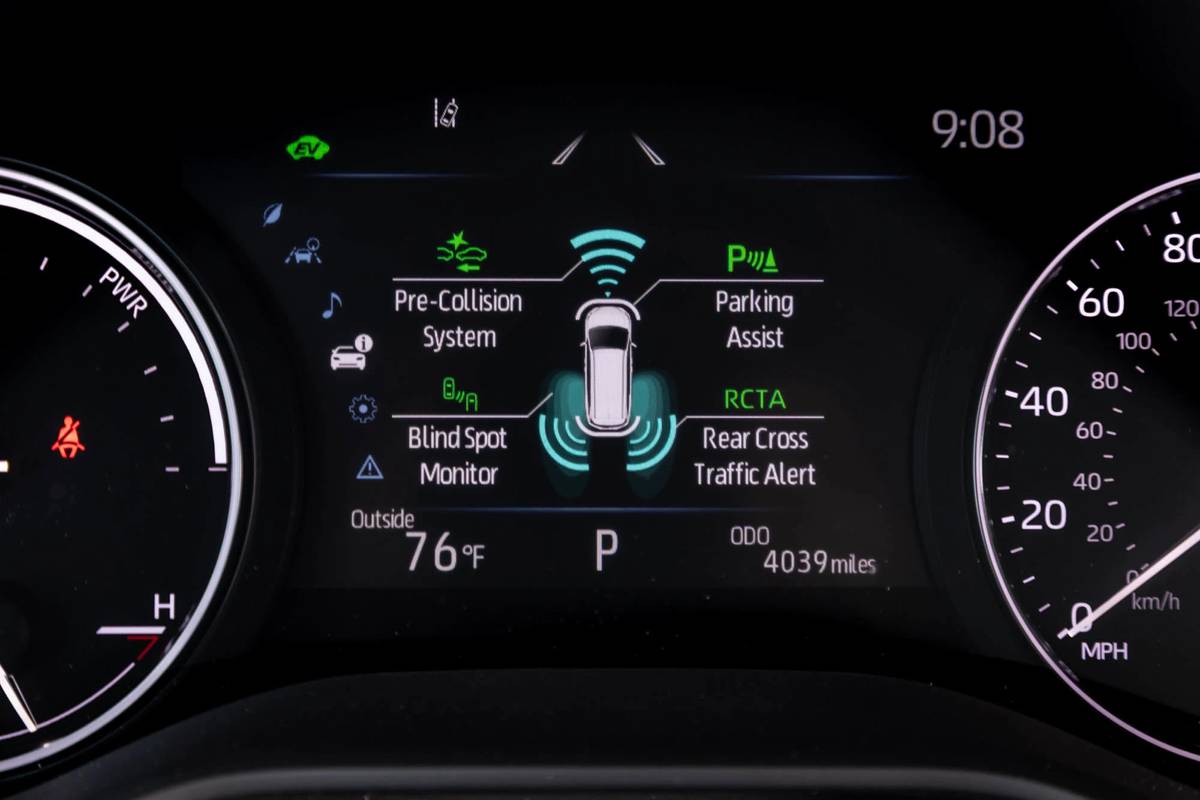
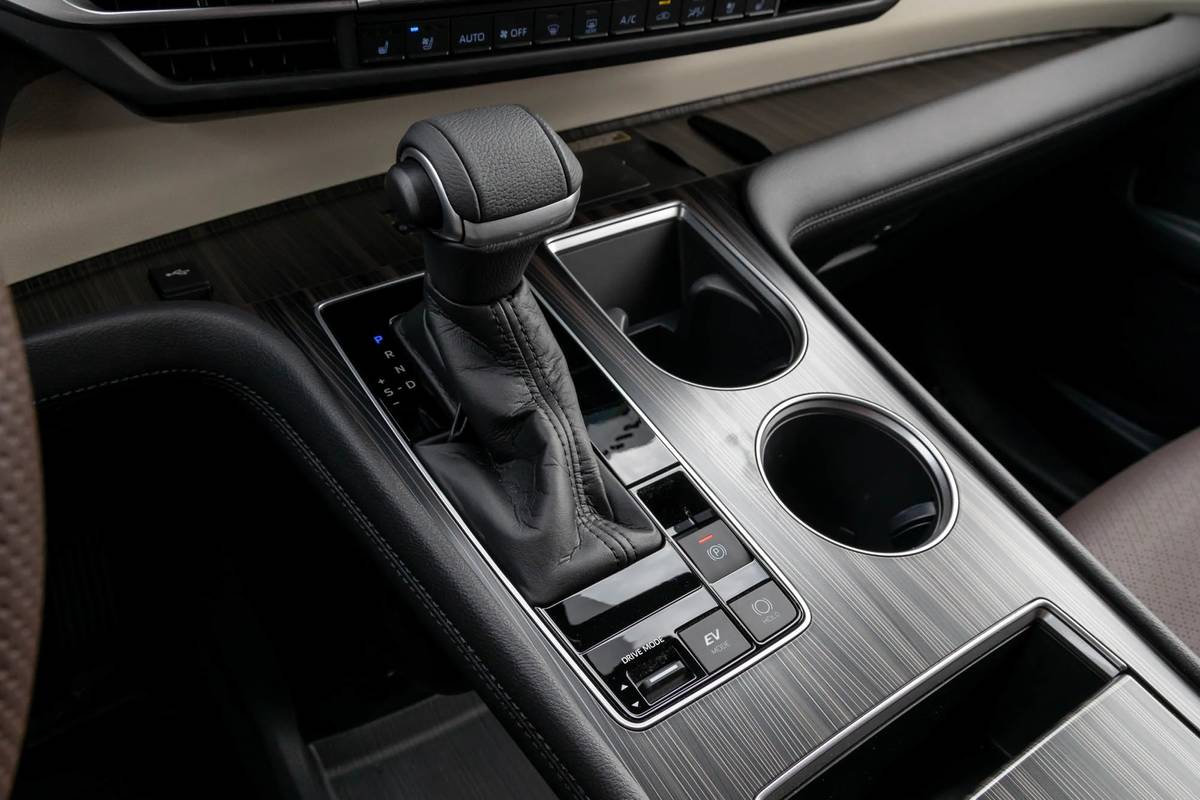
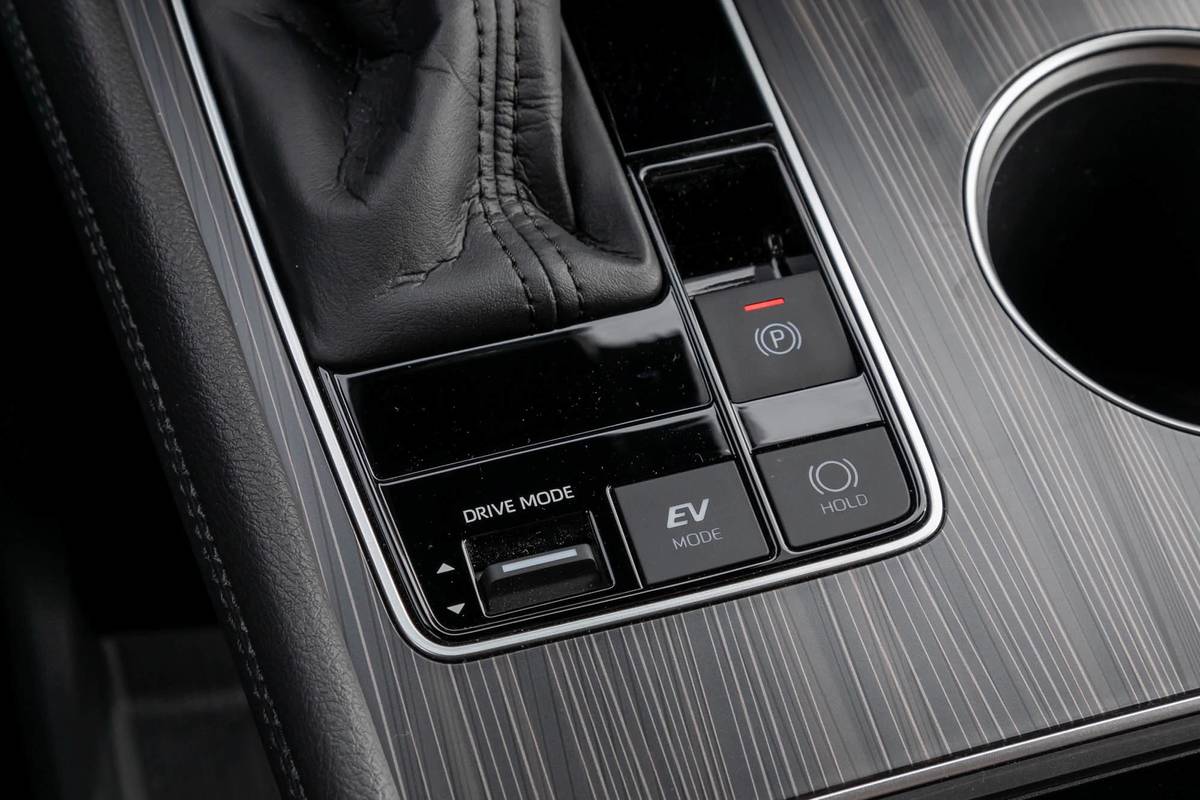
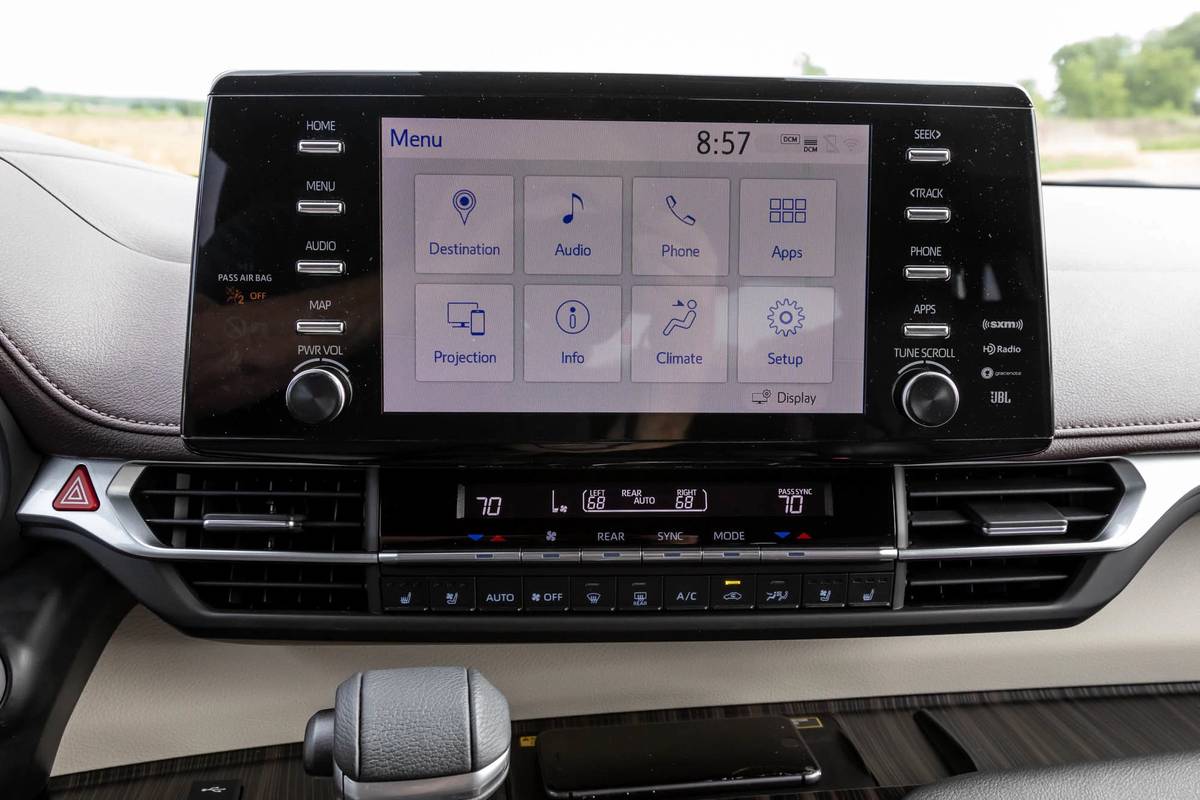


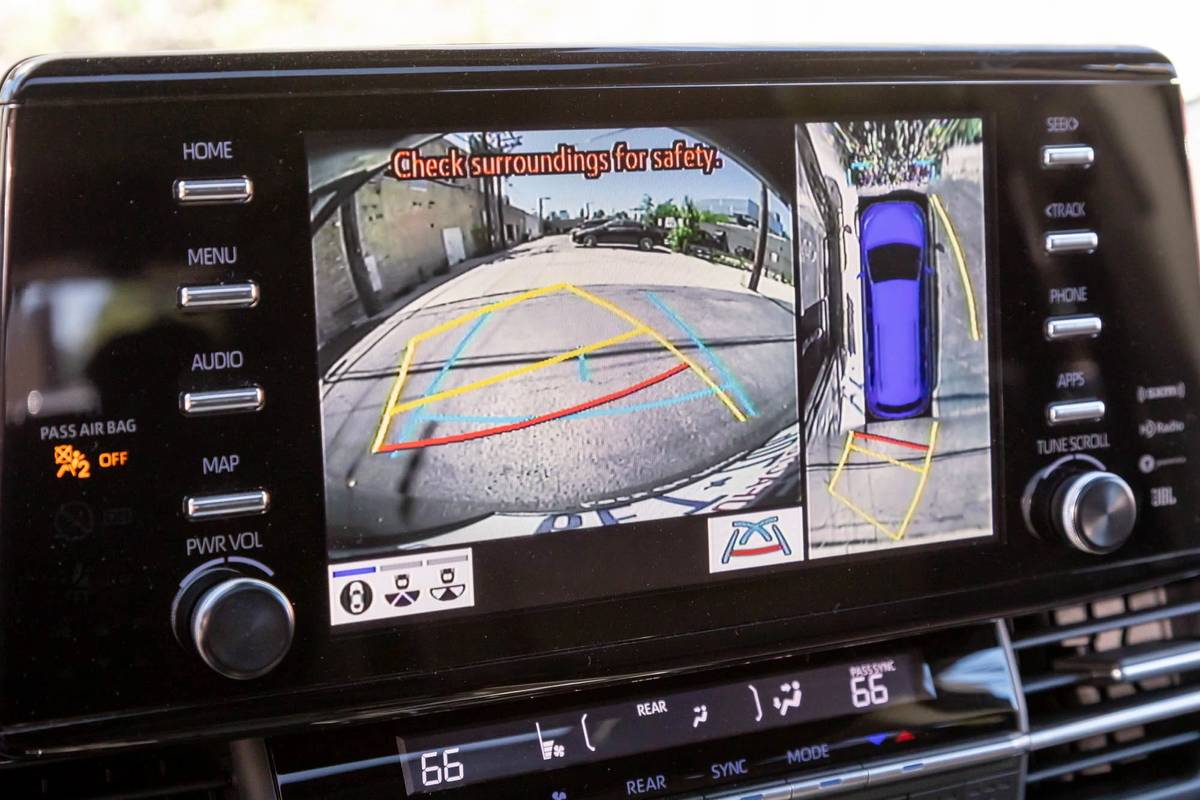
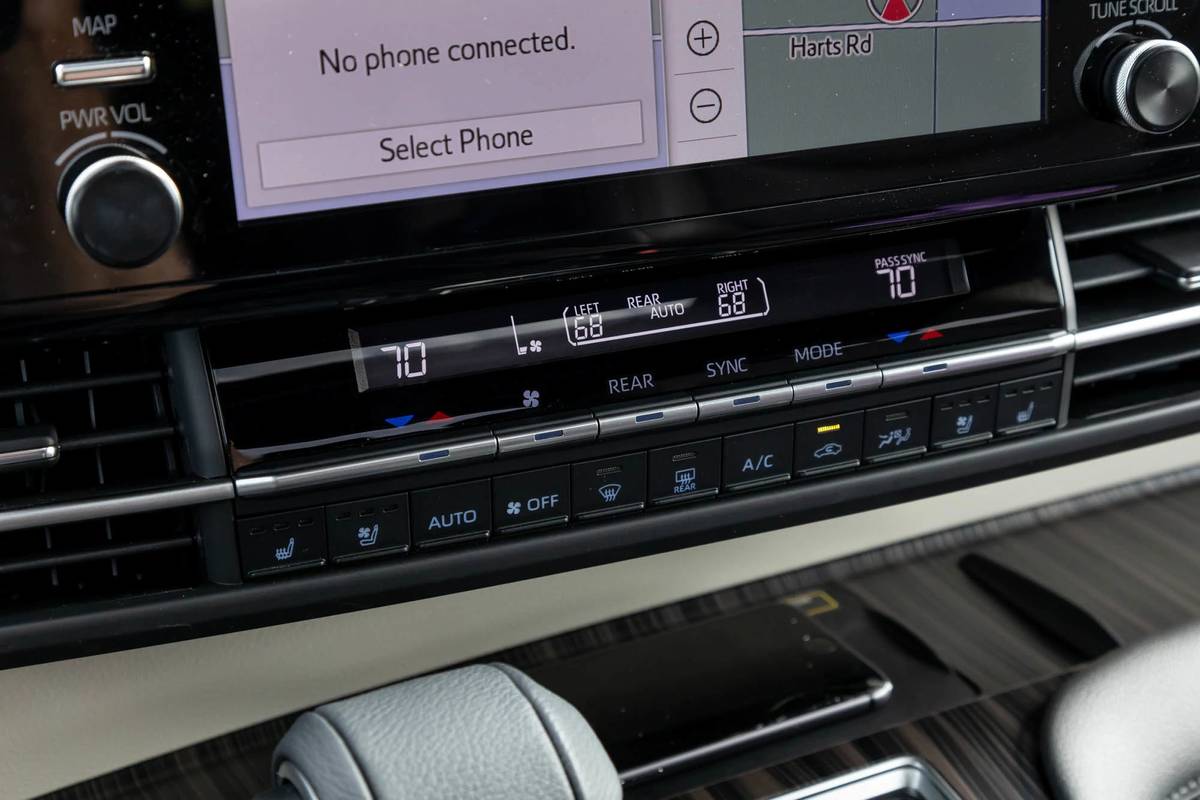

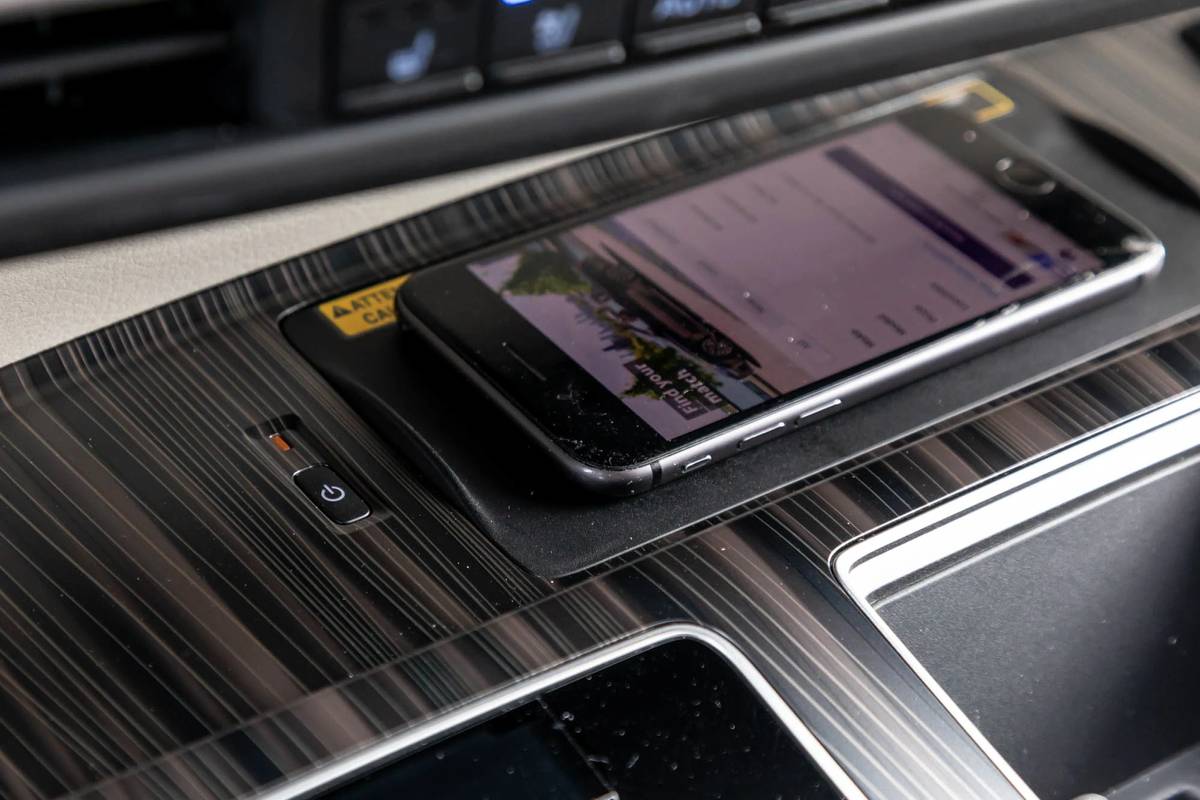
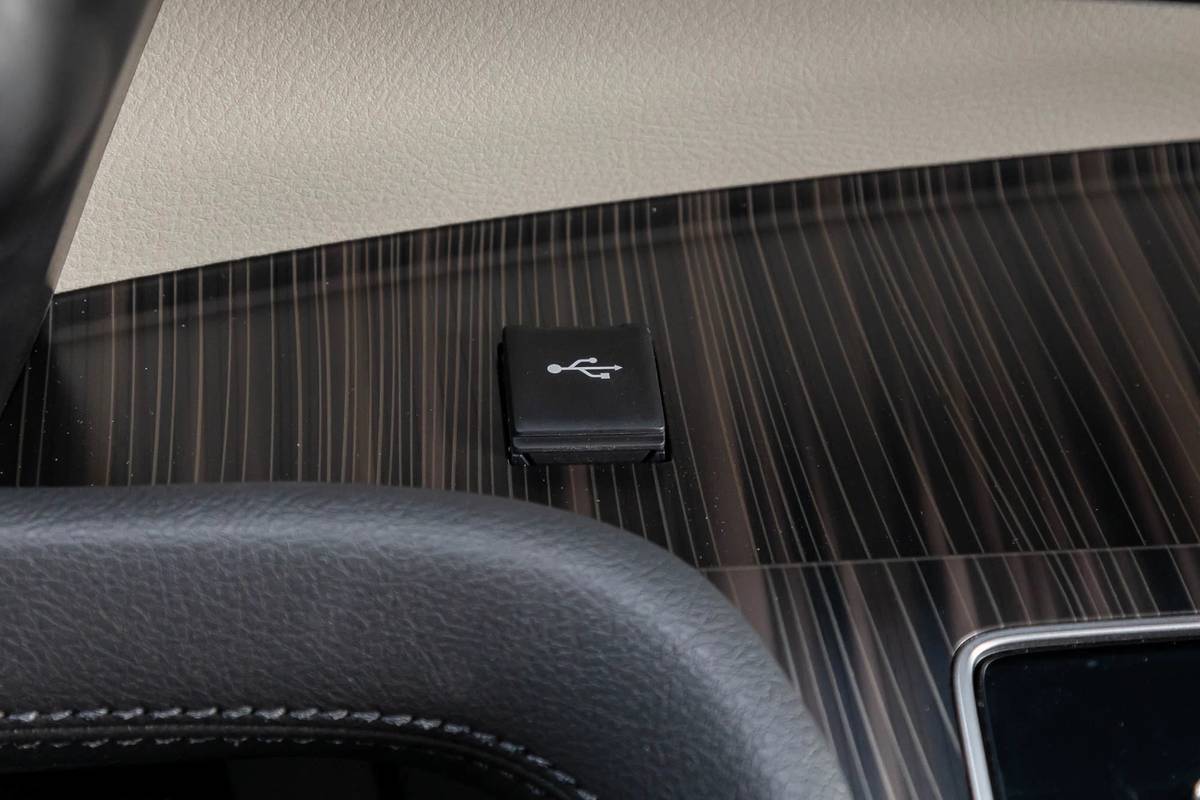

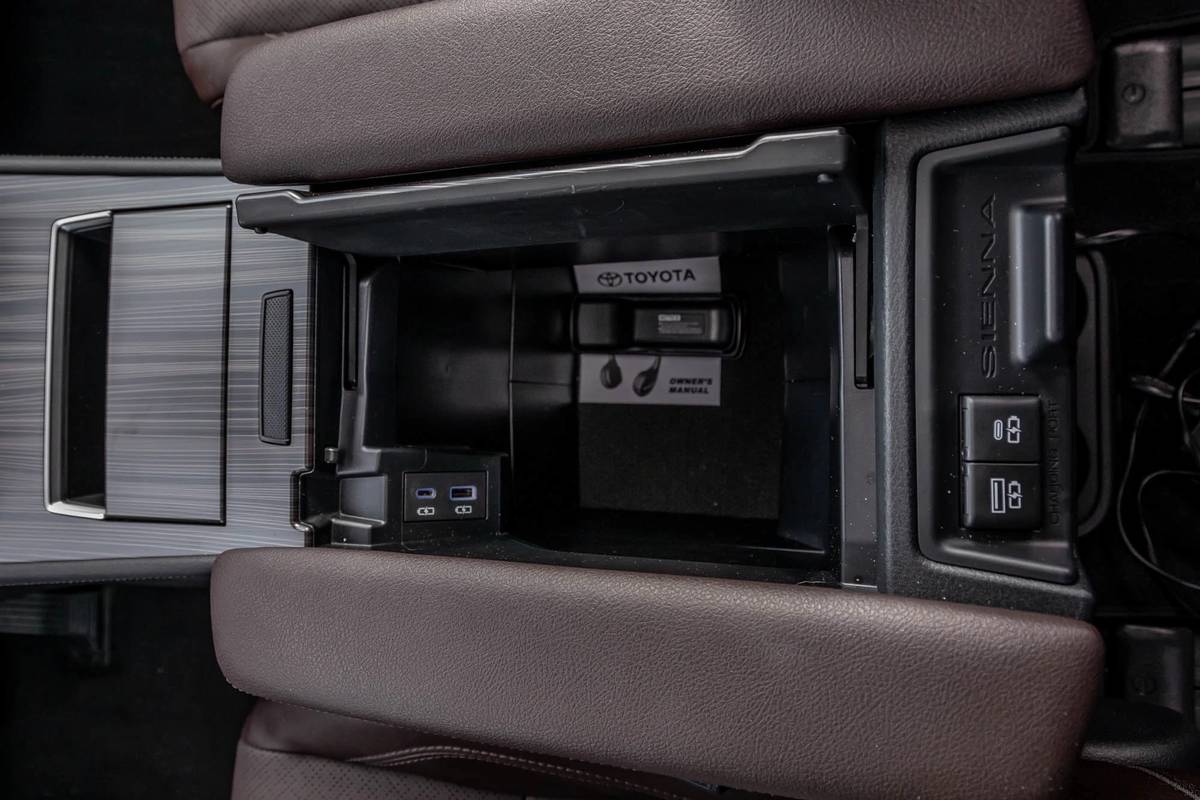
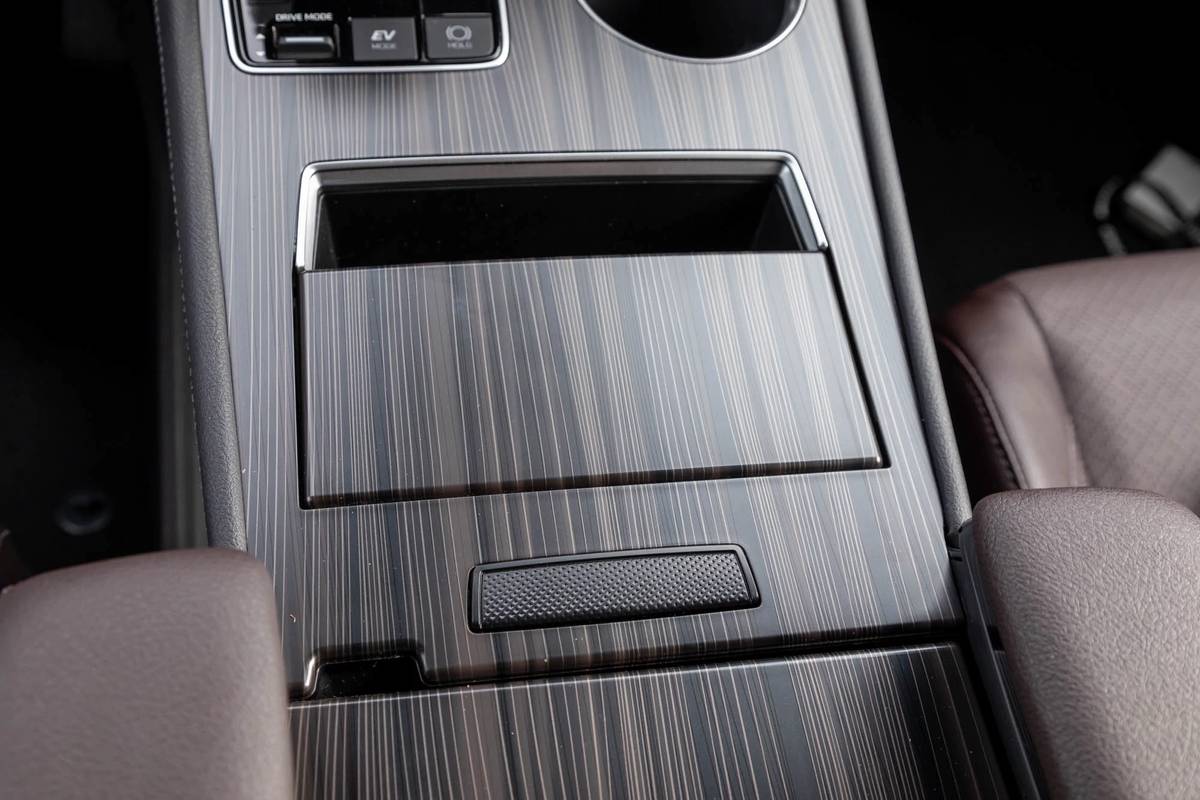
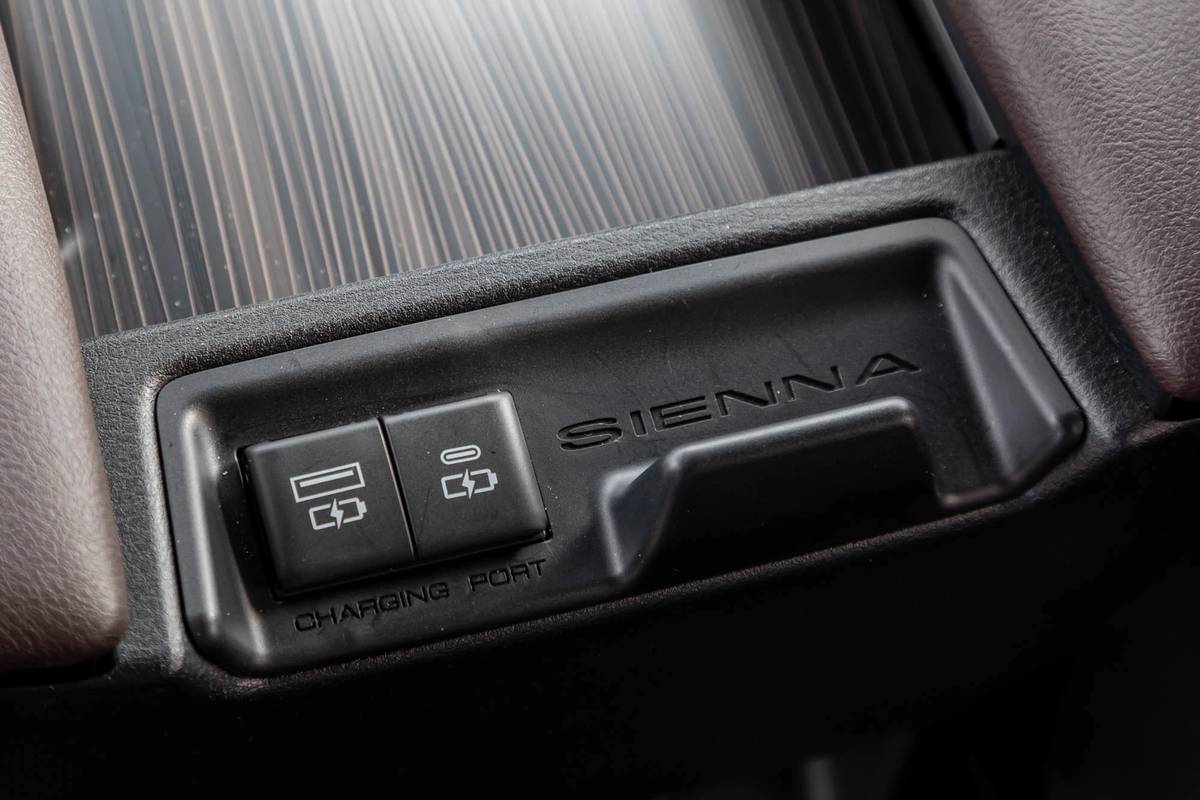
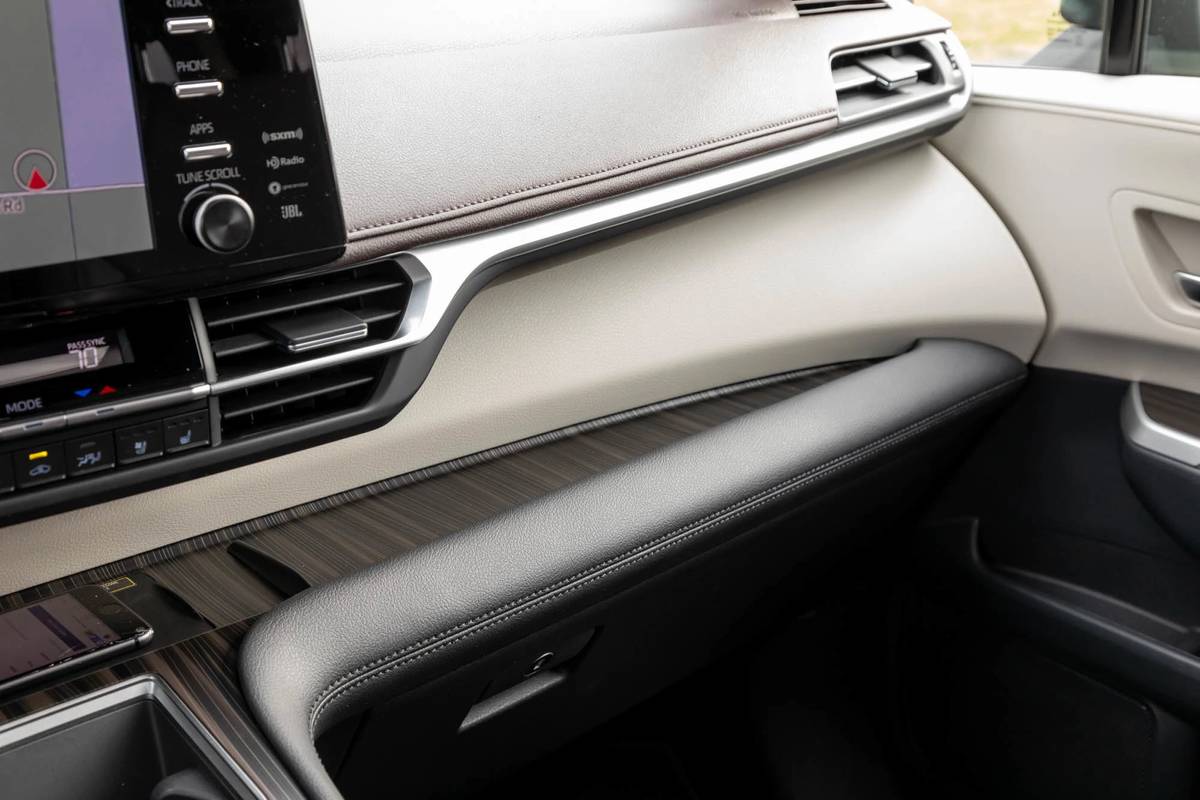
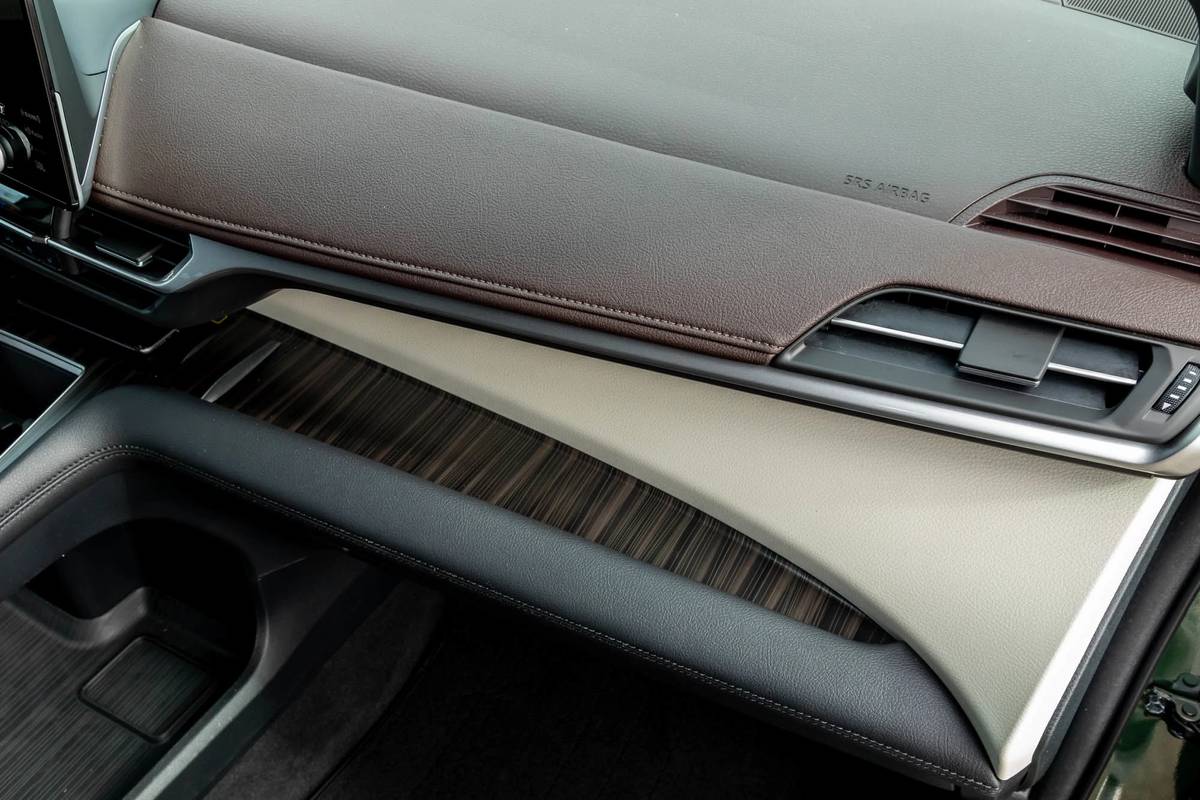
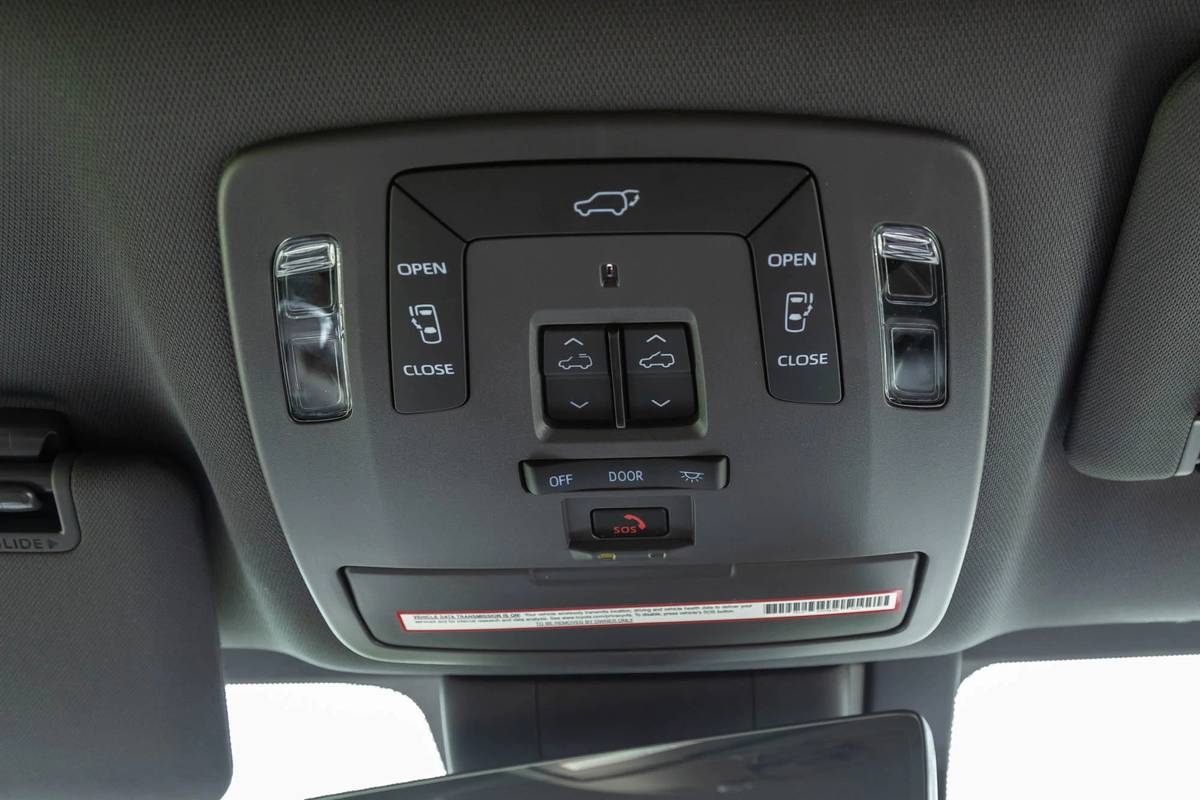
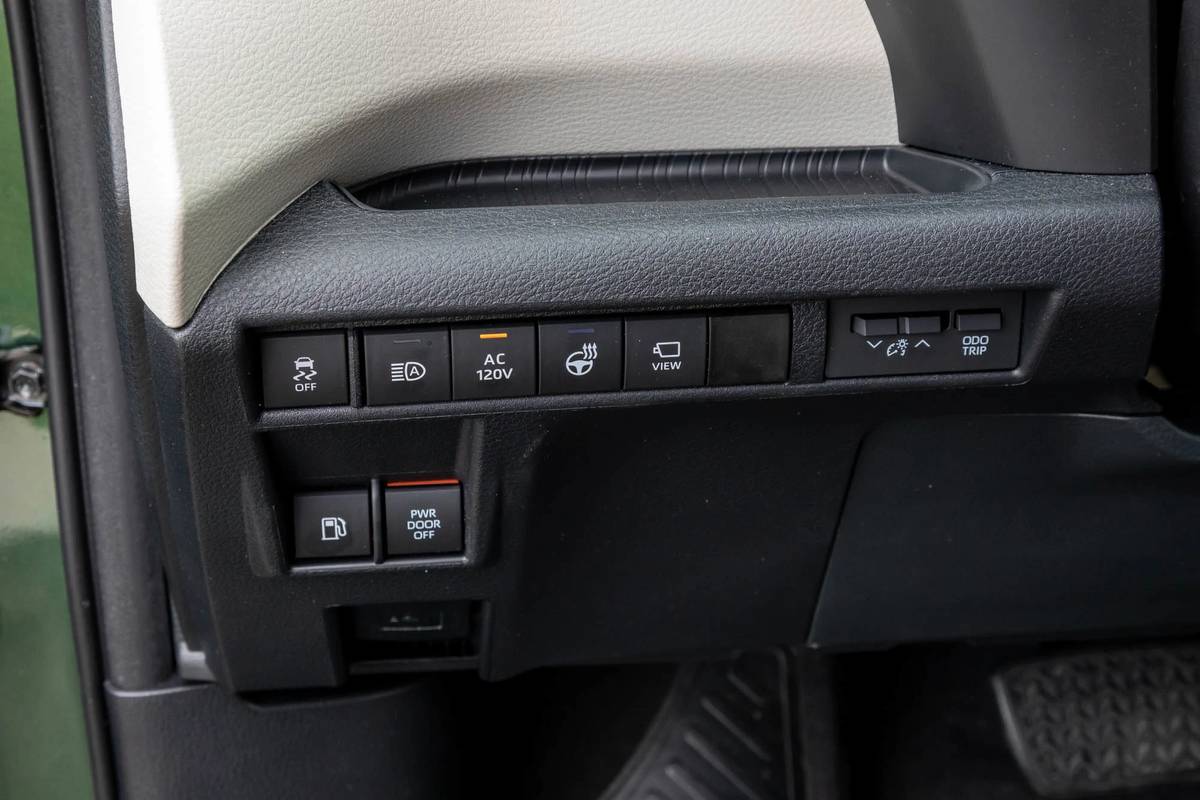
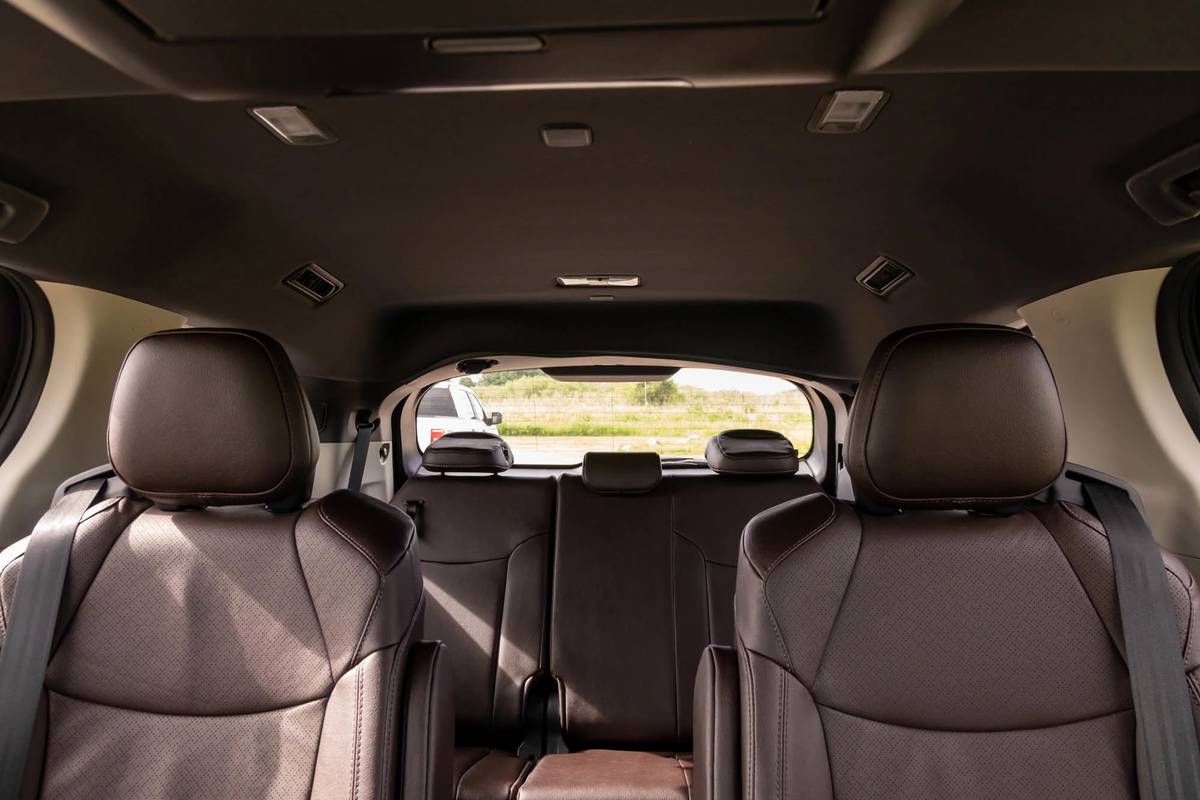
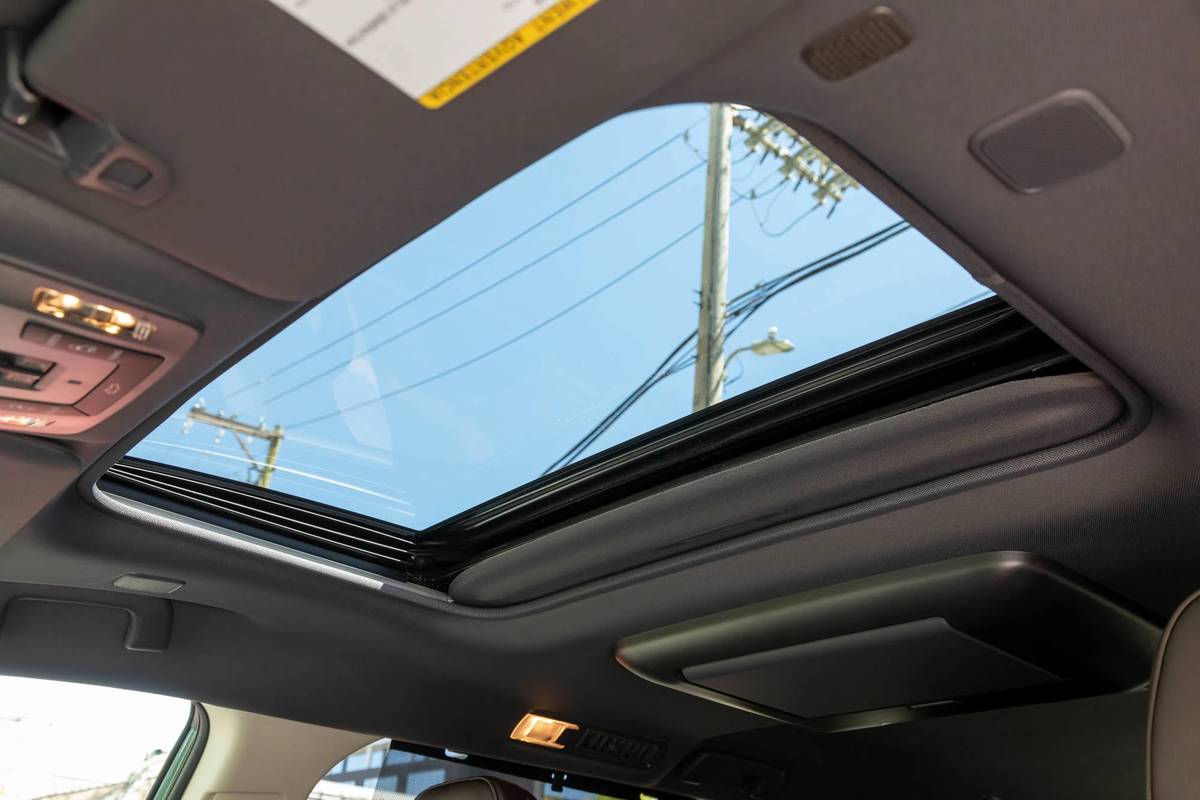
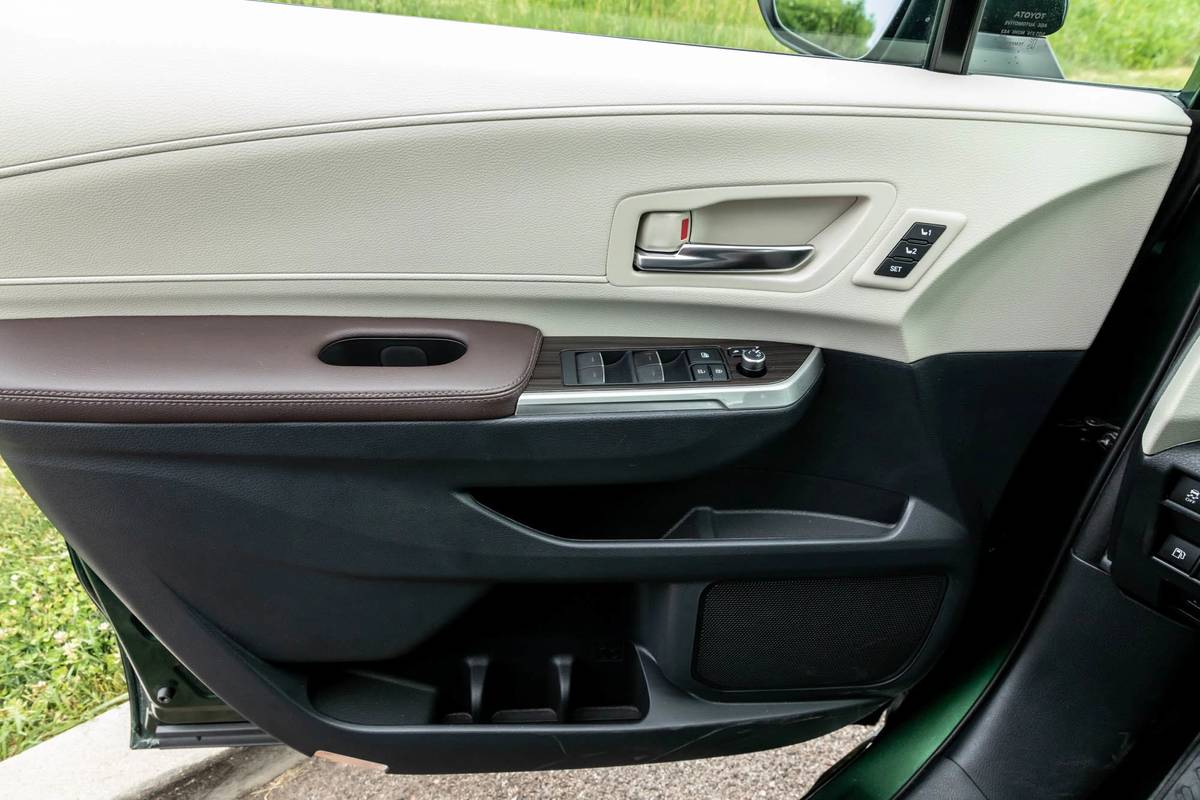
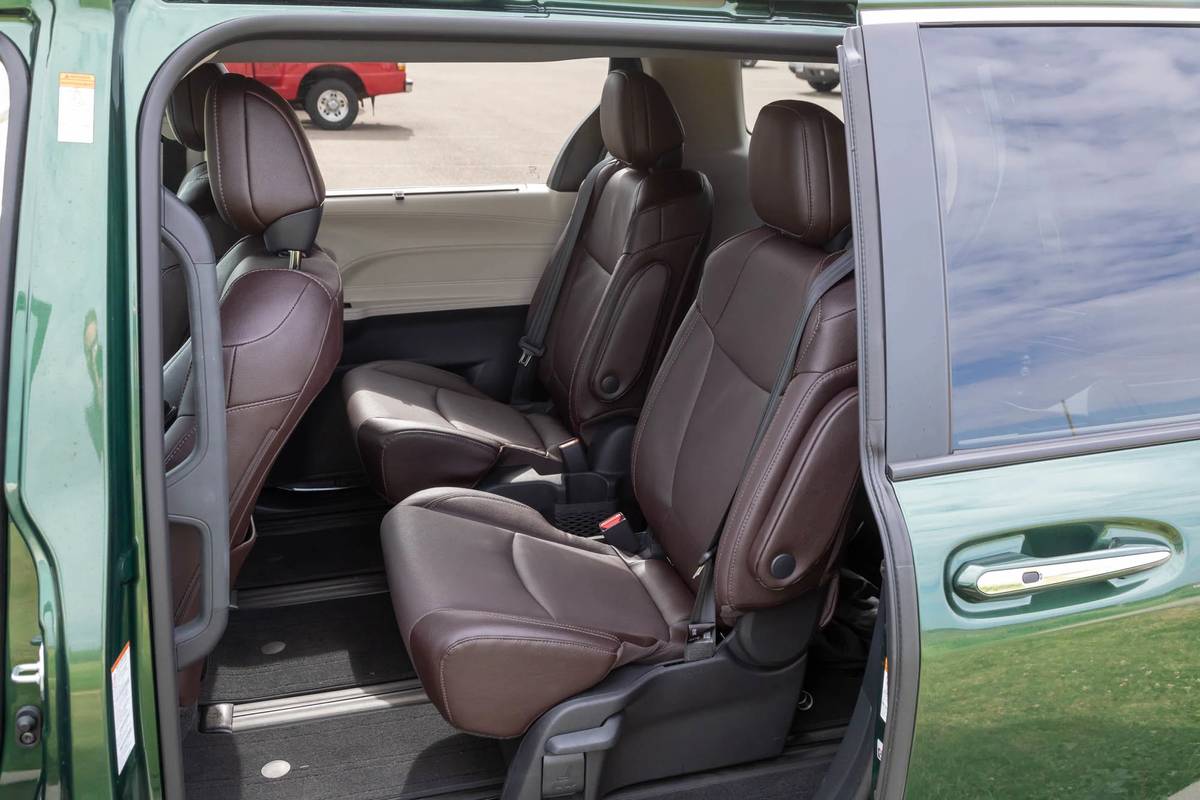
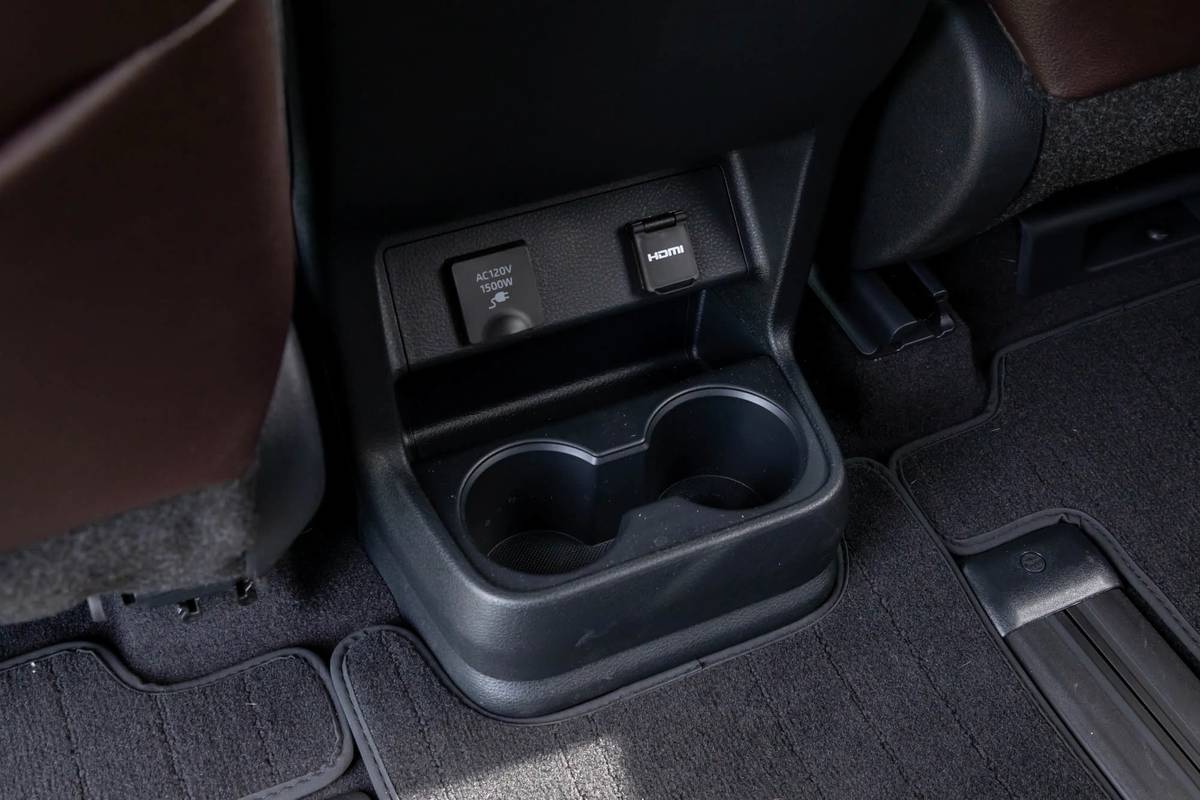
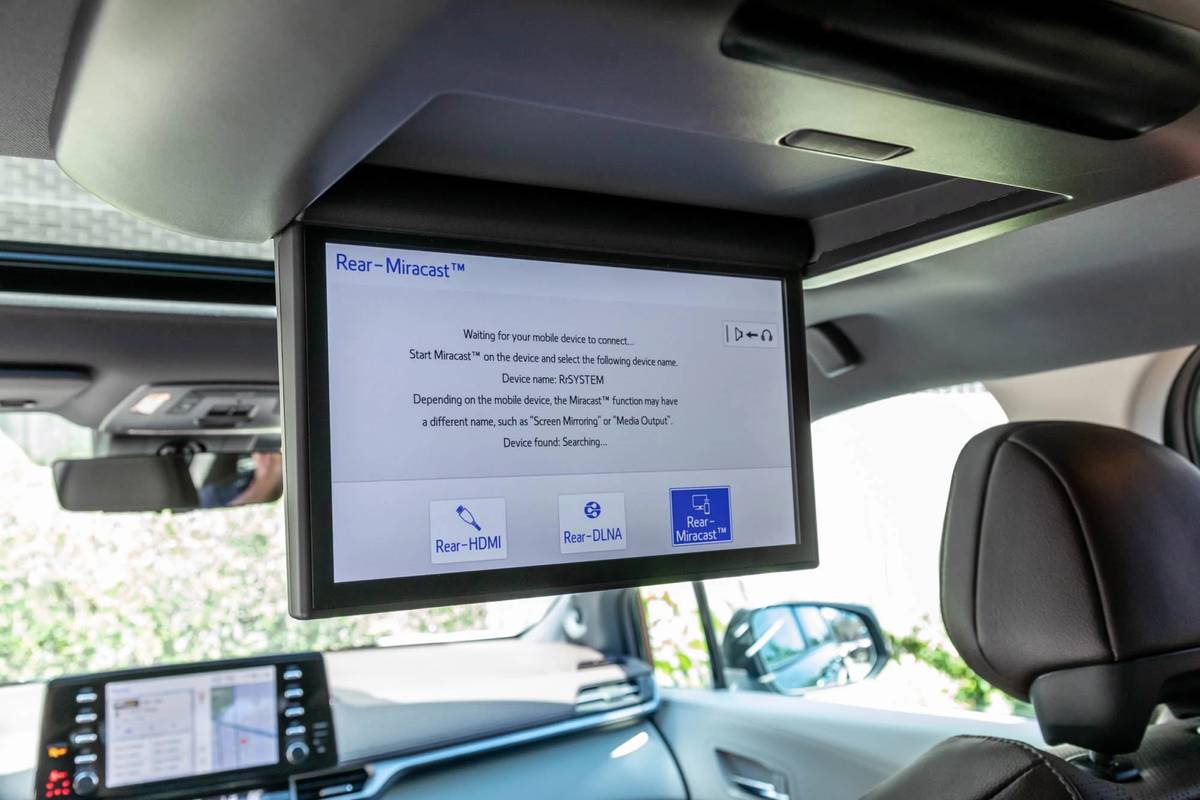
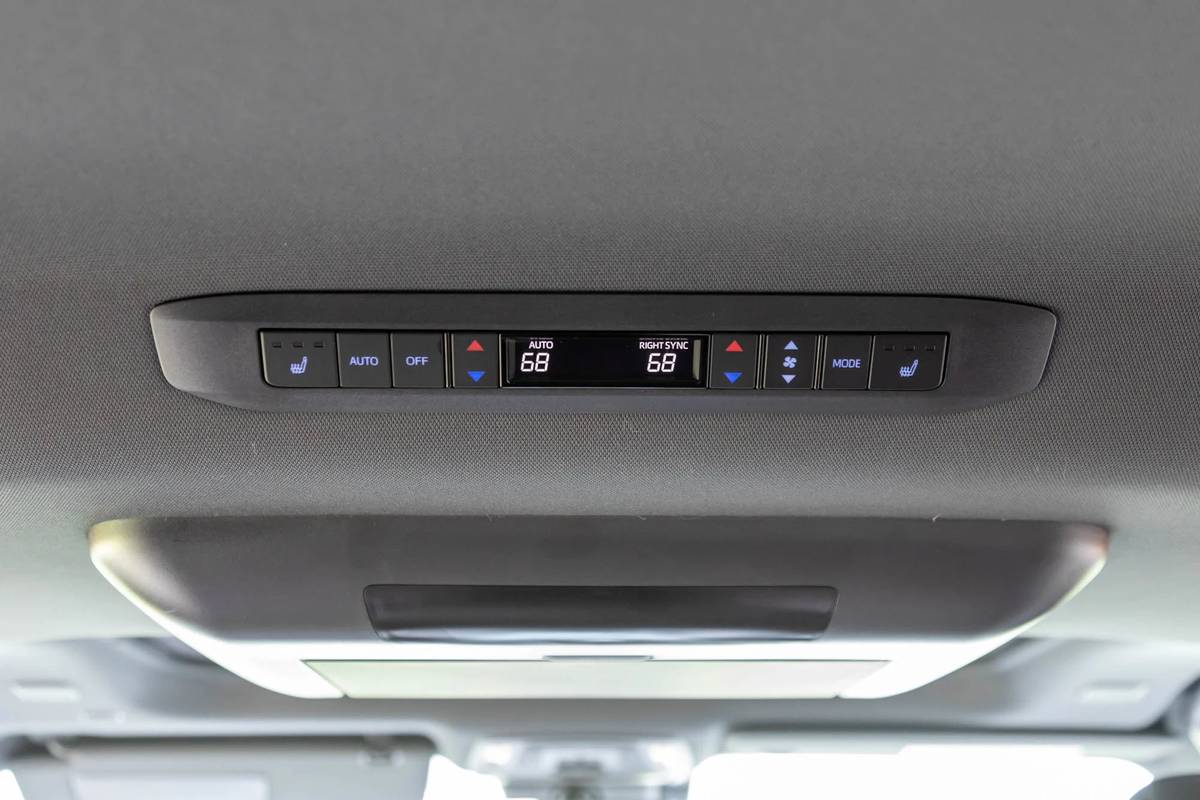


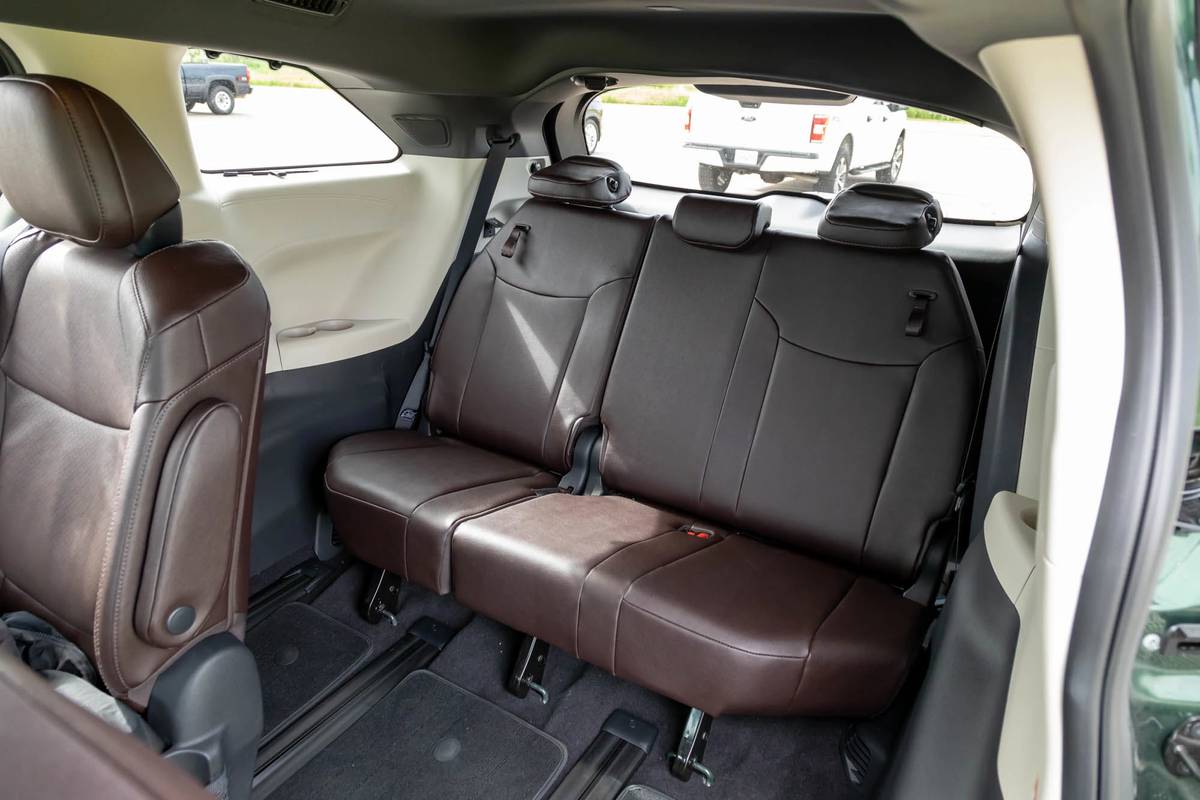
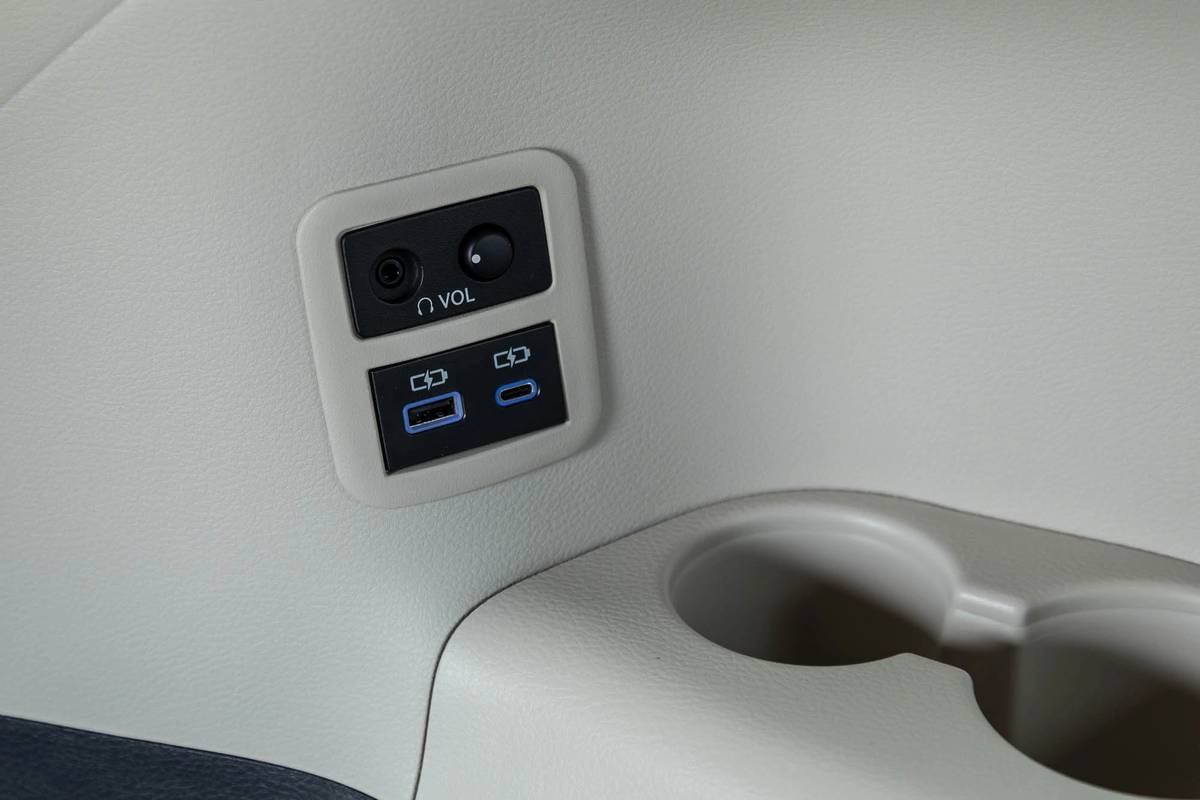

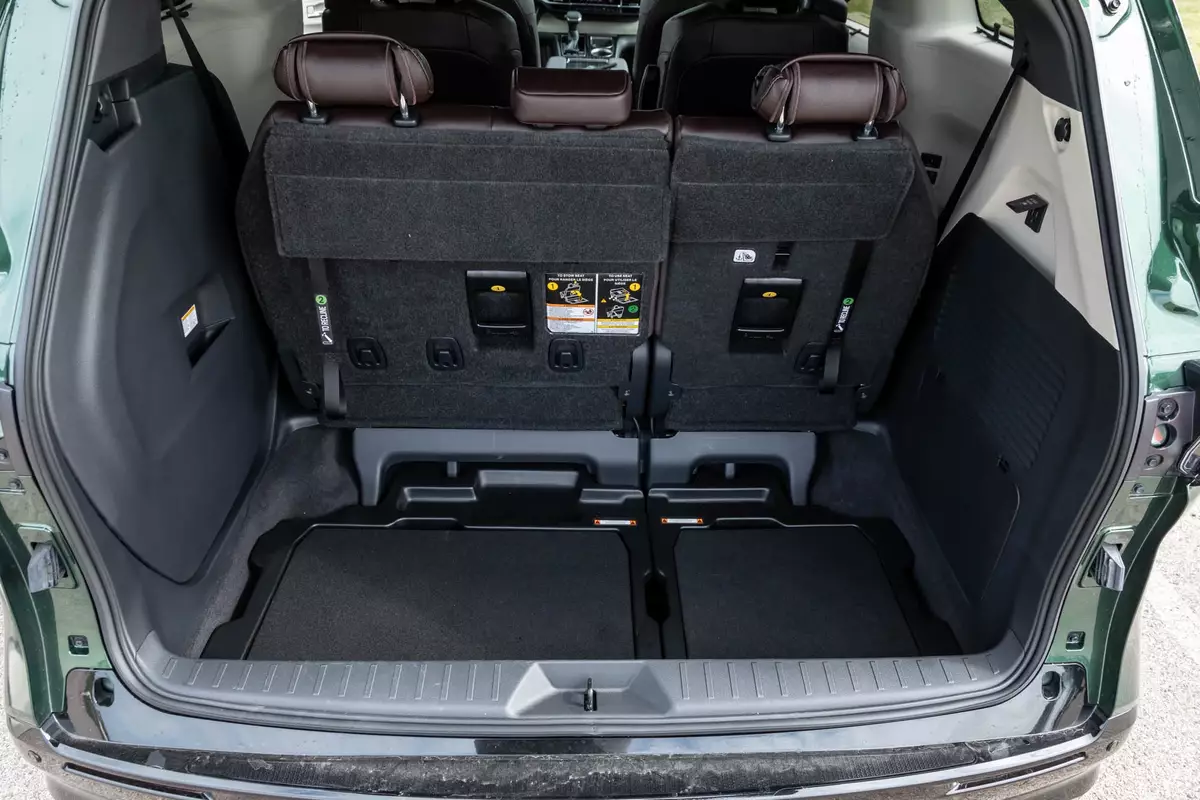
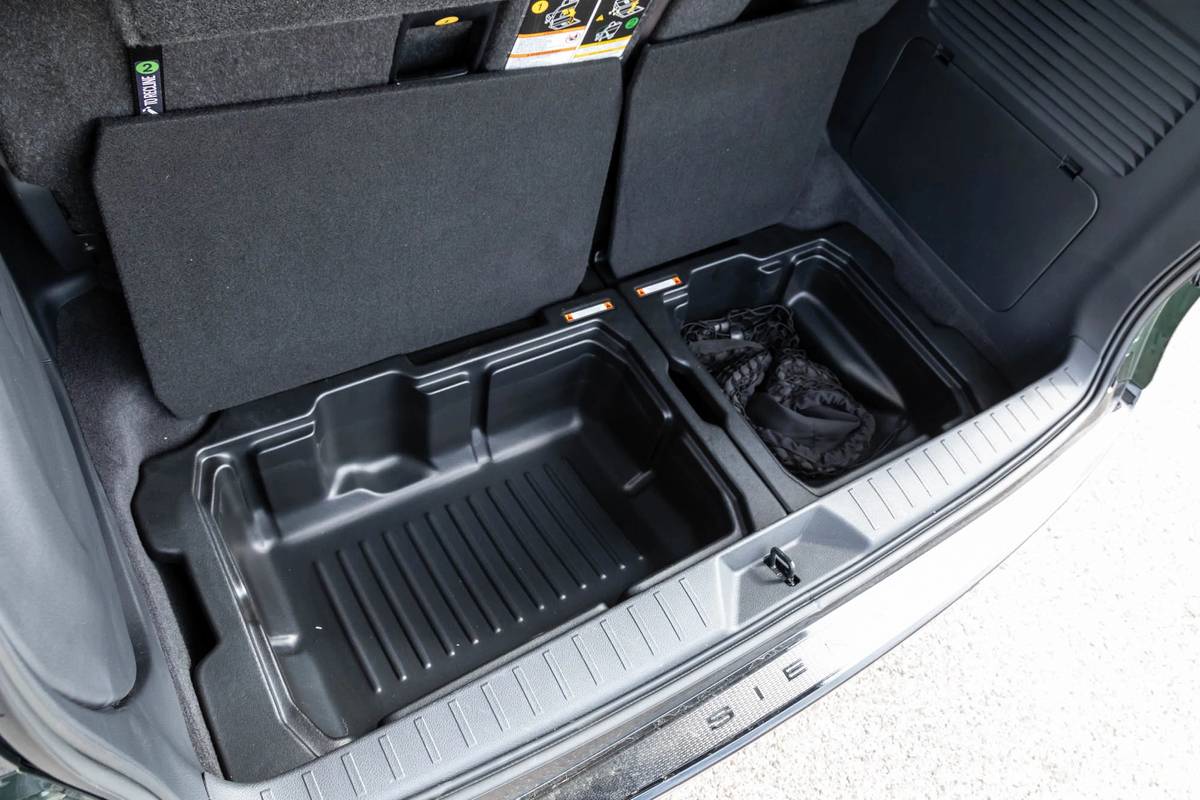

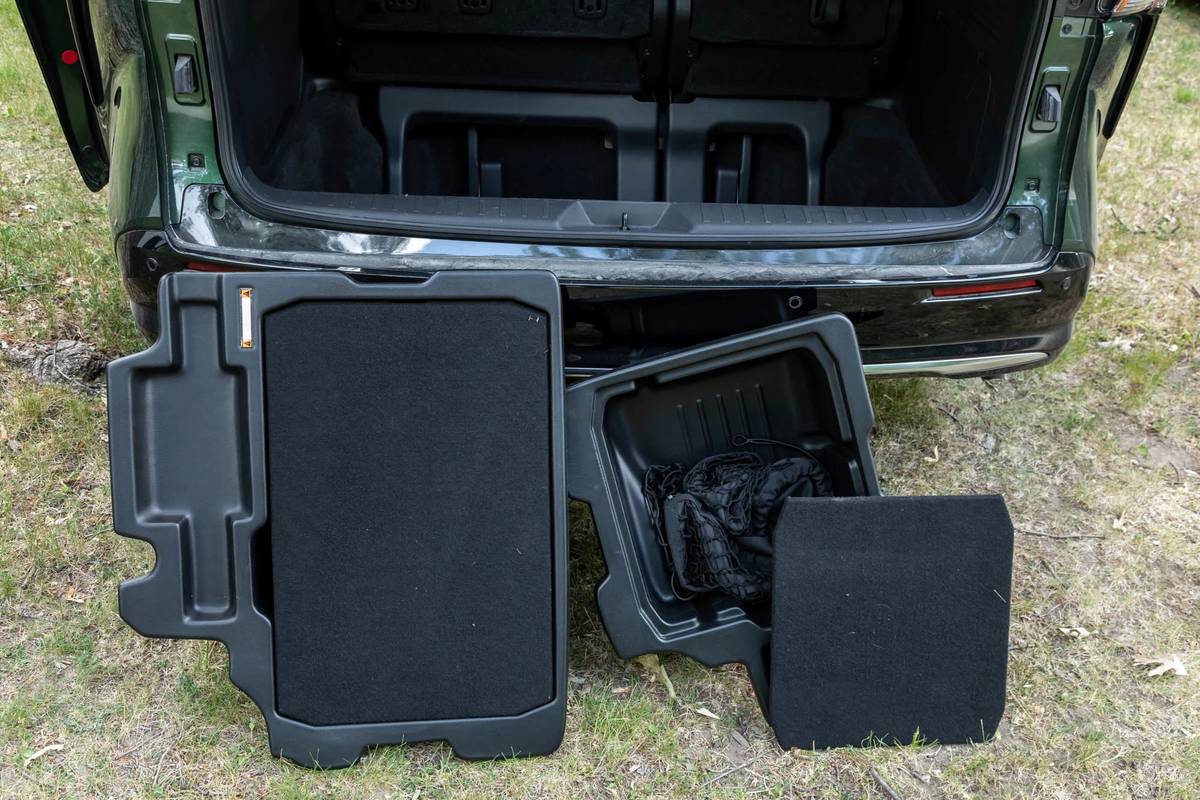





























































Our Test Vehicle
As-tested price: $54,582
Powertrain: 245-horsepower, 2.5-liter four-cylinder gas-electric hybrid; electronic continuously variable automatic transmission; all-wheel drive
Estimated city/highway/combined mpg: 35/36/35
Despite a redesign for 2021 and the bold inclusion of a standard hybrid powertrain, the Sienna didn’t fare well in this contest, with one outright win among our judging categories and six losses. To its credit, it was never too far behind the third-ranked vehicle in any of these categories, and it’s one of only two vans to offer a choice of front- or all-wheel drive, the latter of which our test vehicle featured.
Perhaps the oddest characteristic of the Sienna is that its second-row seats don’t fold flat and aren’t removable (due to their incorporation of side impact airbags), which might disqualify it for use by weekend handymen; all four vans measure wide enough to accommodate 4-by-8-foot building materials flat on the floor, but the Sienna can’t crack the 8-foot dimension.
The Good
Handling: “Handling chops rise head and shoulders above the rest,” said judge Kelsey Mays. “Mid-corner steering feedback is downright acceptable — in a class ranging from numb to very numb — and body roll feels the best controlled in this group.”
Safety features: The Sienna tied for first with the Chrysler Pacifica for its complement of safety features, most notably two things the Honda Odyssey lacks: a 360-degree camera system and rear automatic braking. Present and accounted for are forward collision warning with automatic emergency braking and pedestrian detection that operates at a wide range of speeds, lane departure warning with steering intervention, a blind spot warning system, dynamic lines for its backup camera, rear cross-traffic detection, front parking sensors and automatic high-beam headlights.
Standard hybrid powertrain: “The Sienna is the only hybrid and has good punch from a stop, with decent midrange power,” said judge Jennifer Geiger. It also delivers the best mileage by far, with an EPA-estimated 35/36/35 mpg city/highway/combined, despite having optional AWD. The next closest among contestants is the front-drive Odyssey’s 19/28/22 mpg.
Test exclusives: The Sienna racked up several test exclusives in its feature list. It had the only powered tilt/telescoping steering wheel, head-up display and rearview camera mirror among the four competitors, and its two years or 25,000 miles of regularly scheduled free maintenance helped mitigate low value credentials otherwise.
Super Long Slide seats: “These sliding second-row seats grant some 2 feet of range, roughly double the next longest sliding in this group,” Mays said. “Move them back, and the Sienna has enough second-row legroom to play floor hockey, with relatively high cushions for good thigh support.”
Latch anchor access: “Easy-access Latch anchors and ample legroom in all rows simplifies installing car seats,” said Geiger, a certified child passenger safety technician.
The Bad
Family-friendly features: “In family features, the Sienna falls flat against the Pacifica and Carnival,” Geiger said. “There’s no vacuum, and it’s the only van that doesn’t have a cabin camera. Though it has Easy Speak, I find these features gimmicky and don’t rate any of them highly. The single-screen rear entertainment system is also pretty basic compared with Chrysler’s and Kia’s.” The Sienna ranked last in this category.
Value: “Excellent gas mileage and AWD plus the test-exclusive features mentioned above shore up its value equation, but the Sienna’s as-tested price is steep,” Mays said. The Sienna ranked last for value.
Third row: “The third-row seat is very firm, and you have to sit in an uncomfortable, knees-up position,” Geiger said. “Tiny side windows make the space feel closed off. There are no device cubbies and only one side has USB ports.” Mays added, “This third row is the hardest to access, with a relatively narrow aisle between the second-row captain’s chairs or a cumbersome, multistep process to move the chairs forward, enter from the side and then reset things afterward.”
Front seats: “Despite wide berths and high cushions, the Sienna’s front seats leave something to be desired,” Mays said. “Headroom and sliding range are both modest, and the passenger gets the short shrift — with no height, cushion angle or lumbar — for adjustments.” Geiger agreed, adding, “I find the fixed center console armrest restrictive and odd looking. It’s at a strange height and width for me and is uncomfortable.”
Second-row limitations: Though they slide farther than any other, “It’s a huge miss that the seats don’t fold down or come out,” Geiger said.
Visibility: “The Sienna’s exclusive camera-based rearview mirror is necessary, as the rear window is otherwise tiny,” Mays said.
Braking feel: “Perhaps it’s to be expected, given the Sienna’s hybrid nature, but the regenerative brakes exhibit tentative, nonlinear response throughout the range of pedal travel,” Mays said.
Interior quality: “How is this the top trim level?!” Geiger asked. “The fake wood looks really cheap, and the awkward design with the console raised up and splitting the cabin is a deal breaker for me. The leather seats are nice and the padding is generous, but the rest definitely doesn’t look or feel premium.”
Research the 2021 Toyota Sienna | Search Inventory | Car Seat Check
3. 2021 Honda Odyssey Elite FWD, 235 points
The verdict: Disappointing ride quality and some outdated — or unintuitive — technology mute the Odyssey’s family-friendly strengths. People who think of minivans as boring might be thinking of this one.

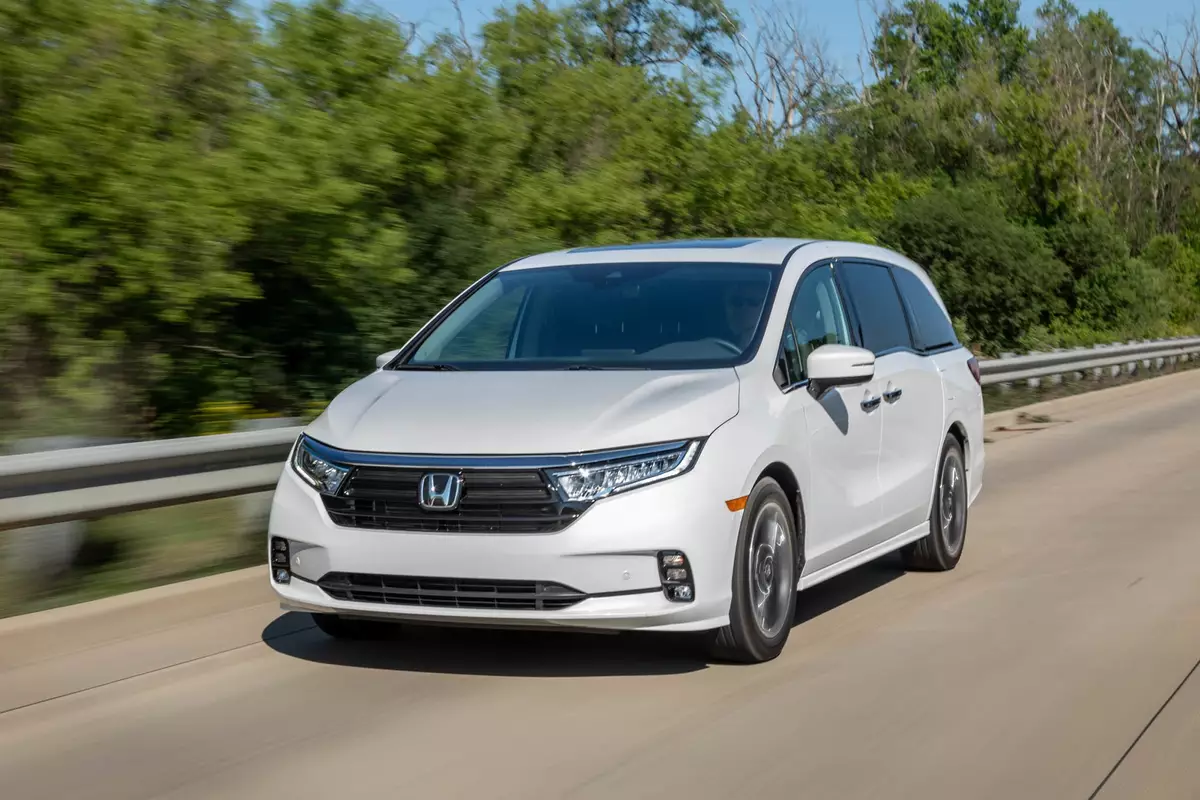
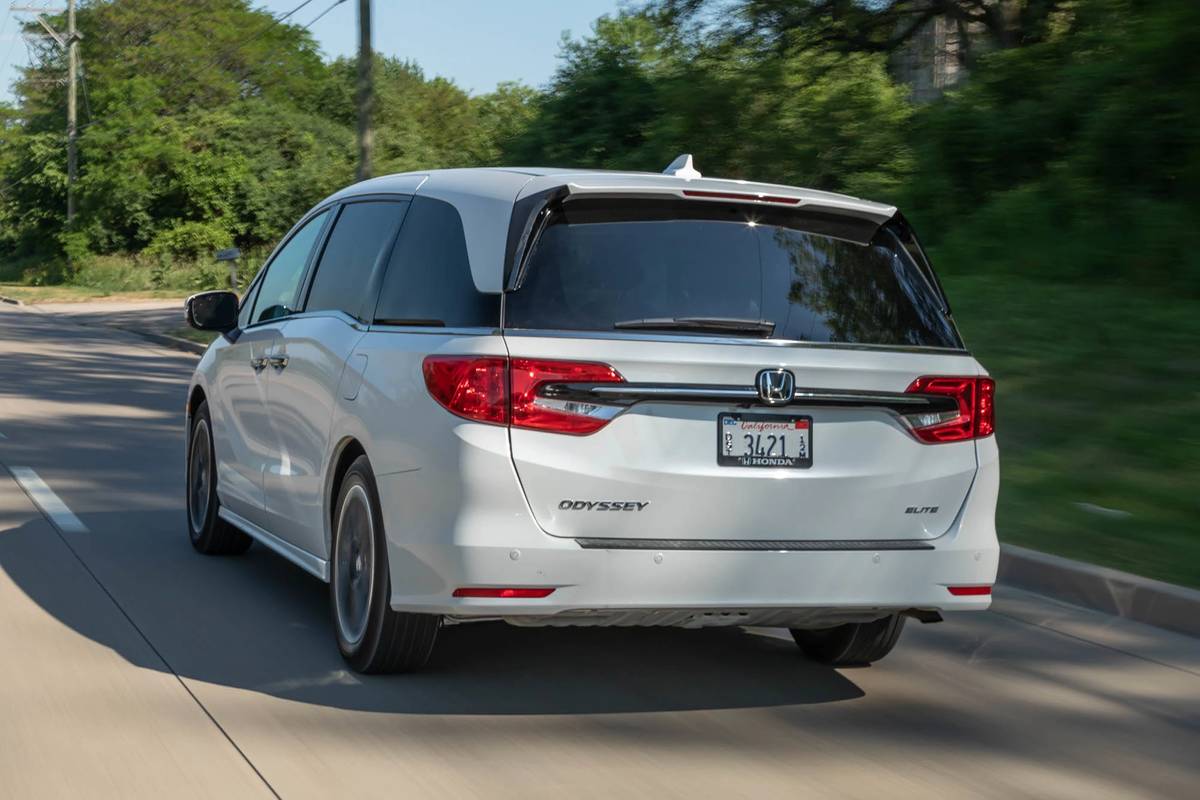
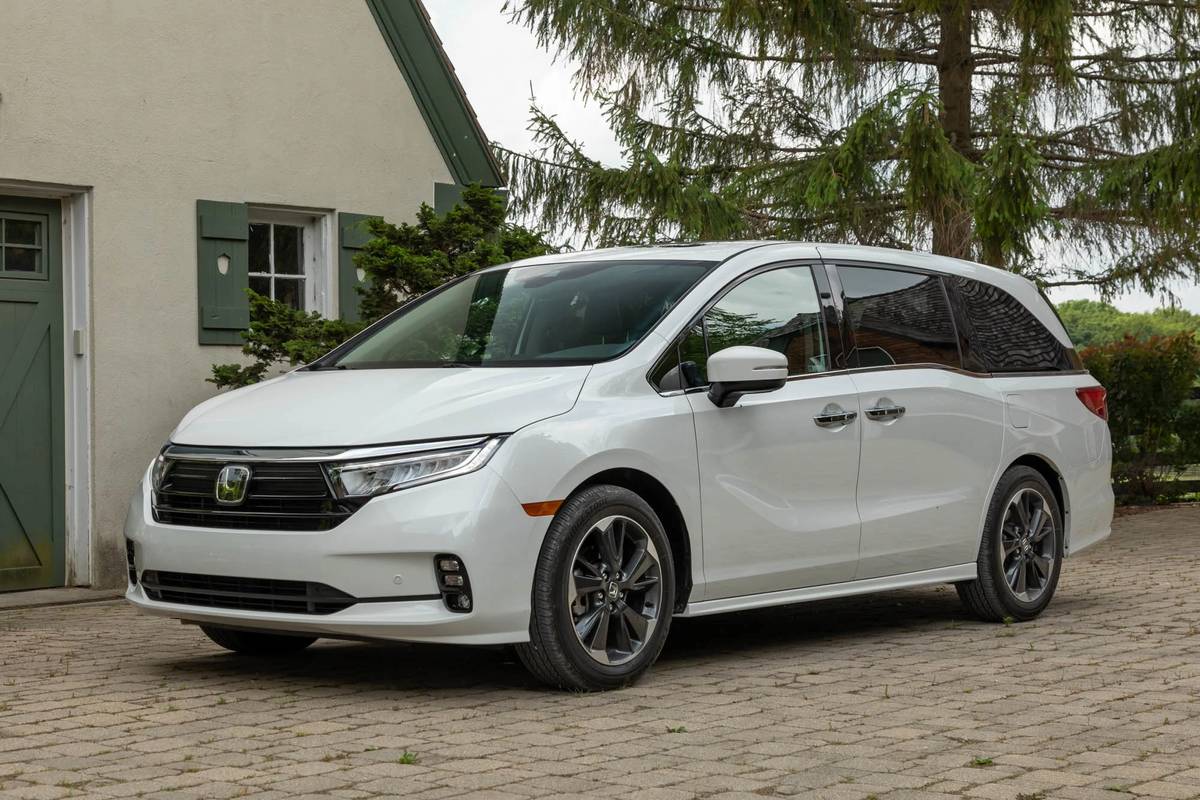
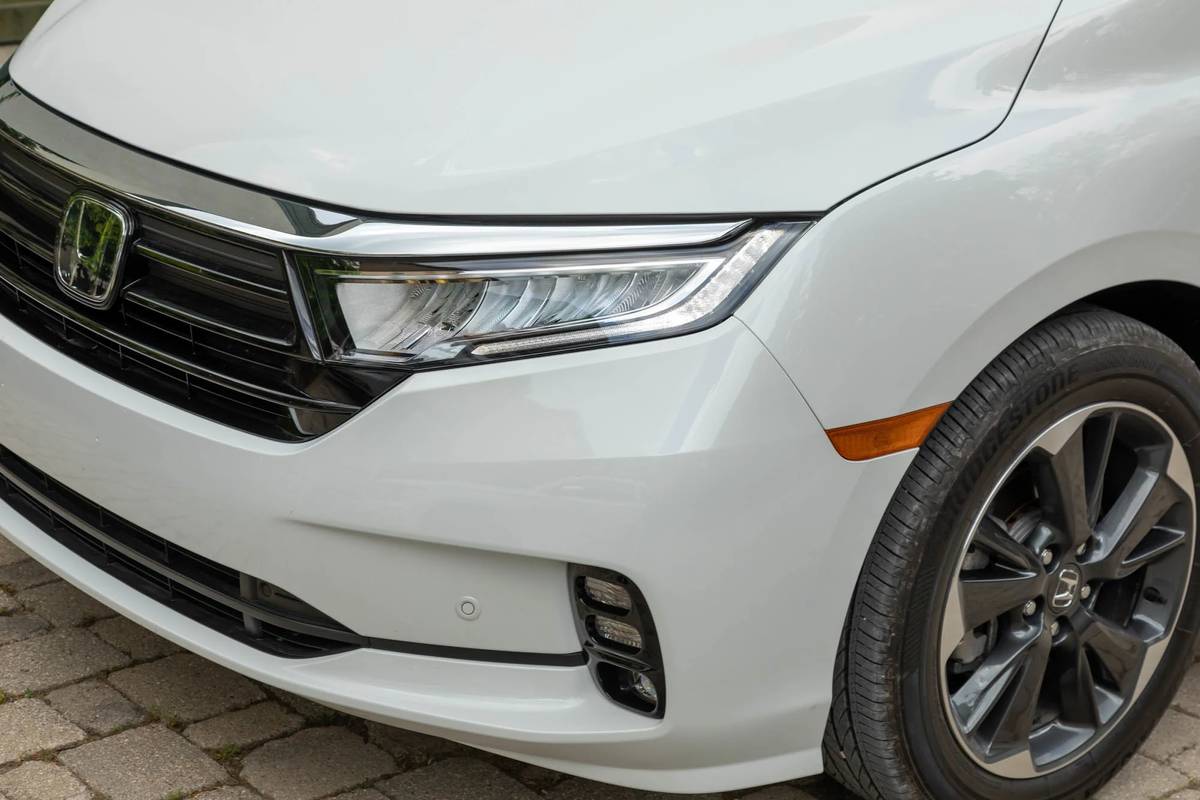
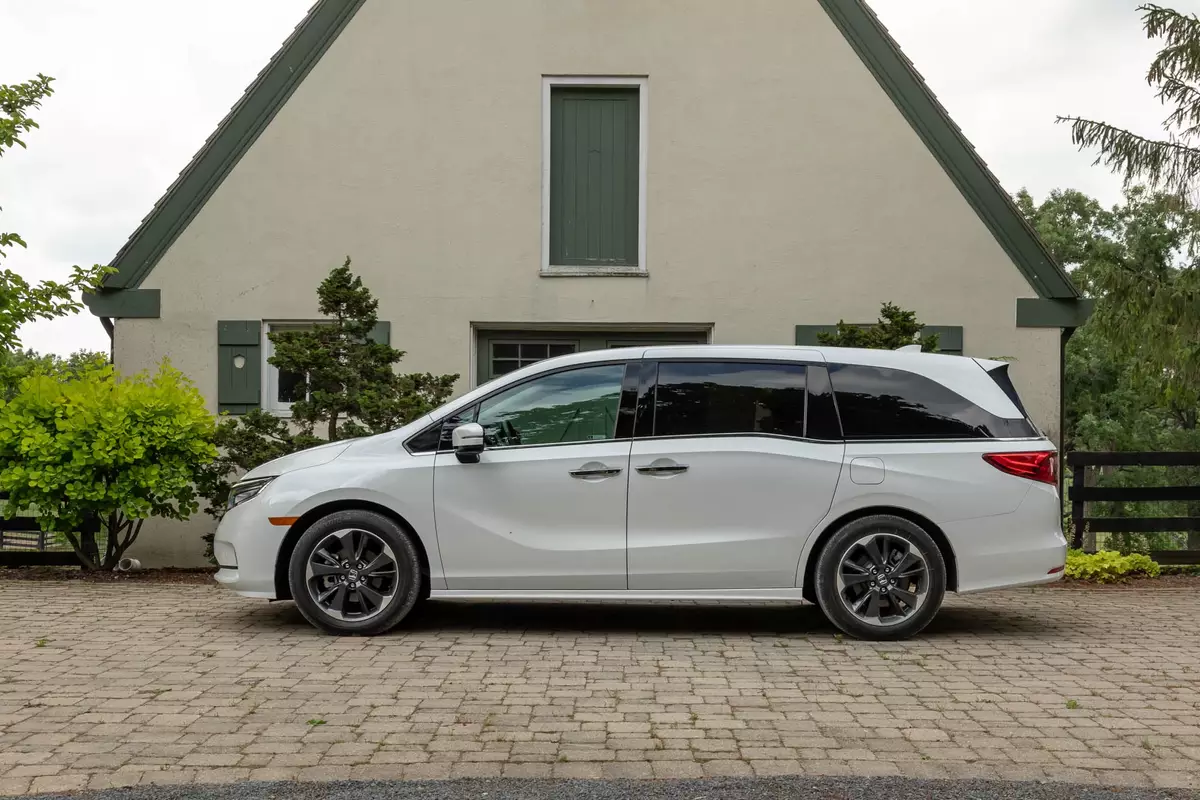


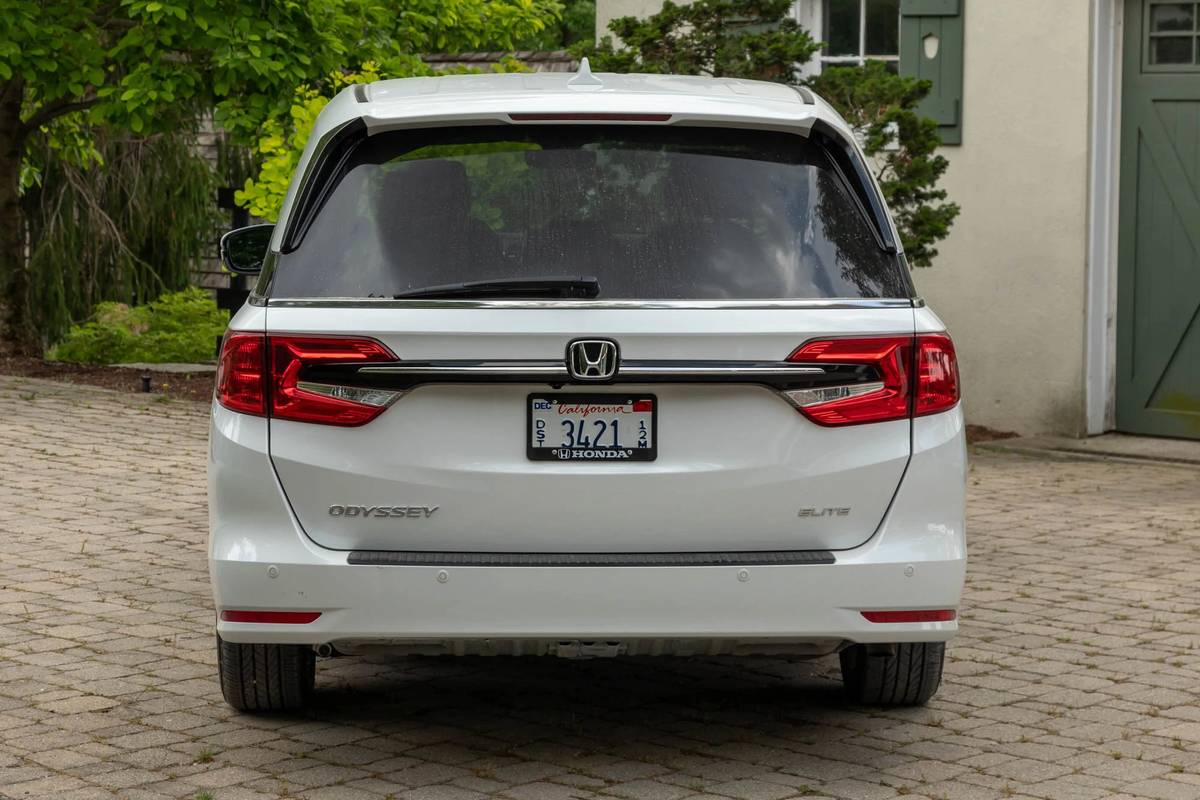
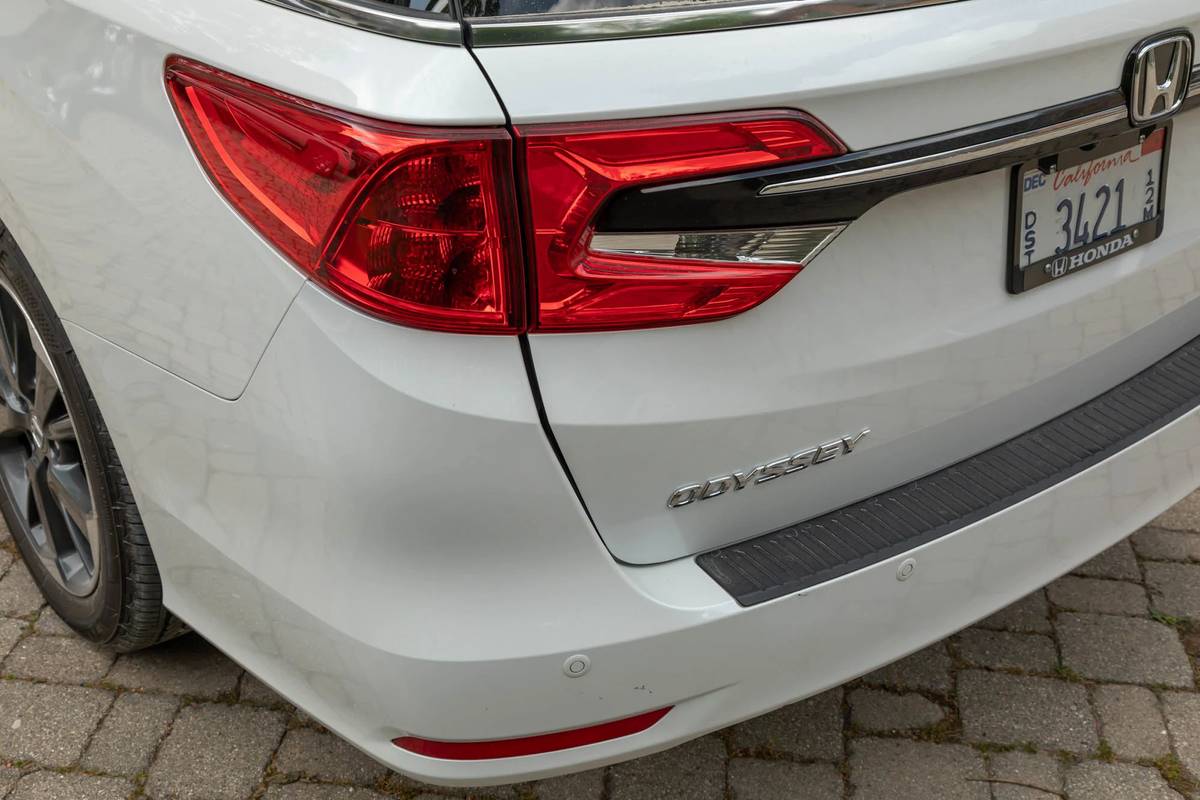
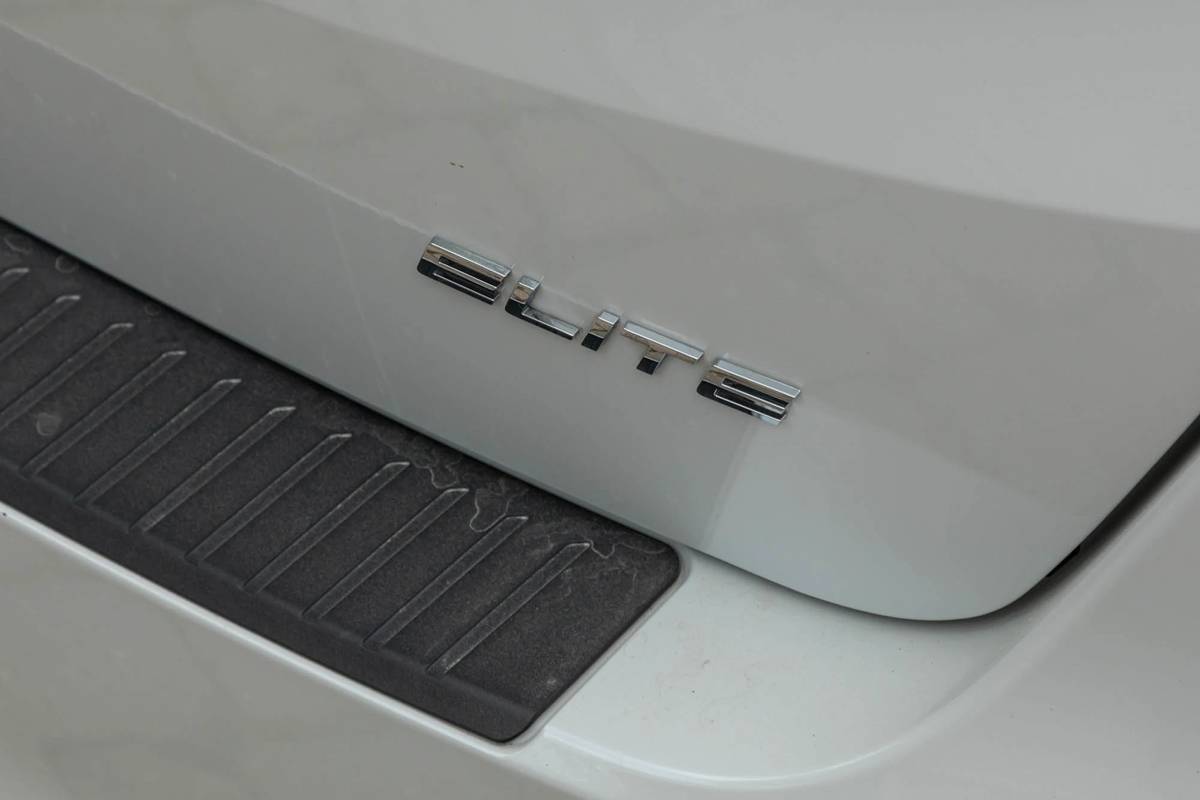
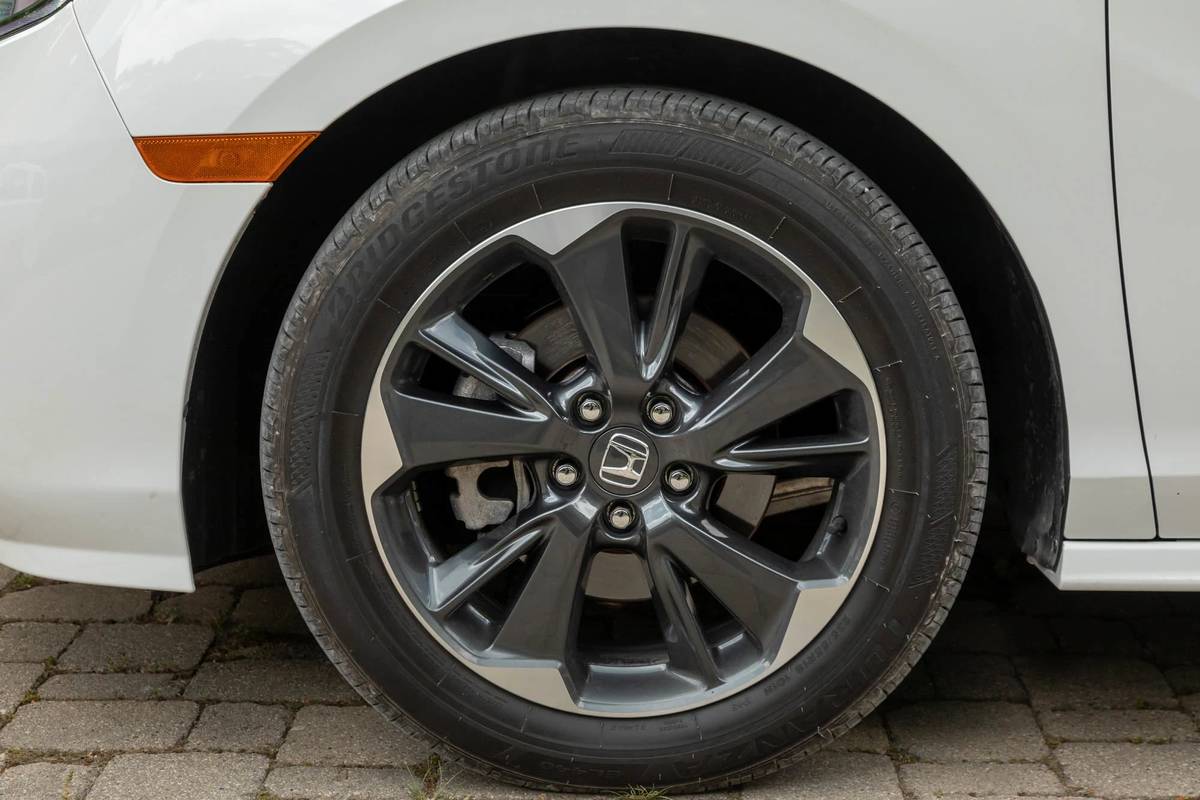

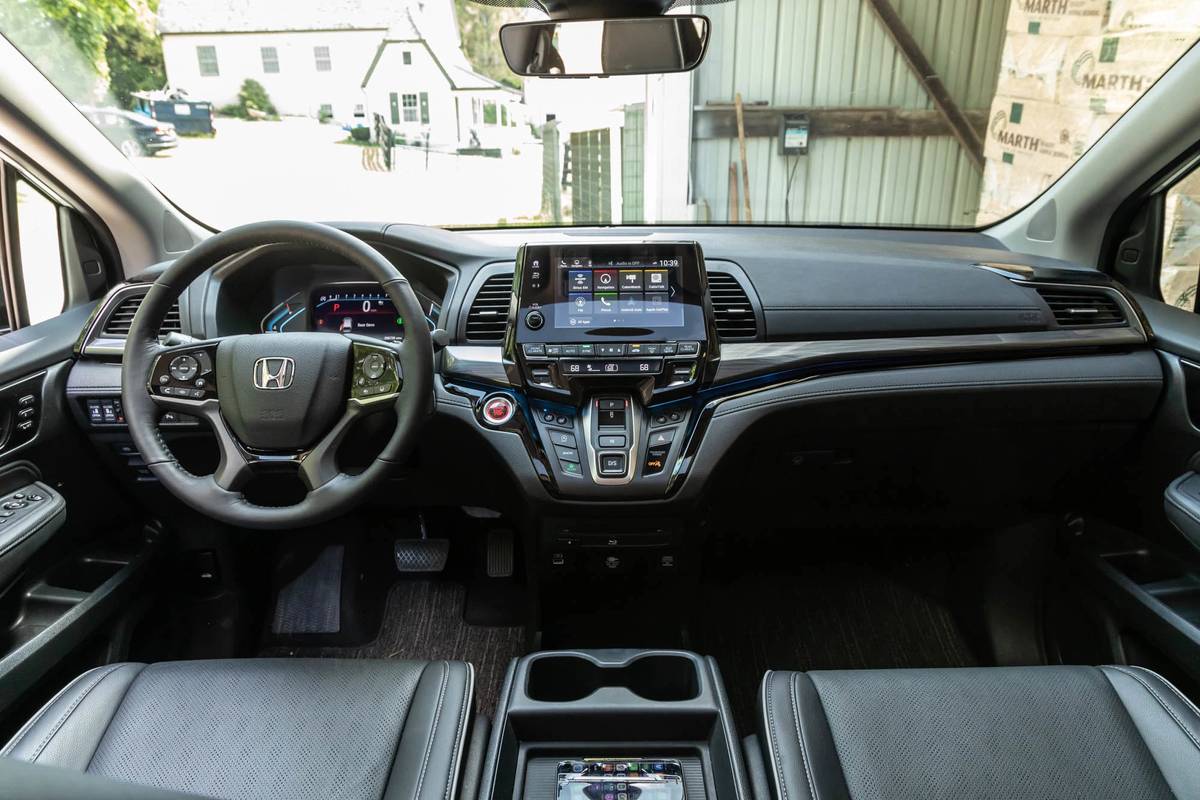
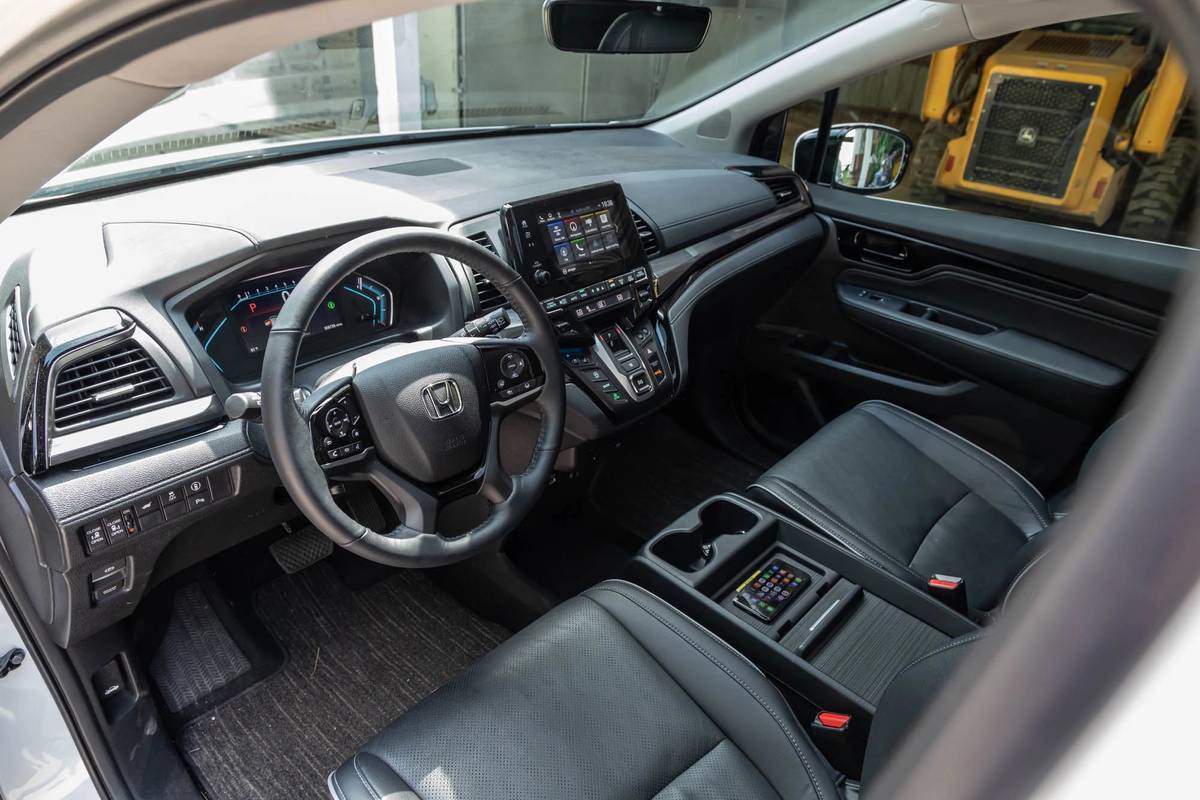
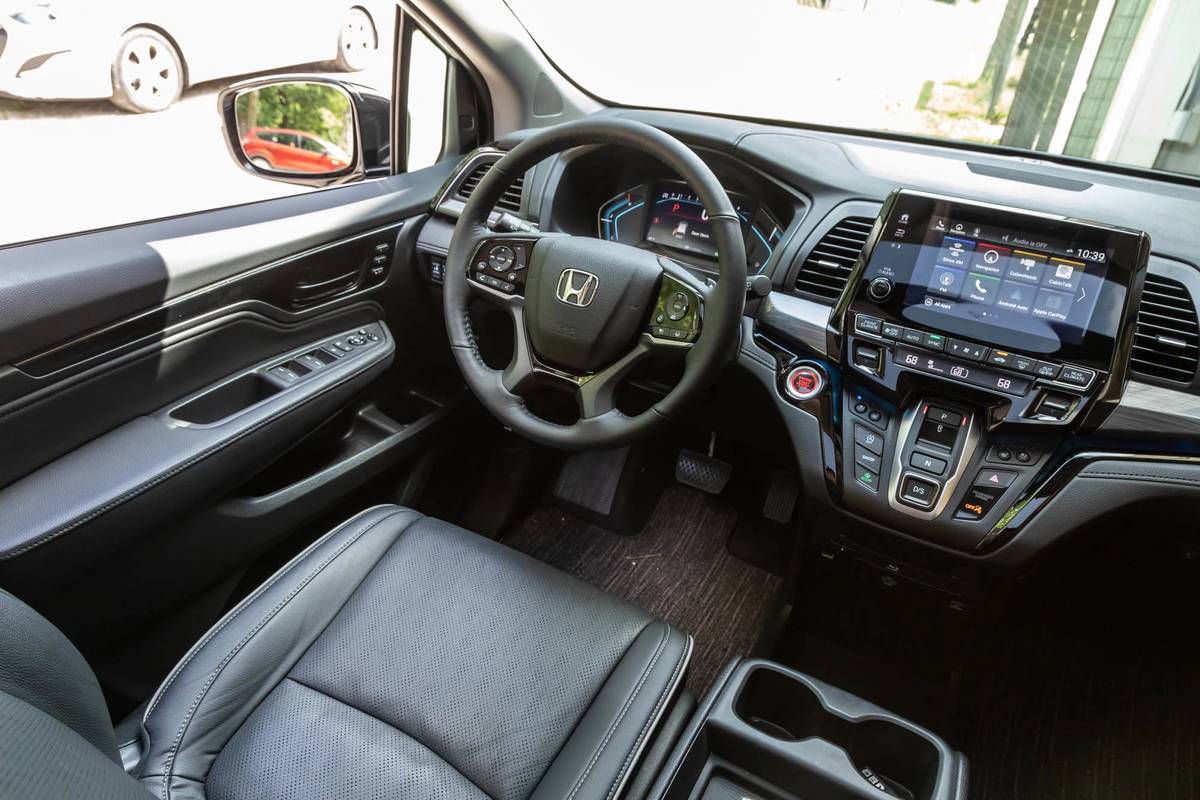
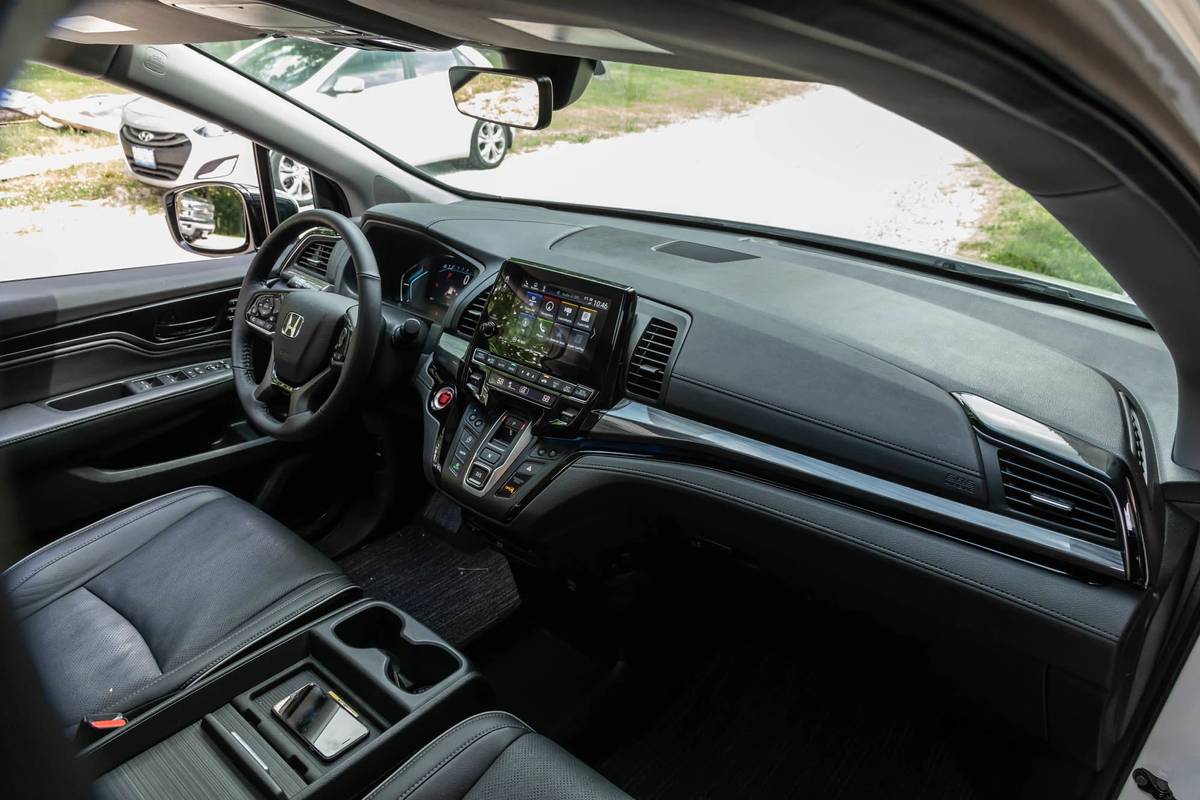

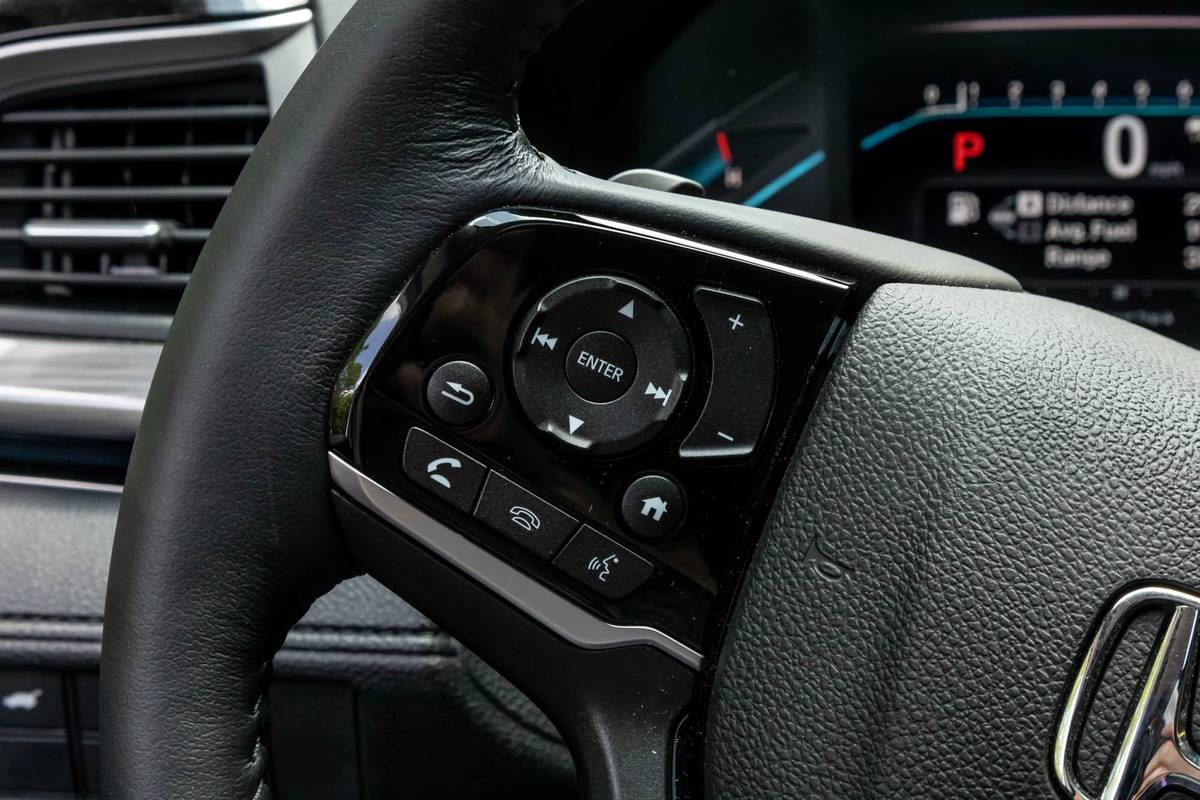
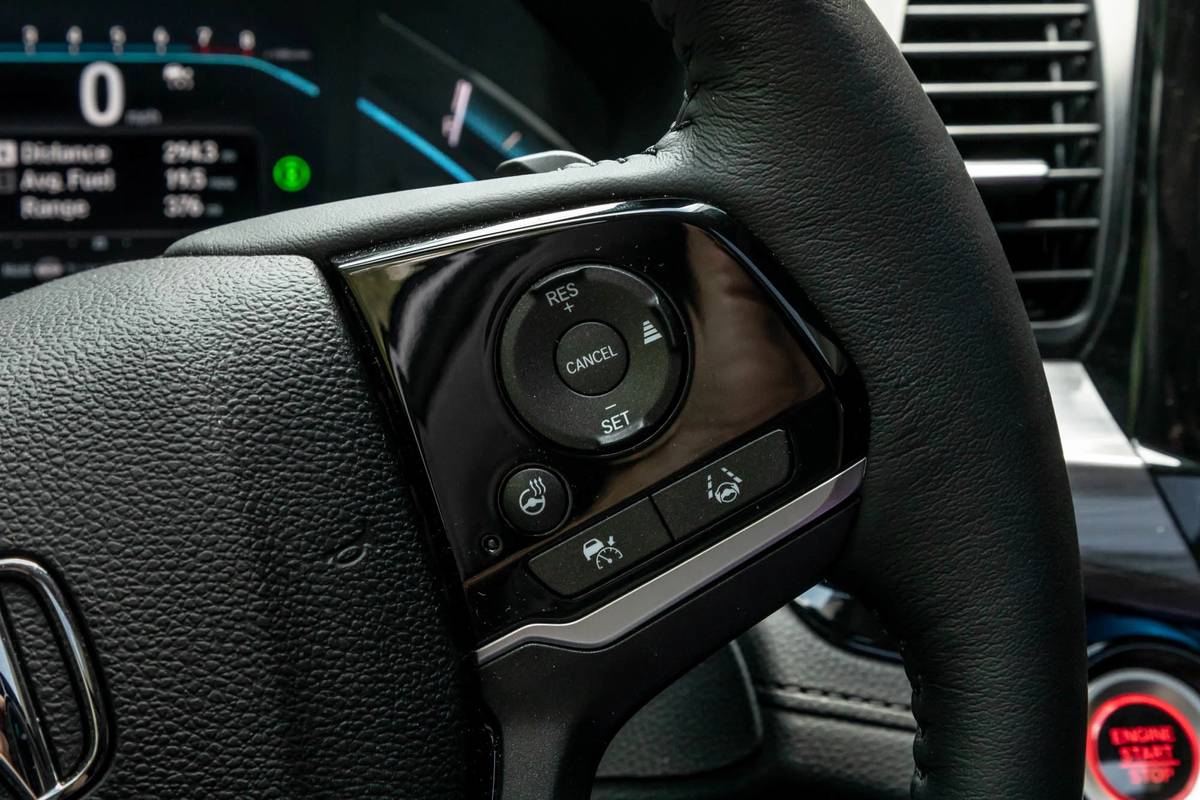

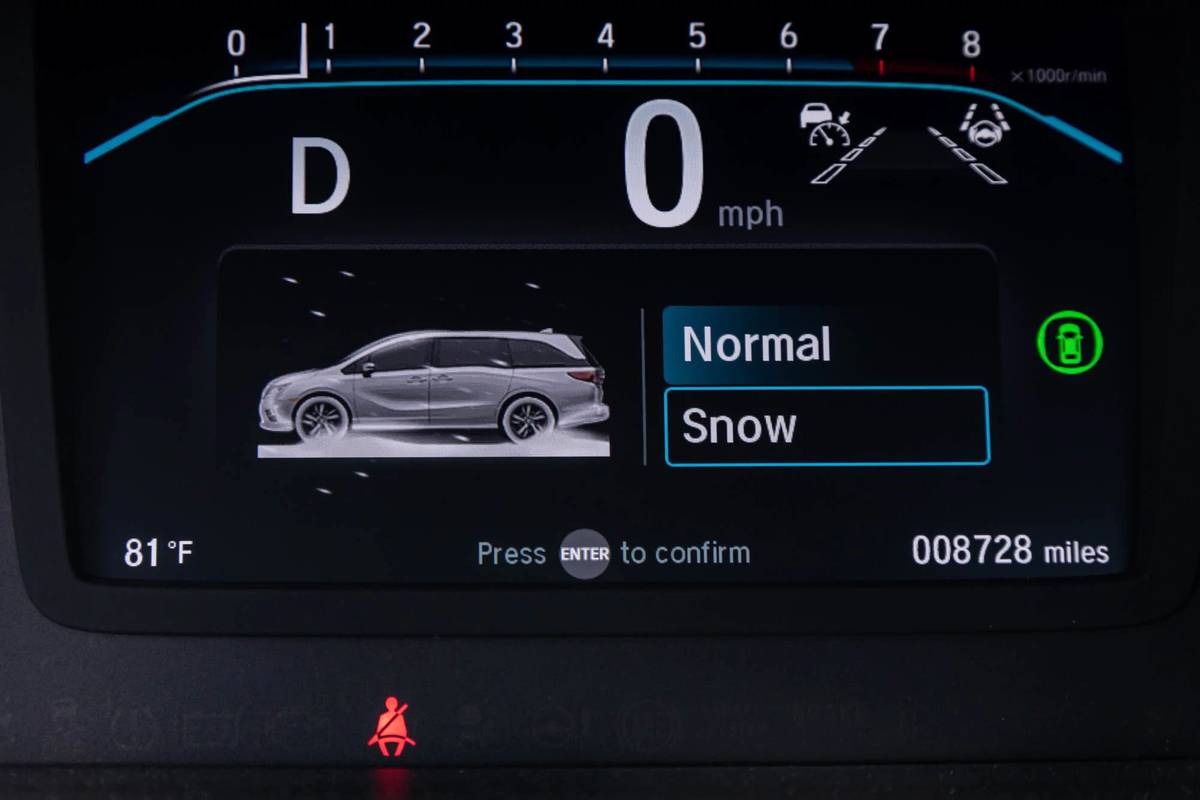
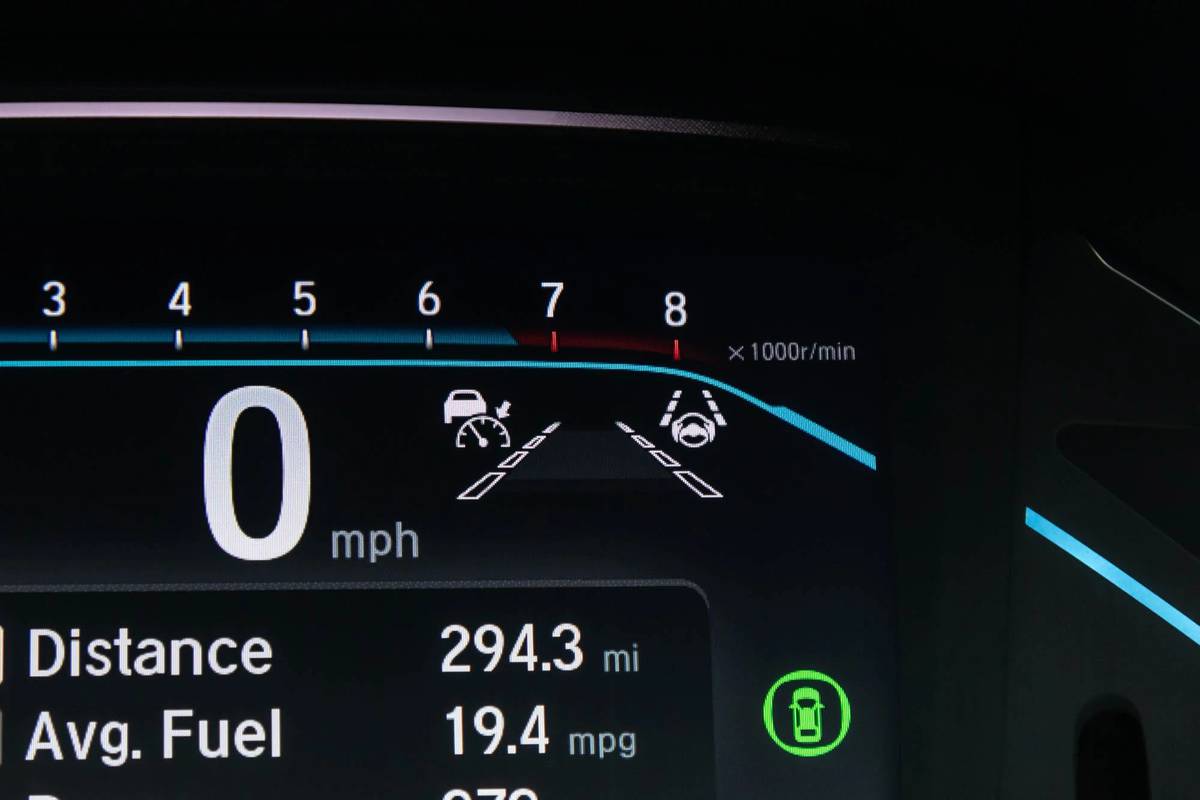

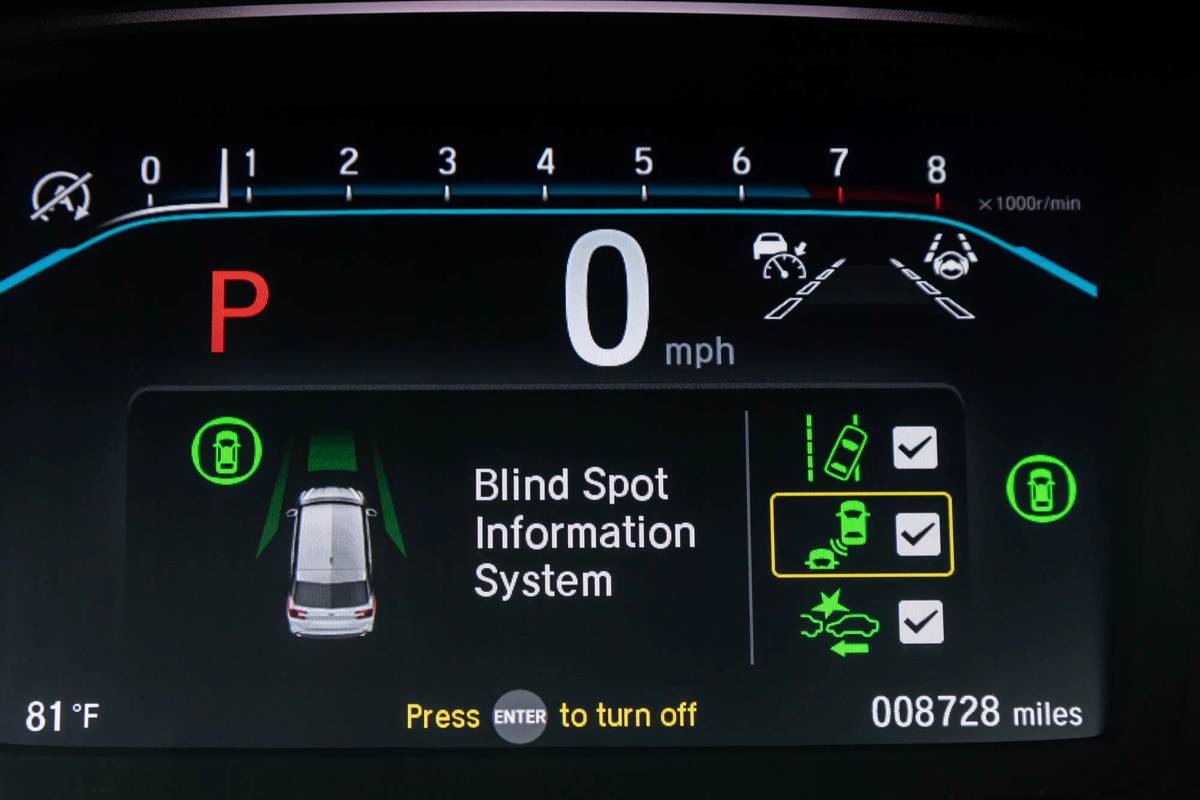
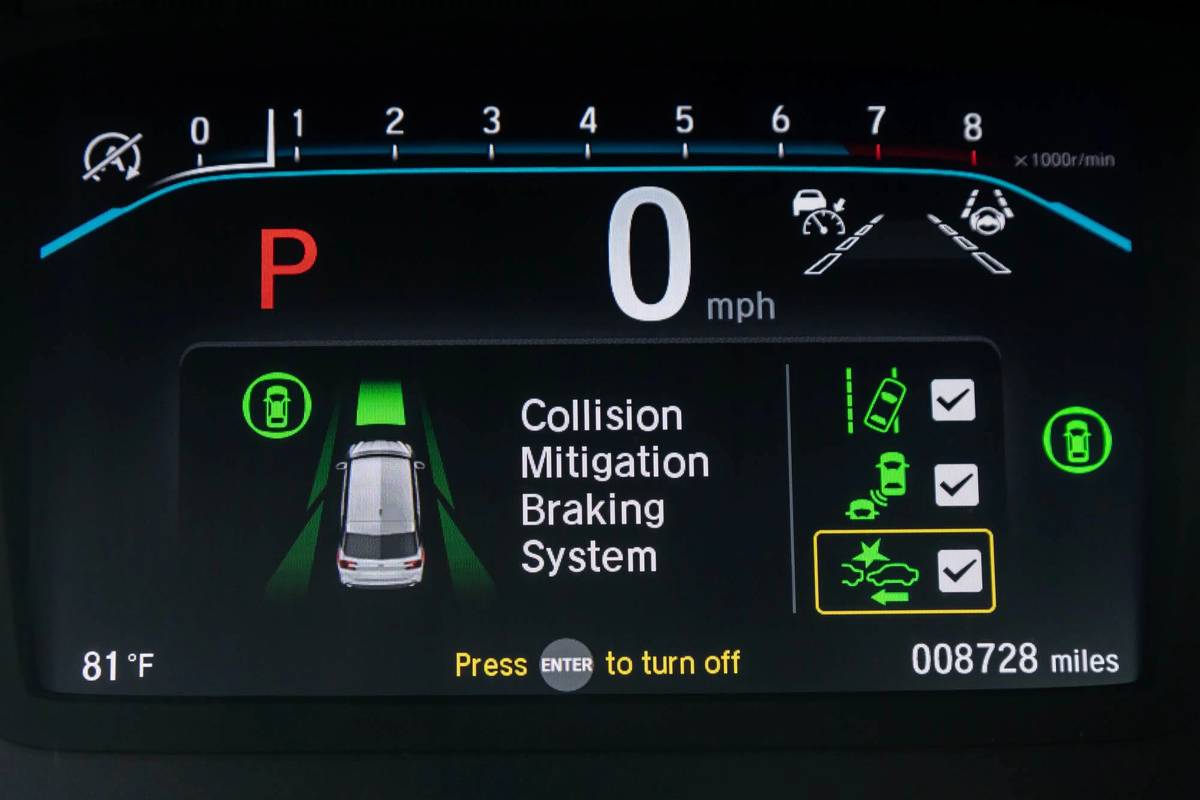
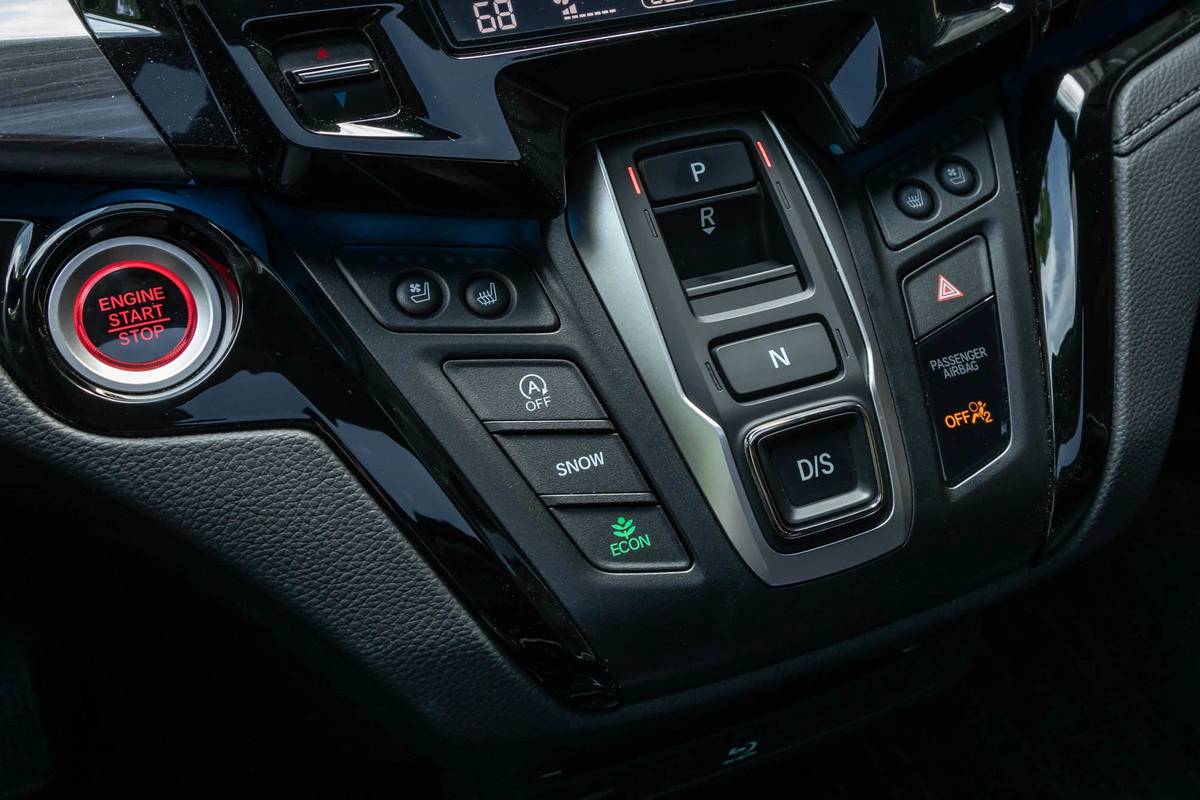
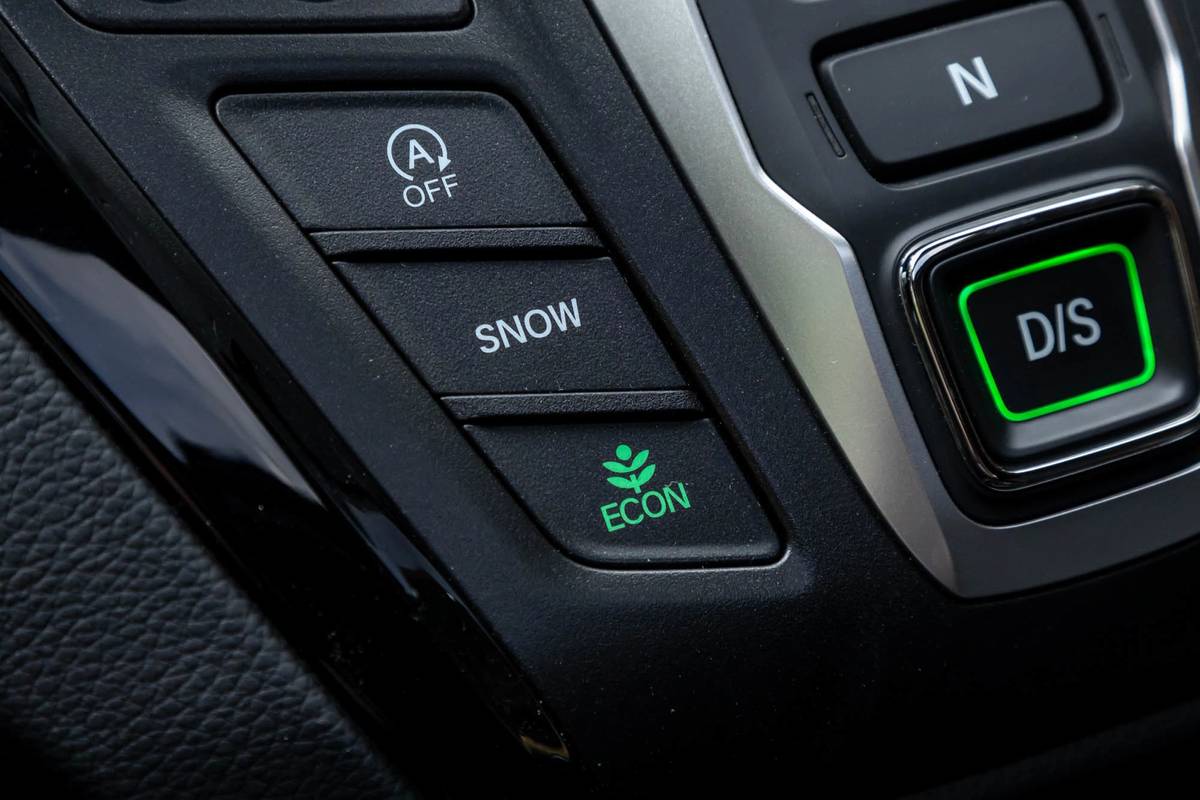
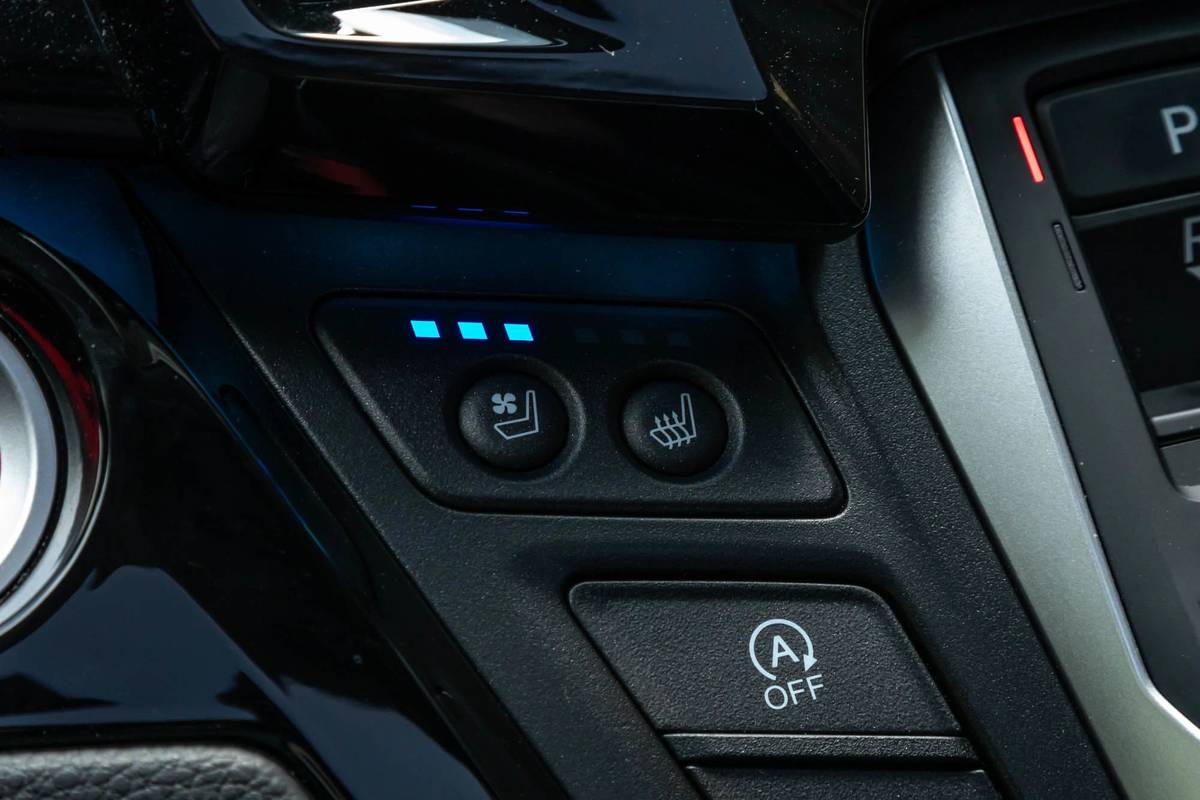
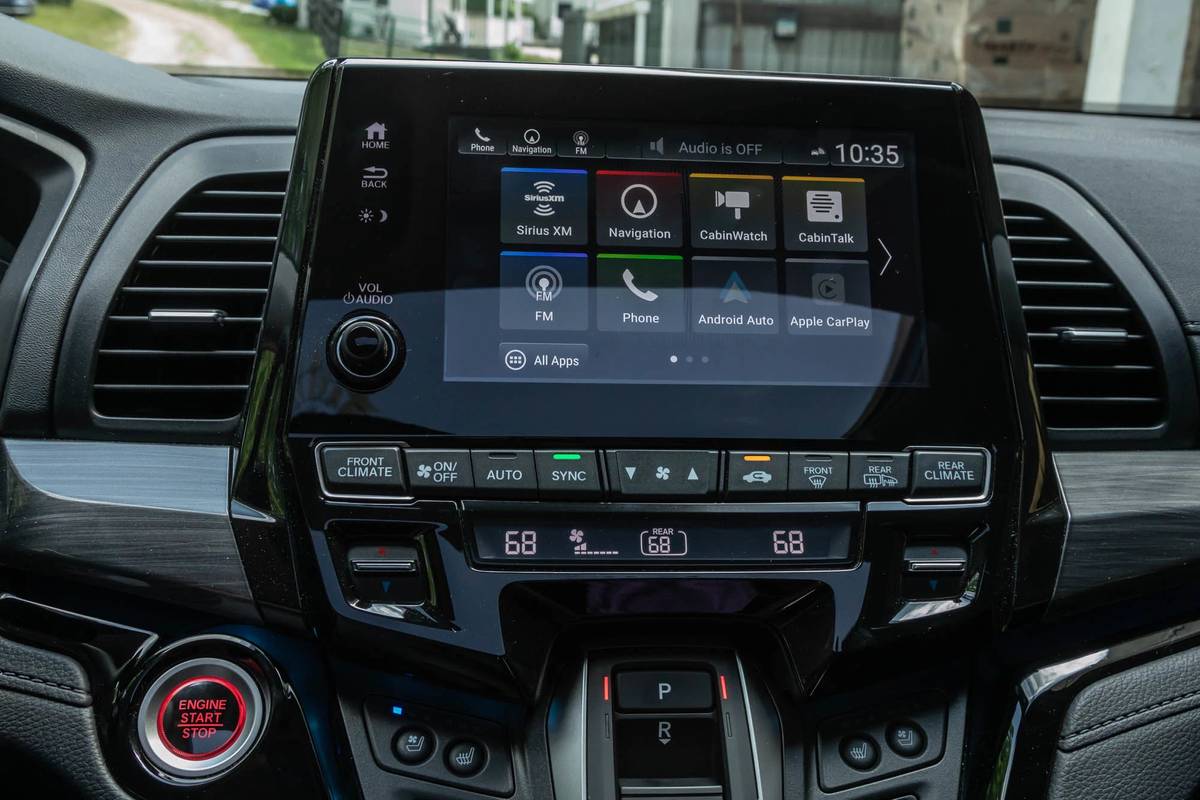



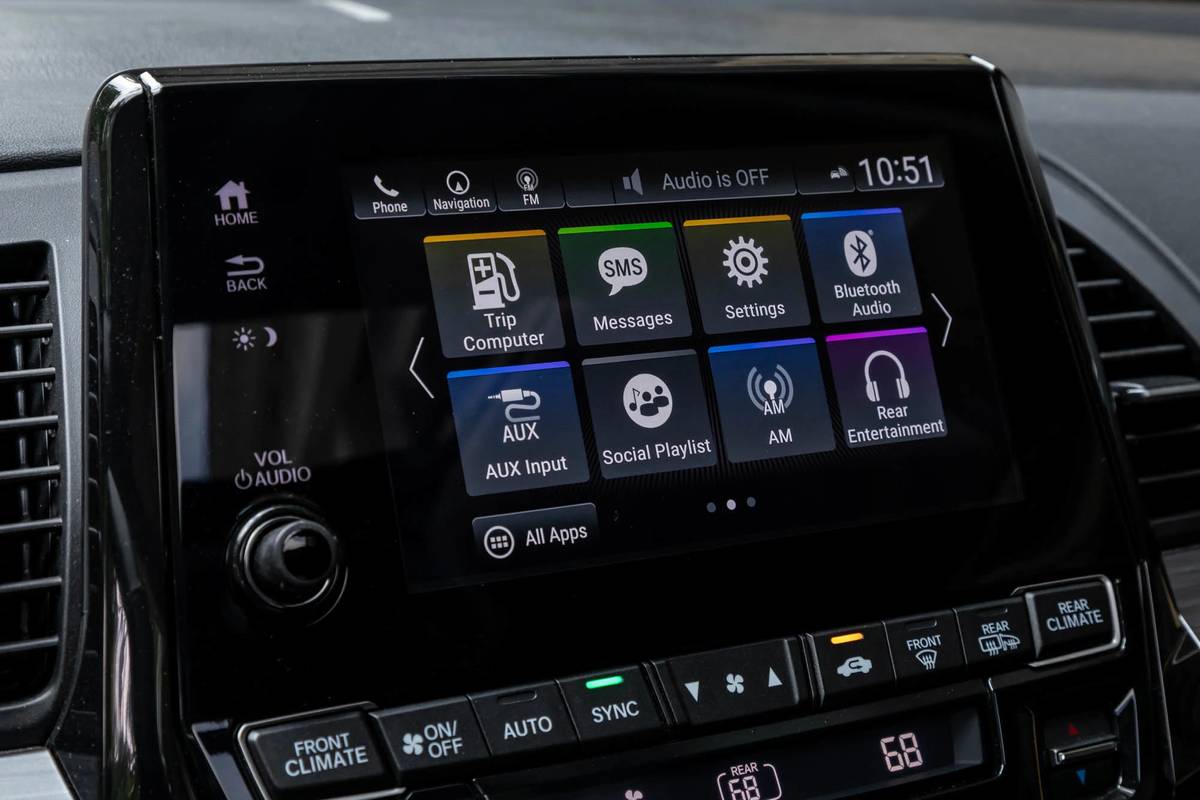
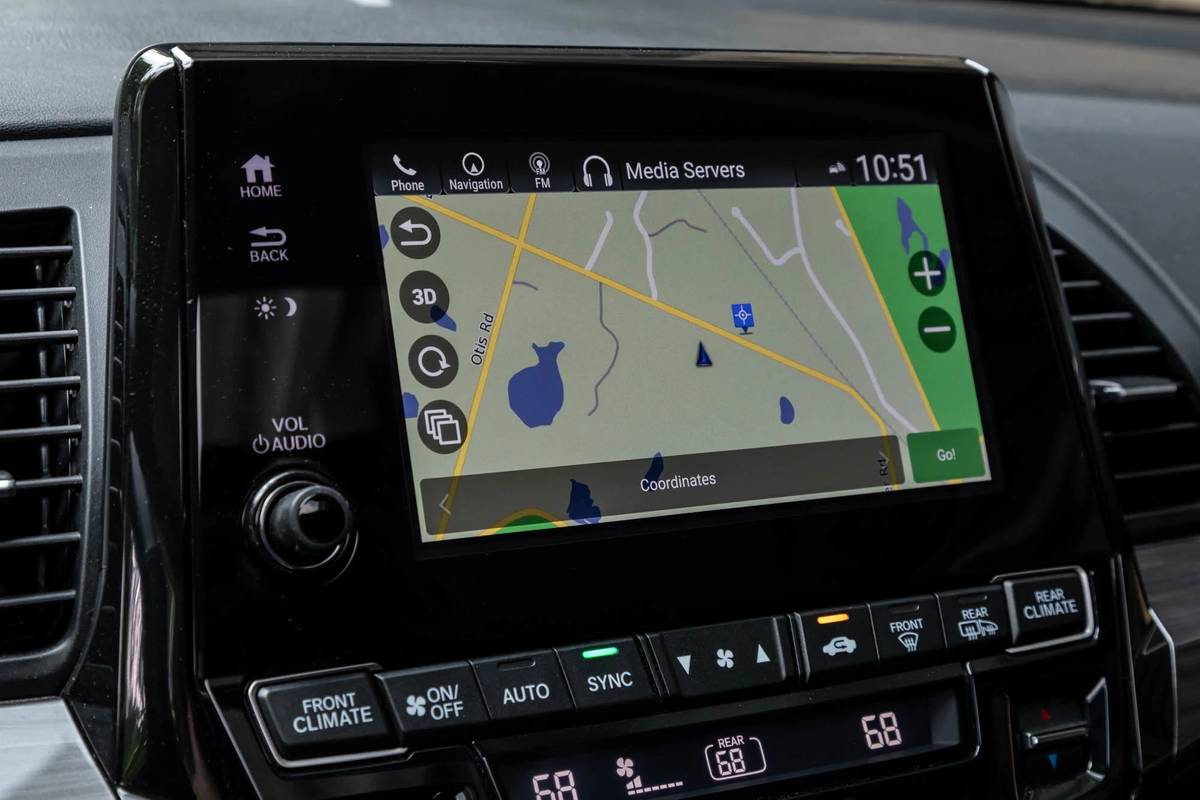
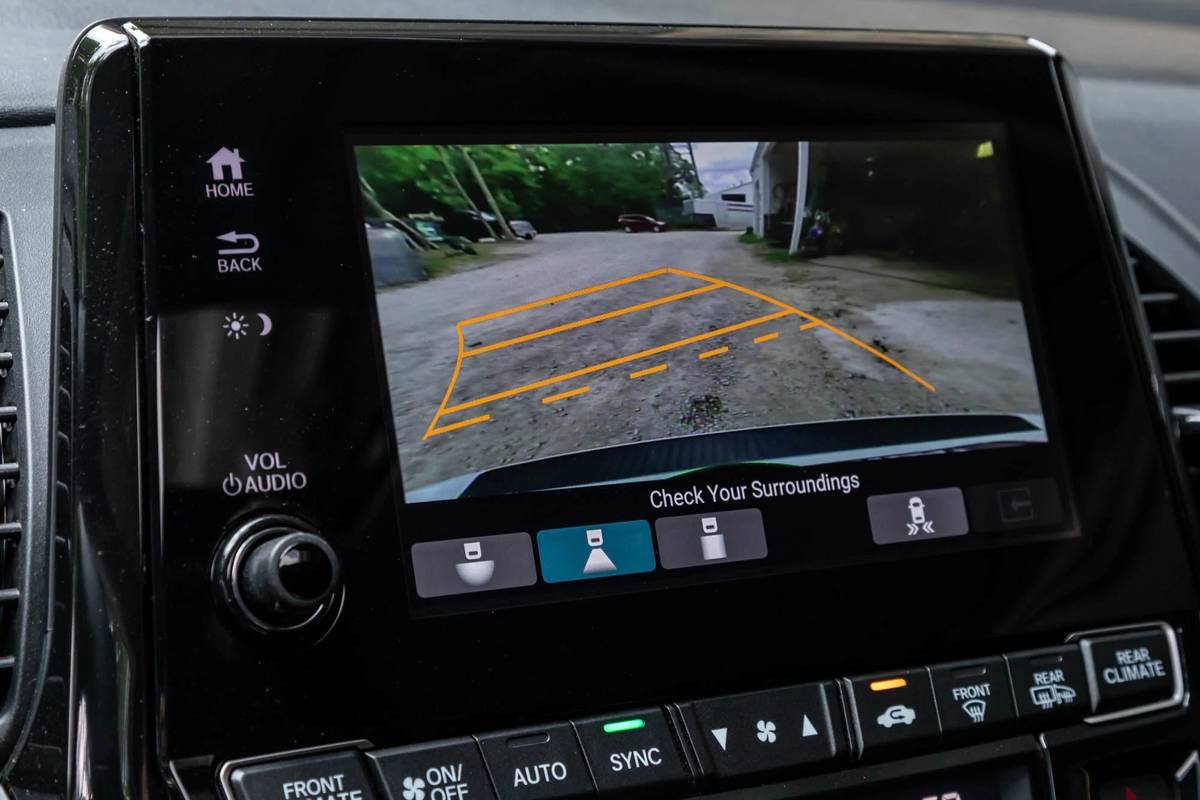
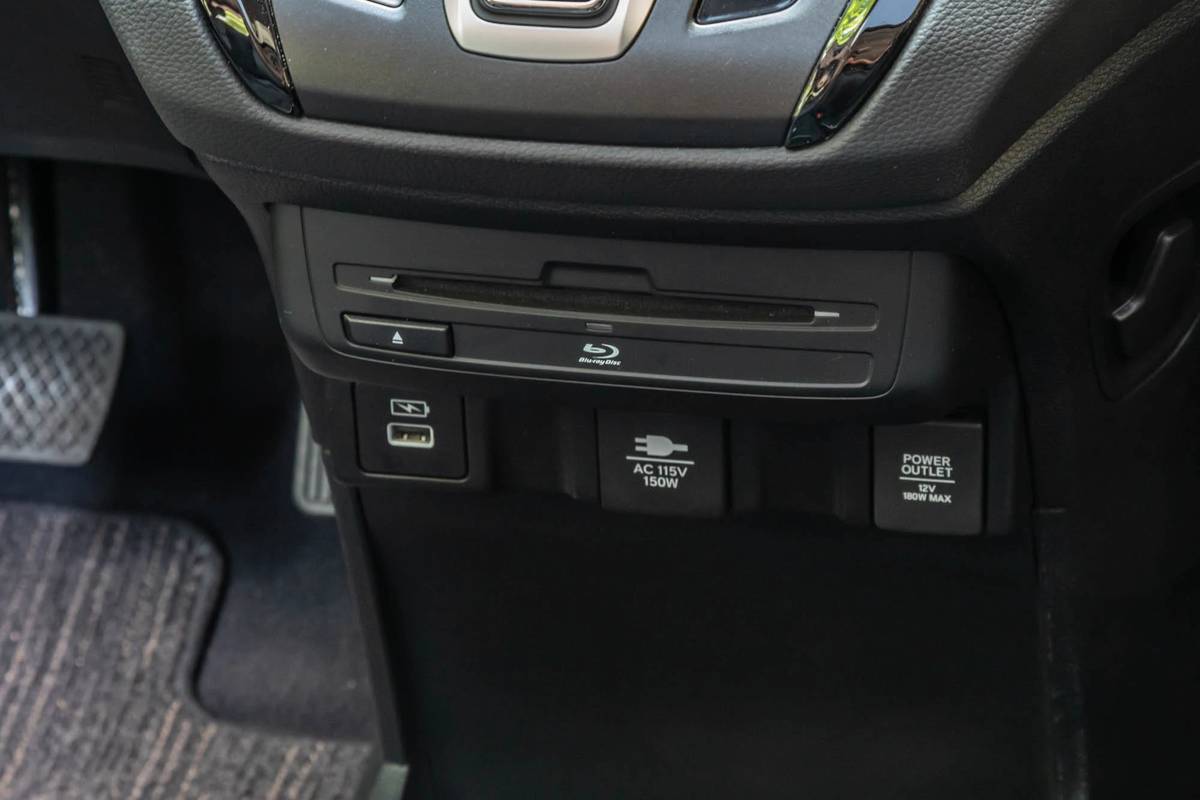
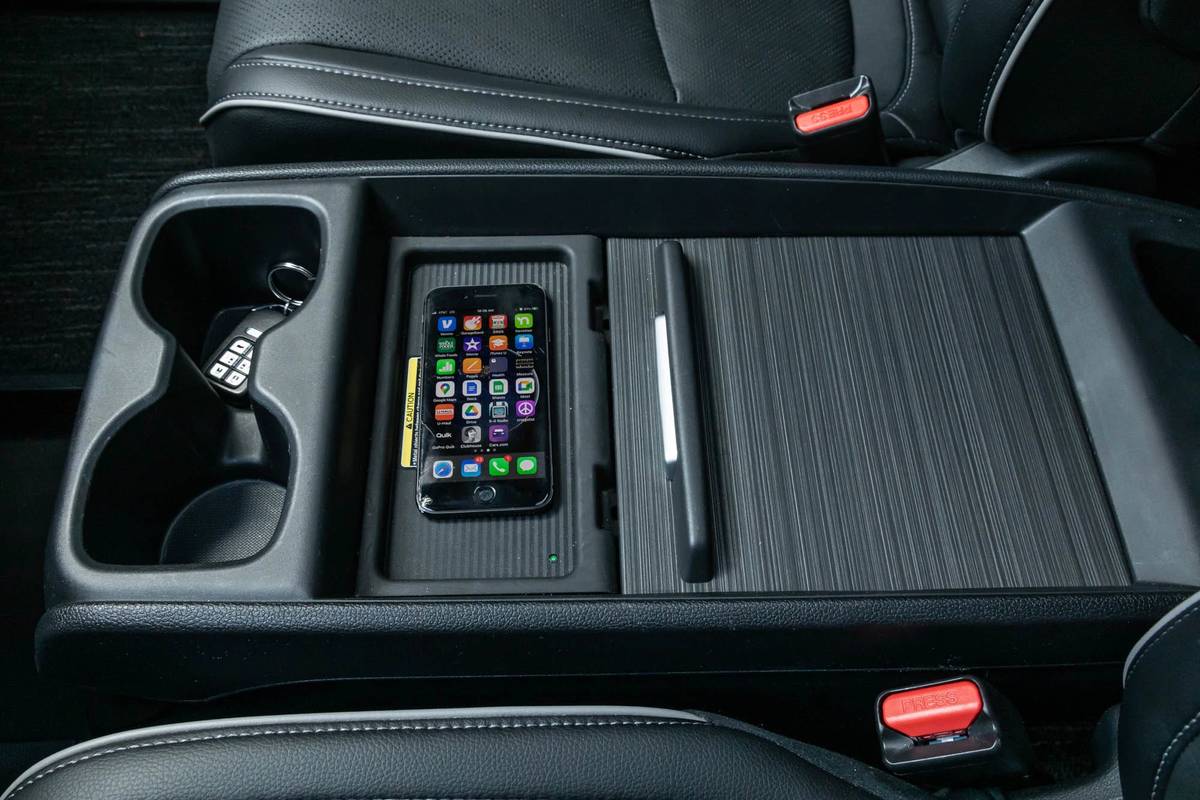
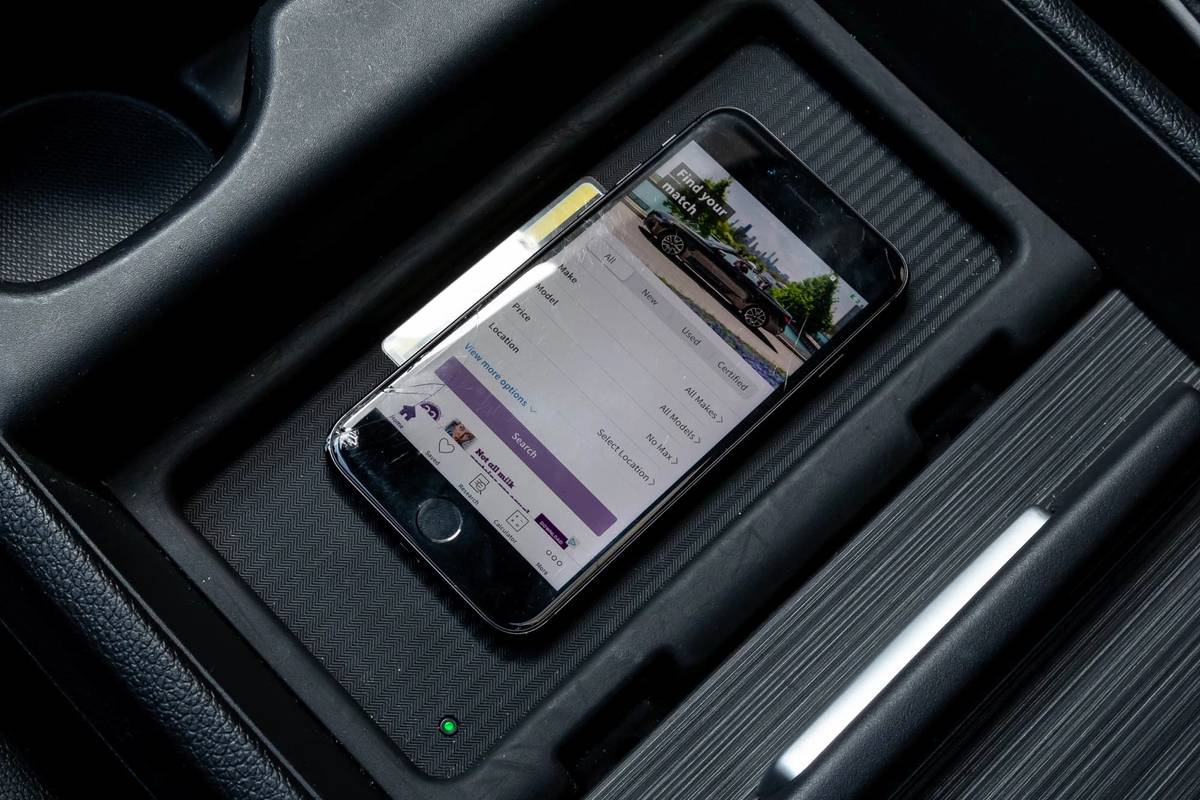
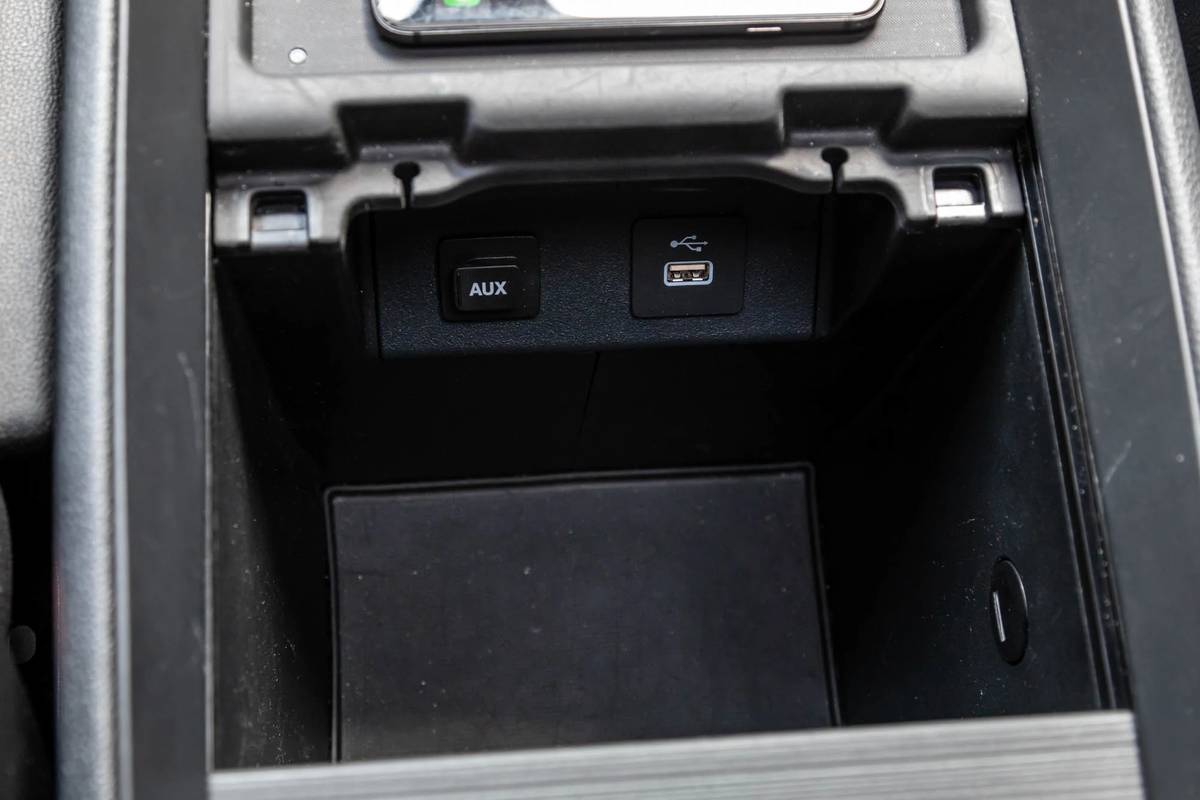
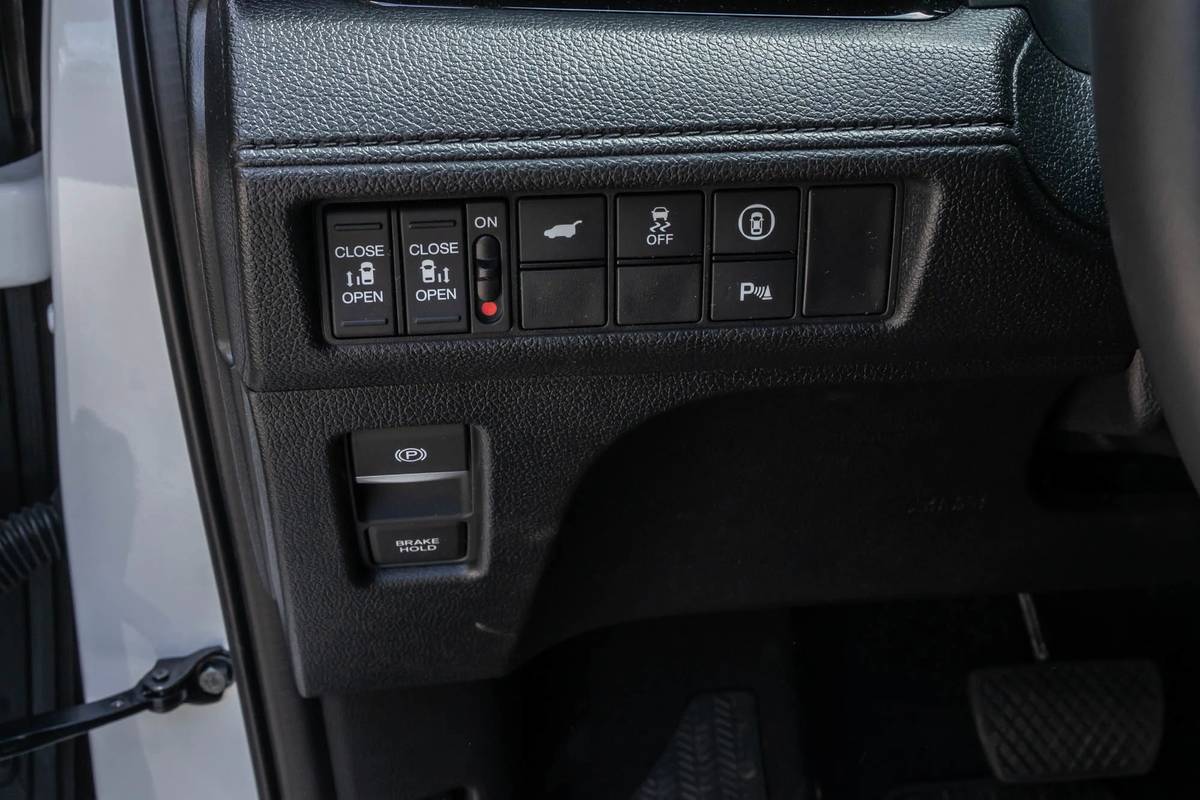
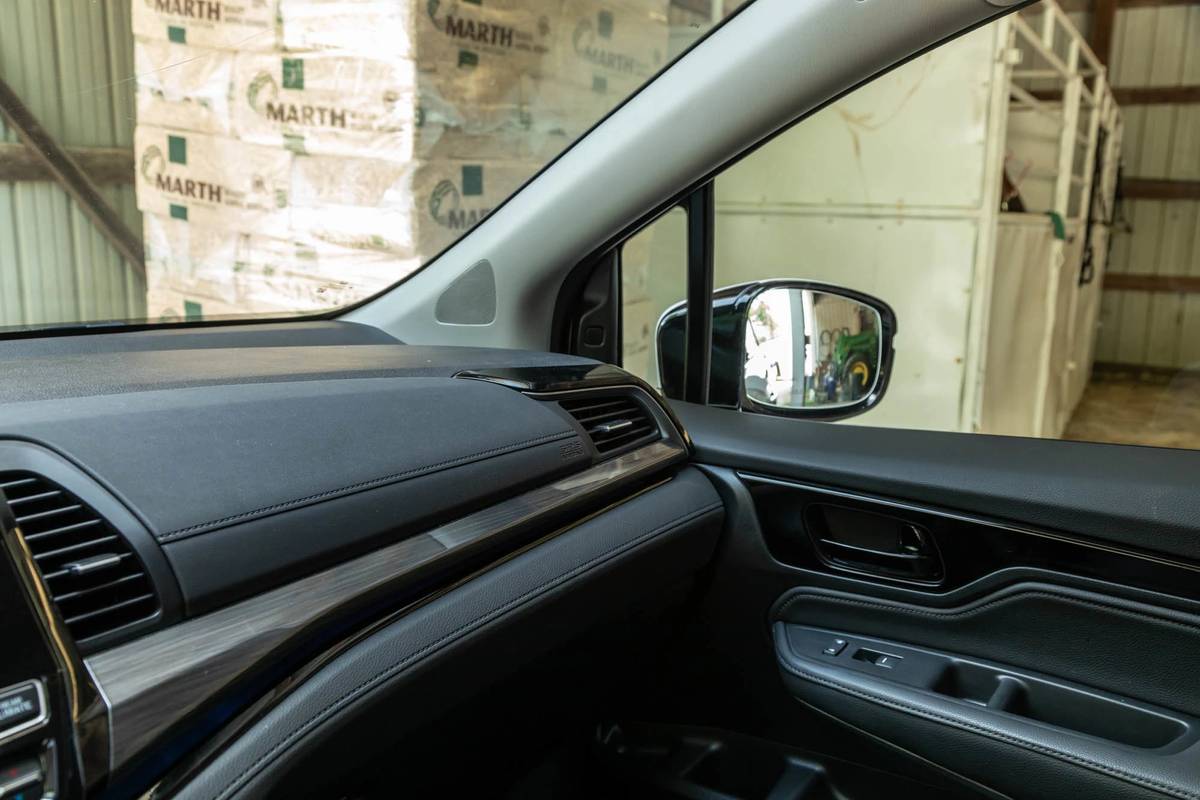
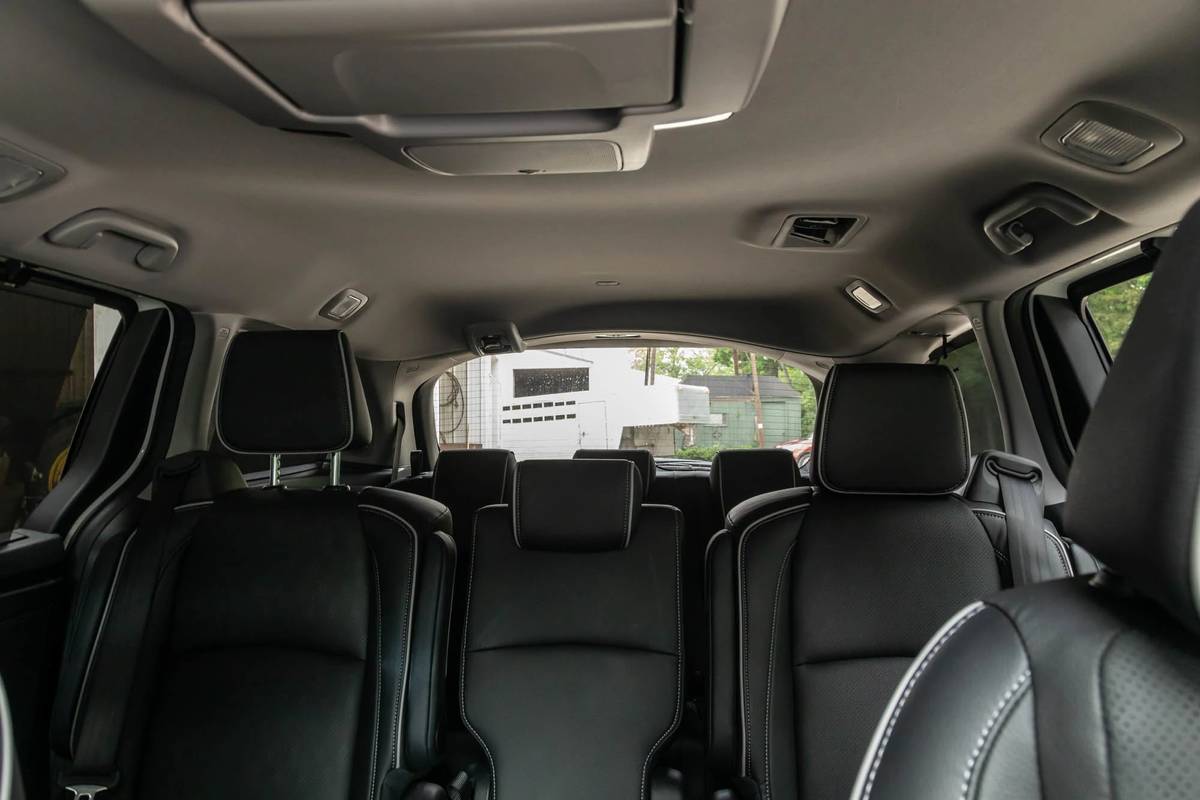
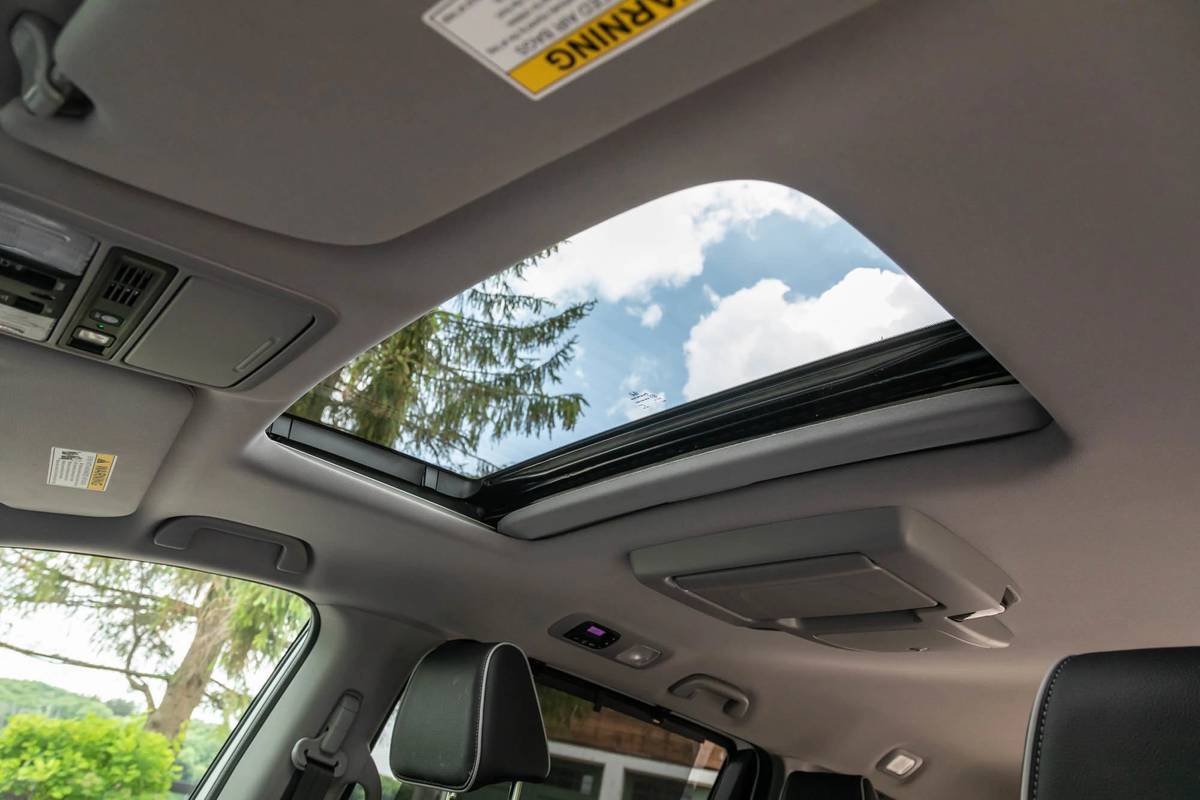
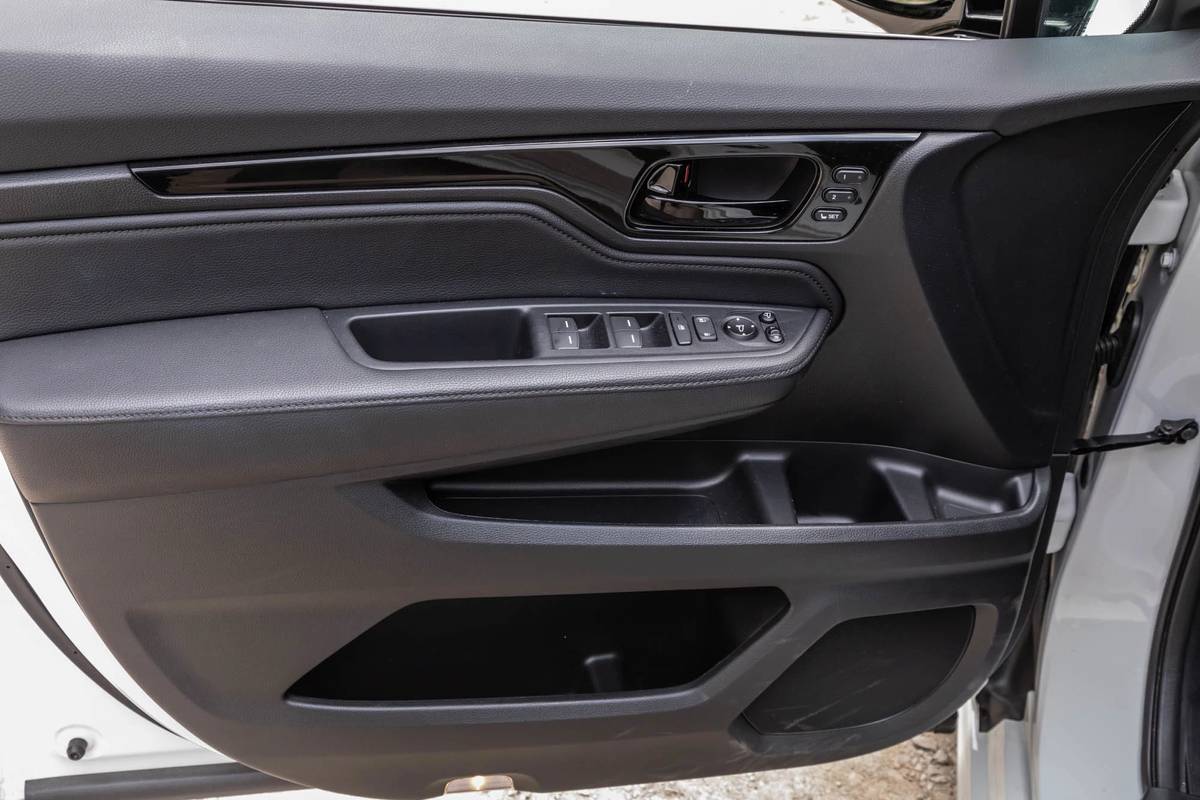
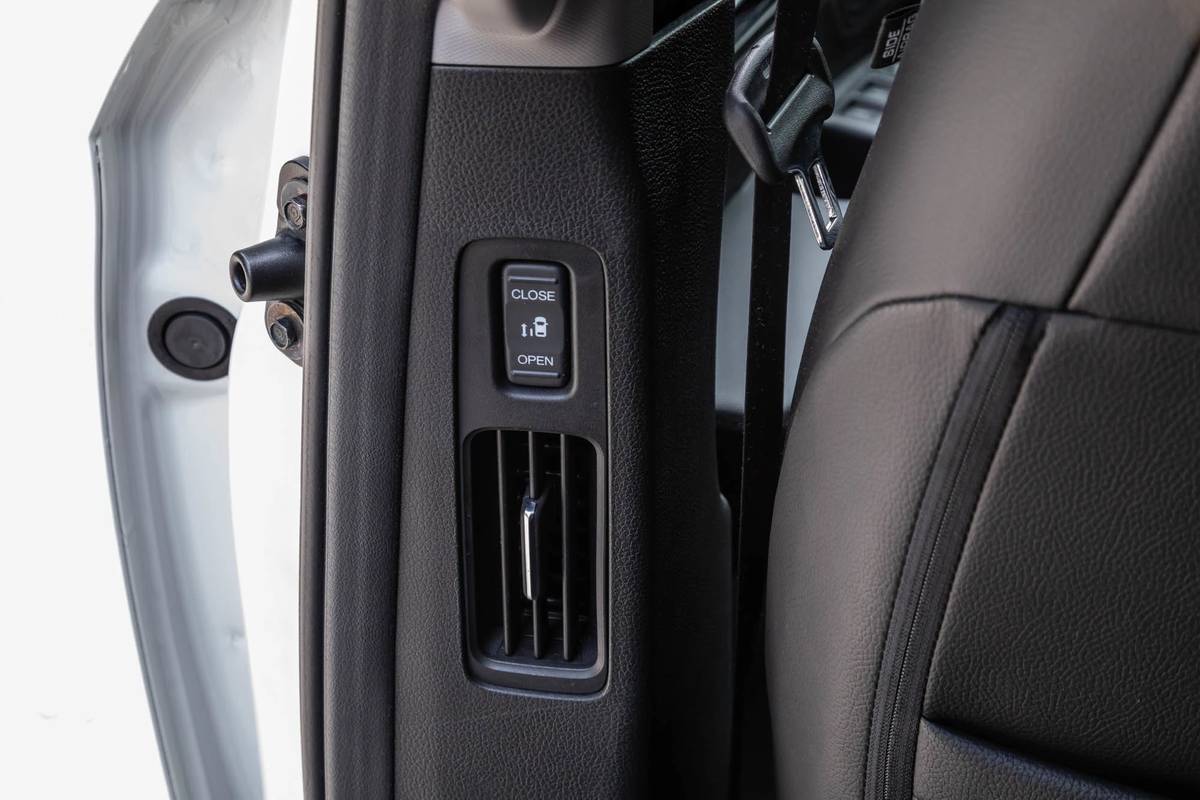
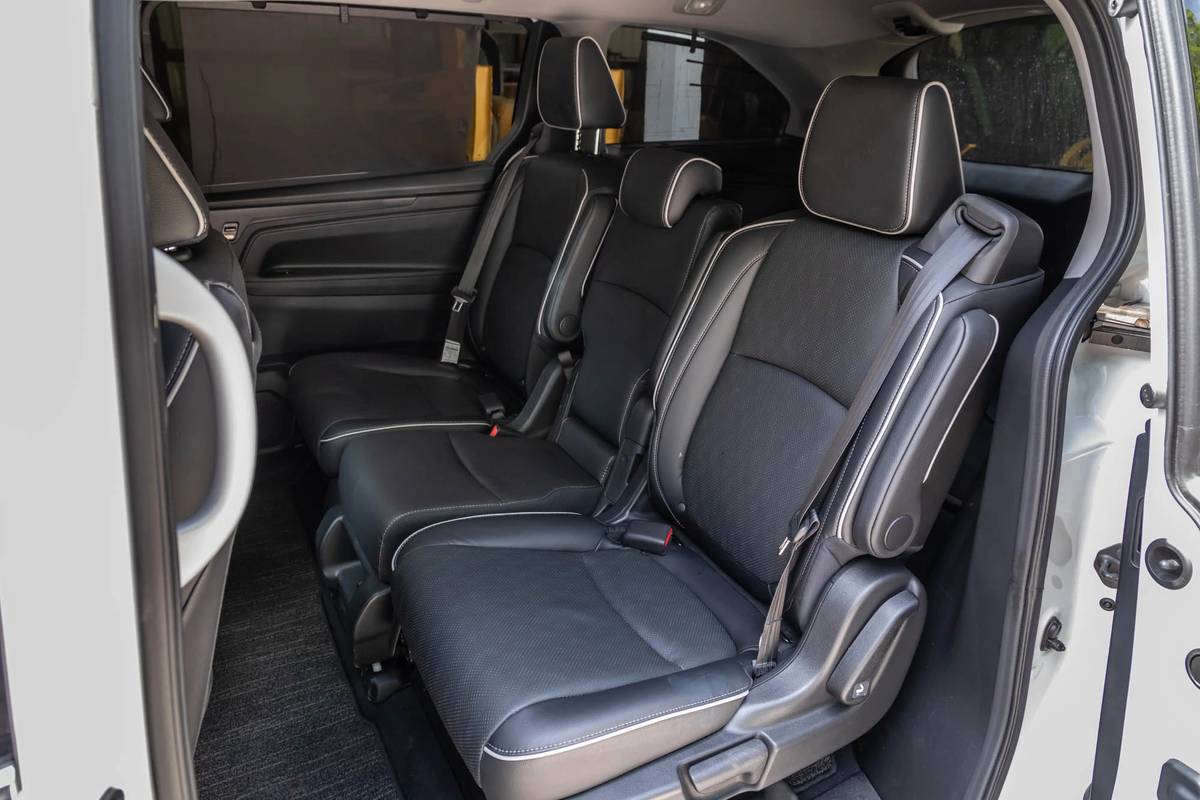

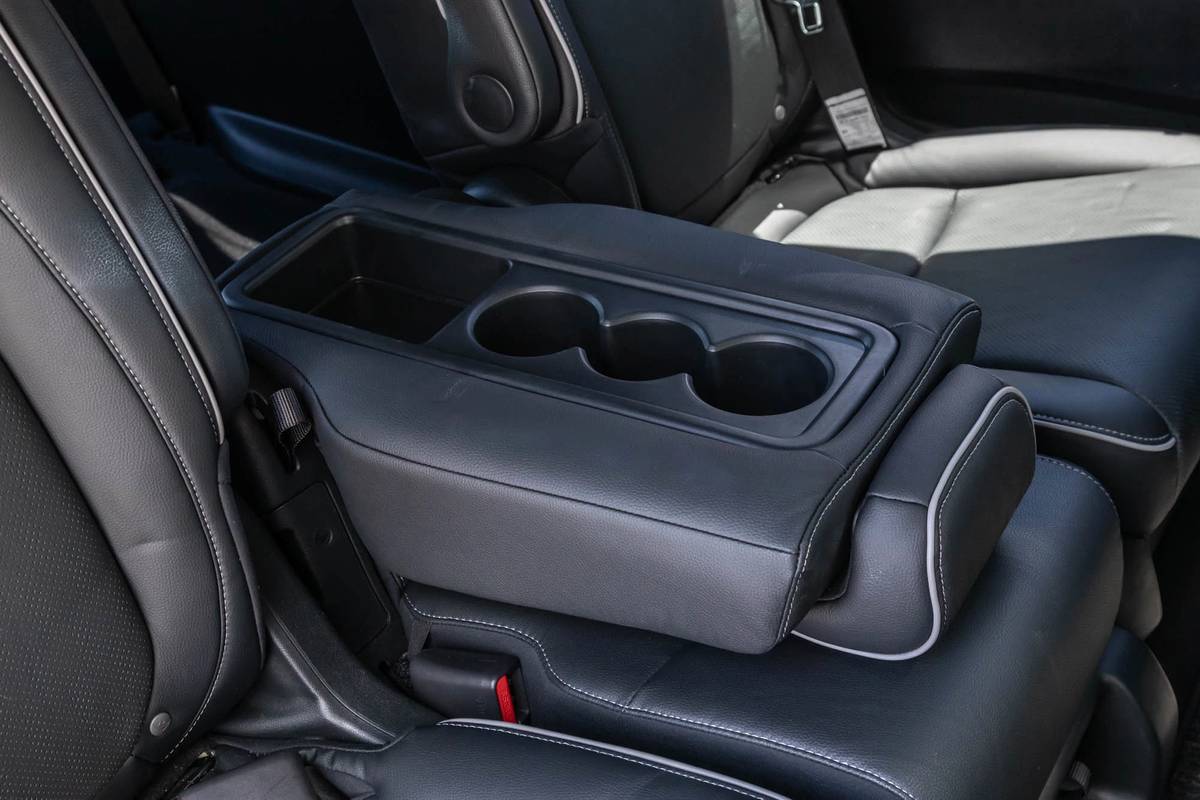
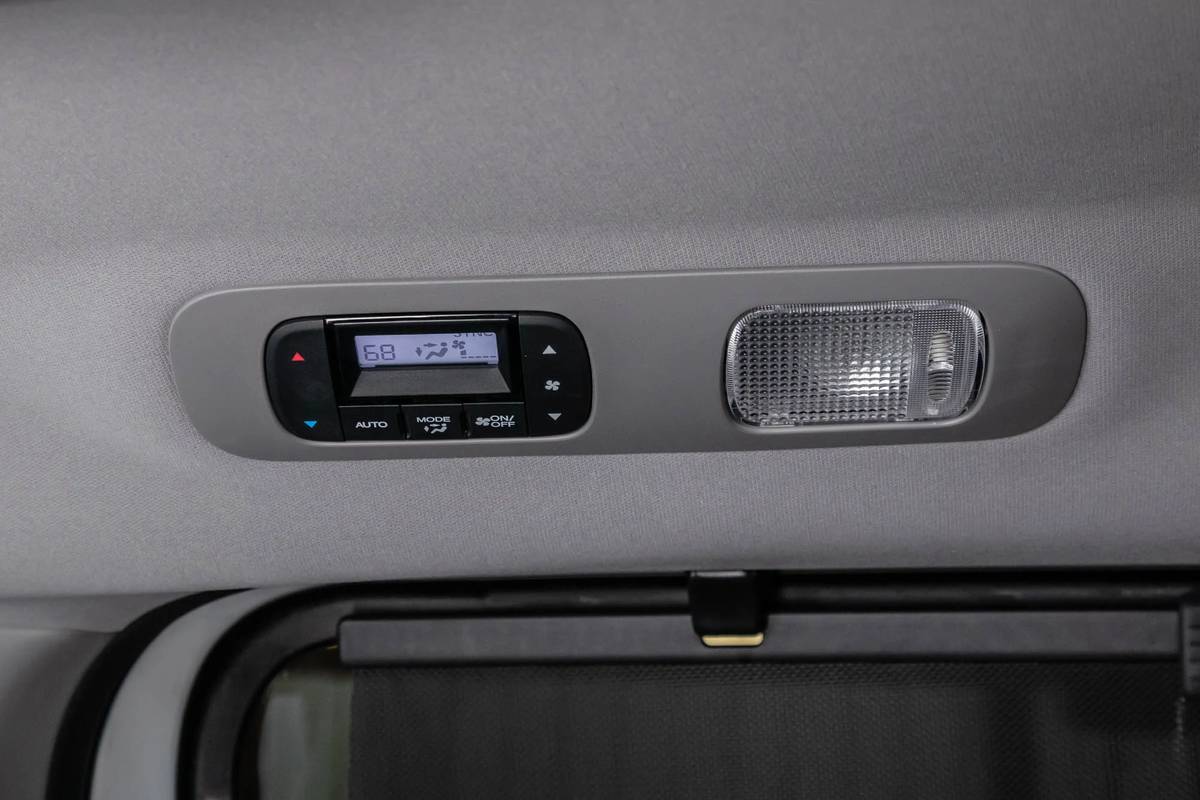
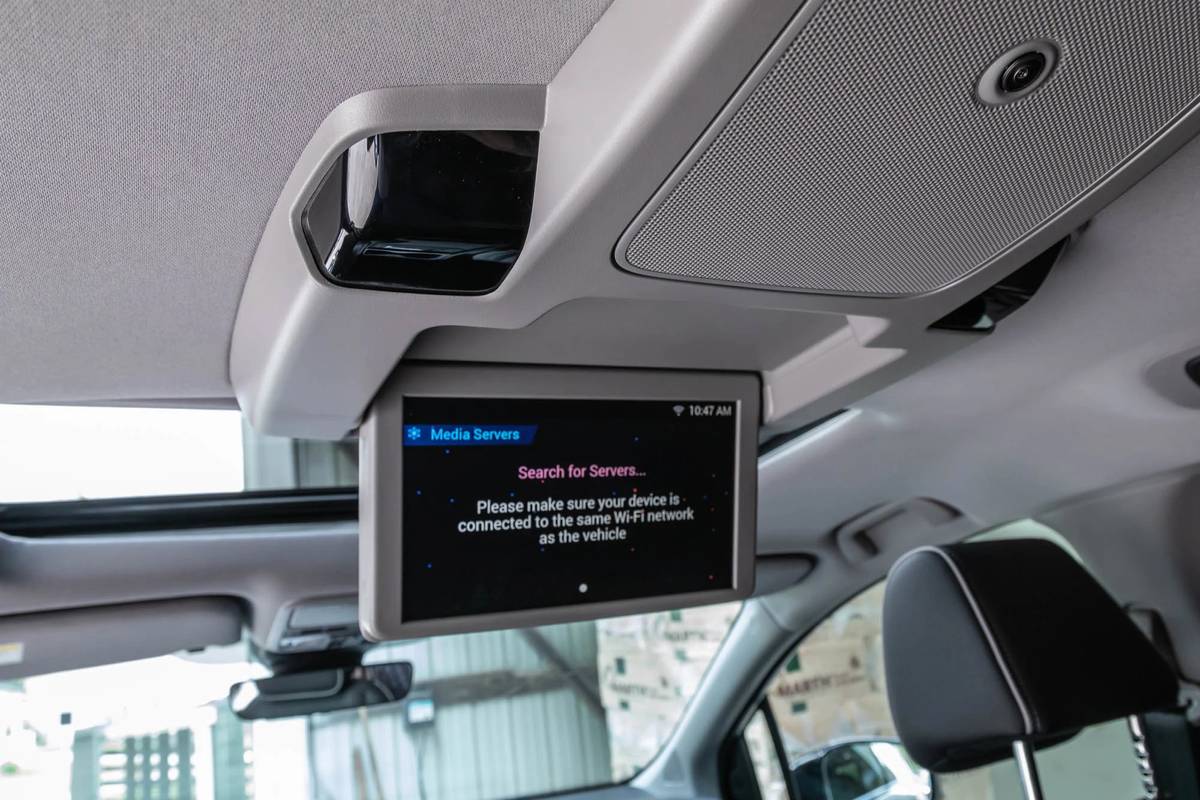
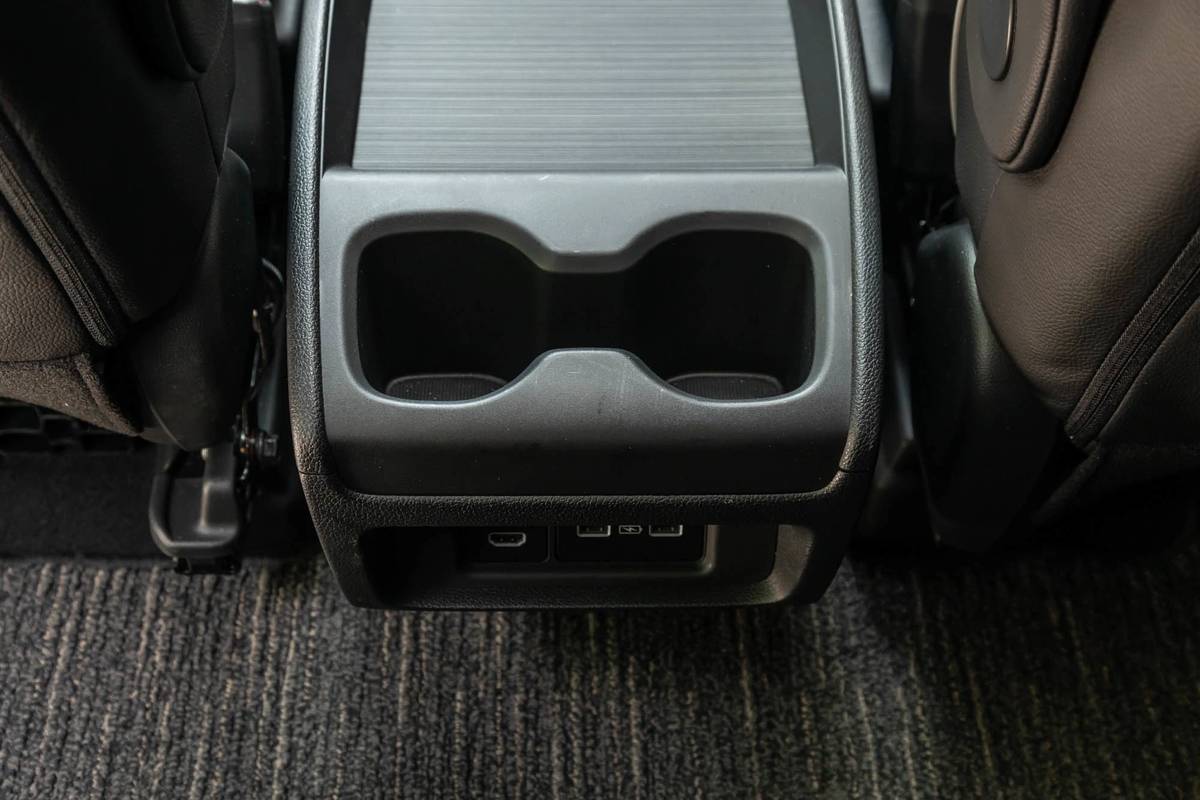
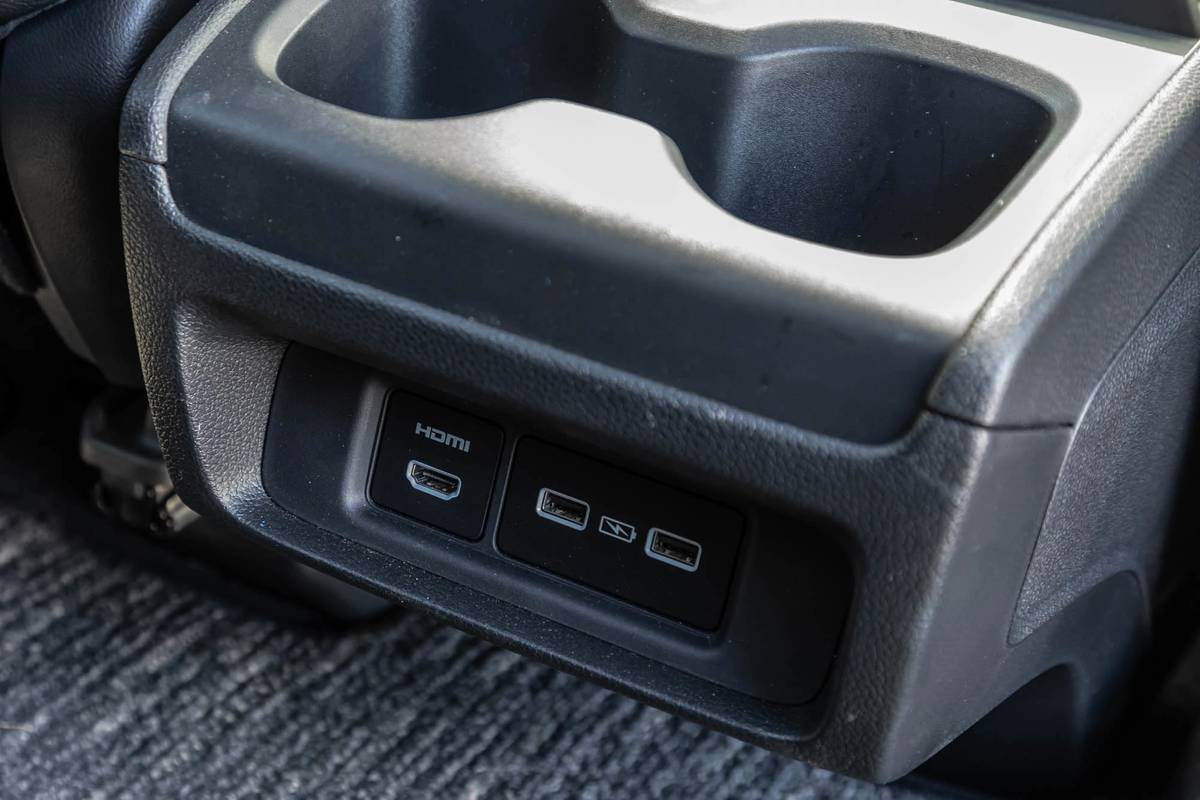
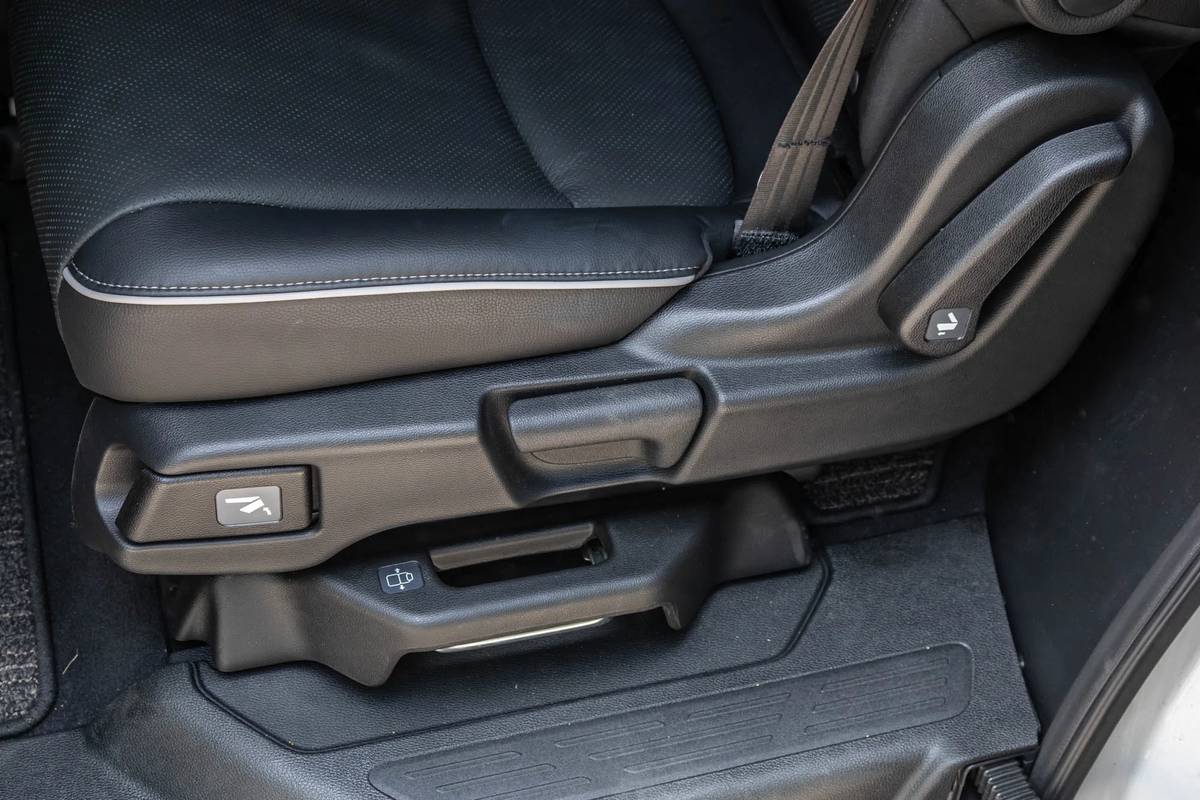


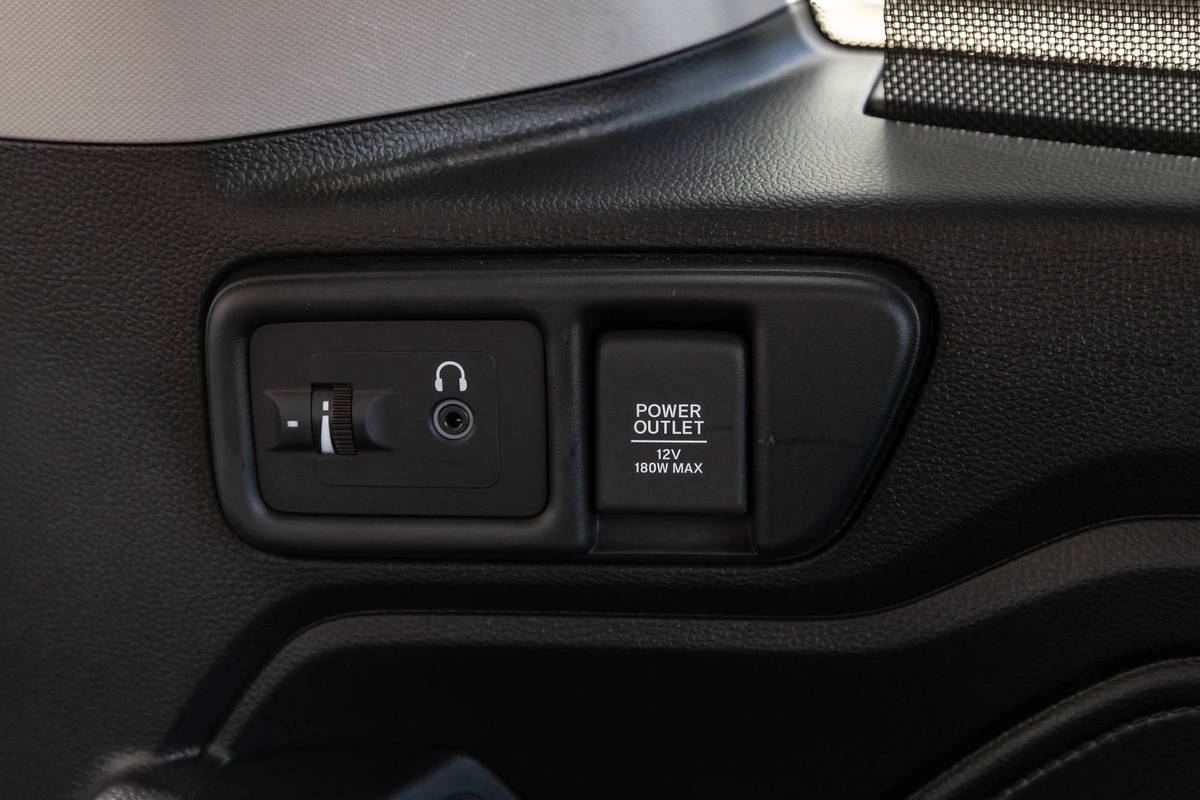
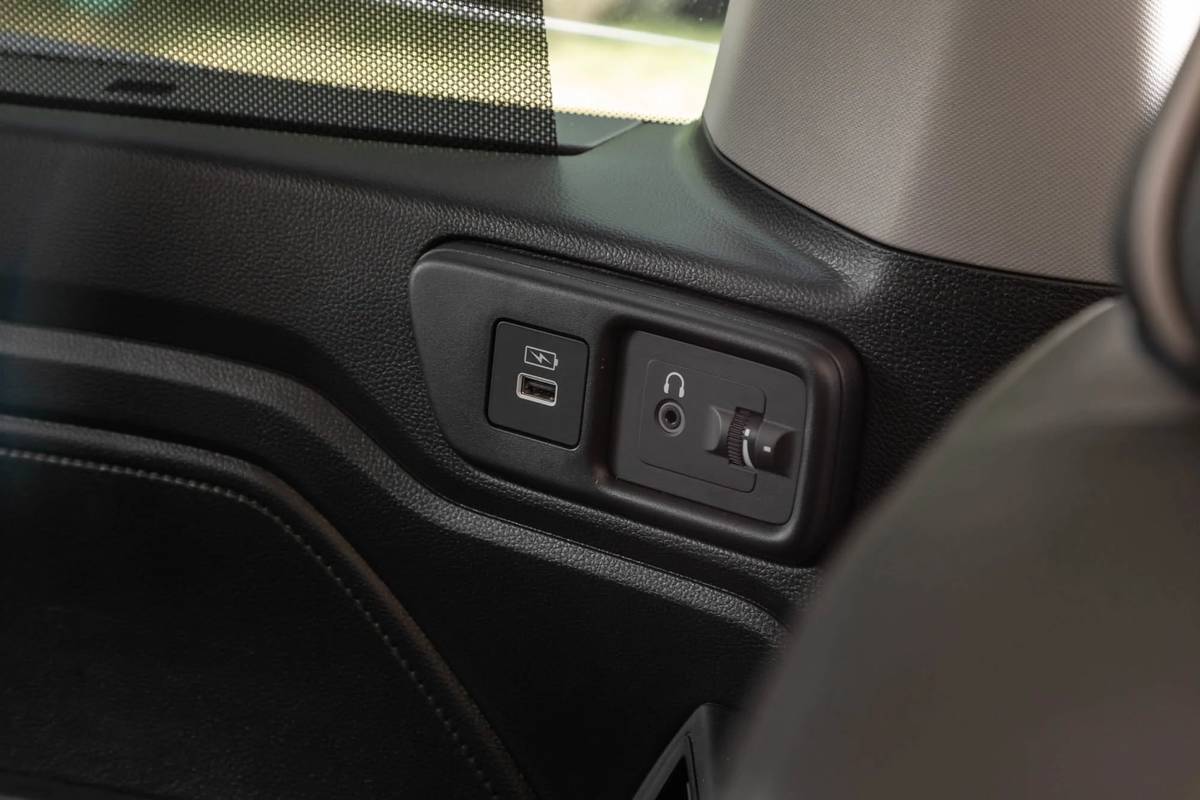
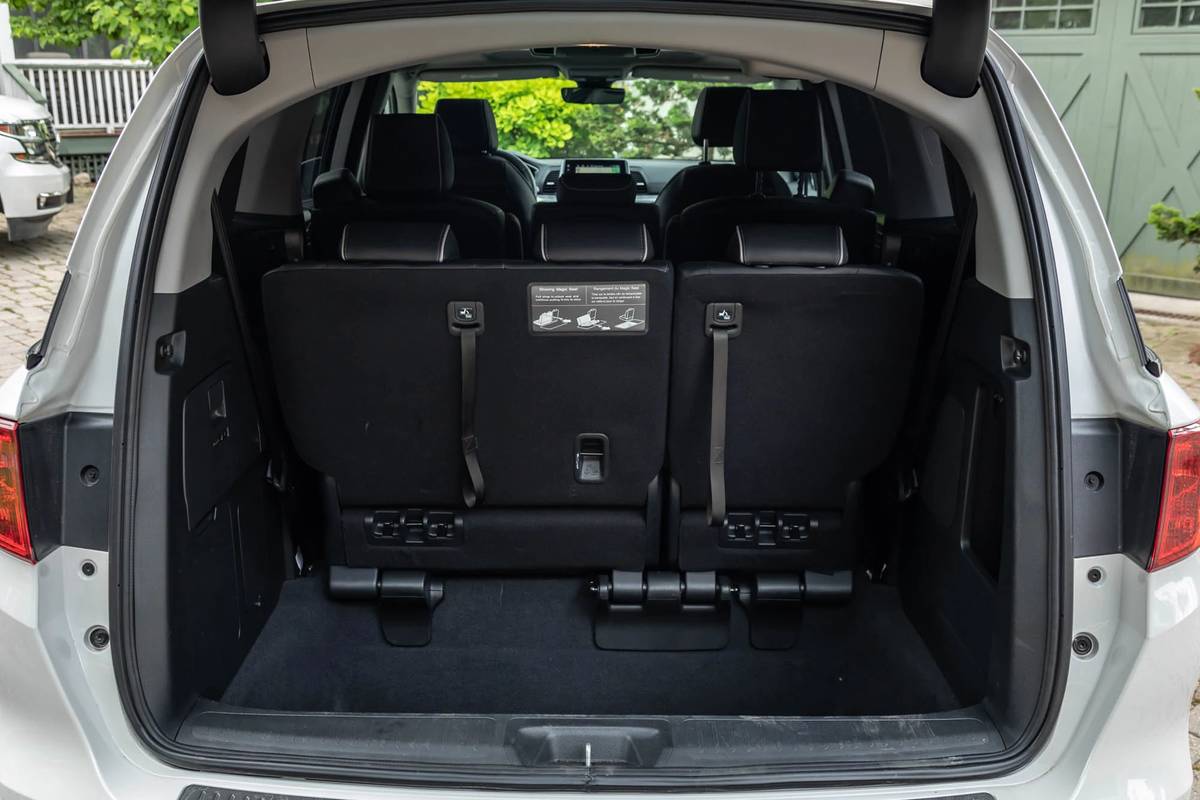
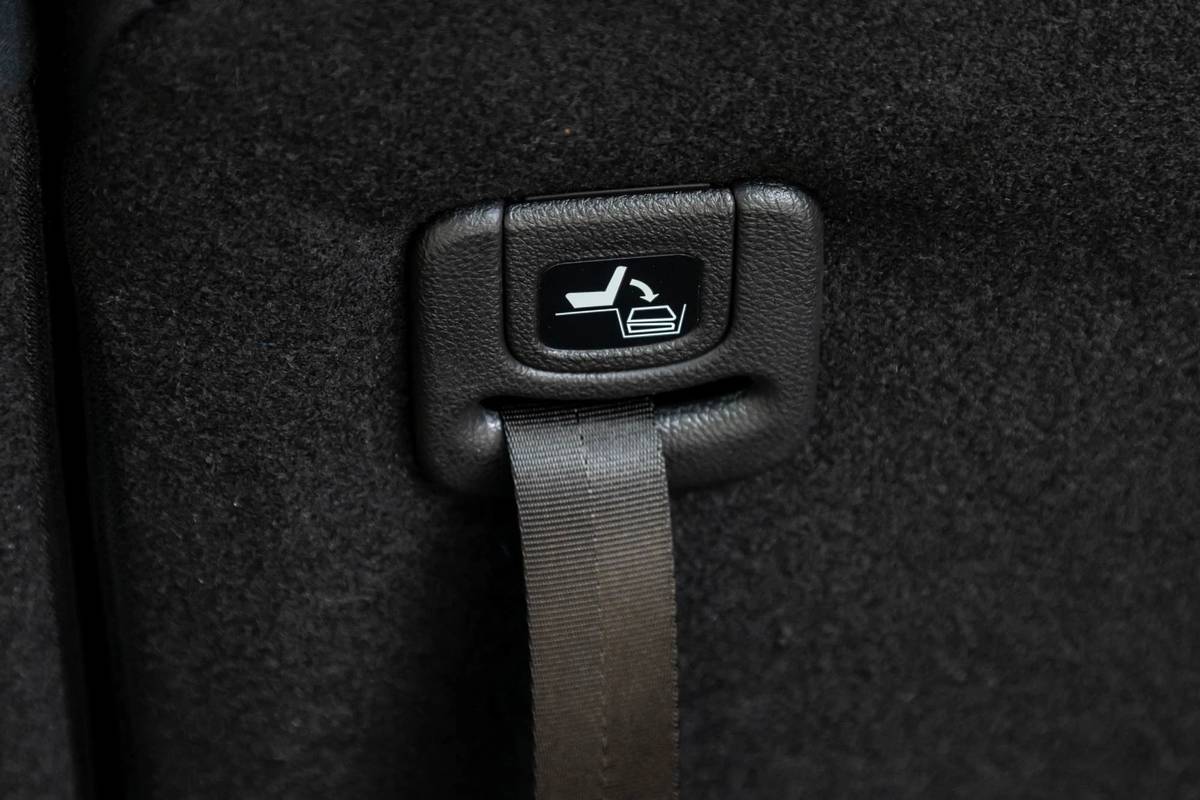
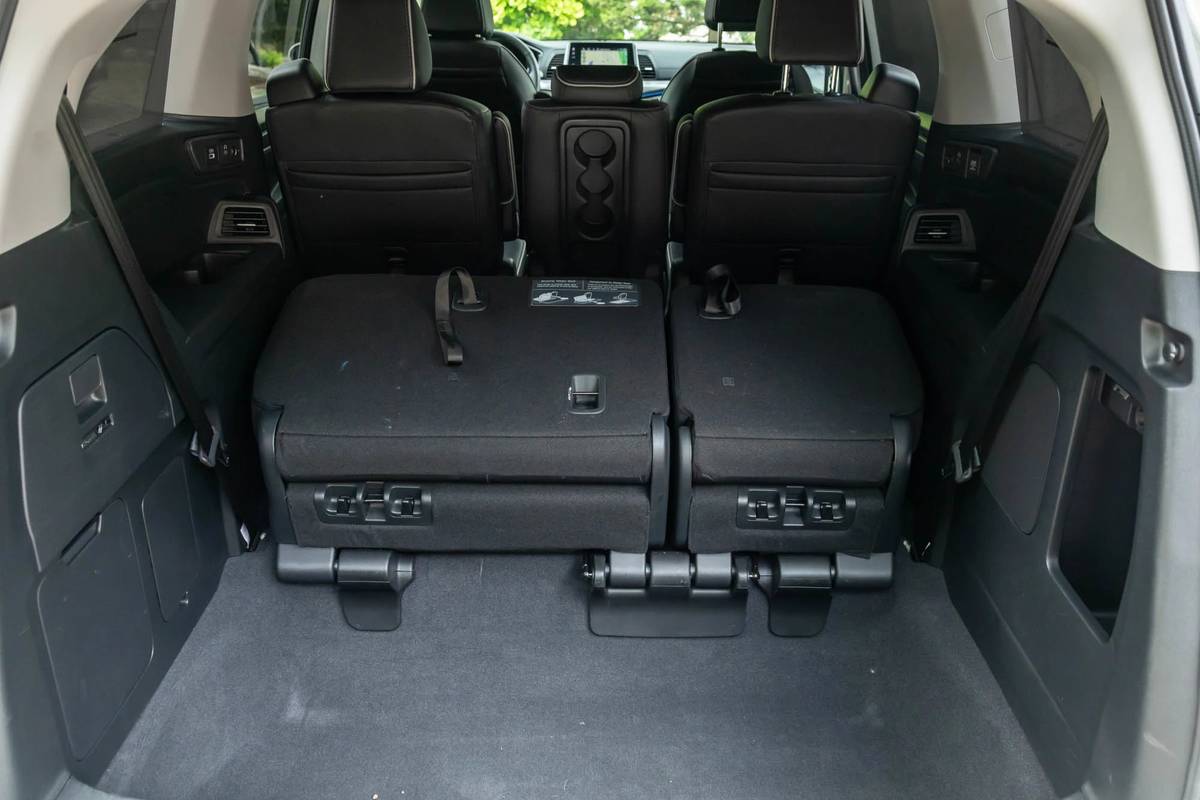

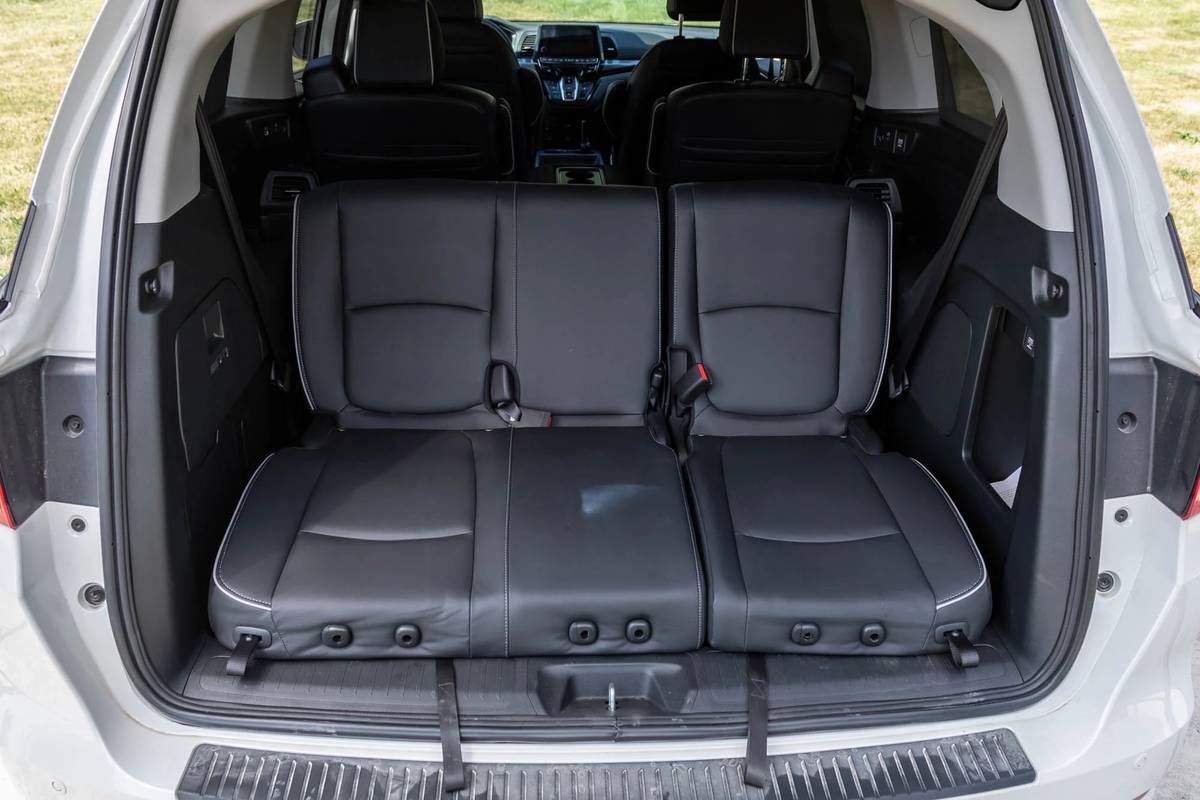
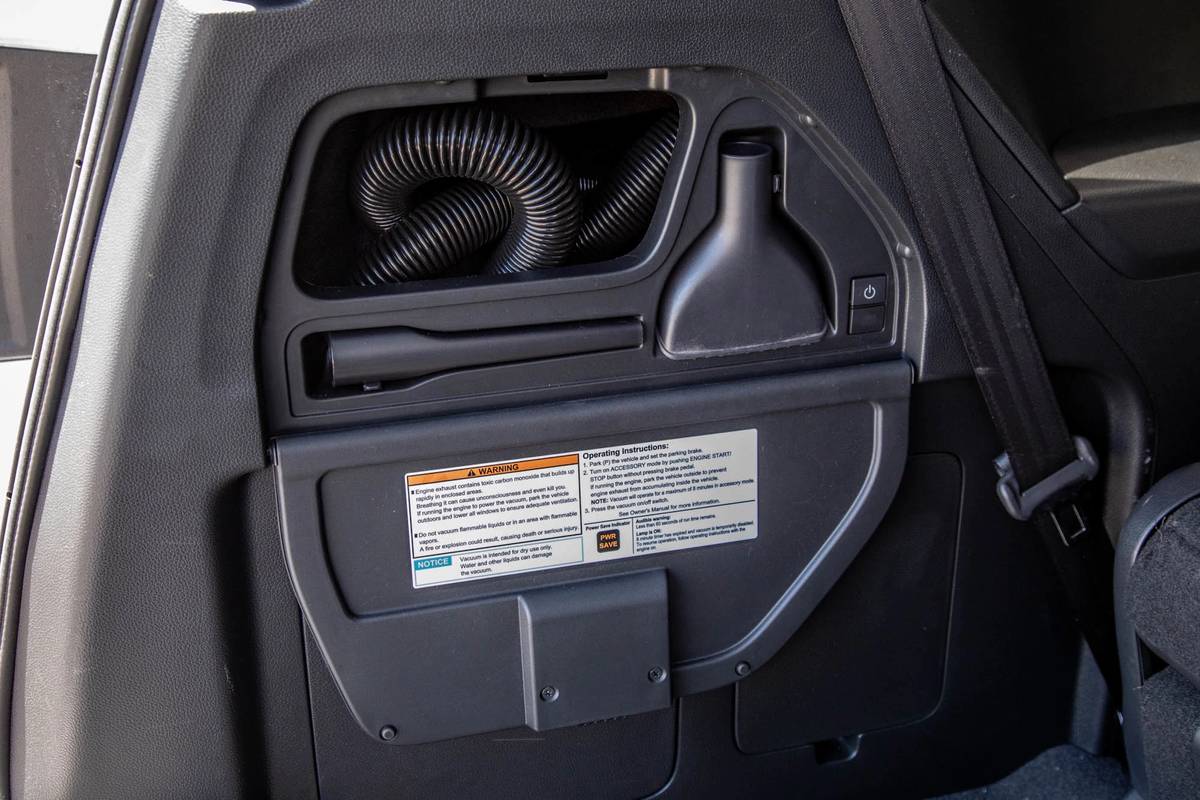
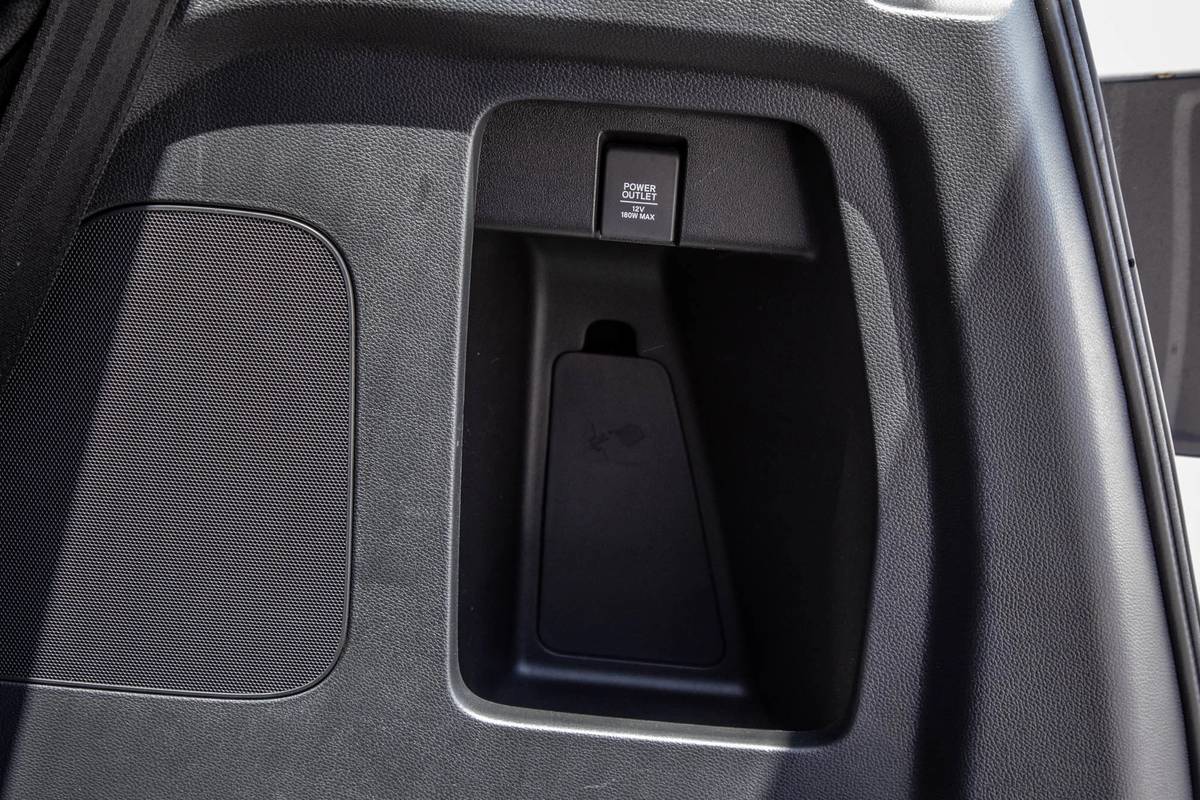

































































Our Test Vehicle
As-tested price: $49,335
Powertrain: 280-horsepower, 3.5-liter V-6 engine; 10-speed automatic transmission; front-wheel drive
Estimated city/highway/combined mpg: 19/28/22
A onetime innovator and challenger to Chrysler’s dominance didn’t gain enough ground with its 2018 redesign, or advance the bar with a 2021 refresh, to distance itself from the leaders. It won four judging categories but lost six outright. It comes with front-wheel-drive only.
The Good
In-cabin storage: “Where others adopt bridge-style consoles that prioritize styling over utility, Honda sticks with the conventional floor console,” Mays said. “This is the only van where you can still dump a large purse or diaper bag below the center stack, with storage behind it for smaller items. Big door pockets in the first and second rows, plus 17 cup and bottle holders — a tie with the Sienna for most in our group — solidify the Odyssey’s lead for in-cabin storage.”
Child-seat accommodation: “The Odyssey scored above the others in its Car Seat Check thanks to accessible lower anchors and an extra set of anchors in the second row,” said Geiger. “It fits a lot of car seats and installing them is very easy.”
Second row: “I love the versatility of the Magic Seat second row that allows the three seats to move forward, back and sideways independent of each other,” Geiger said. “It makes the van more flexible. The seats are cushier and more supportive than a couple of other second rows, and there are nice reading lights and good cupholder and USB access.”
Third row: “The Odyssey has one of the best third rows in terms of amenities,” Geiger said. “Both sides have USB ports, headphone jacks and cupholders as well as a small storage box. There are also seatback pockets — which my kids need to organize their stuff back there.”
Front seats: Though the Pacifica led this category overall, “The Odyssey’s front seats offer the best long-term support, with a degree of lateral support and conformity to my back and shoulders that the others can’t match,” Mays said. “That being said, it’s safe to say hell will freeze over before Honda makes any passenger seat height-adjustable.”
The Bad
Ride quality: The Odyssey’s worst showing, “Ride quality has always been a problem for the current generation, and back-to-back drives with the class really spotlight it,” Mays said. “Impact harshness and highway isolation are the worst in the group, with an unnerving degree of body movement during quick changes in elevation or momentum. The suspension is firm, yet the chassis isn’t terribly rigid, a one-two gut punch on road trips.” Geiger added, “It tends to feel busy and jittery at higher speeds.”
Multimedia provisions: The Odyssey has only five USB ports for the whole van where competitors have either seven or 11.
Vehicle UI: “The Odyssey’s multimedia system is aging,” Geiger said. “The menus are easy to figure out, but the graphics look dated and the screen is not as responsive to touch as in the Kia and Chrysler. Also, the lack of a tuning knob is a big ergonomic fail. It’s not very clean, visually, with lots of different types, shapes and sizes of buttons for the climate controls. I don’t love the button gear selector, either, which always takes some getting used to.” Mays added, “The 8-inch [diagonal] touchscreen measures roughly 28 square inches — a little over half the size of the Carnival’s 12.3-inch screen and the smallest one here, and Honda imposes aggravating touch-sensitive keys on an adjacent panel for often-used shortcuts.”
Cargo: “In our independent accounting of cargo volume, the Odyssey has roughly 9% less space behind the second row, and 8% less behind the third row, than the group-leading Carnival,” Mays said. “It still easily beats all but the largest SUVs, but as minivans go, overall volume falls behind.”
Safety features: The scores were close in this category, but the Odyssey ranked last because it lacked two features its competitors had — a 360-degree camera system and rear automatic braking.
Interior quality: “None of these interiors will fool anyone for a luxury car, but the Odyssey feels especially industrial,” Mays said. “Honda’s molded-in dashboard stitching looks obviously fake, and unsightly hard plastics occupy a big section near the steering wheel. The leather feels a few grades rougher than that of the Pacifica and Sienna; indeed, our Carnival’s faux leather feels more upscale than this.” Geiger added, “It’s pretty rickety sounding; I kept hearing creaks when turning or braking hard. I couldn’t isolate where they were coming from.”
Powertrain: “The 10-speed automatic habitually bogs down if you accelerate while already in motion,” Mays said. “Multigear kickdown at 50 mph can take more than two full seconds. The driver-selectable Sport mode cuts the lag nearly in half, but the behavior in normal driving modes is unacceptable.” Geiger characterized the Odyssey as “in the bottom half for slowness, with an engine stop-start system that feels and sounds unrefined.”
Research the 2021 Honda Odyssey | Search Inventory | Car Seat Check
2. 2021 Chrysler Pacifica Limited AWD, 247 points
The verdict: An upscale van with an upscale price, our Pacifica was loaded enough to justify having the highest price in the test. The Chrysler stays abreast of rivals despite its early-2016 debut thanks to 2021 technological updates and enduring strengths, including the group’s best ride quality.
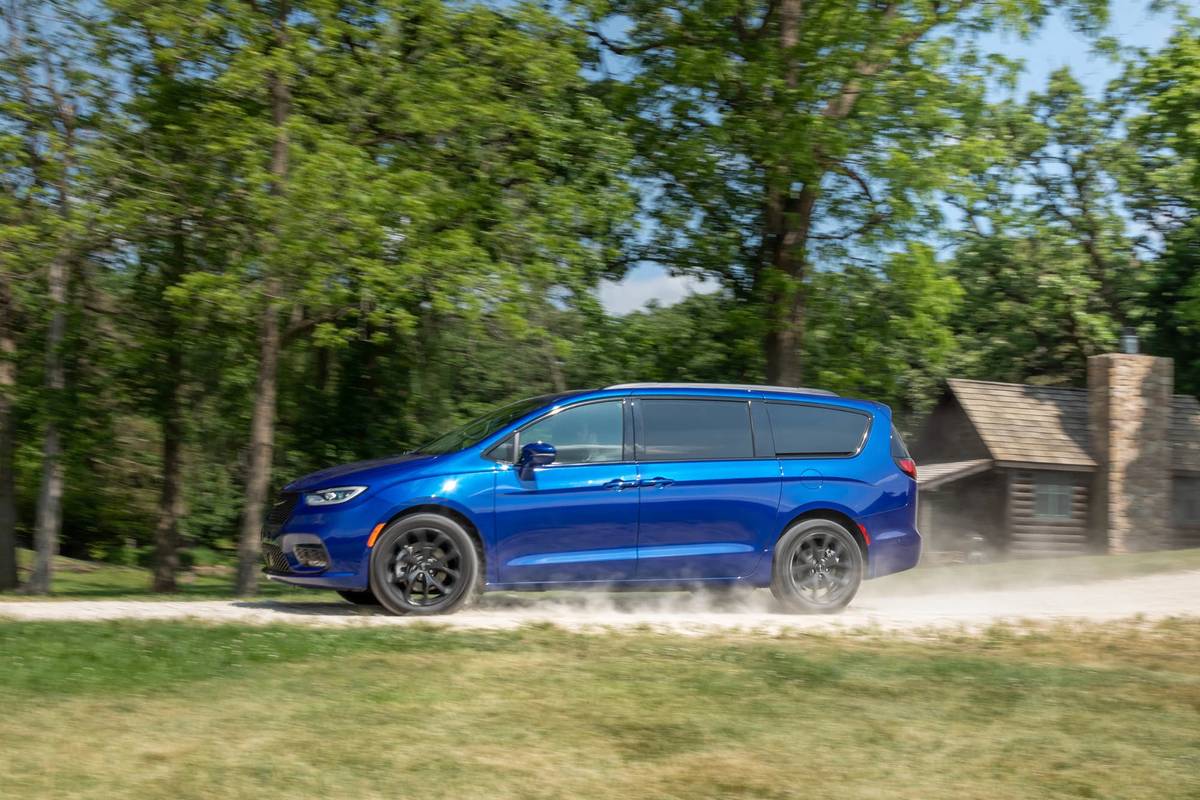
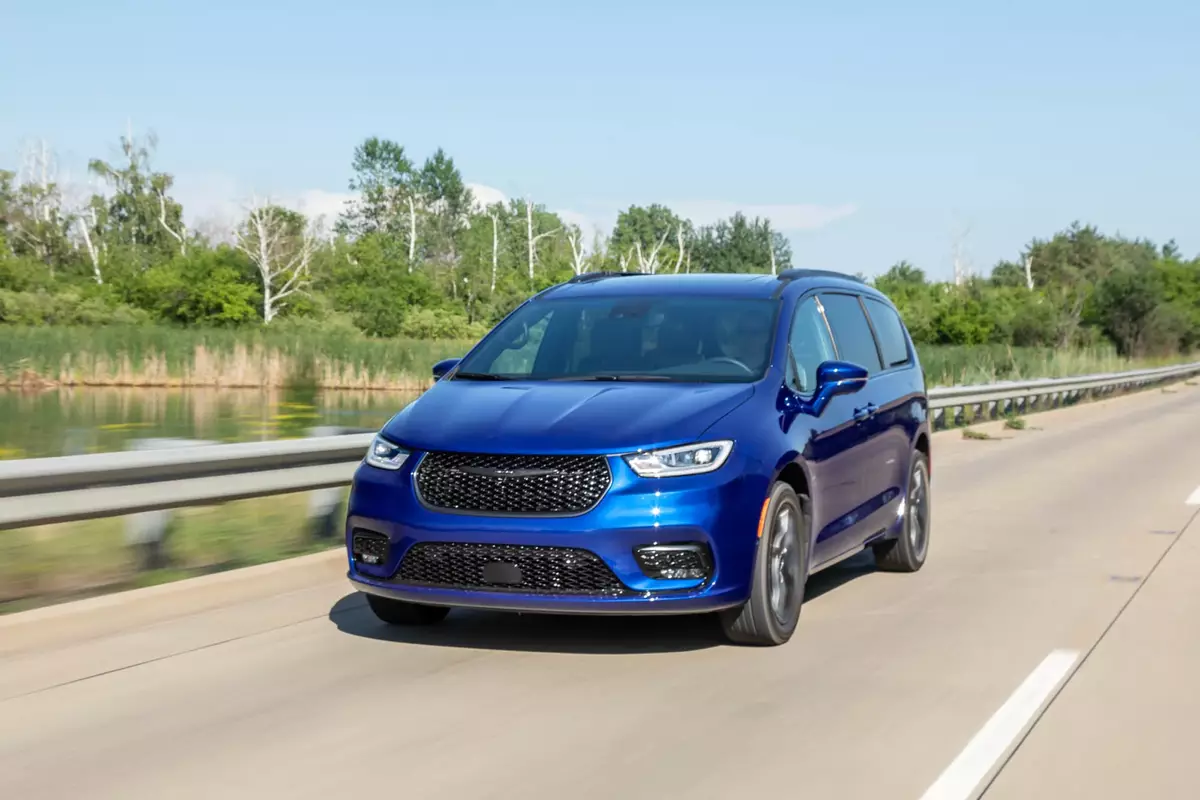
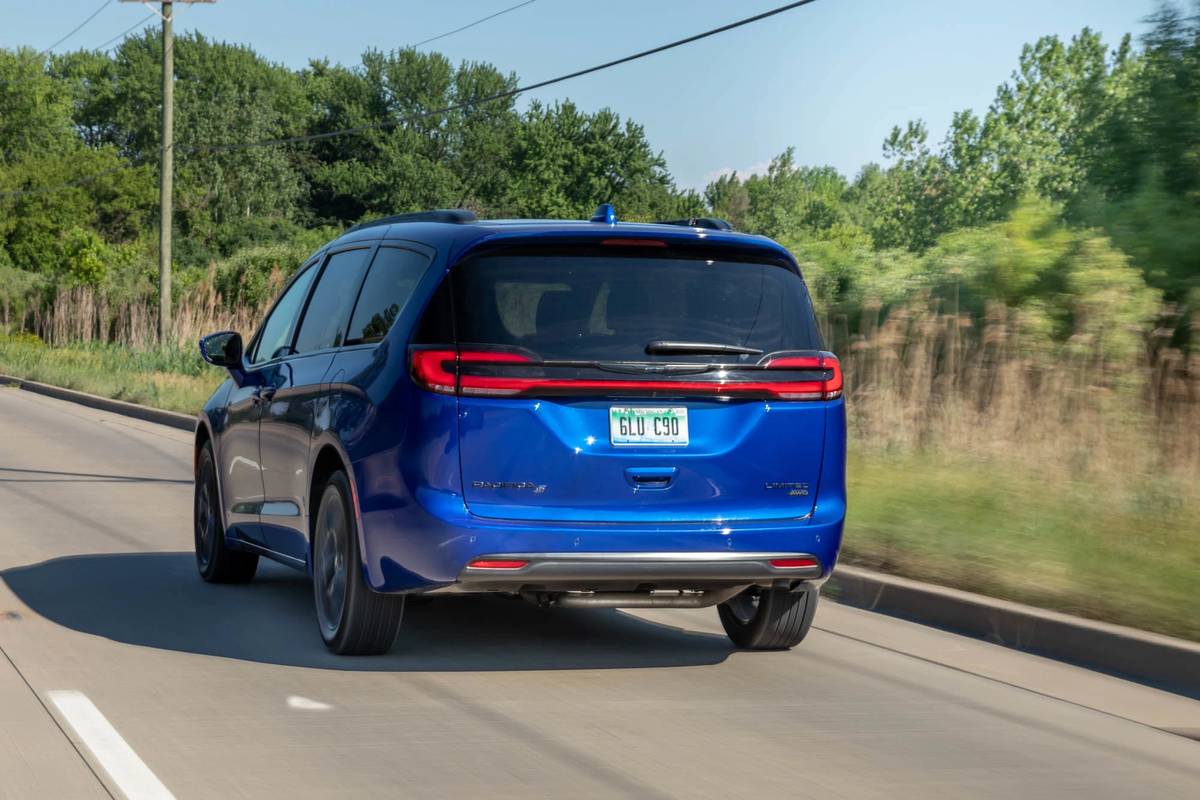
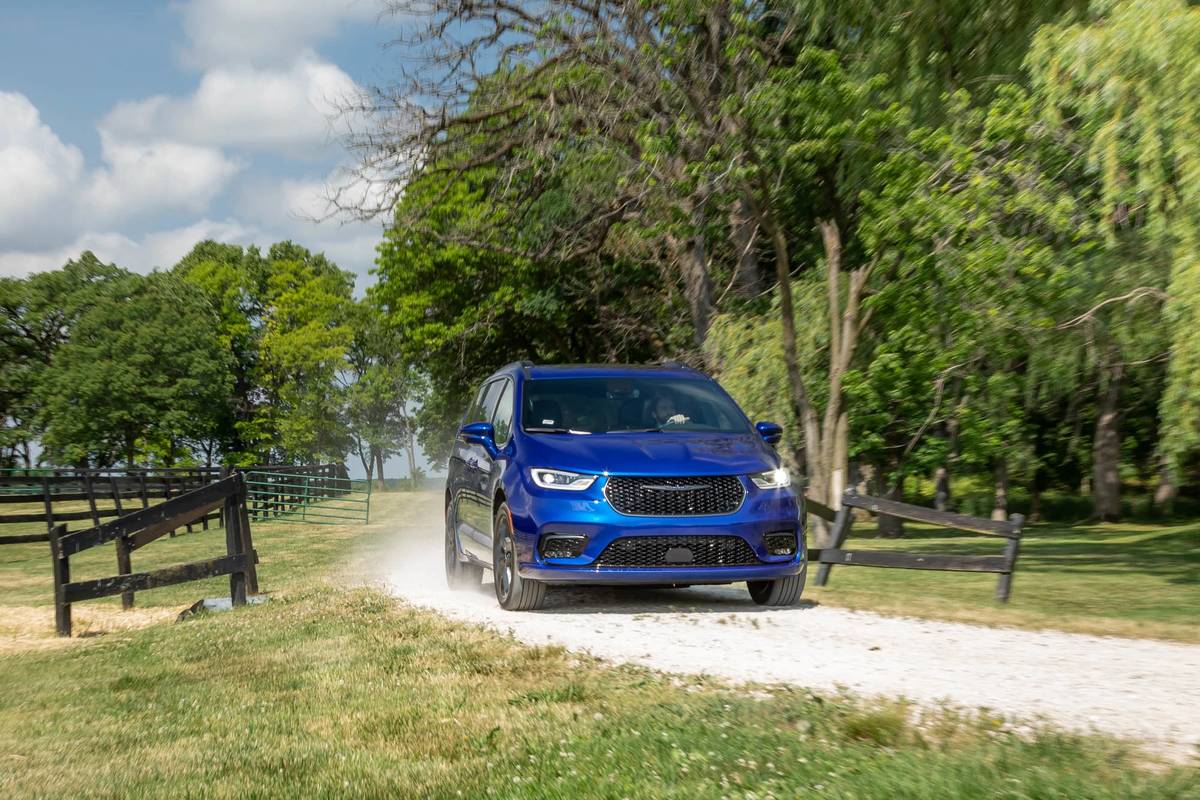
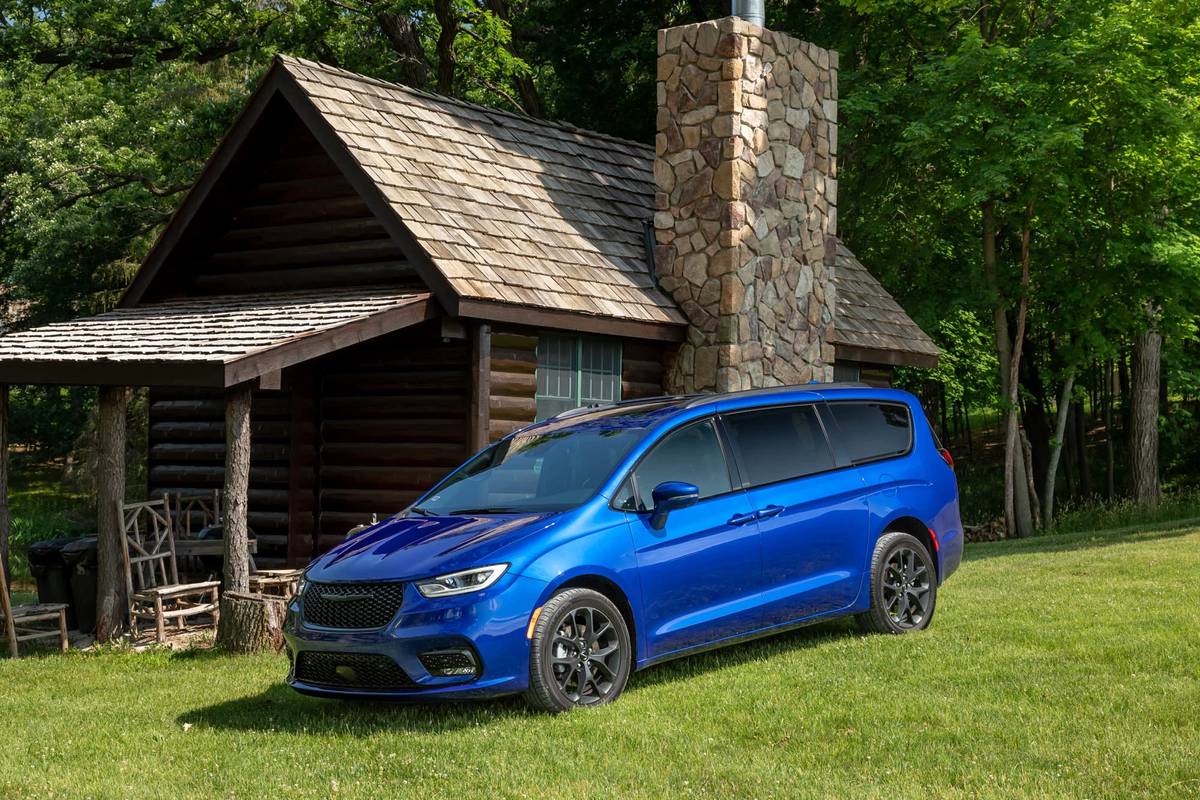
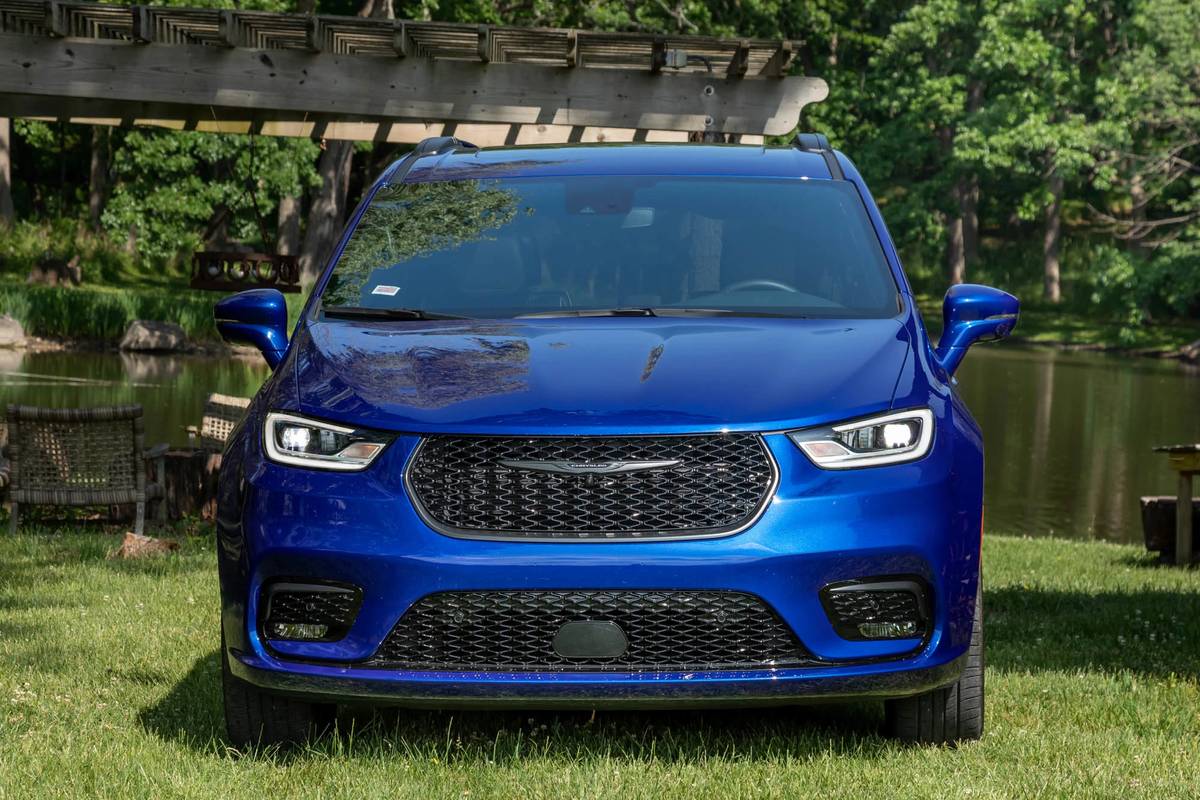
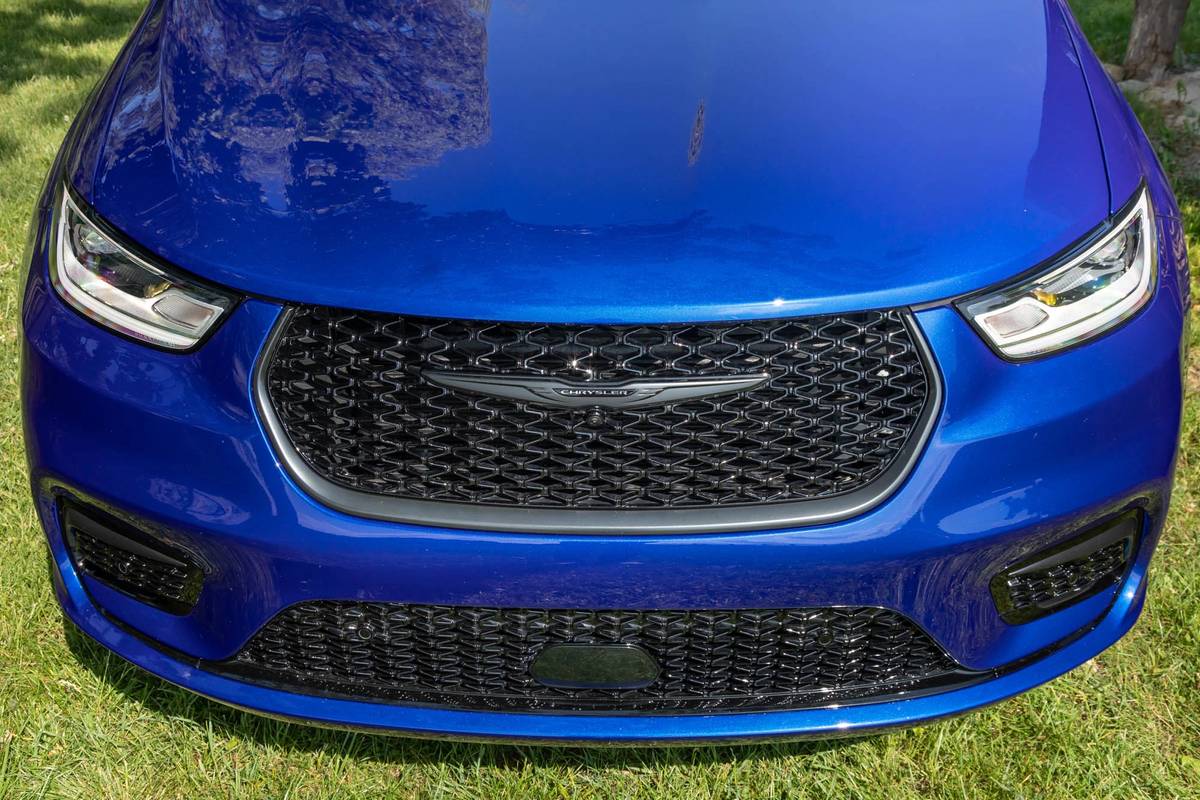
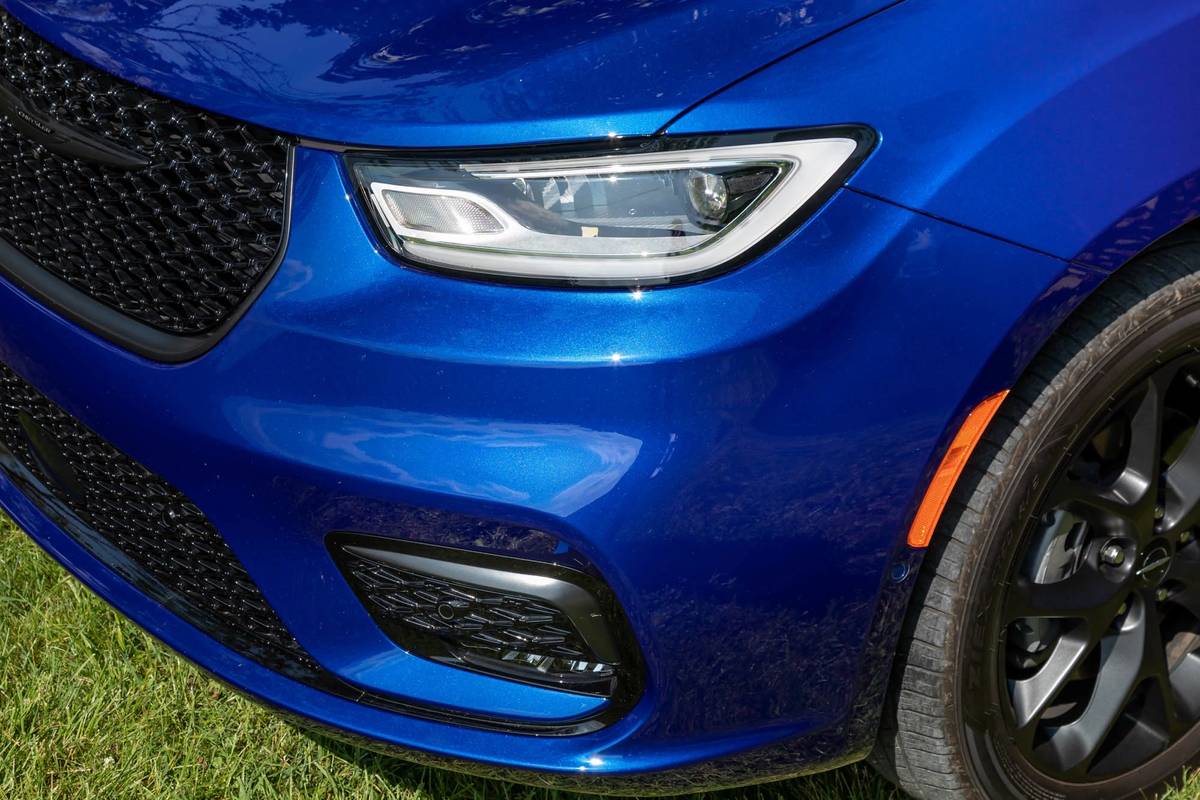

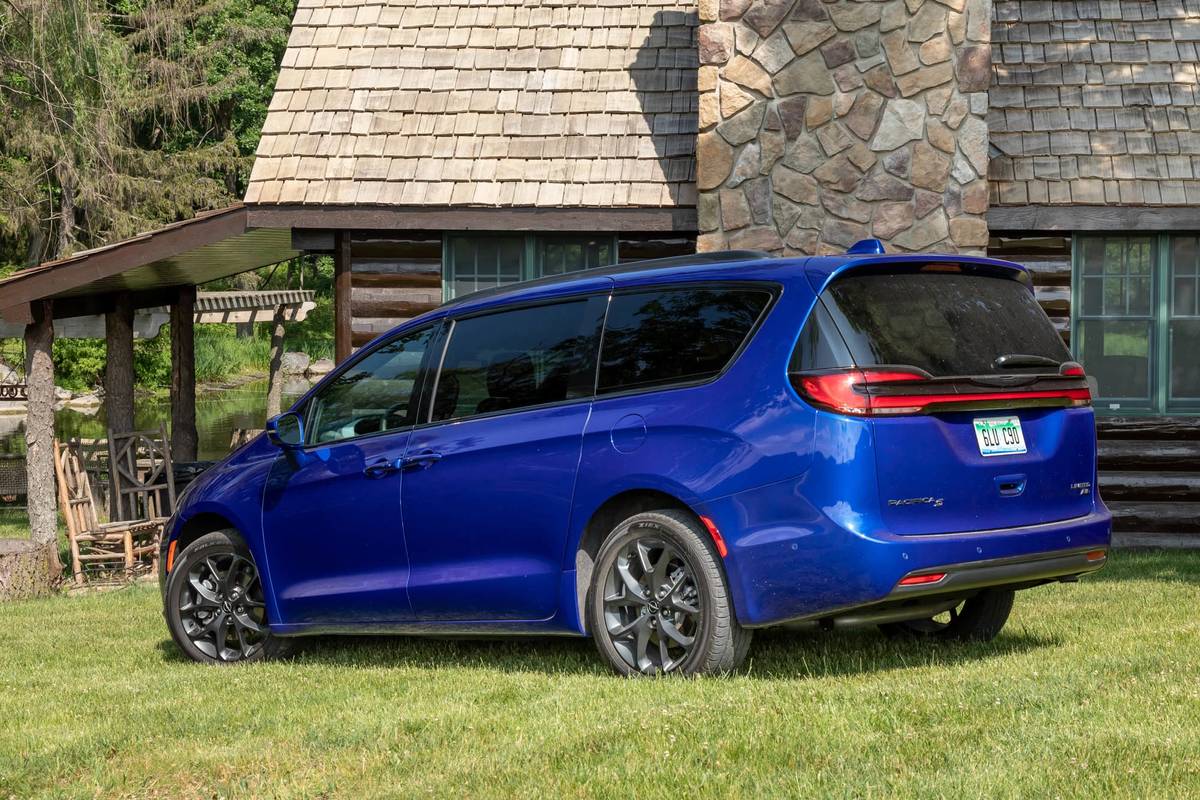
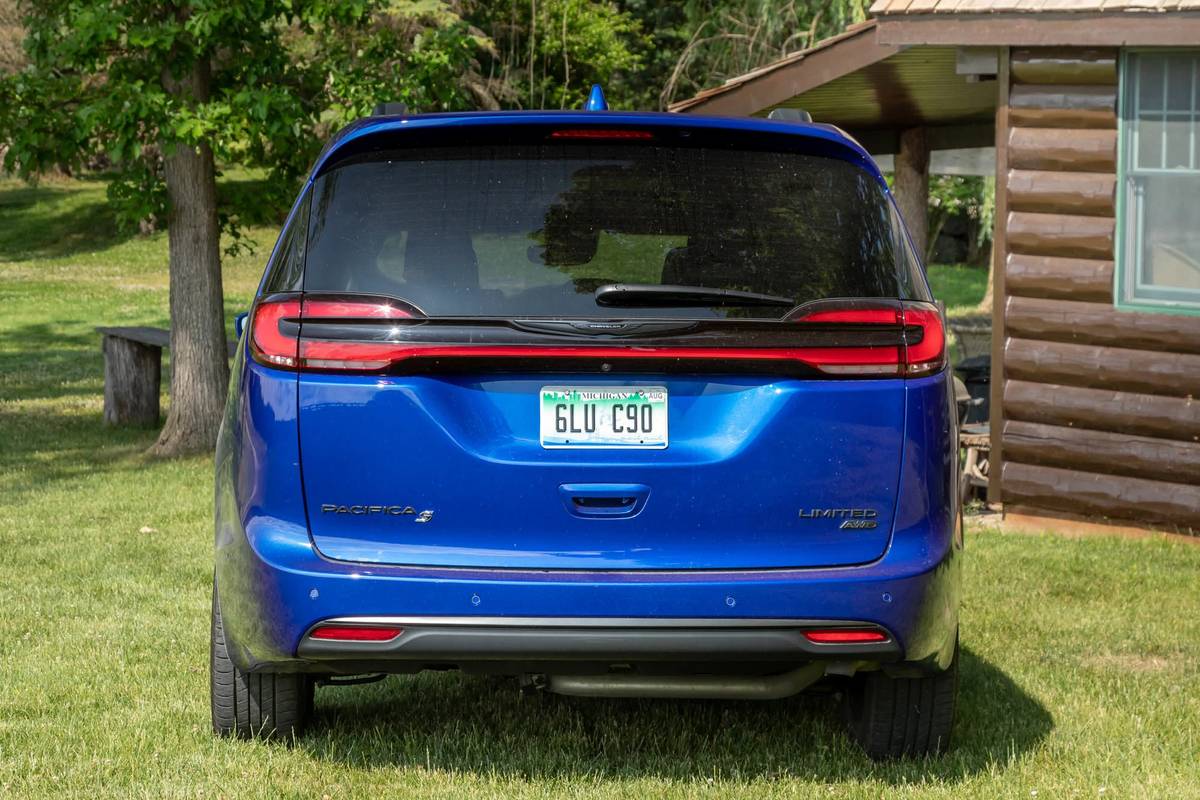
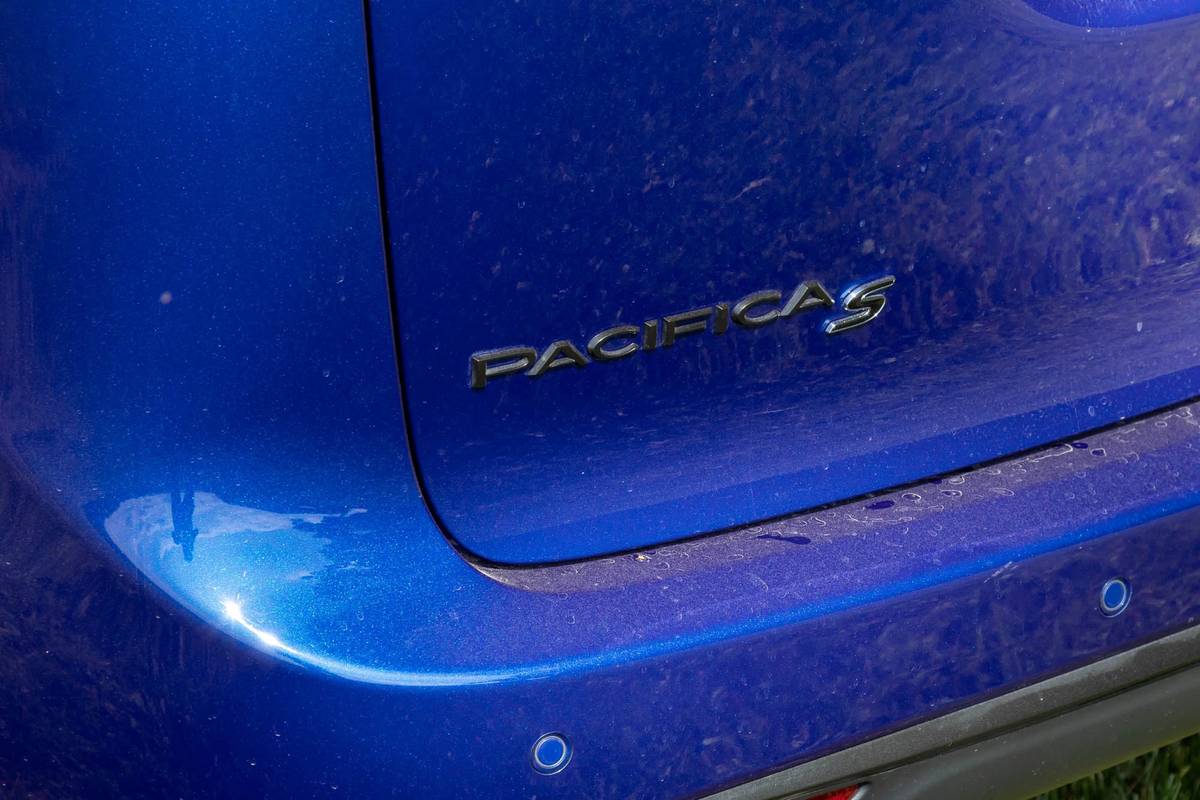
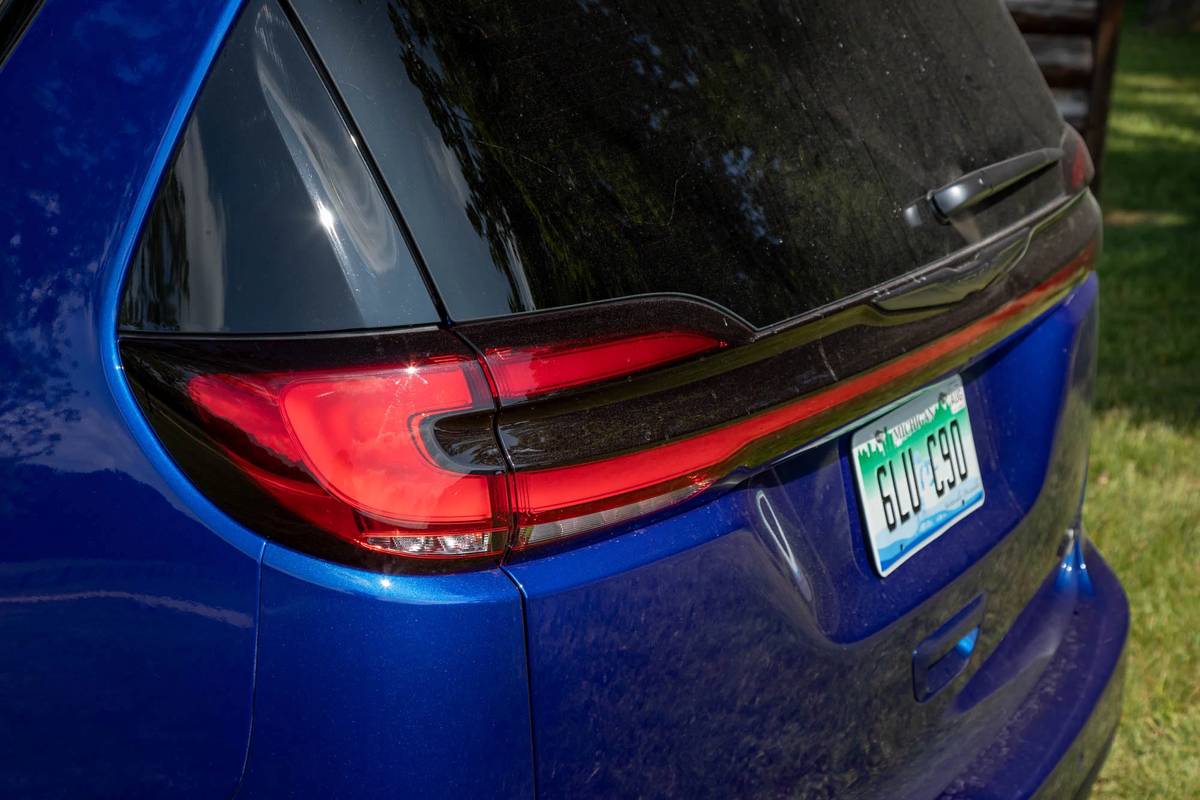

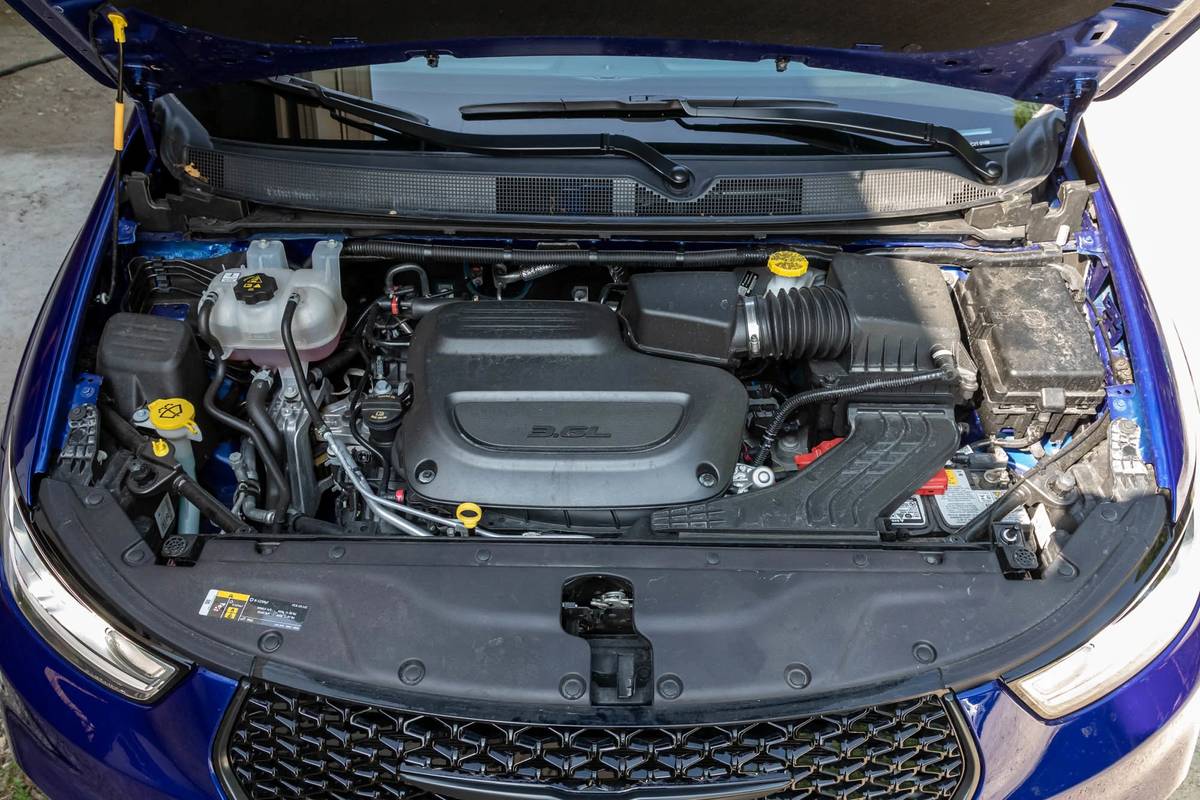
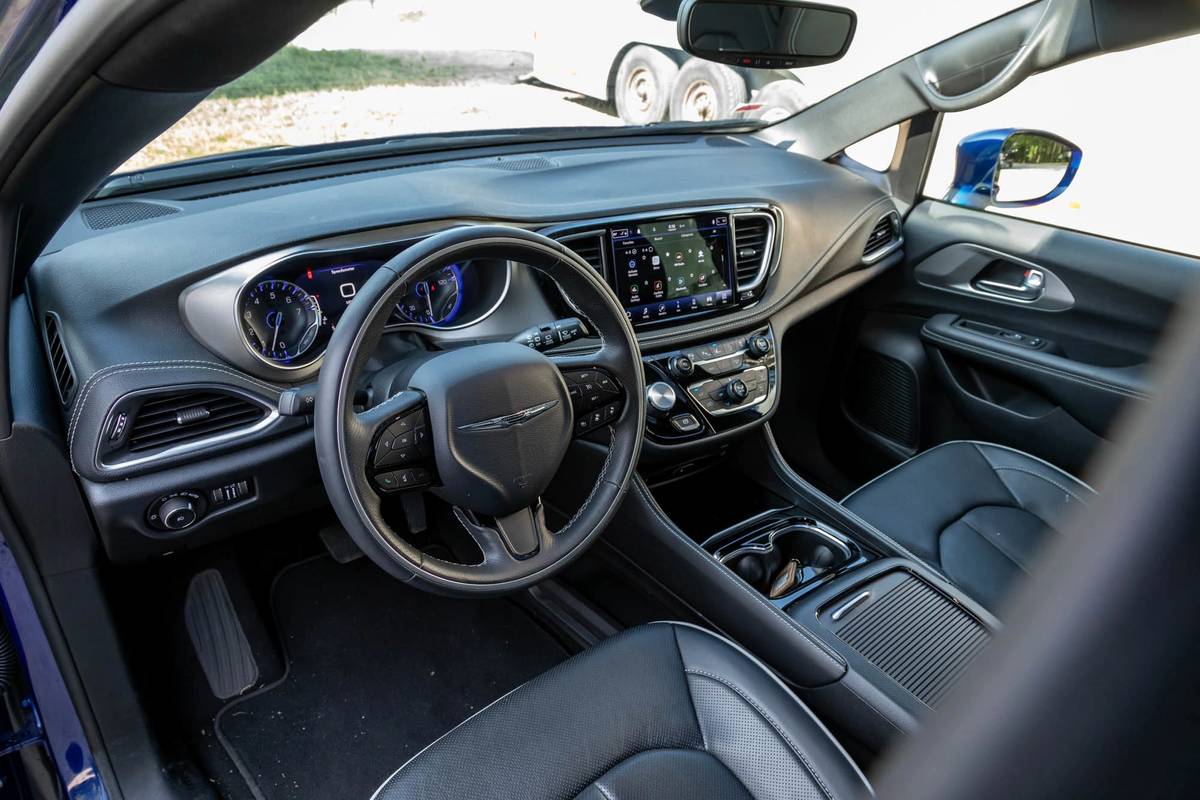

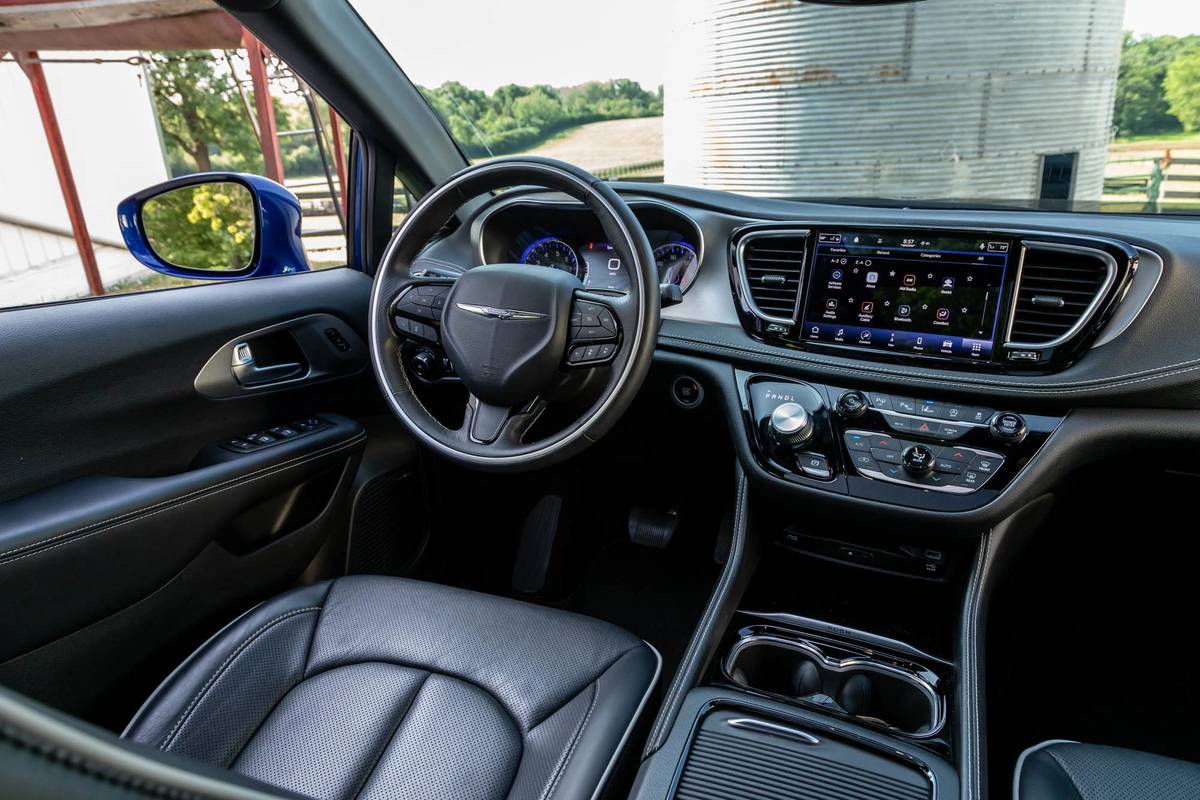
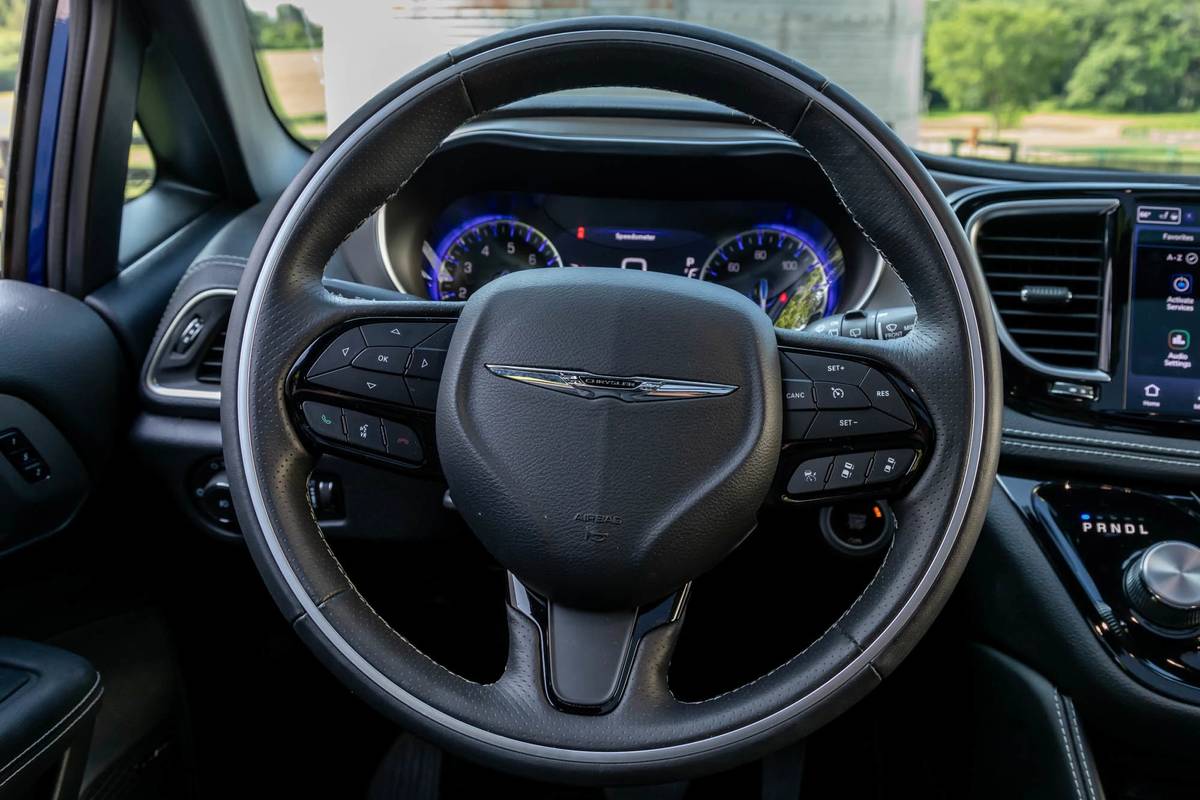
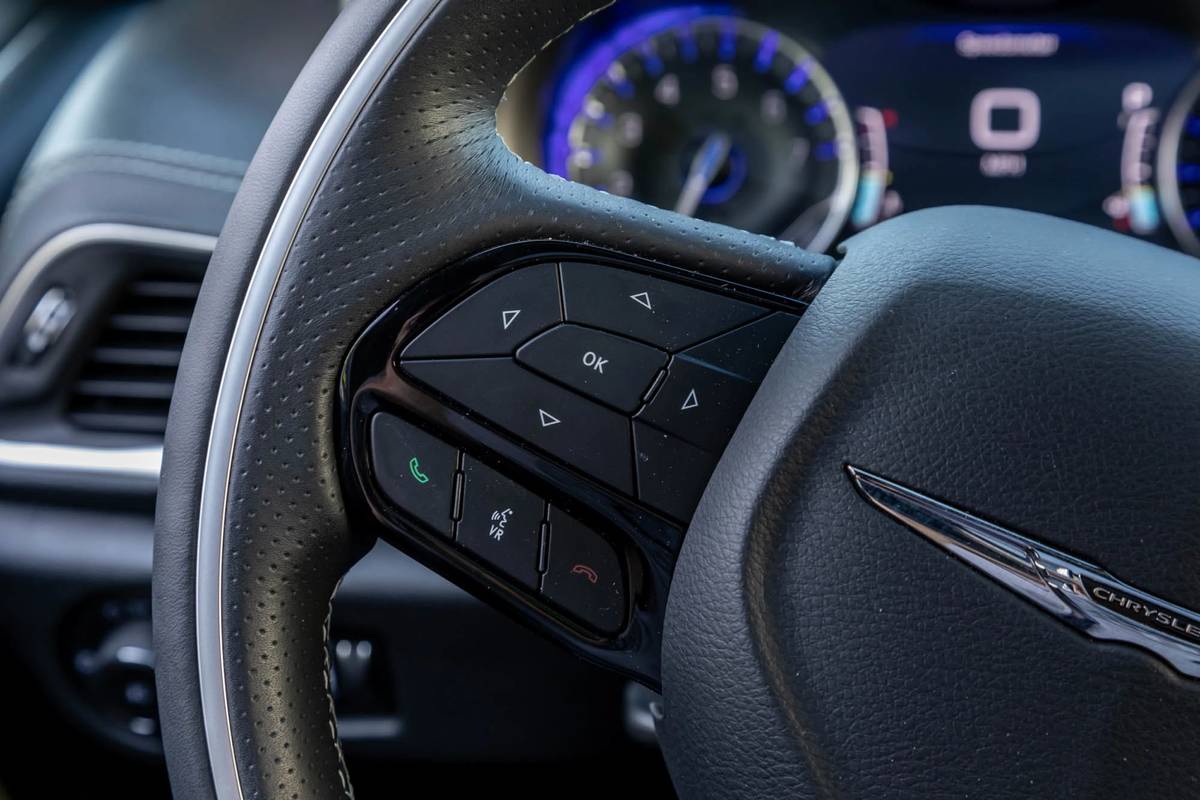
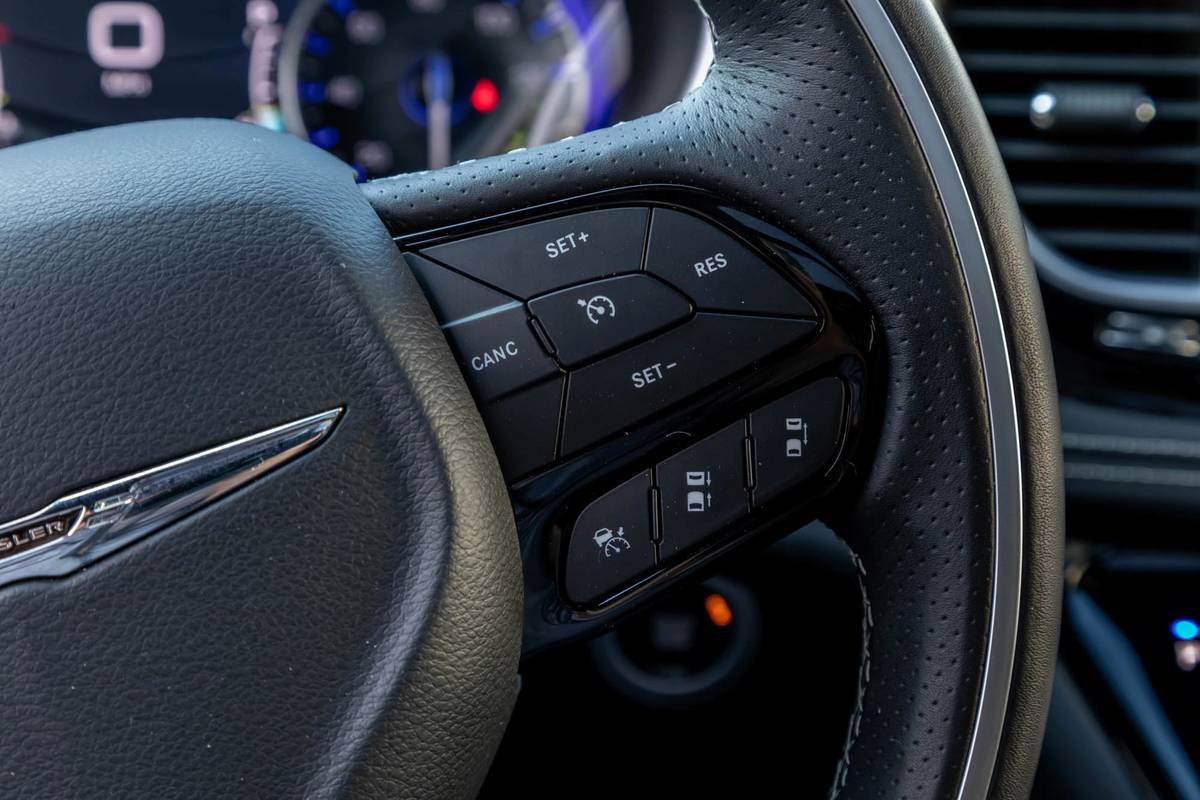

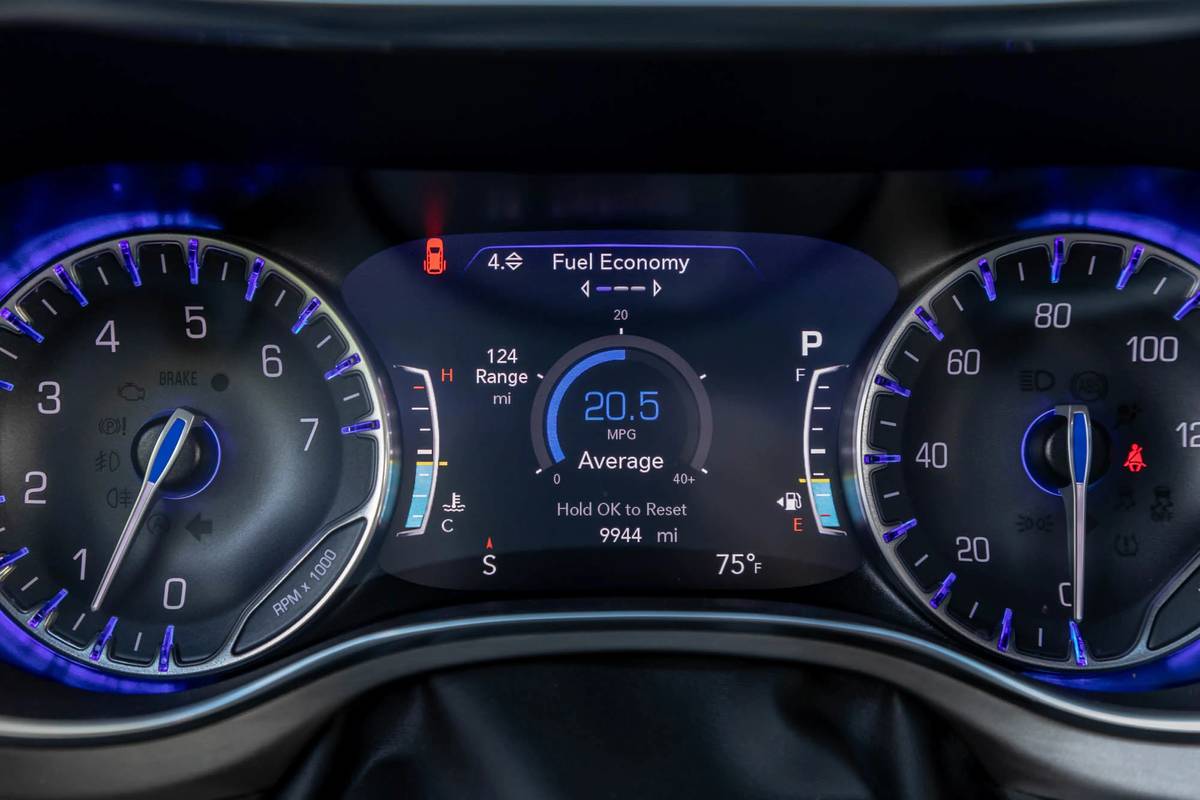

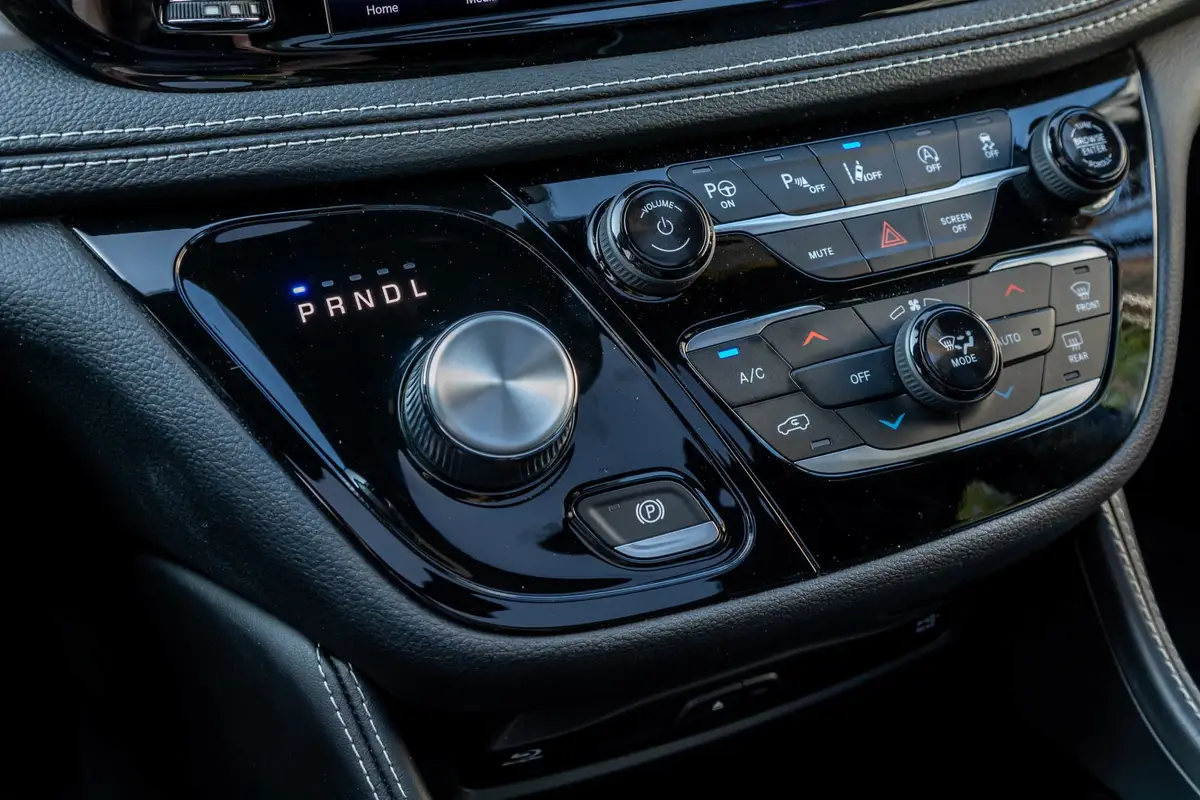
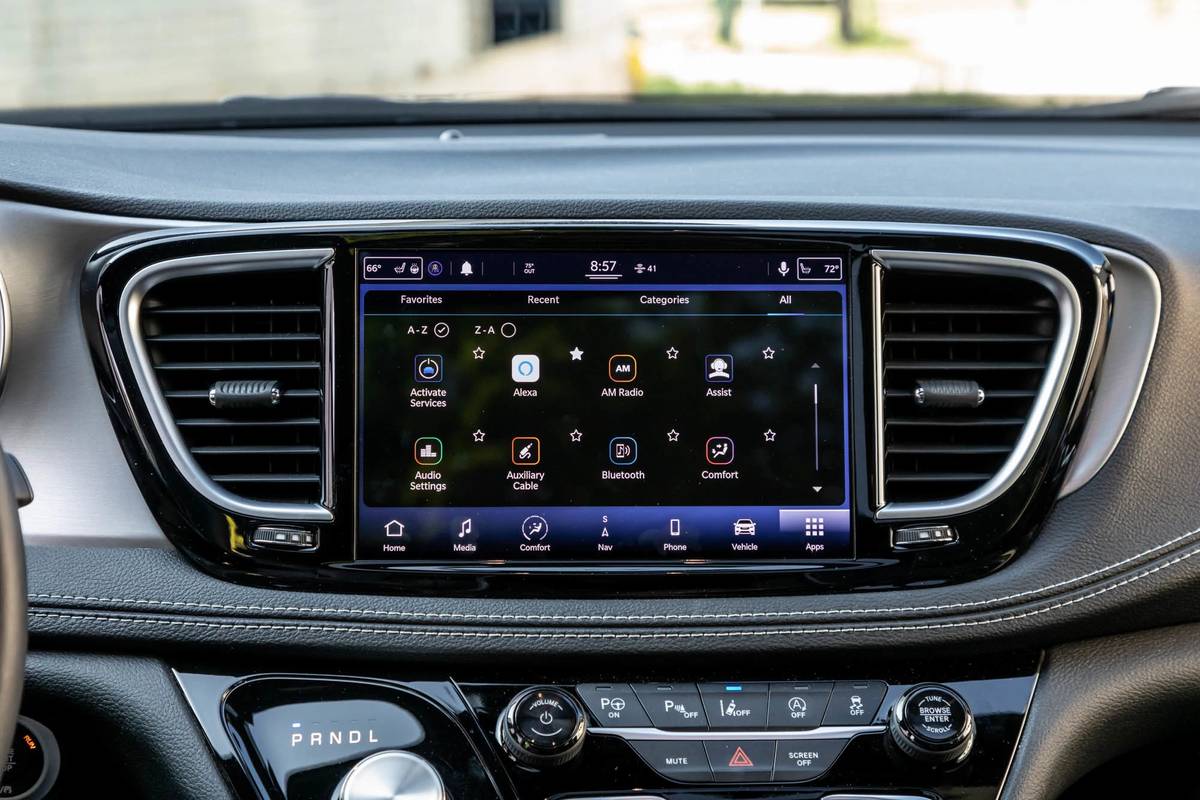
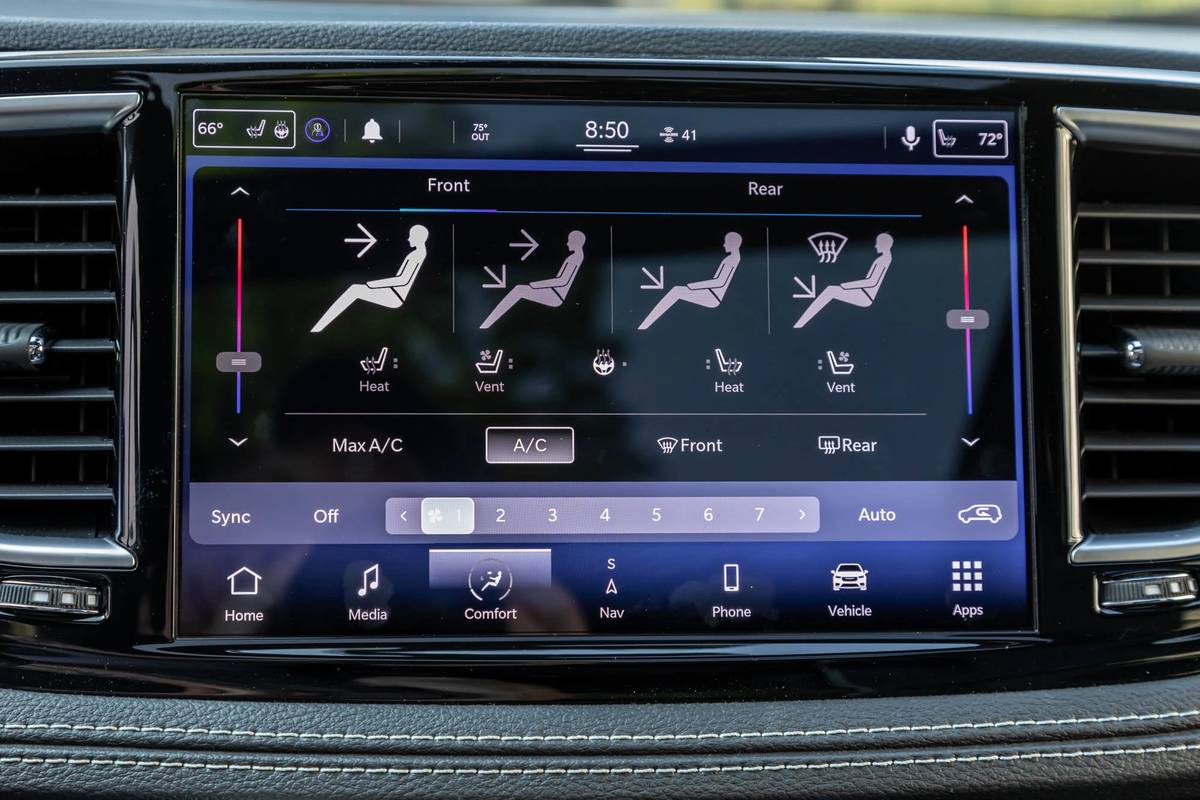
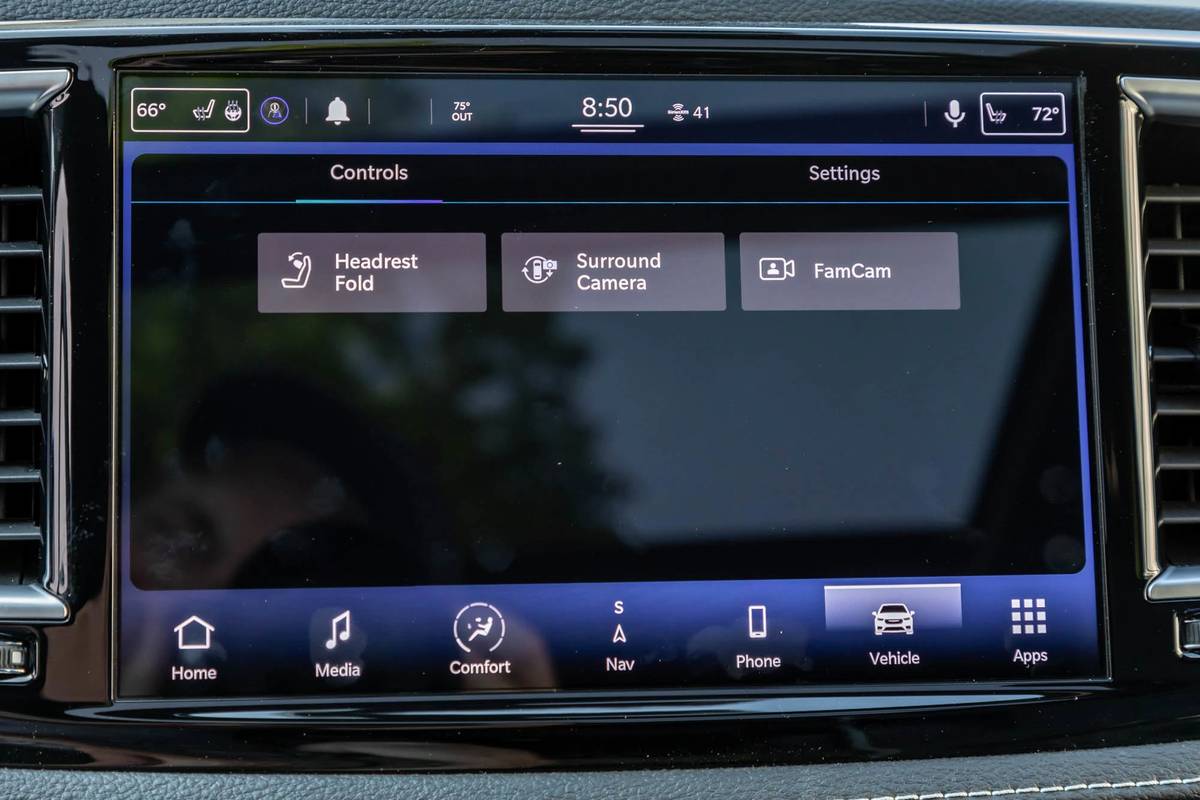
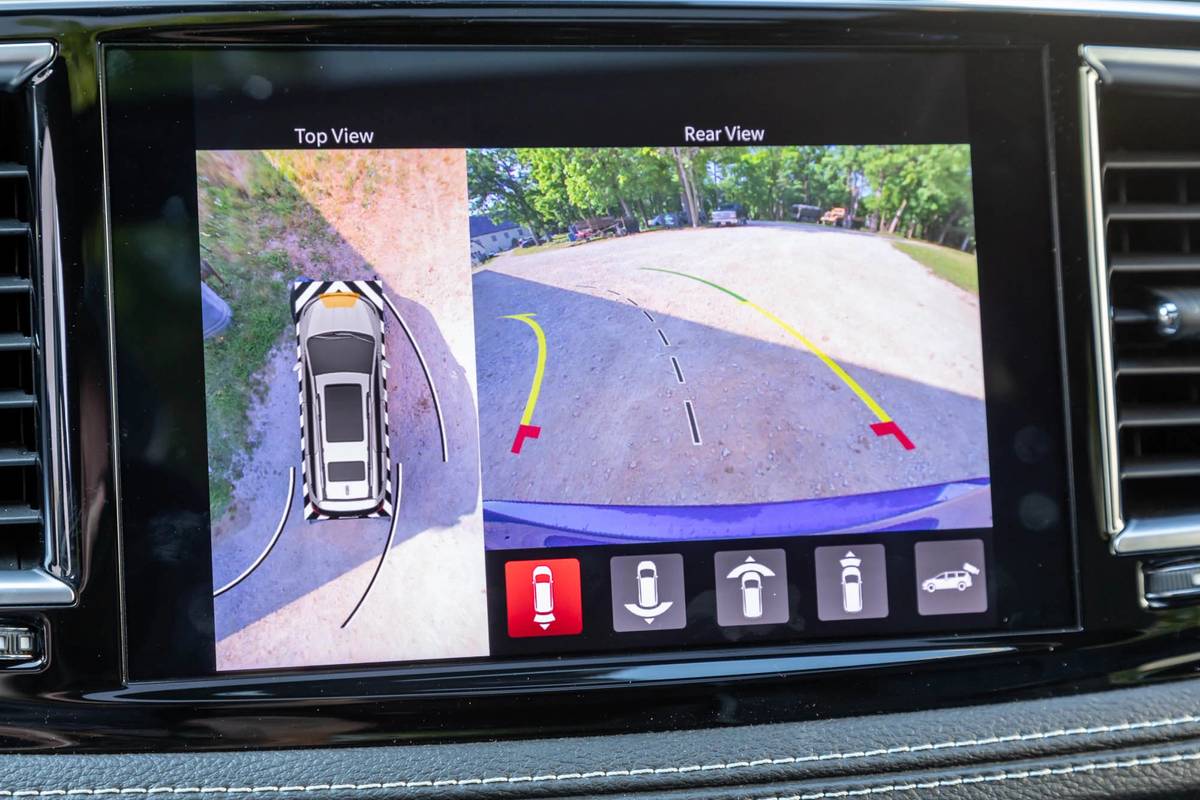
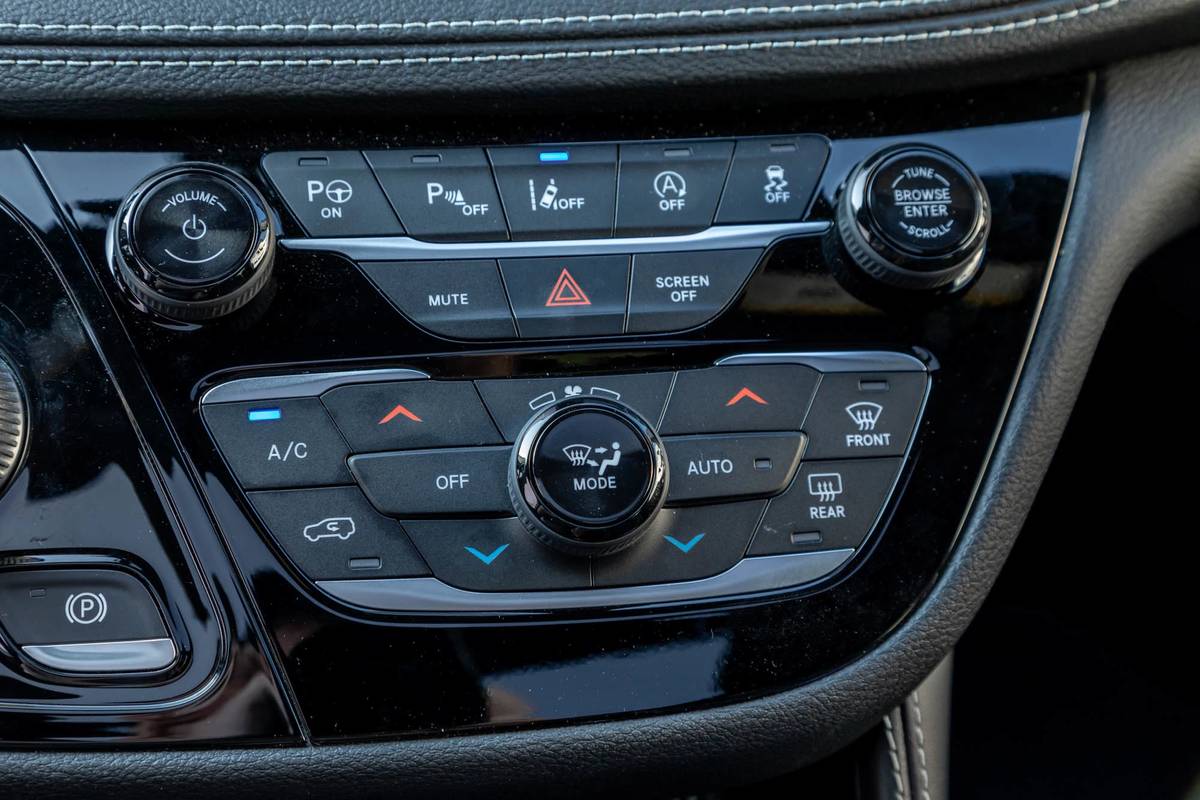
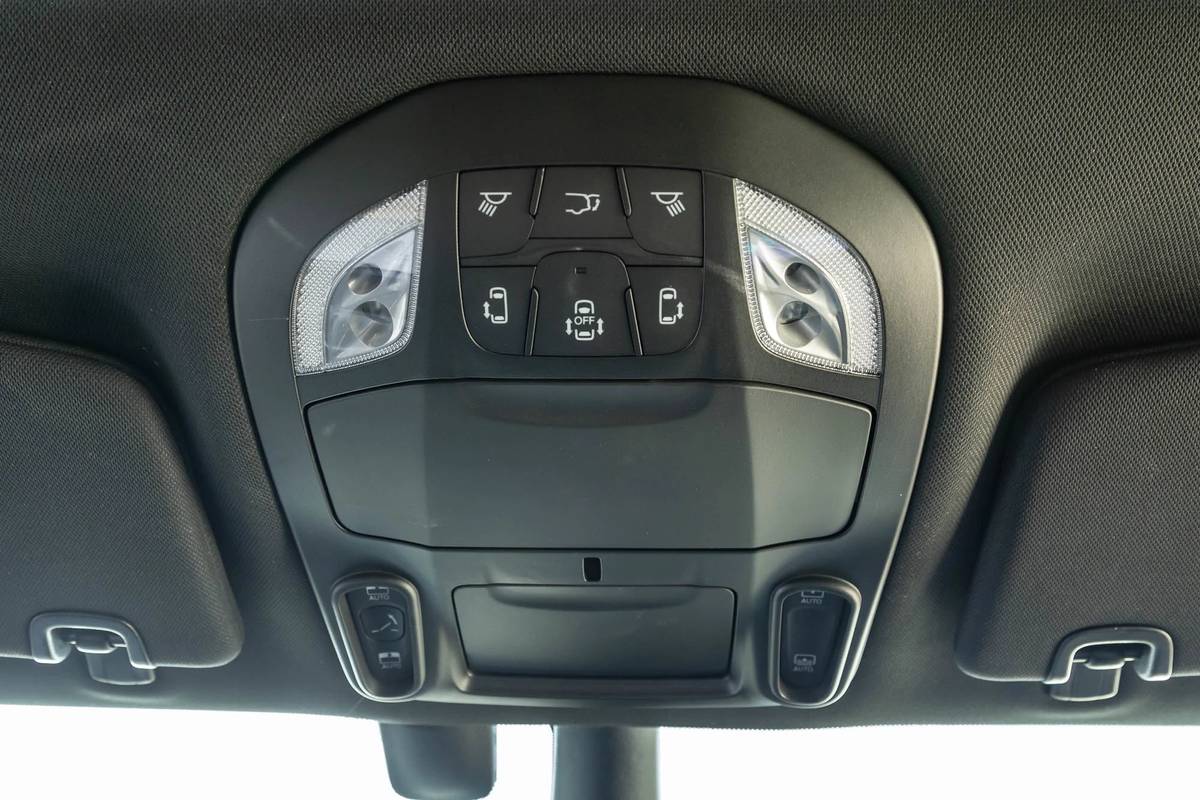

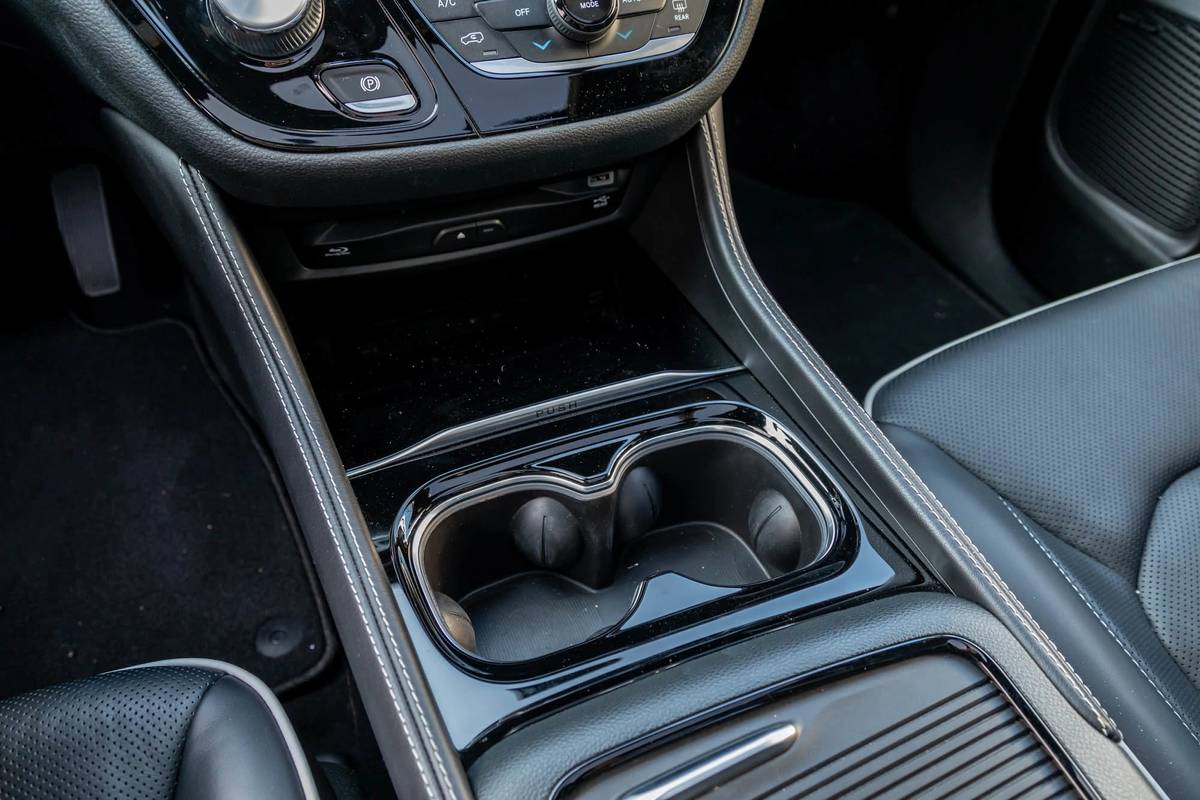
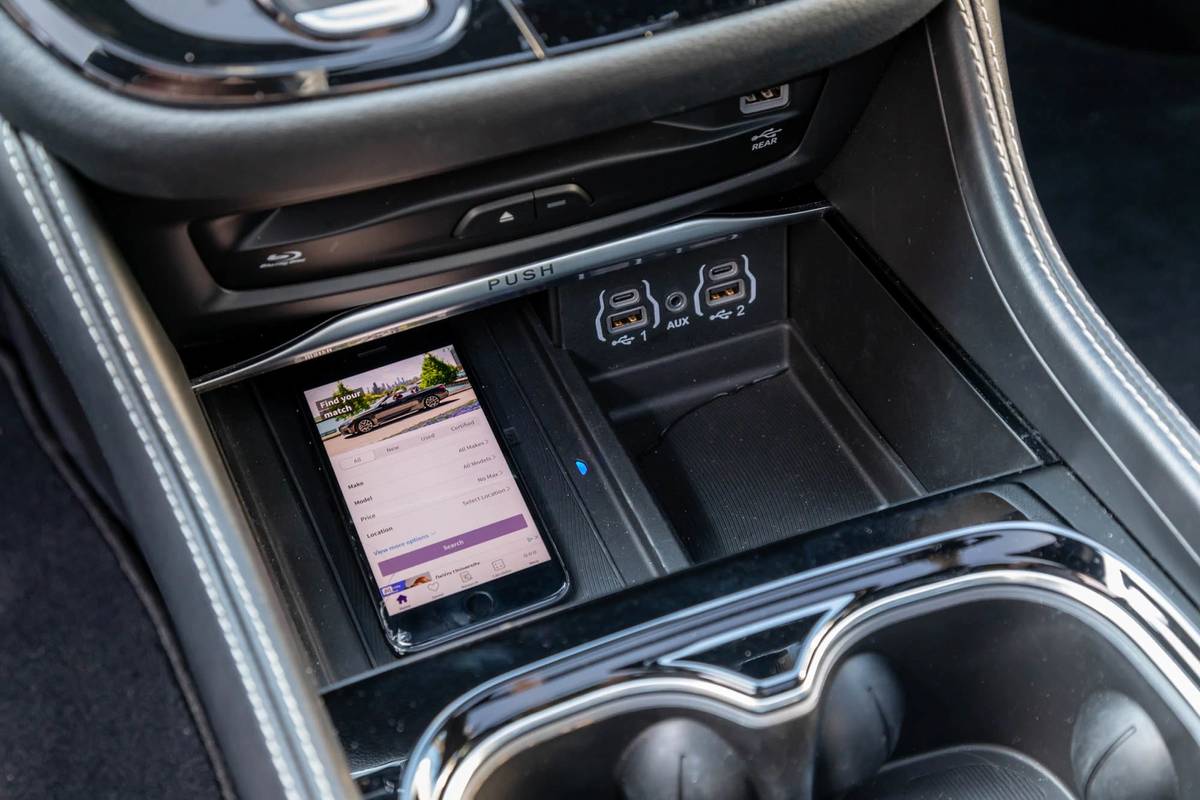

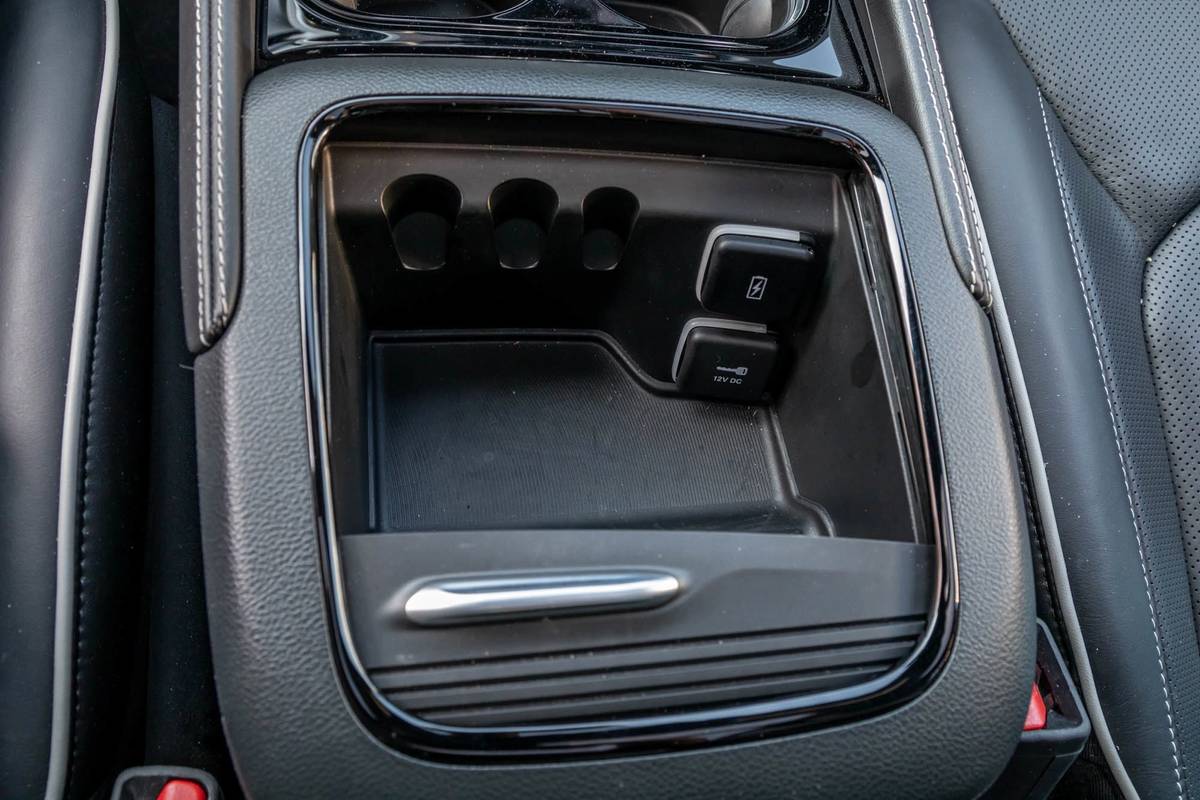

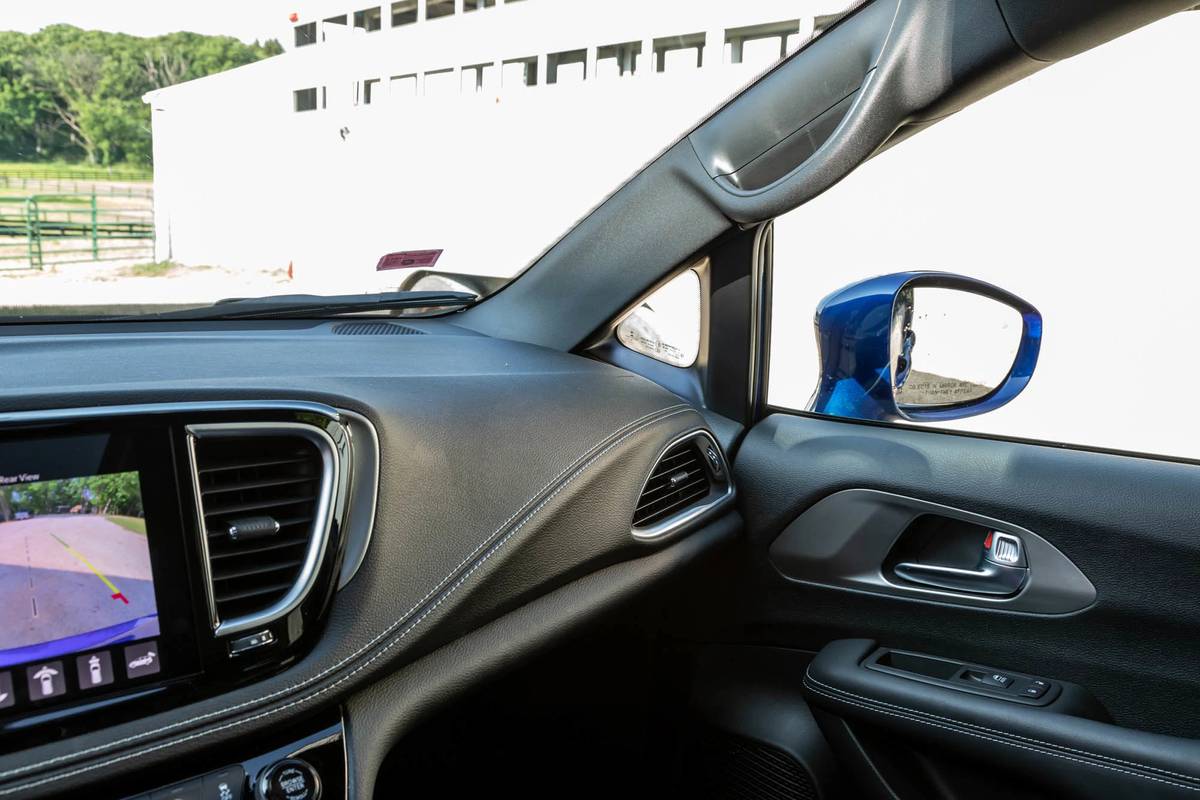
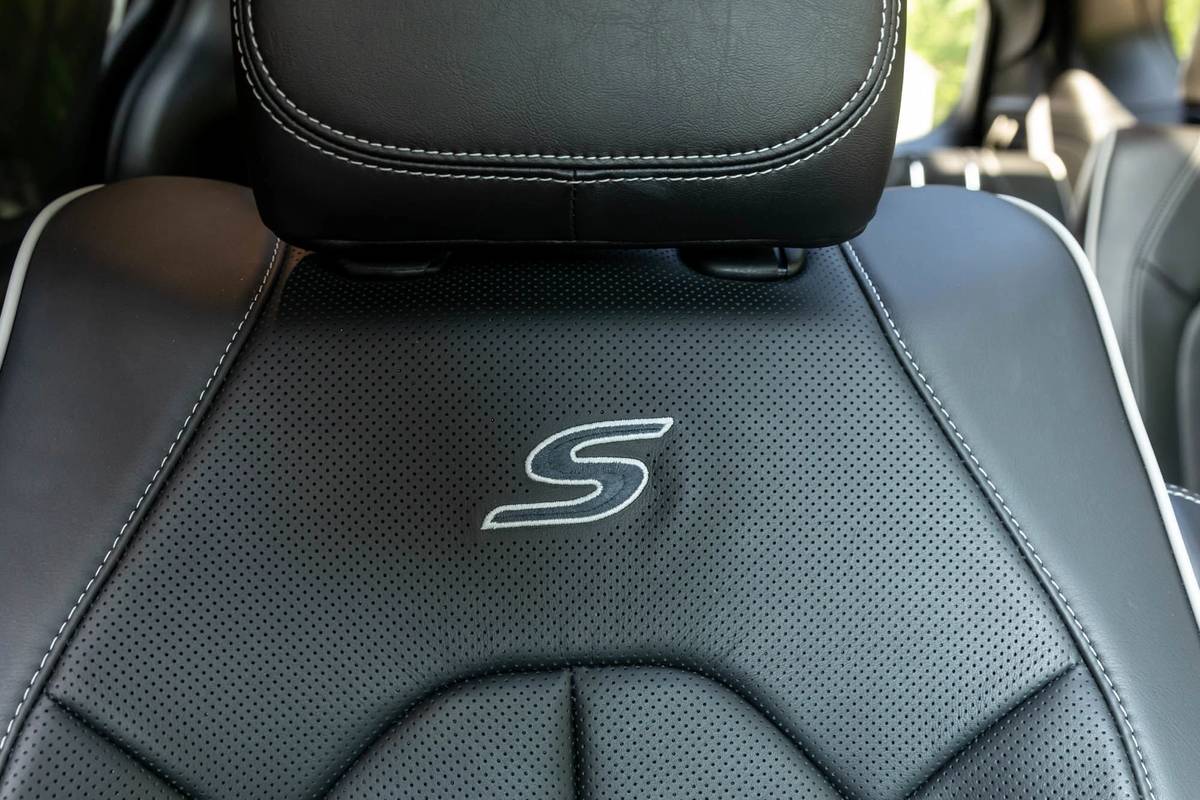
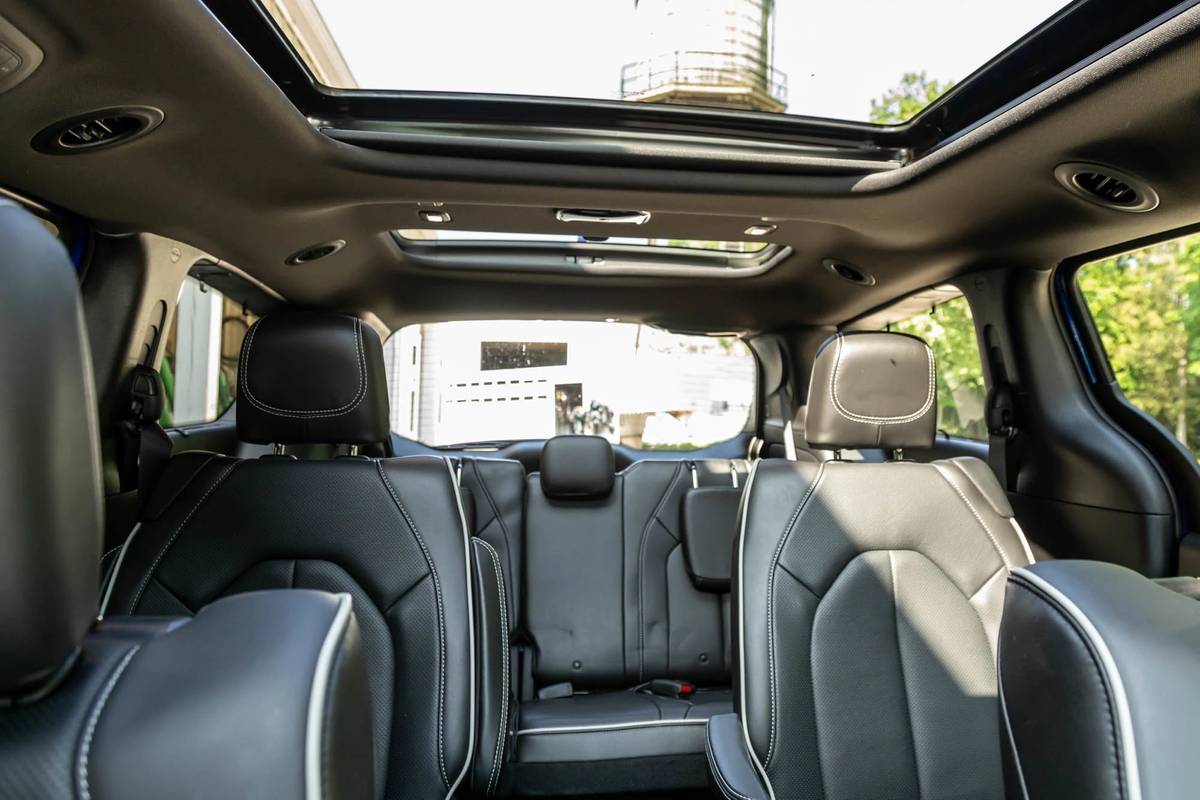

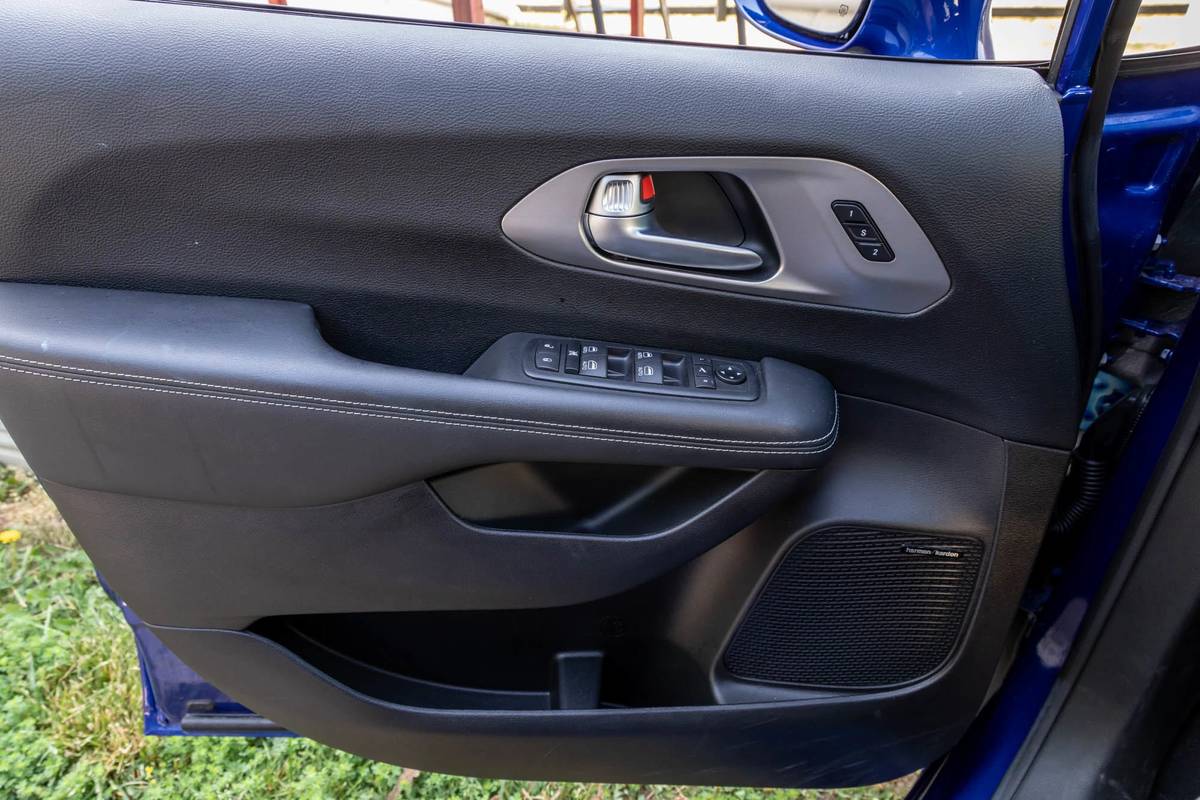
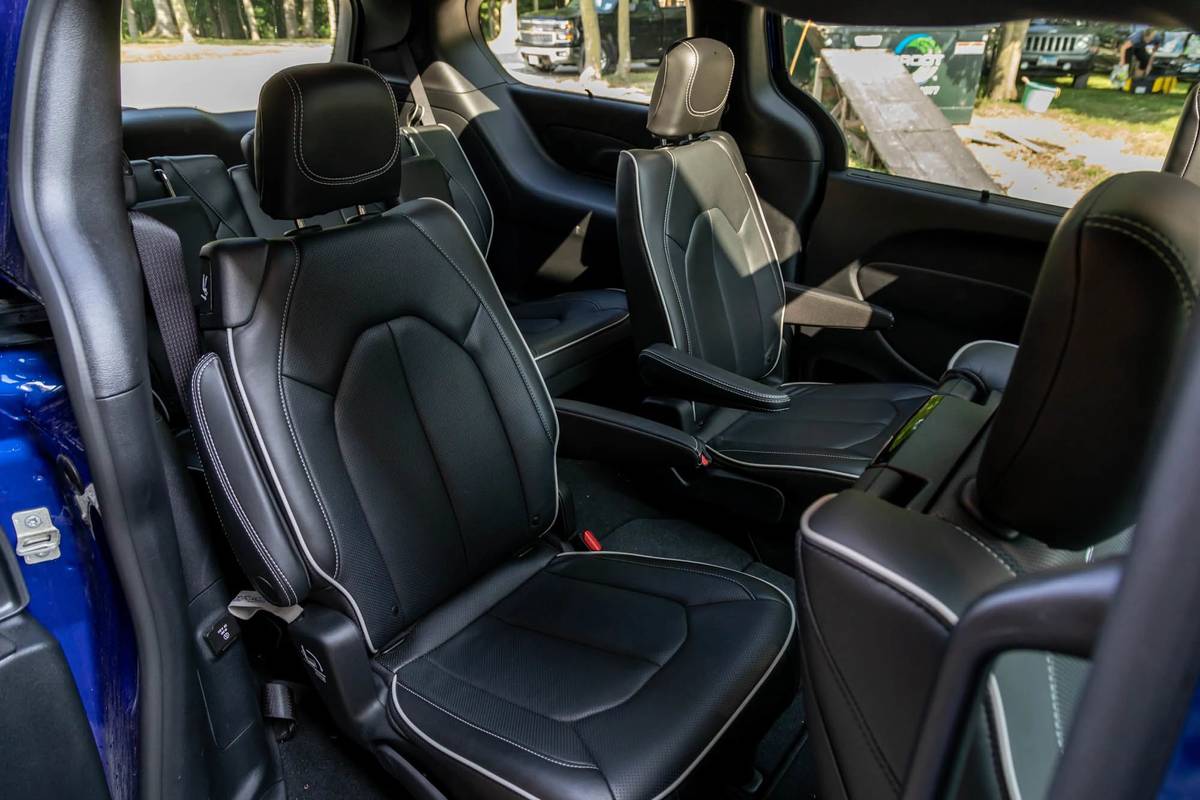
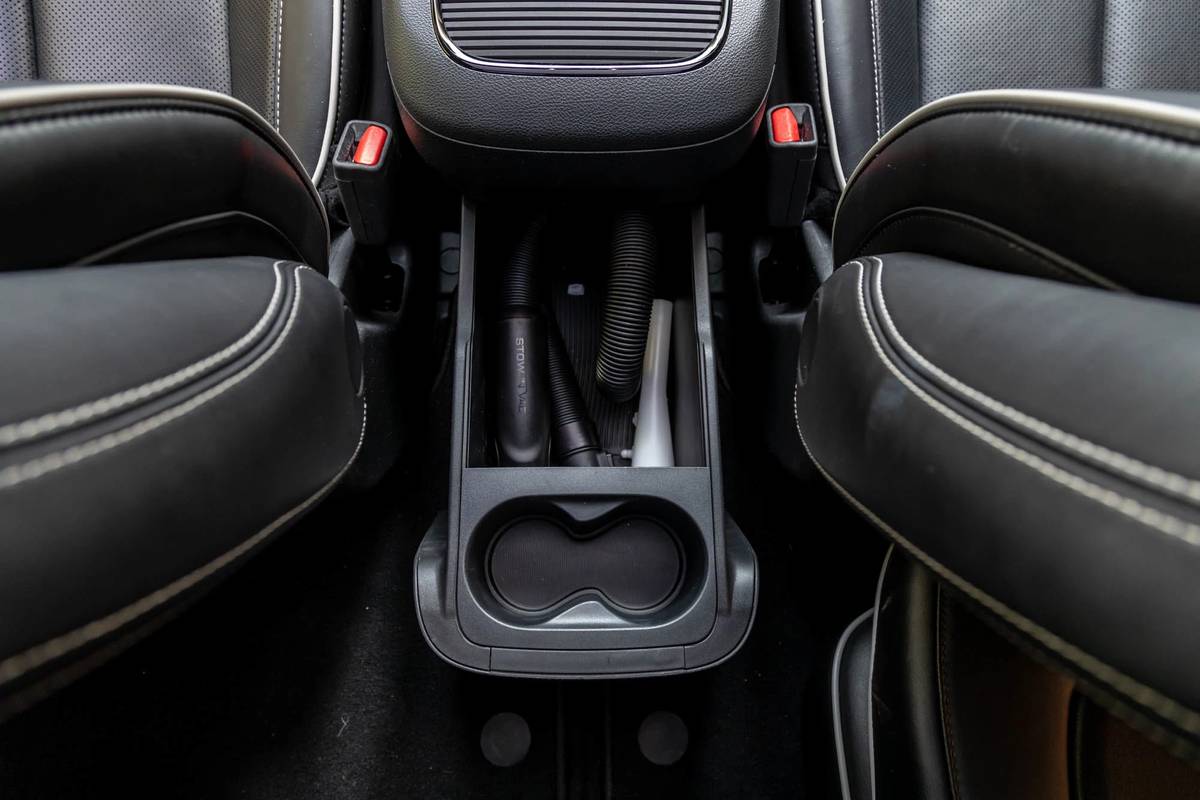

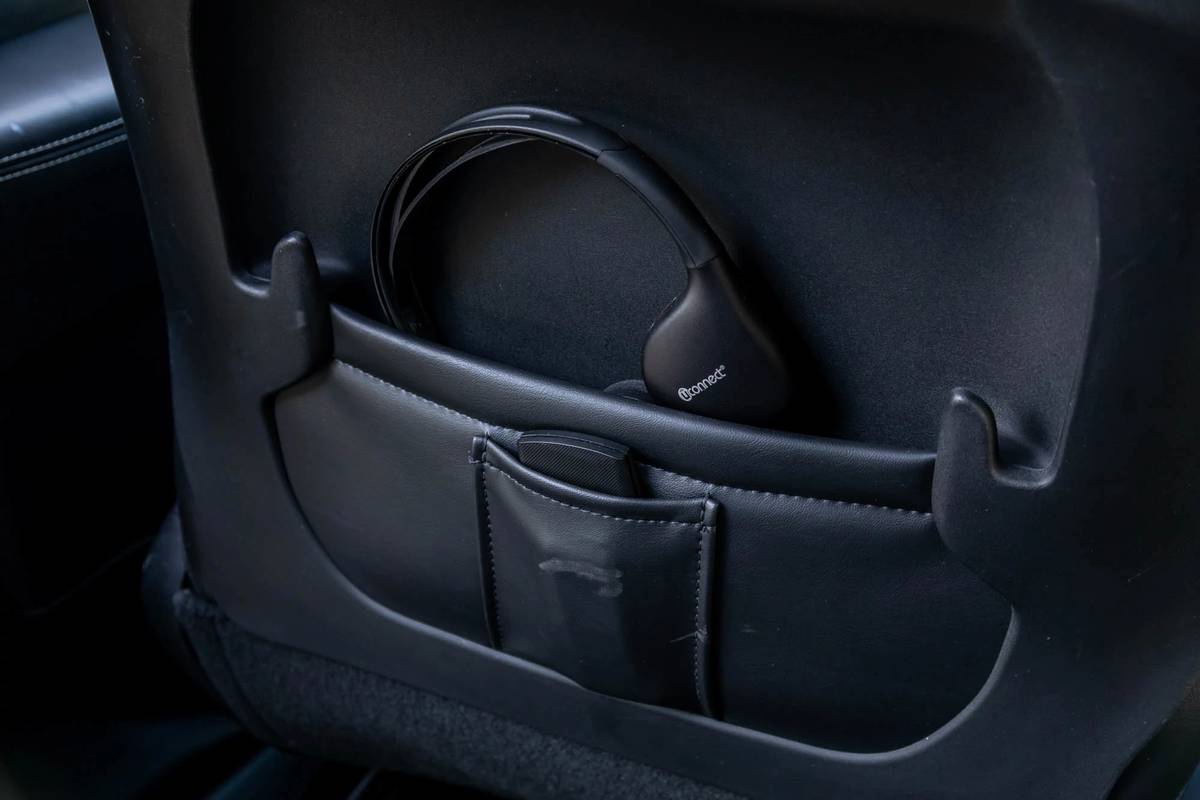

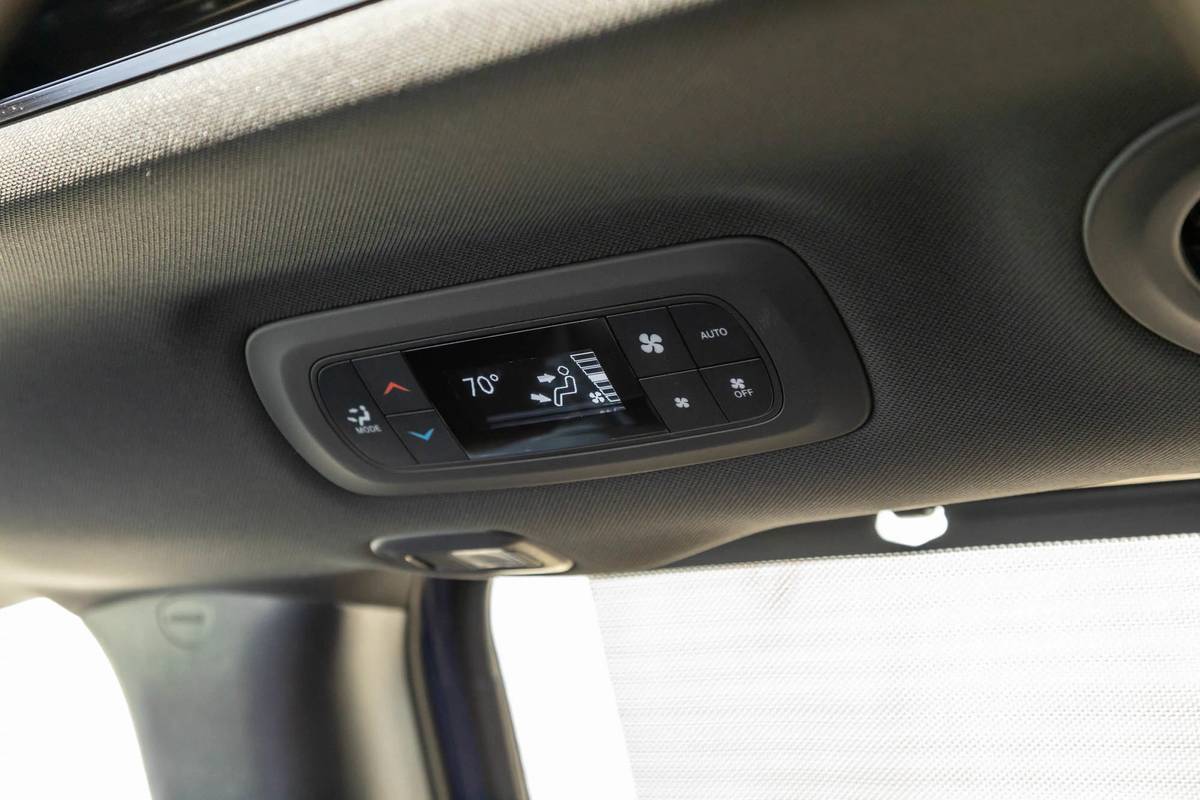



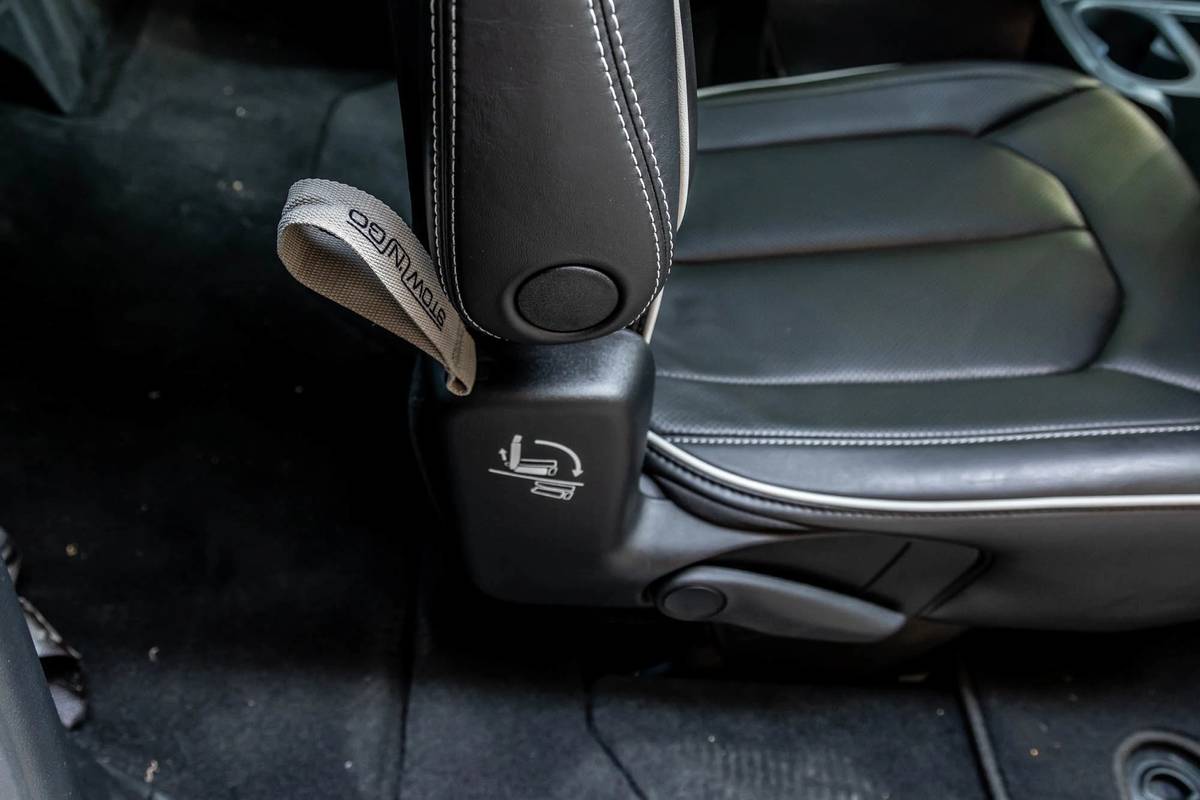

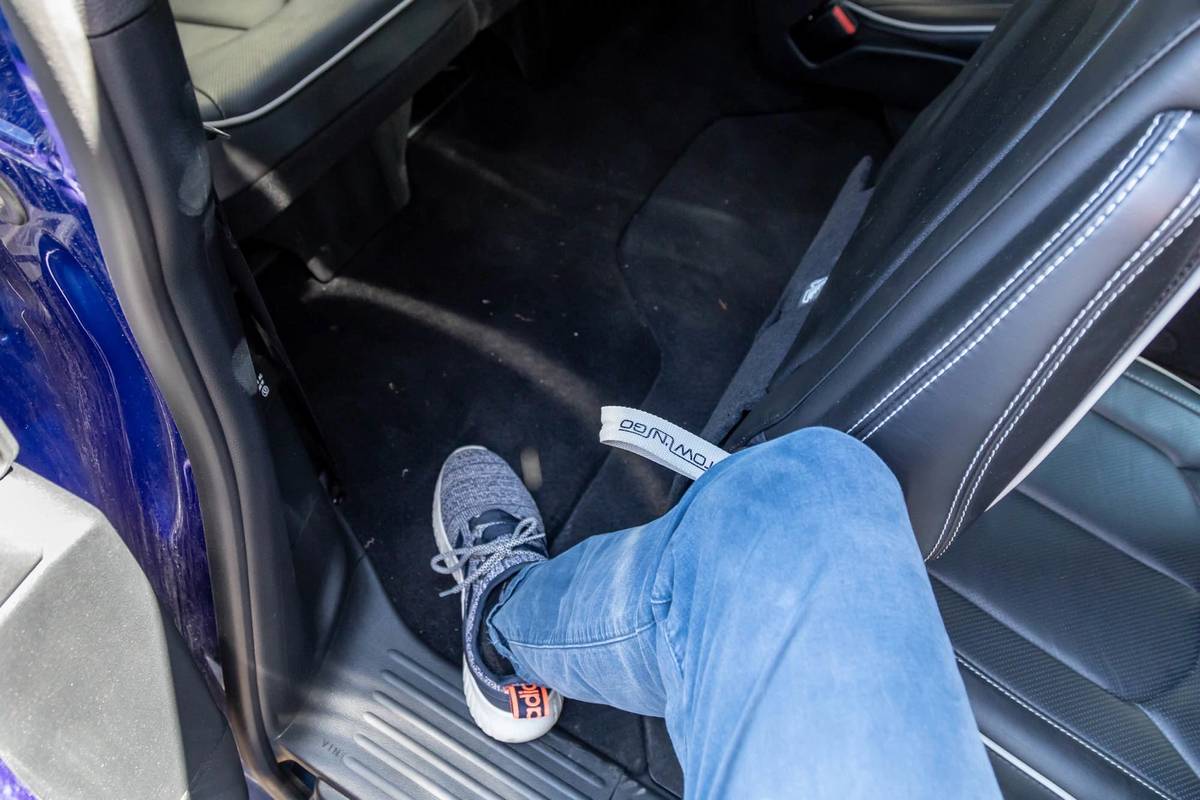
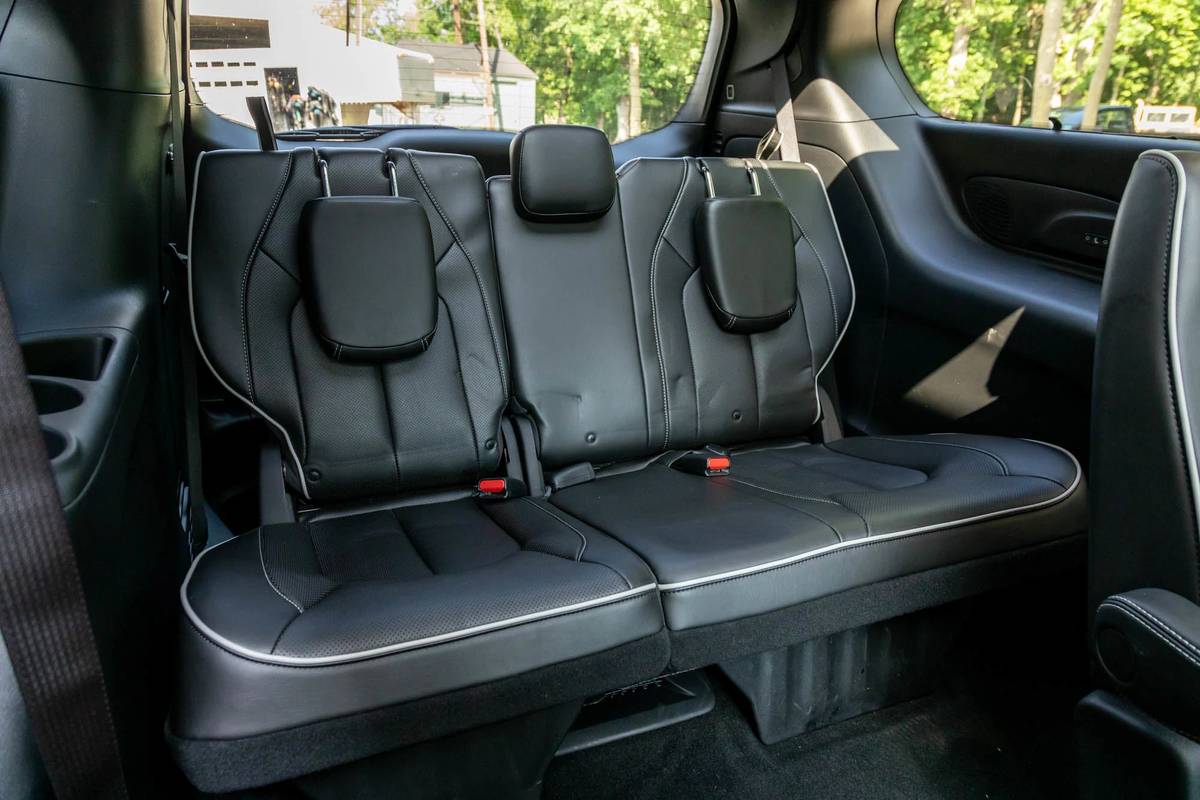
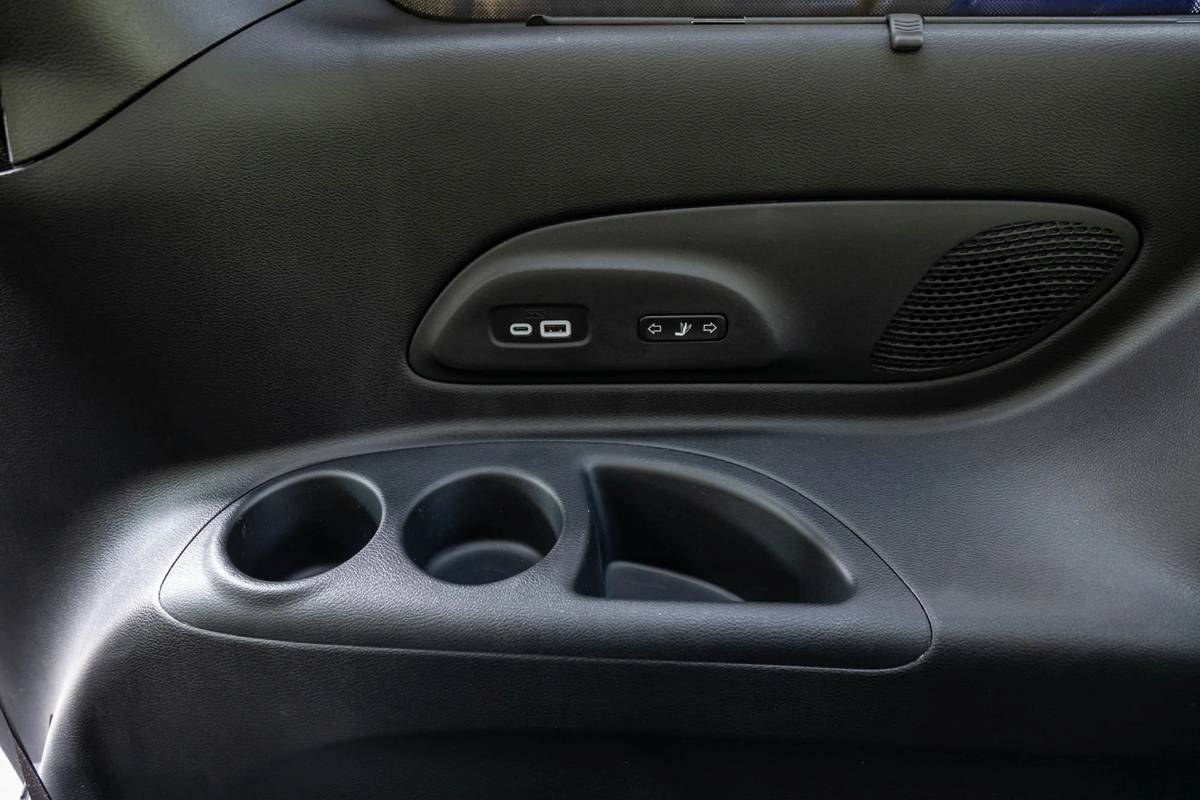
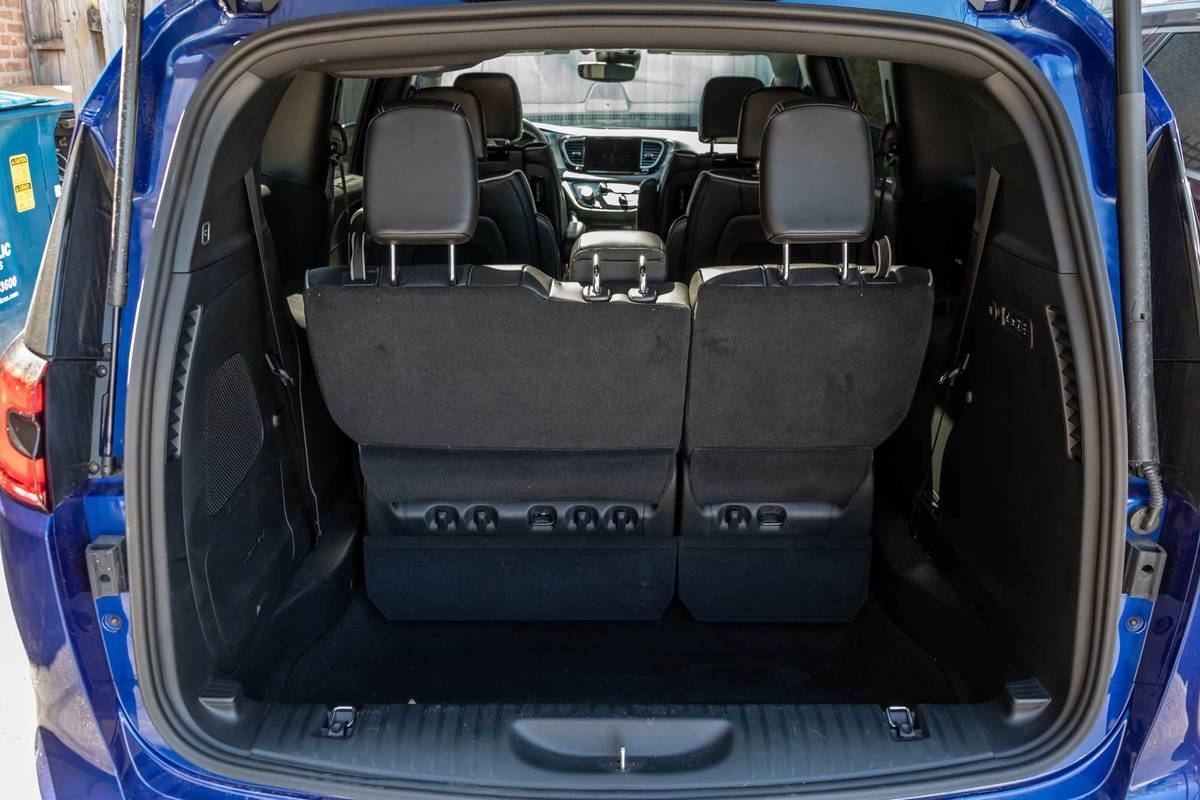
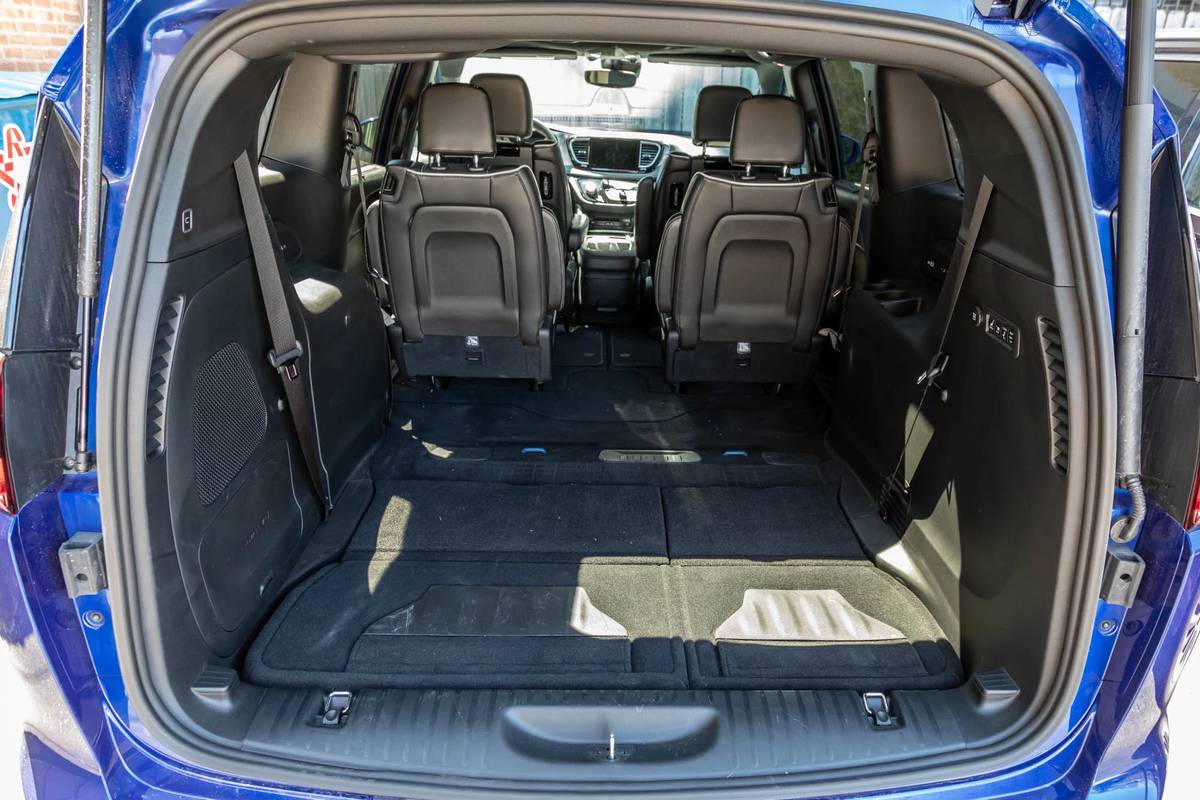
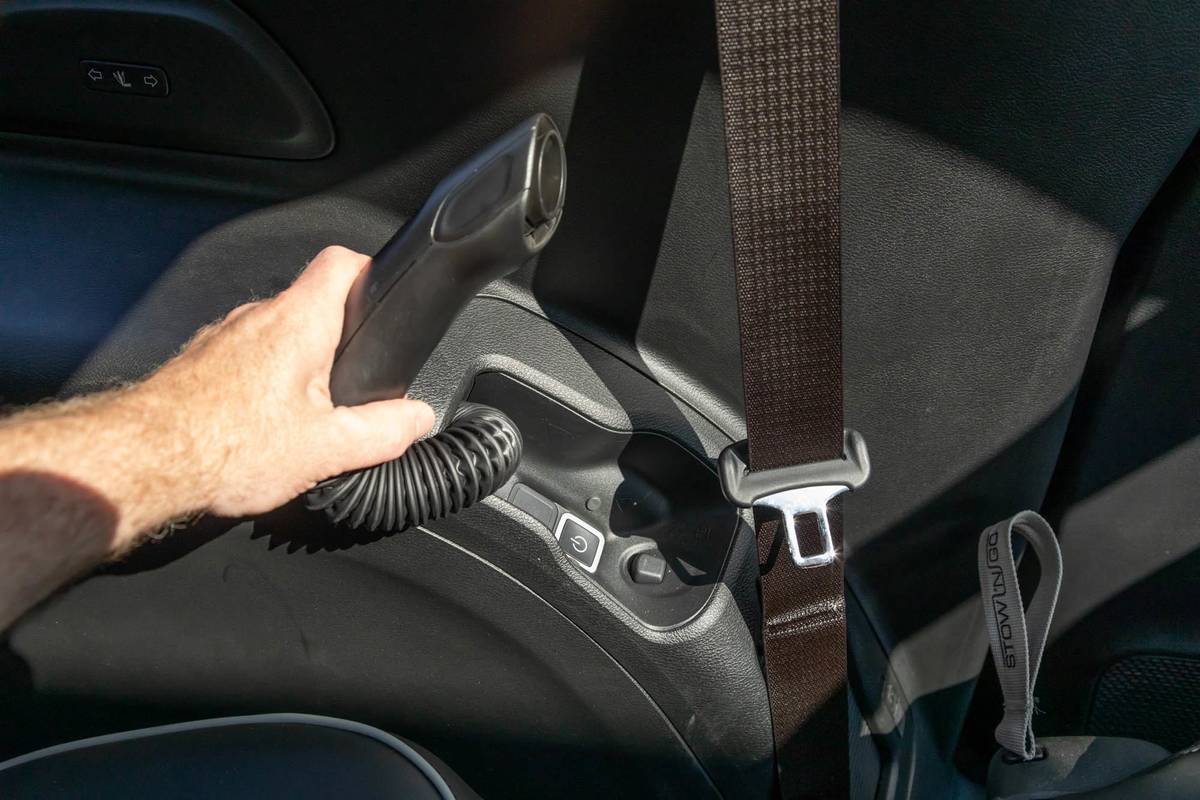
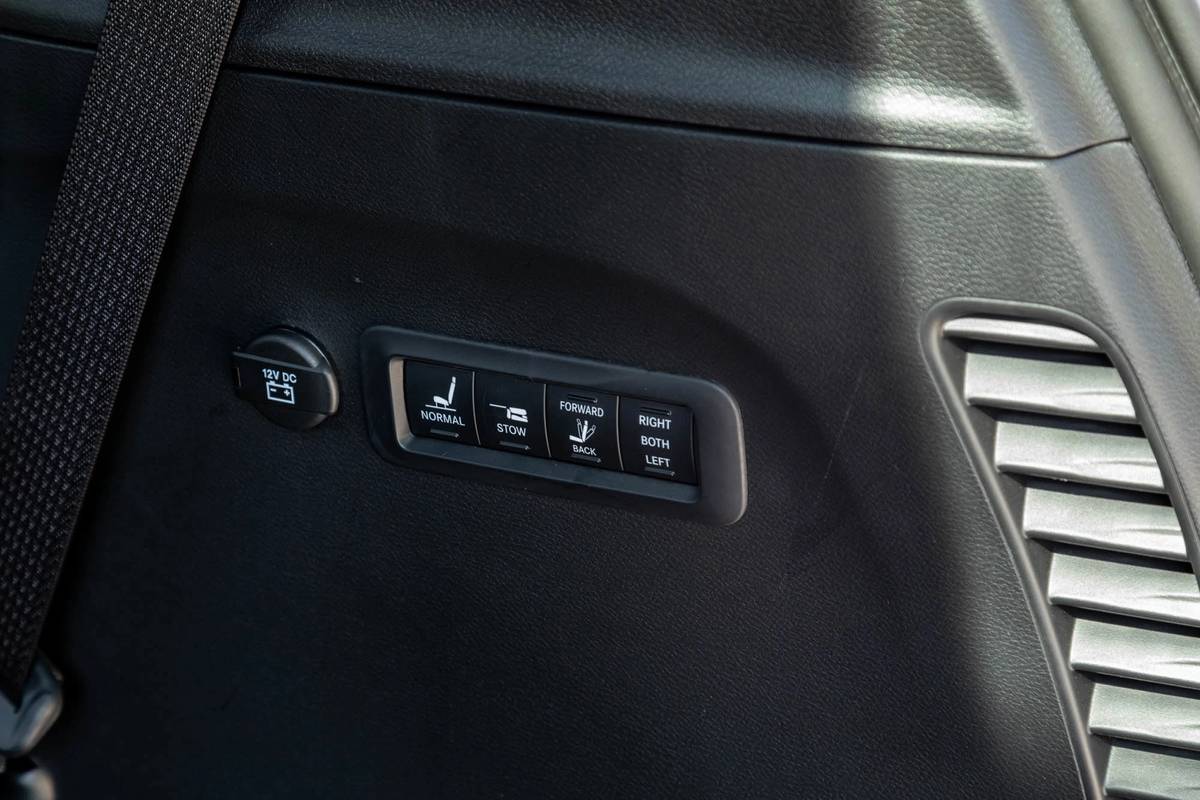
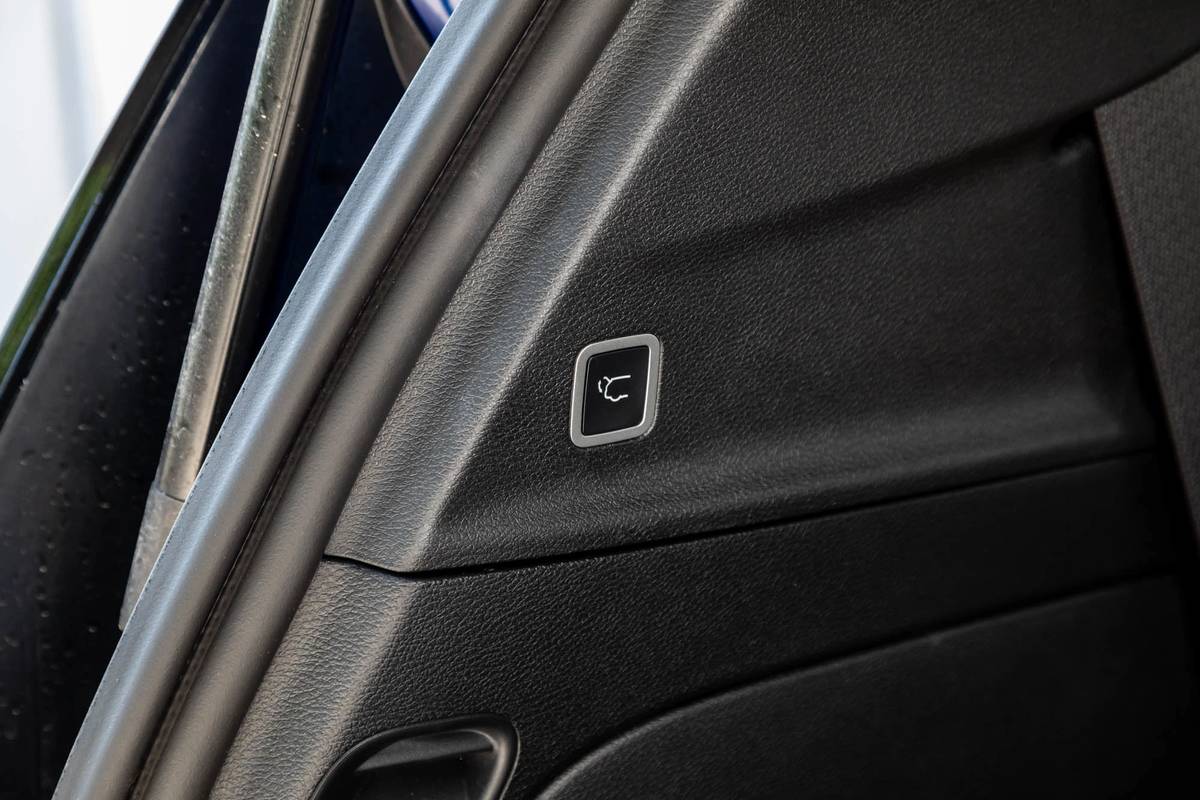





























































Our Test Vehicle
As-tested price: $55,265
Powertrain: 287-horsepower, 3.6-liter V-6 engine; nine-speed automatic transmission; all-wheel drive
Estimated city/highway/combined mpg: 17/25/20
This Cars.com Best of 2017 award winner hasn’t been fully redesigned since its early-2016 debut, but you wouldn’t know it. The model had held up reasonably well, and late 2020’s addition of optional all-wheel drive followed by 2021’s new Uconnect touchscreen system and styling revisions were wise moves at this stage in the market. It outright won seven judging categories and lost four.
The Good
Family-friendly features: “The Pacifica goes for broke on family-friendly extras, including dual entertainment systems that are stowable to protect from theft or horseplay — not the case for the Carnival’s always-exposed units,” Mays said. “And the in-cabin camera sits far enough rearward to see kids in rear-facing car seats, an advantage over the forward-positioned cameras in the Carnival and Odyssey.” Geiger agreed: “FamCam works well, the vacuum is useful and the swipe-activated side and cargo doors are helpful,” she said. “The rear entertainment system is the best of the bunch — easy to use, responsive and versatile, with lots of entertainment options that kept my kids happy for hours.”
Vehicle UI: “The Uconnect touchscreen system is a perennial favorite,” Geiger said. “The new version is faster and the screen is more customizable, especially what you can display on the main screen. The climate controls have large dials and buttons and are very straightforward.”
Multimedia: “This contestant has the group’s only wireless integration for Apple CarPlay and Android Auto, plus nearly as many USB ports as the Odyssey and Carnival combined,” Mays said. “You wouldn’t guess the Pacifica’s age by its technology.” Geiger added, “You can pair two phones at once, helpful for couples who share the car. Connecting to wireless Android Auto was seamless and I find the in-car Alexa system helpful, too.”
Front seats: “The front seats are great — cushy and supportive — and the adjustable armrest is nice,” Geiger said. “There’s plenty of room for head and legs.” Mays added, “The Pacifica gives a commanding view of the road thanks to a high seating position. It also has a wealth of front-seat accommodations, albeit a slightly narrow berth due to Chrysler’s new flow-through console.”
Ride quality: “It boggles the mind why so many minivan makers think families want firm suspensions,” Mays said. “Instead, this is how a van should ride: generous shock absorption on major bumps and high-speed isolation that masks road imperfections. The Pacifica rides unapologetically soft, yet body control remains reasonably good. Nicely done.”
Cargo: The Pacifica owes its top score in this category, in part, to its second row. “Chrysler’s Stow ’n Go seats remain marvelous, and the cavities into which they collapse add 3.19 cubic feet of cargo volume, by our measurement, when not in use,” Mays said. “That’s an important aid to the Pacifica’s cargo situation, which is otherwise modest as minivans go.”
Third row: Rated just a point behind the first-place Odyssey, “the Pacifica’s third row combines decent thigh support with good headroom — two aspects often in conflict,” Mays said. “Our test car’s power reclining and overhead skylight completed the setup.”
The Bad
Child-seat accommodation: “It’s not great in the car seat department,” said Geiger. “ We had to work to connect to the lower anchors because the cushions around them are stiff. On the backsides of the captain’s chairs, the top tether anchors are clearly marked but embedded in the seatback carpet, again taking a bit of muscle to use. The van’s fixed head restraints also got in the way during car seat installation.”
Second-row seats: “Stow ‘n Go is a huge plus, but the seats themselves are firm and flat, and they don’t slide, which is a bummer,” Geiger said. Mays added, “This means passengers can’t negotiate legroom between the second and third rows. As such, maximum knee clearance for second-row denizens is modest, with marginal headroom to boot — especially with our test van’s panoramic moonroof, which robs 1.6 inches from the second row.”
Powertrain: “The AWD Pacifica is hundreds of pounds heavier than the front-drive Odyssey and Carnival, and it feels that way,” Mays said. “Acceleration off the line feels modest, though Chrysler’s big V-6 makes up some ground with stronger power as engine rpm climbs.” Geiger added, “This van is at the bottom for quickness. Power delivery is for the most part linear, but the nine-speed makes itself known and some shifts don’t feel very smooth.”
Driver-assist features: “Chrysler is late to the game on advanced driver-assist systems, and the Pacifica’s lack of lane-centering steering, now a widespread feature, becomes less excusable by the year,” Mays said. The Pacifica’s adaptive cruise control, another aspect of driver-assist scoring, is on par with the other models in its ability to function down to a stop and hold you there in bumper-to-bumper traffic.
High price: “Our Pacifica Limited AWD rang up an eye-watering $55,265, the priciest in the test and nearly five grand north of the group average, and it’s not even Chrysler’s top trim level. It’s well equipped at that, but not comprehensive — it’s still missing the Sienna’s power-adjustable steering column, head-up display and camera-based rearview mirror, as well as the in-cabin intercom offered by all three others. Hard to make any sort of value case here.”
Average in-cabin storage: “Lower trim levels can get a floor console, but the Pacifica Limited’s flow-through console is a step backward for overall utility,” Mays said. “It limits overall storage provisions, as does the smallish glove compartment and a general dearth of second- and third-row cubbies. Our test car had 10 cup and bottle holders, the fewest in the group.”
Research the 2021 Chrysler Pacifica | Search Inventory | Car Seat Check
1. 2022 Kia Carnival SX FWD, 259 points
The verdict: A budget-priced van that doesn’t make you suffer, the Carnival has first-rate technology, a swift drivetrain and rock-solid value to offset its less utilitarian aspects.
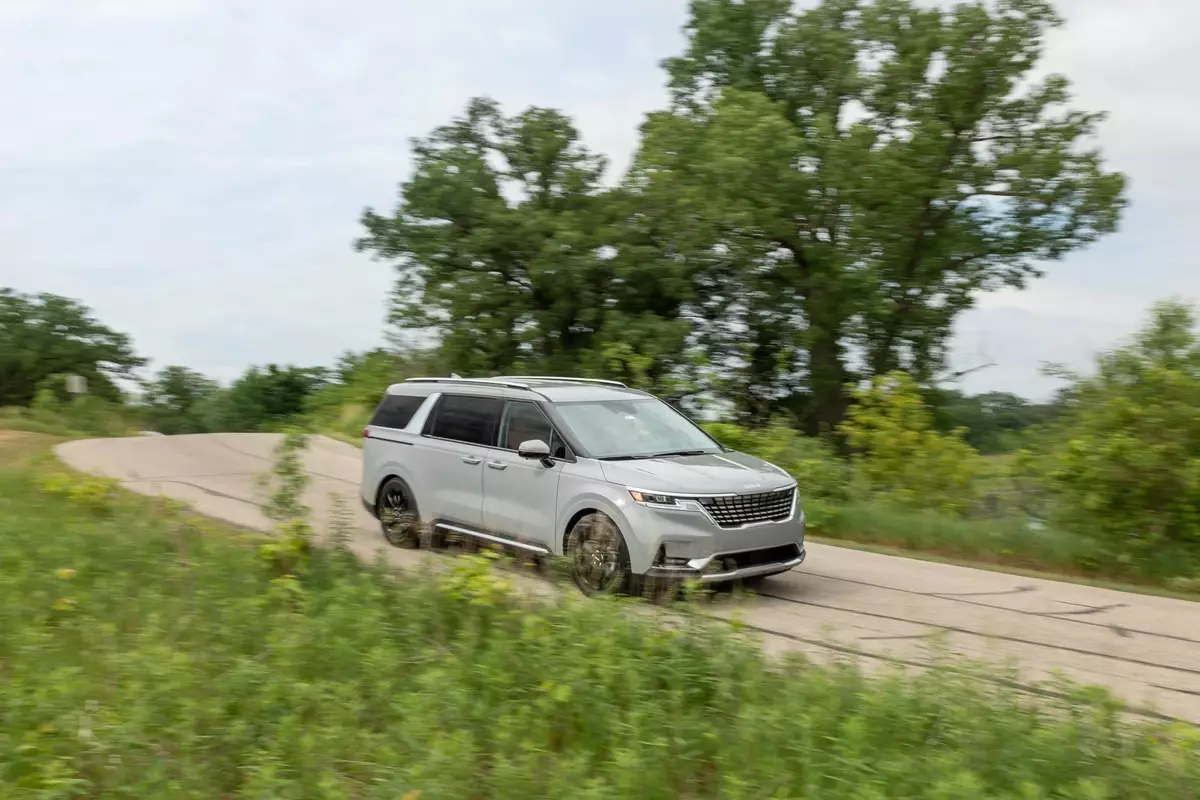
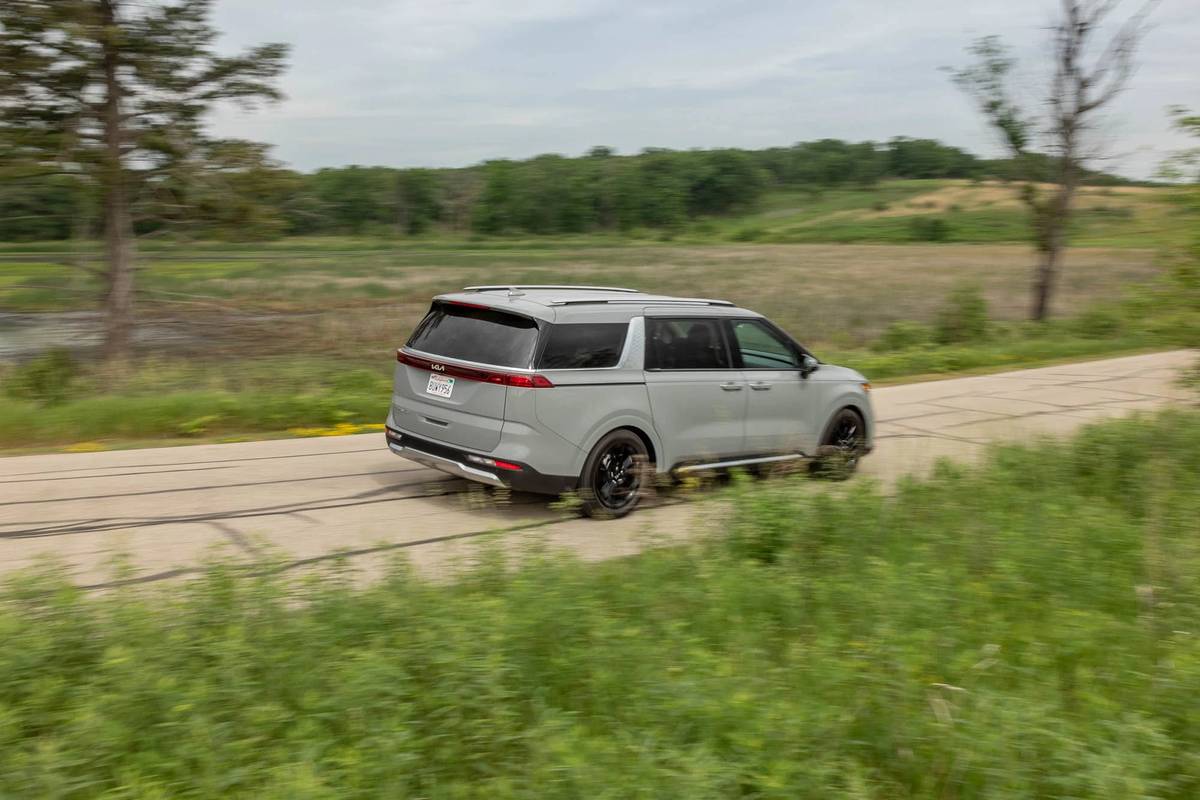
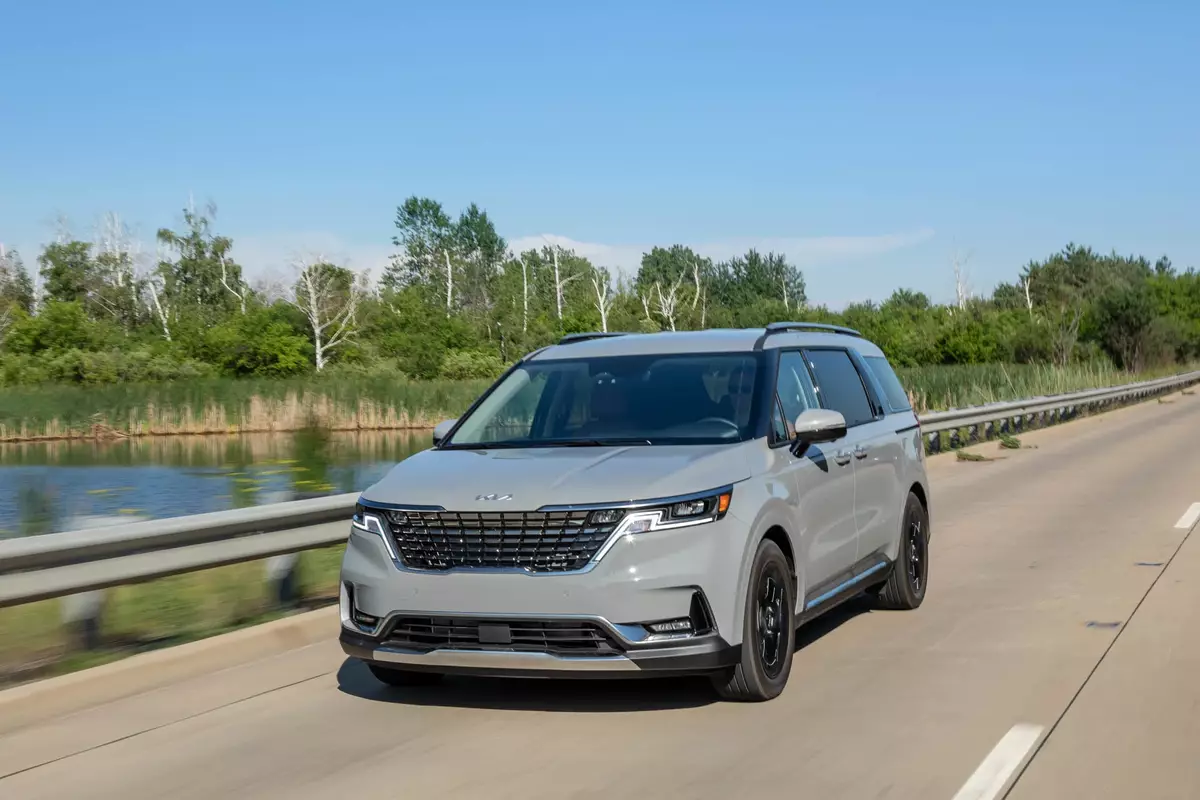
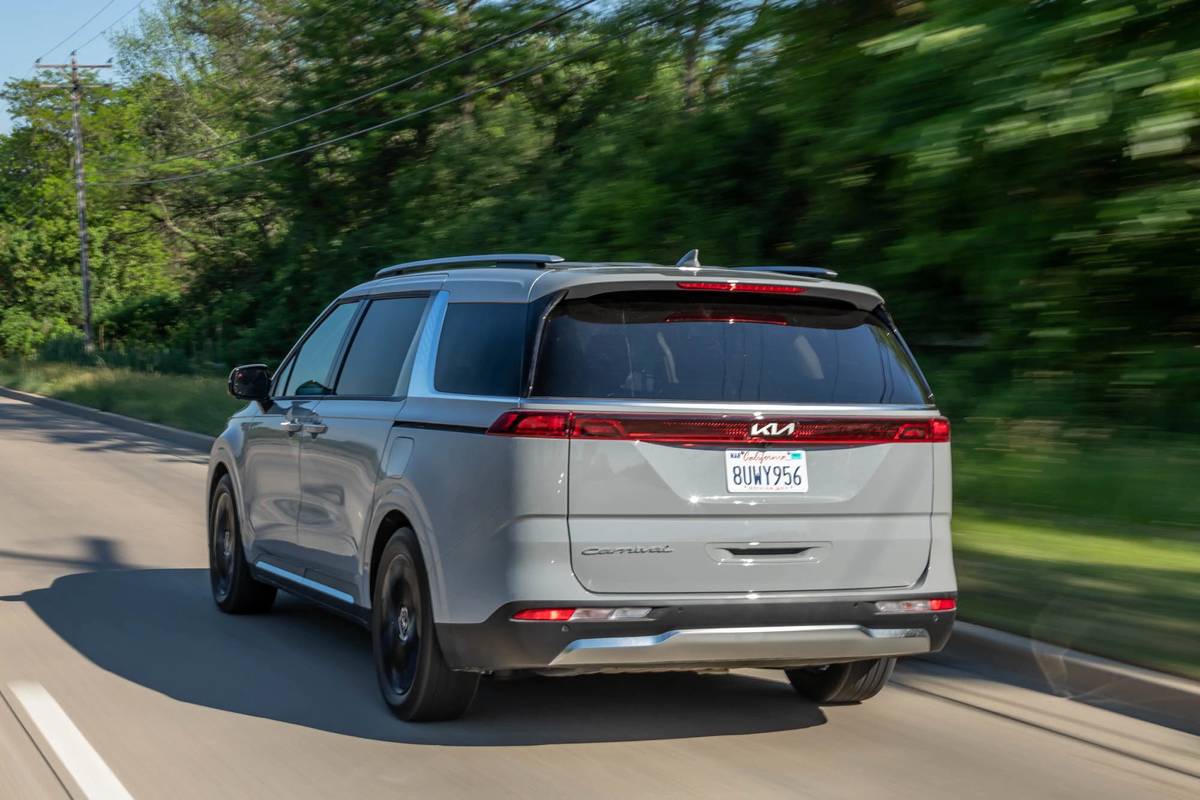
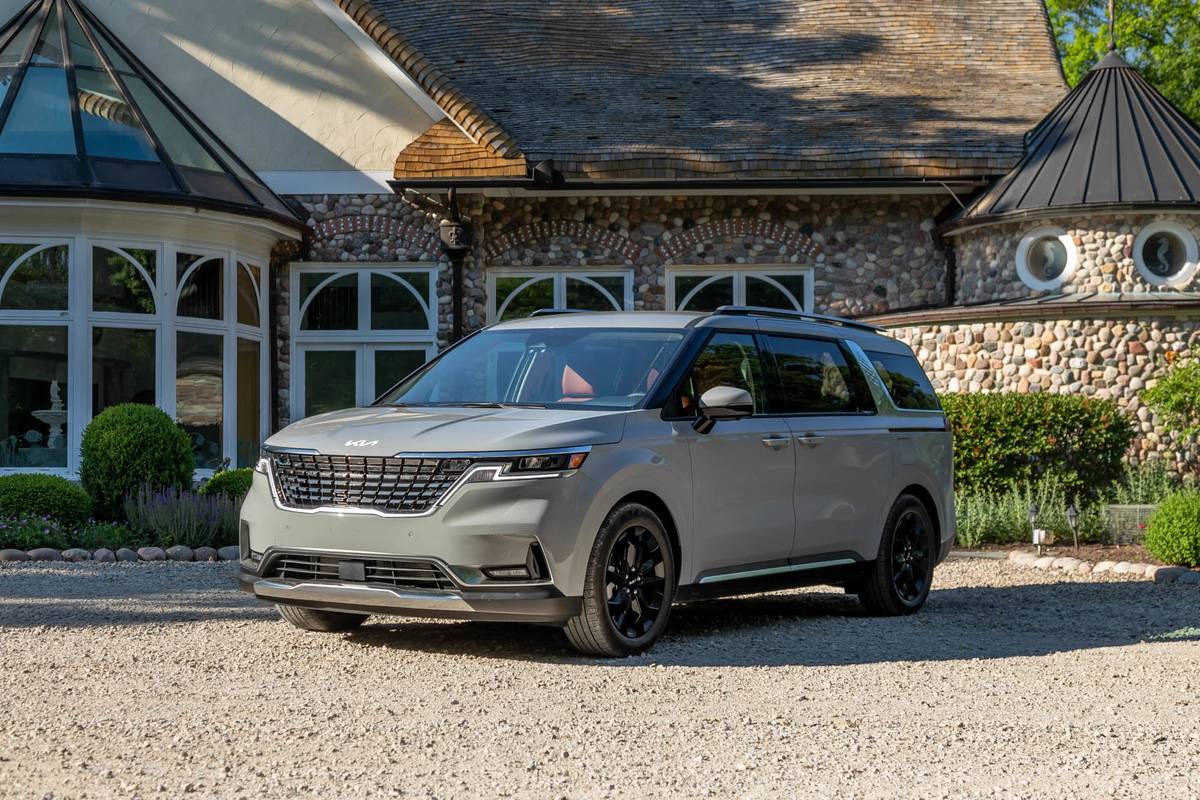
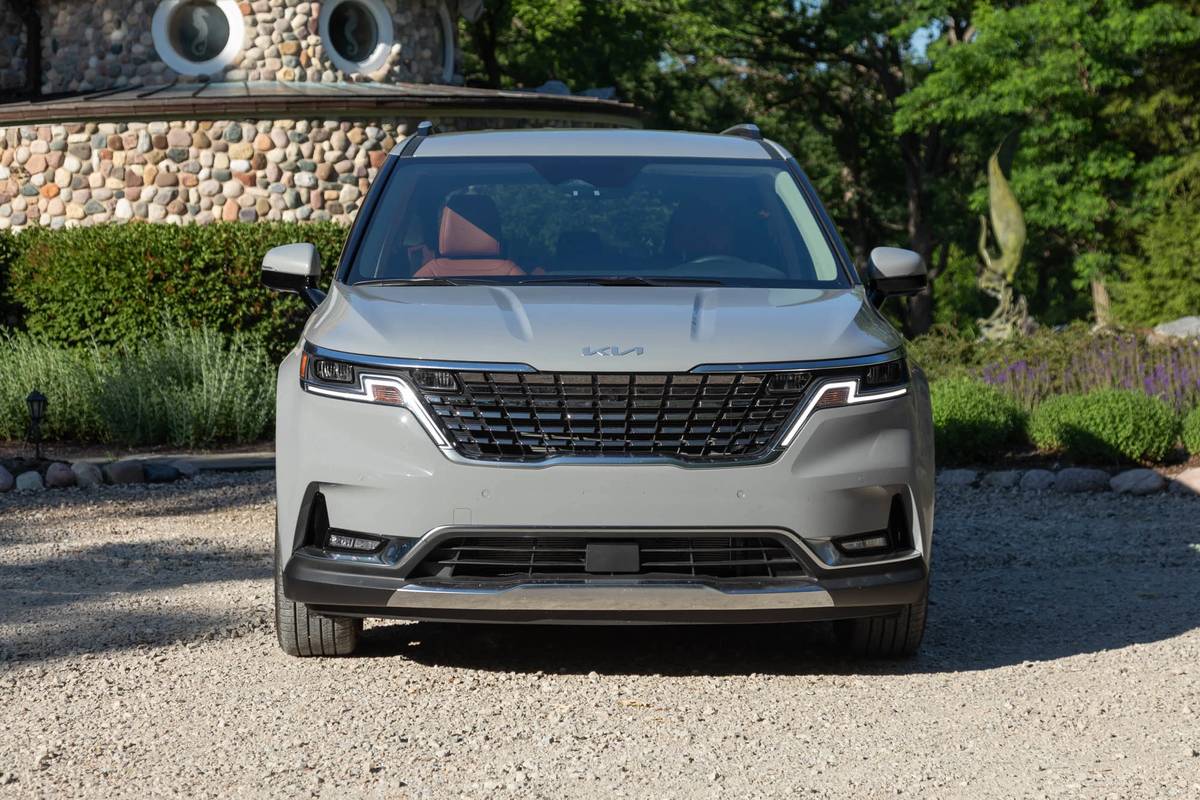
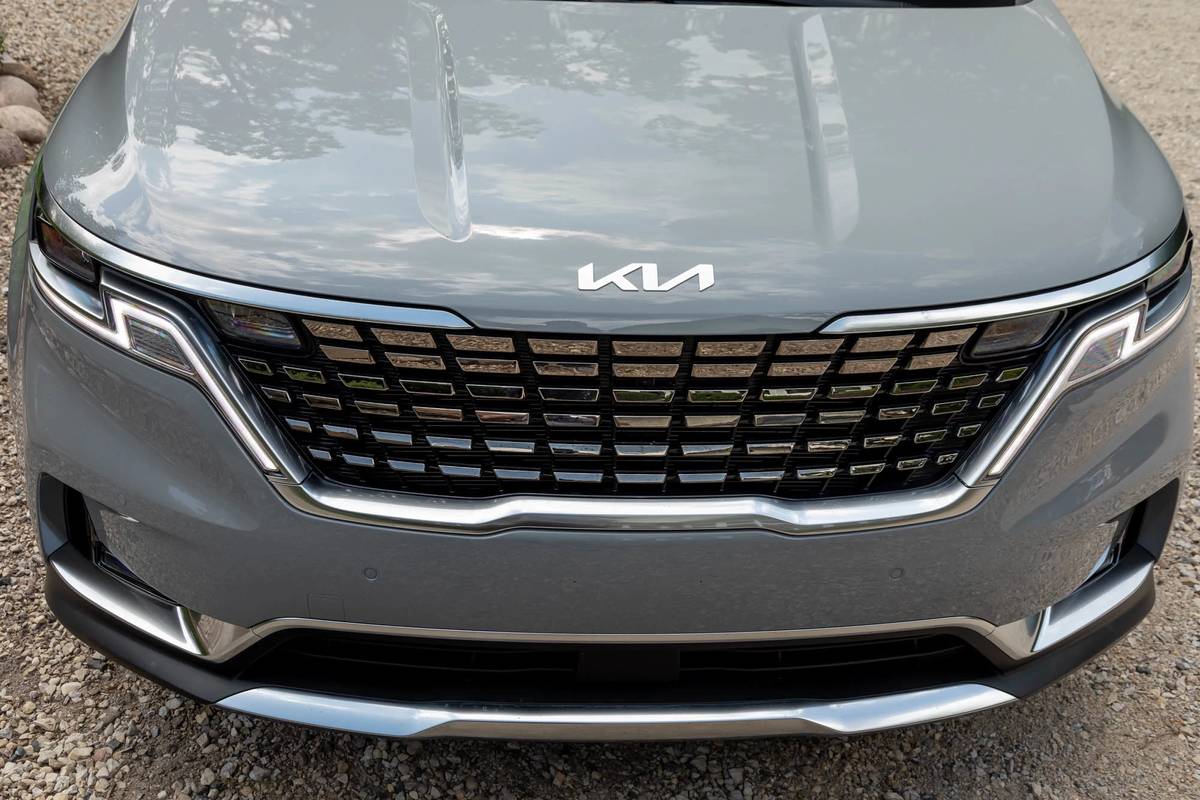
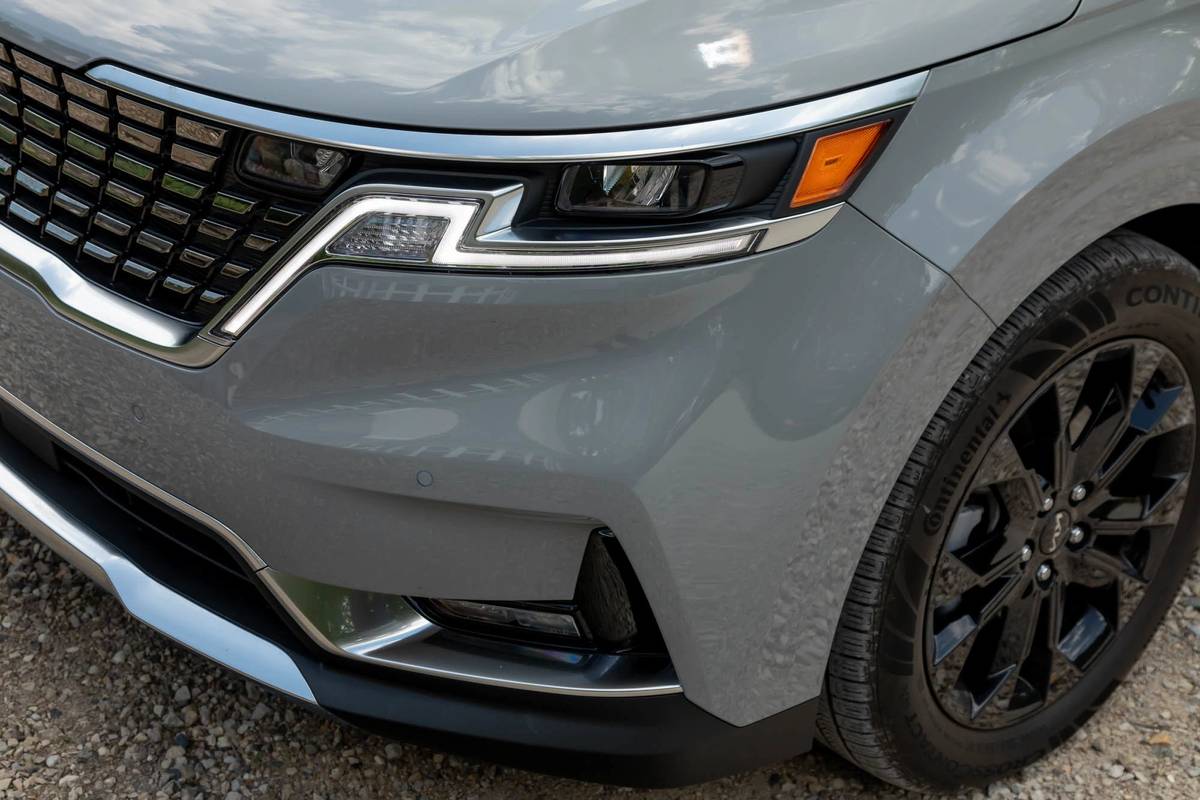
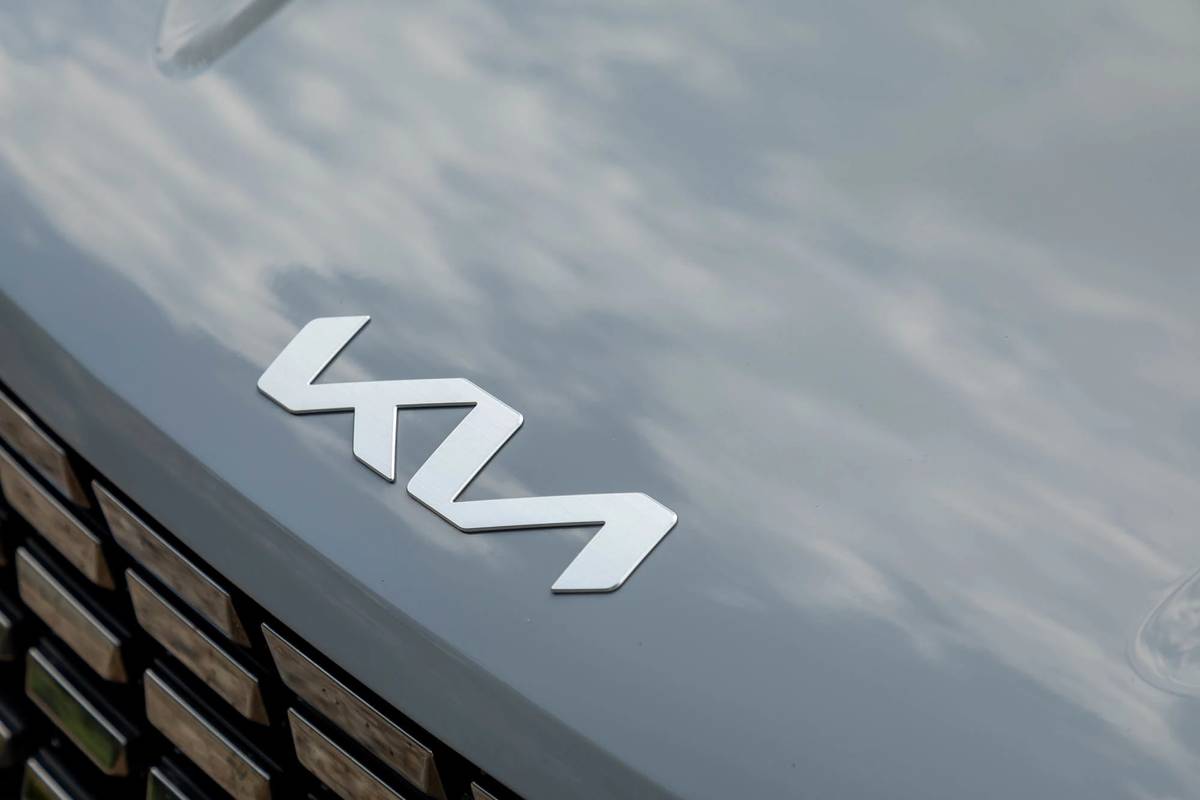
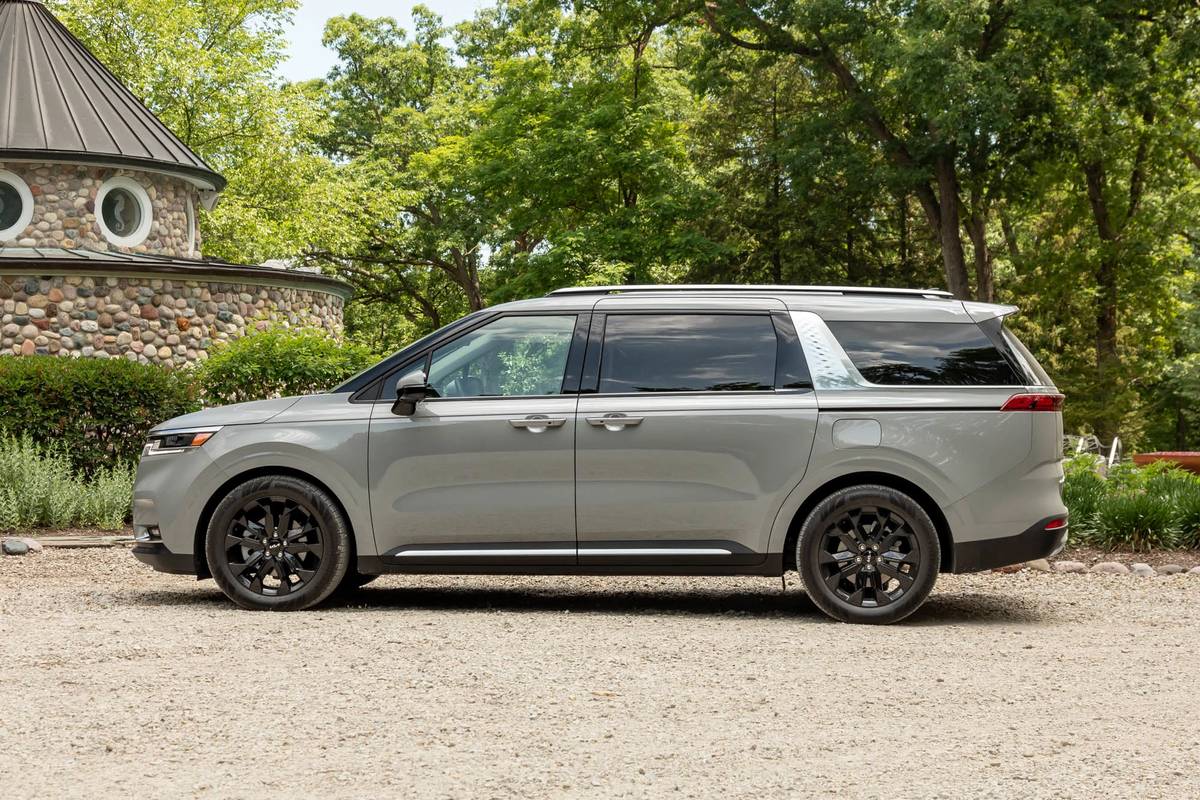
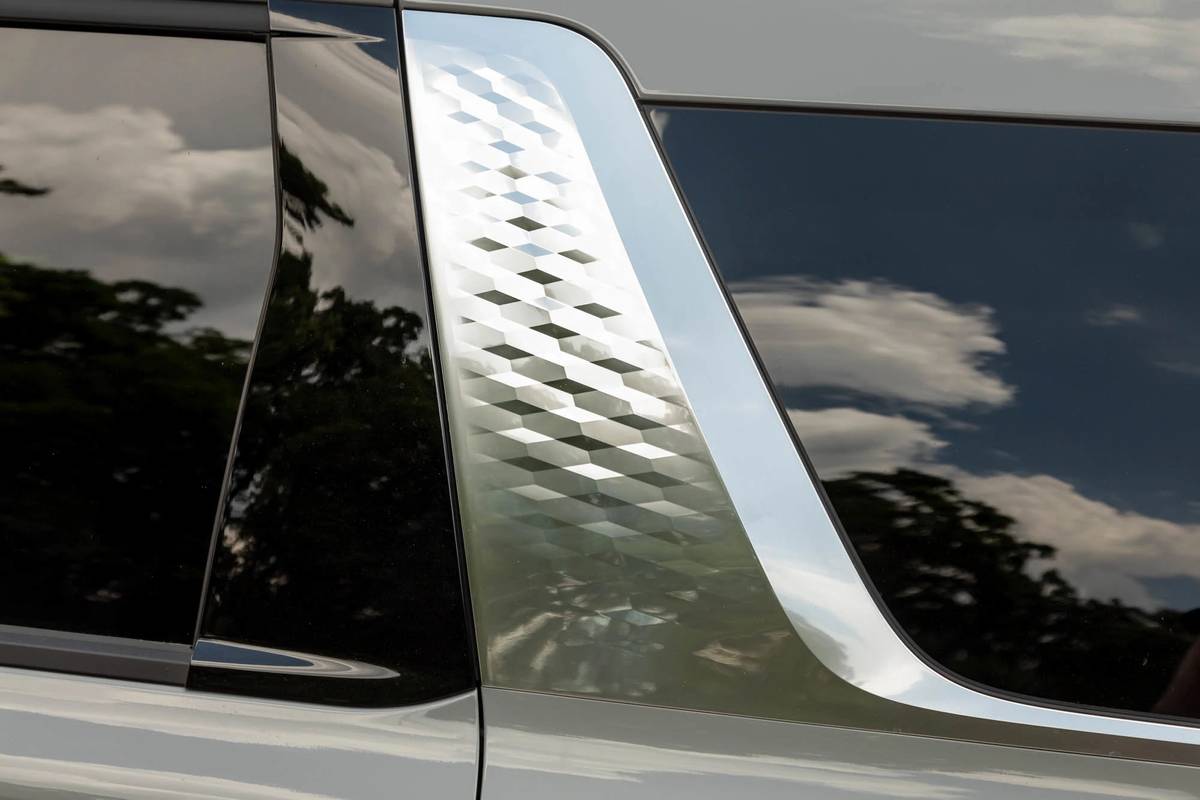
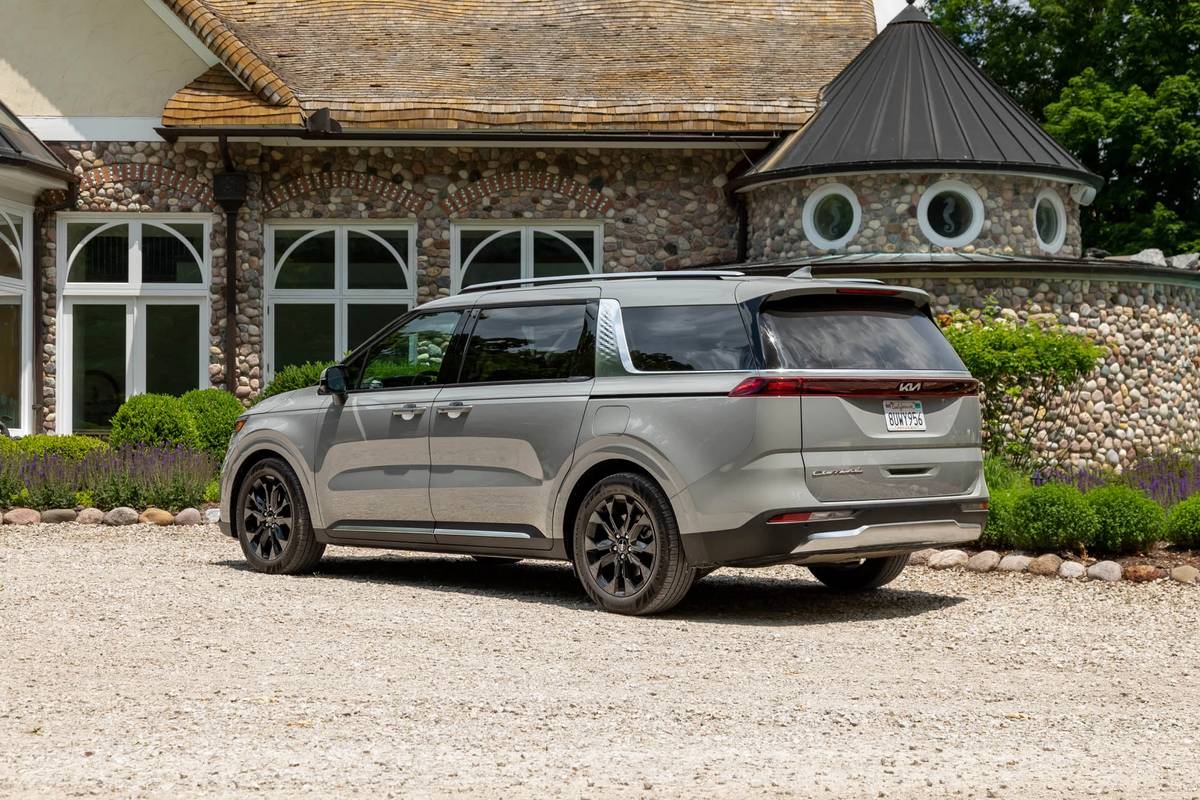
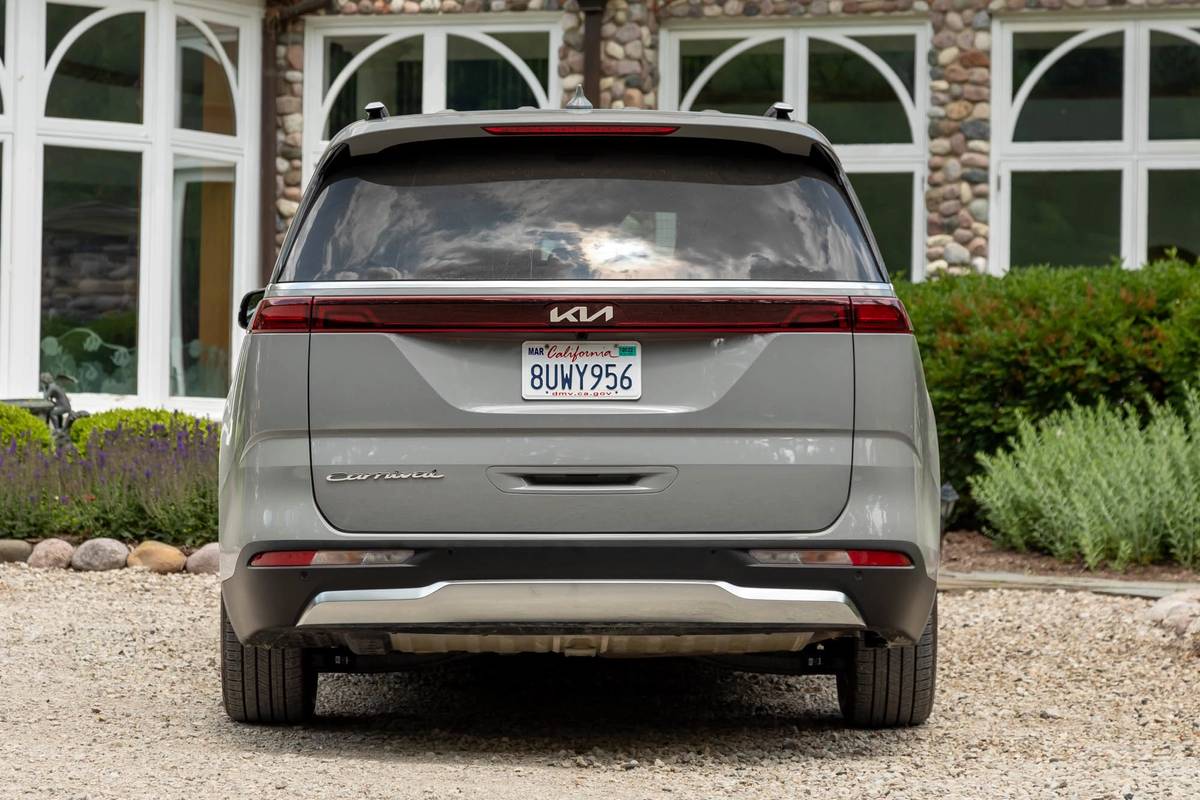
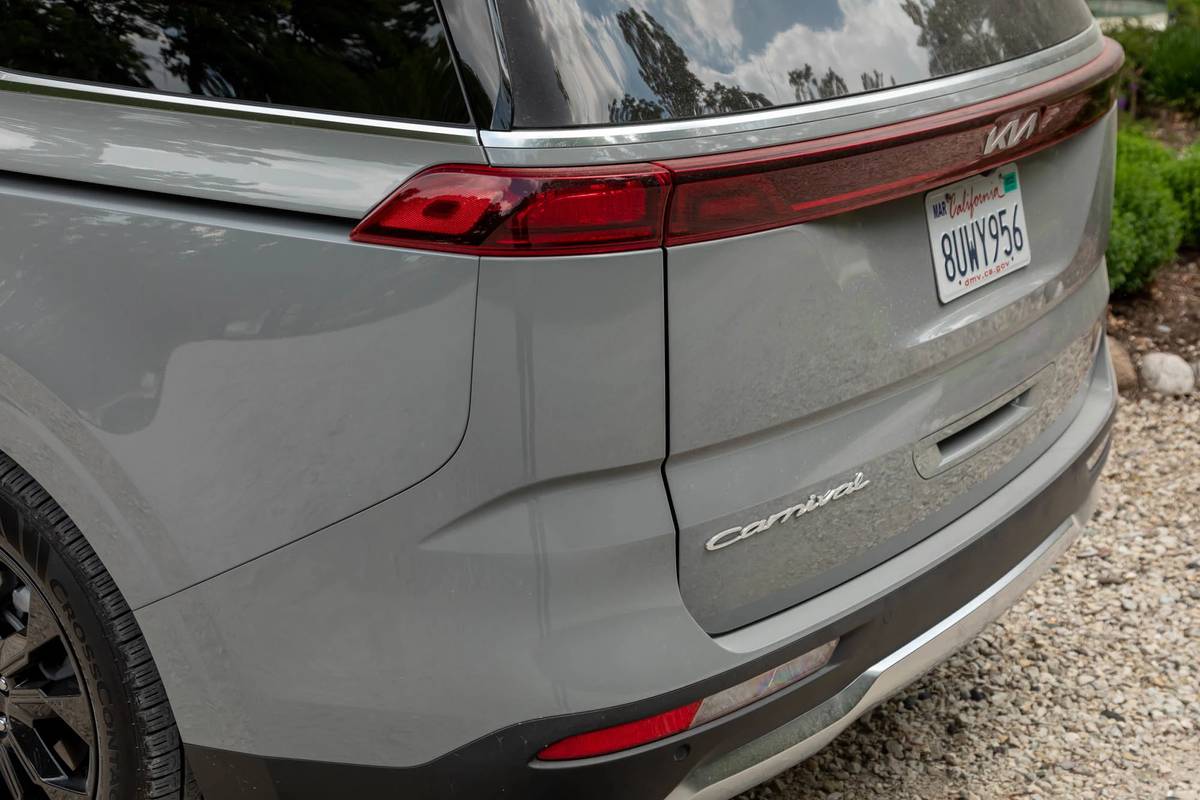
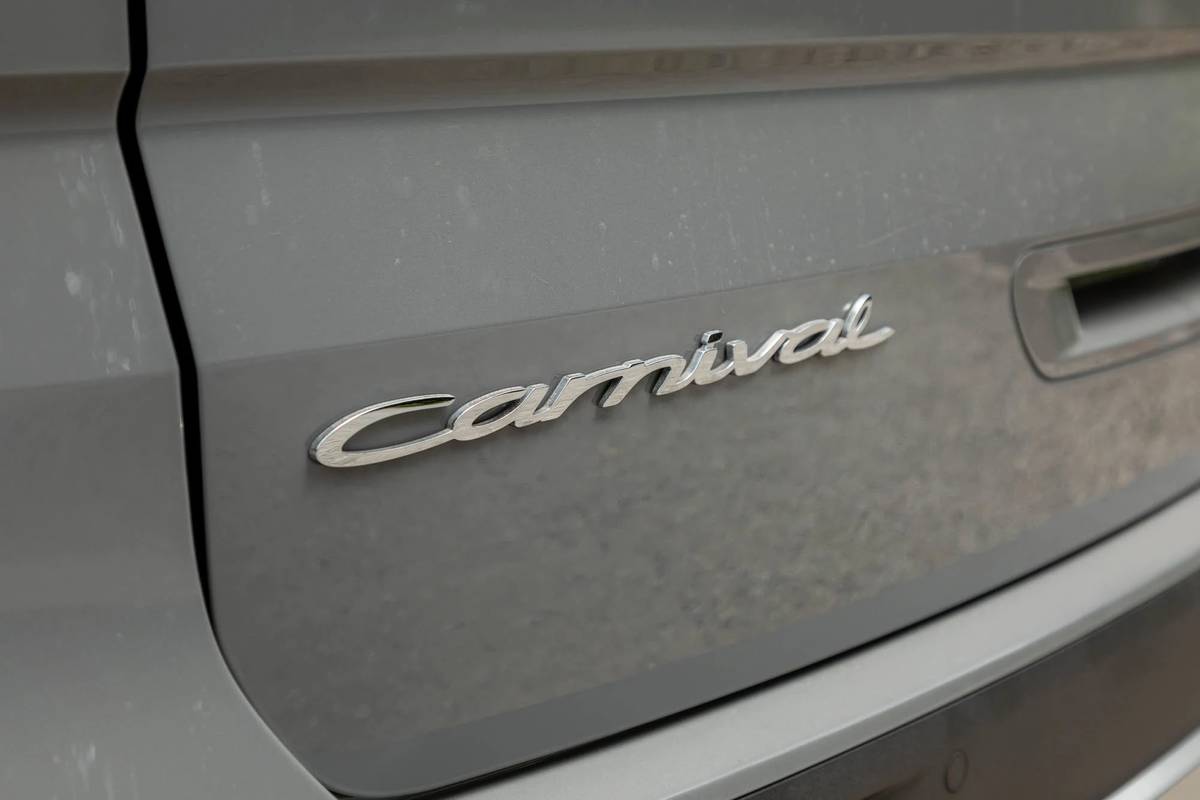

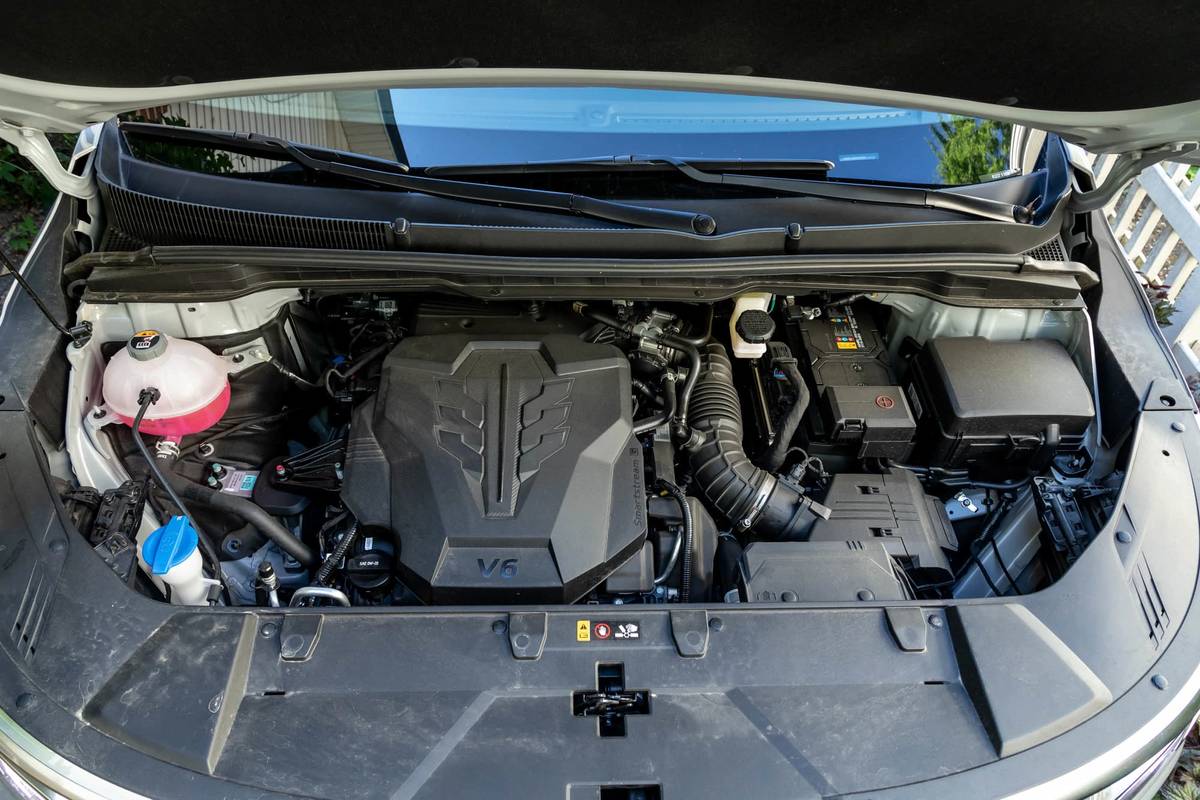

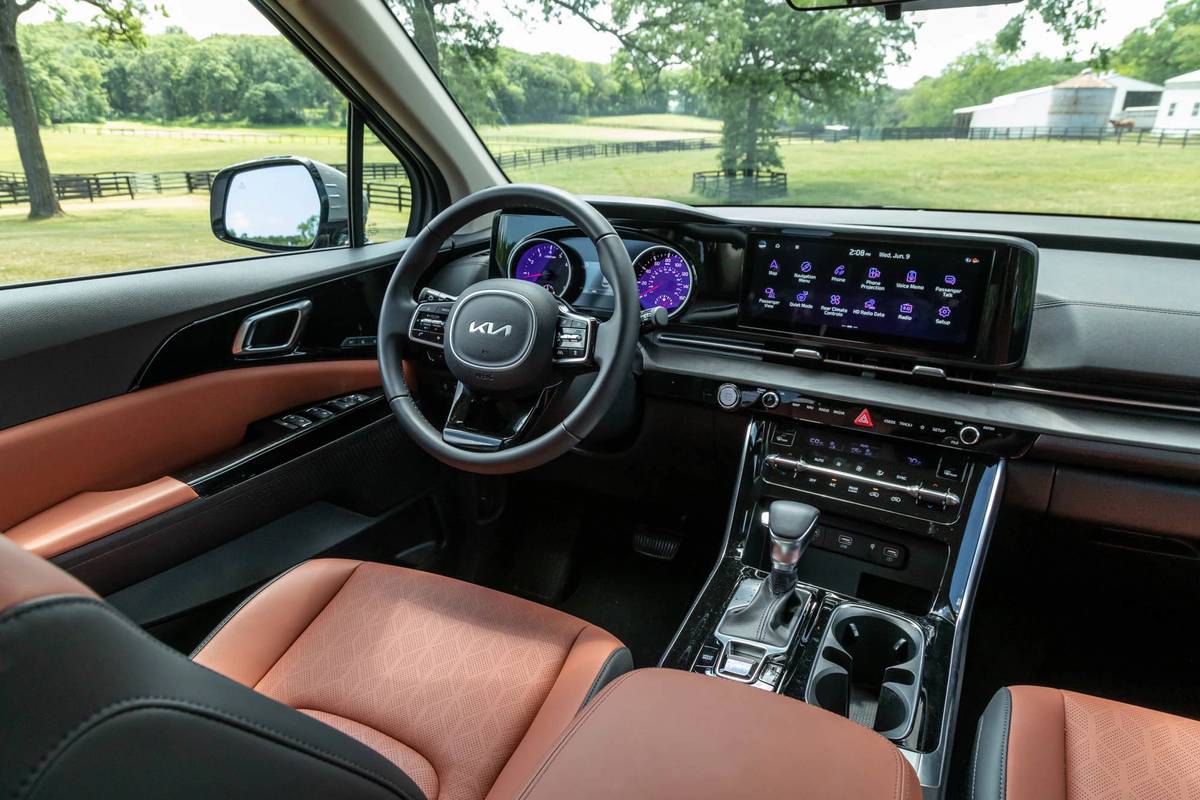
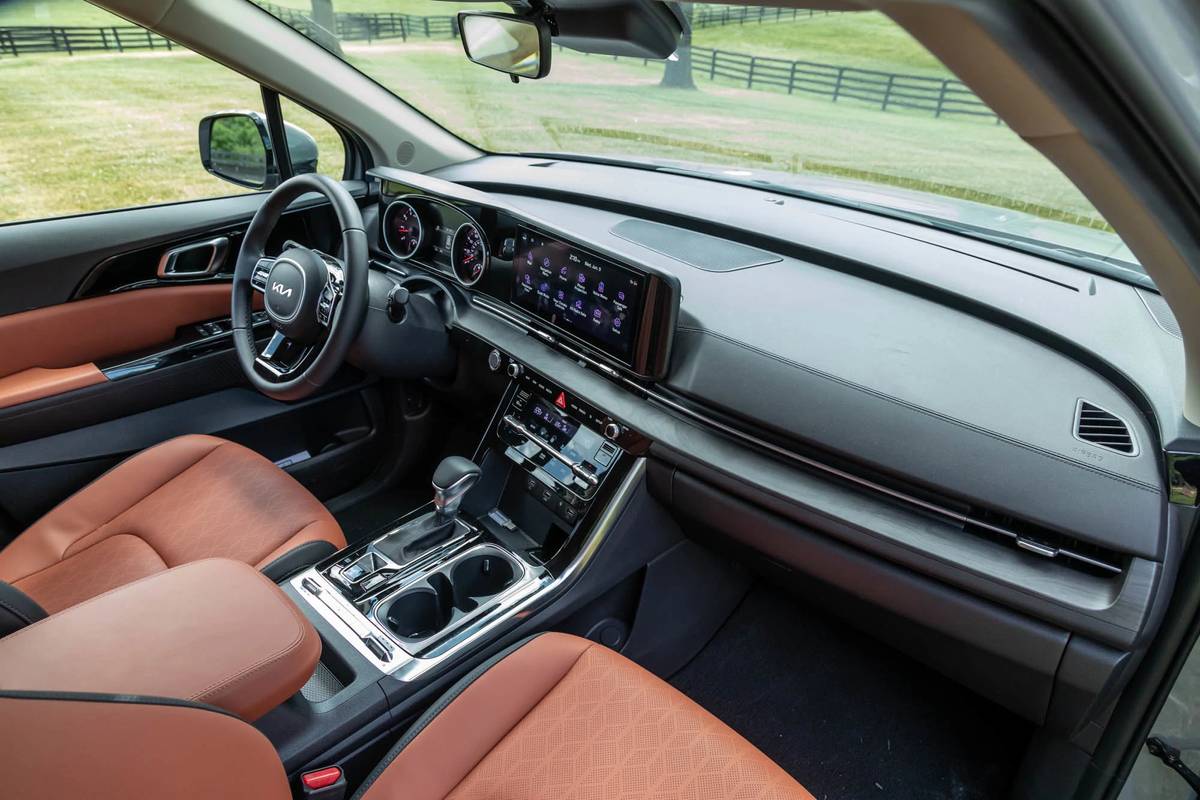
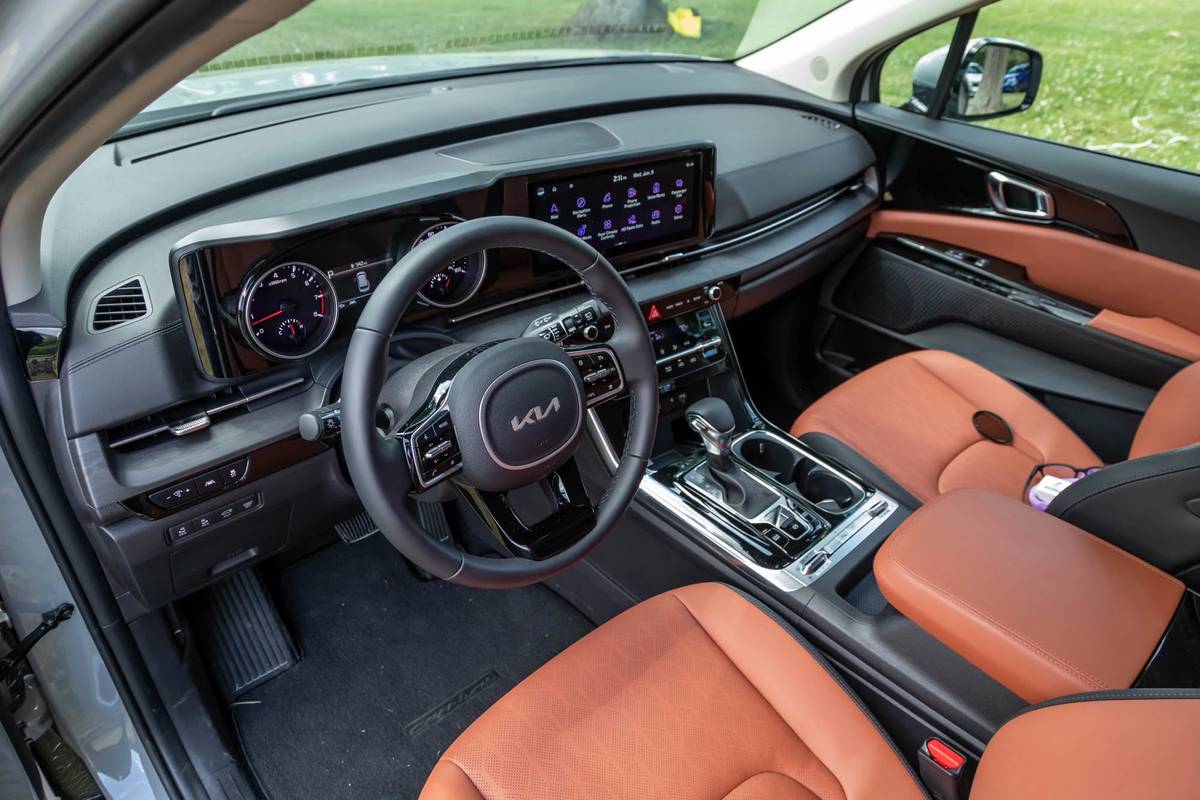
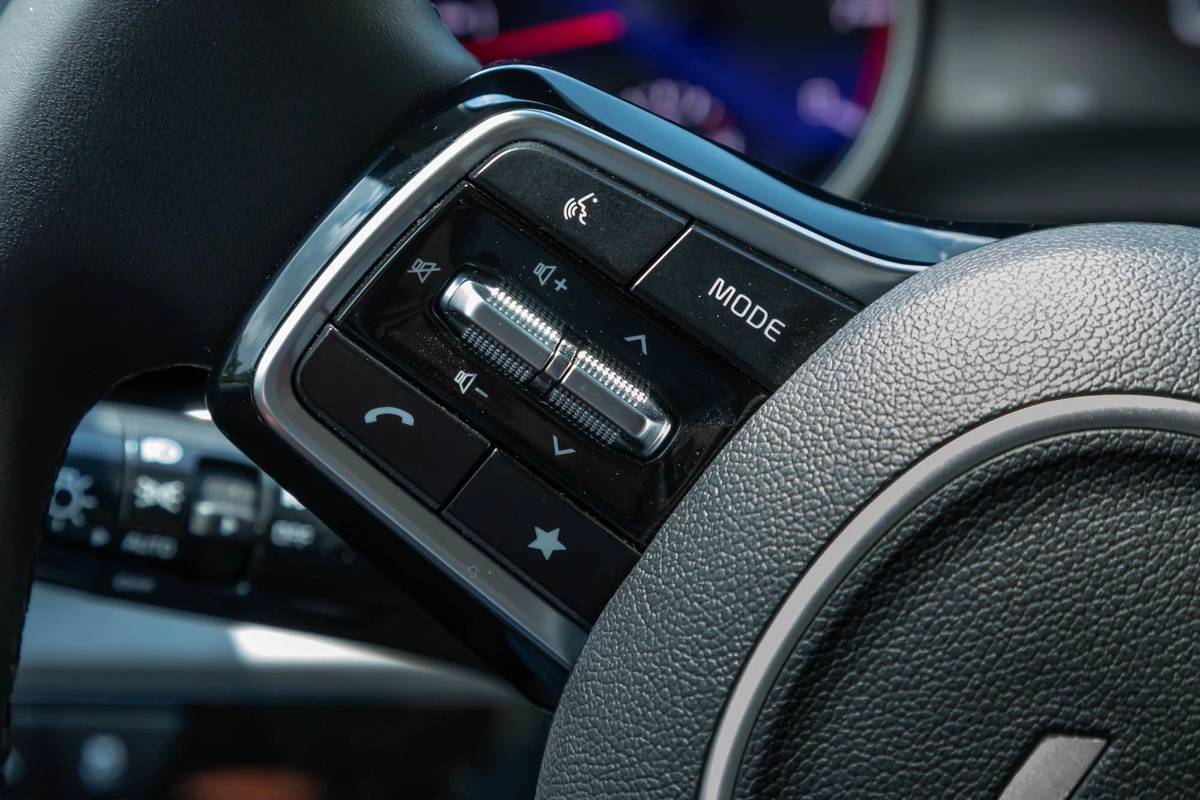





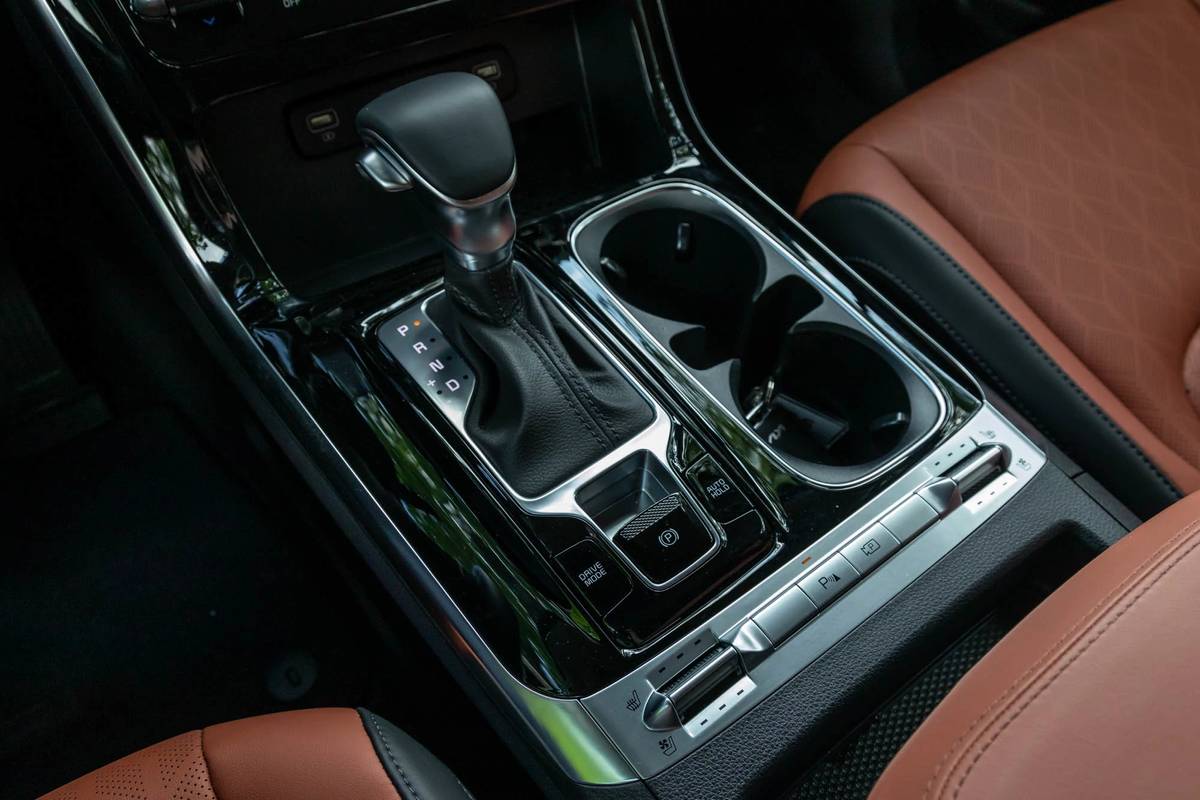

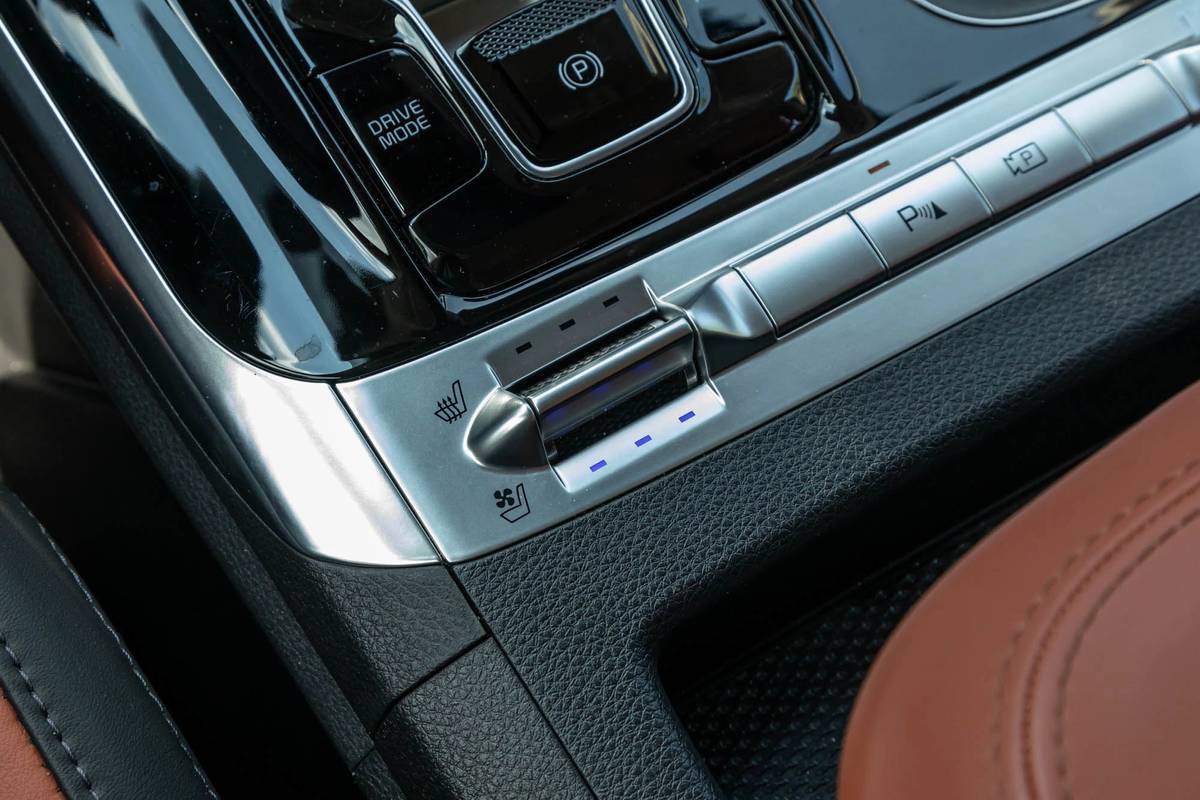

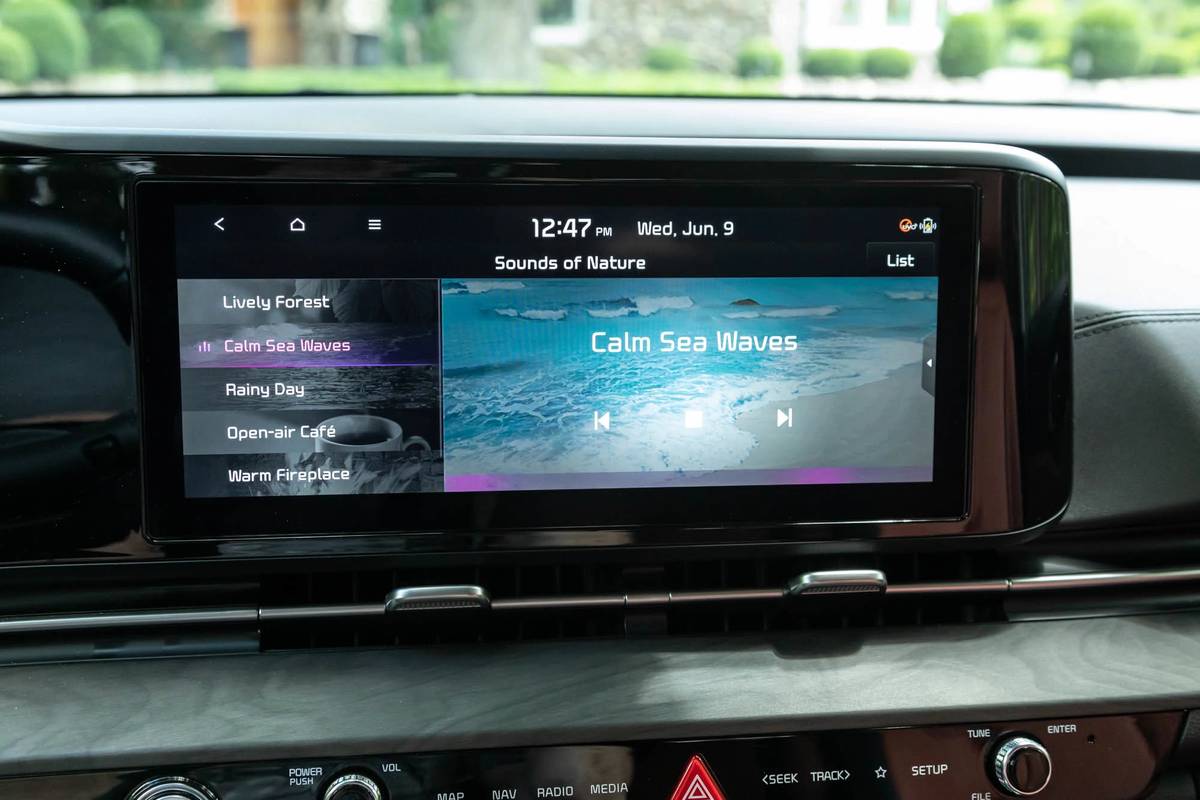
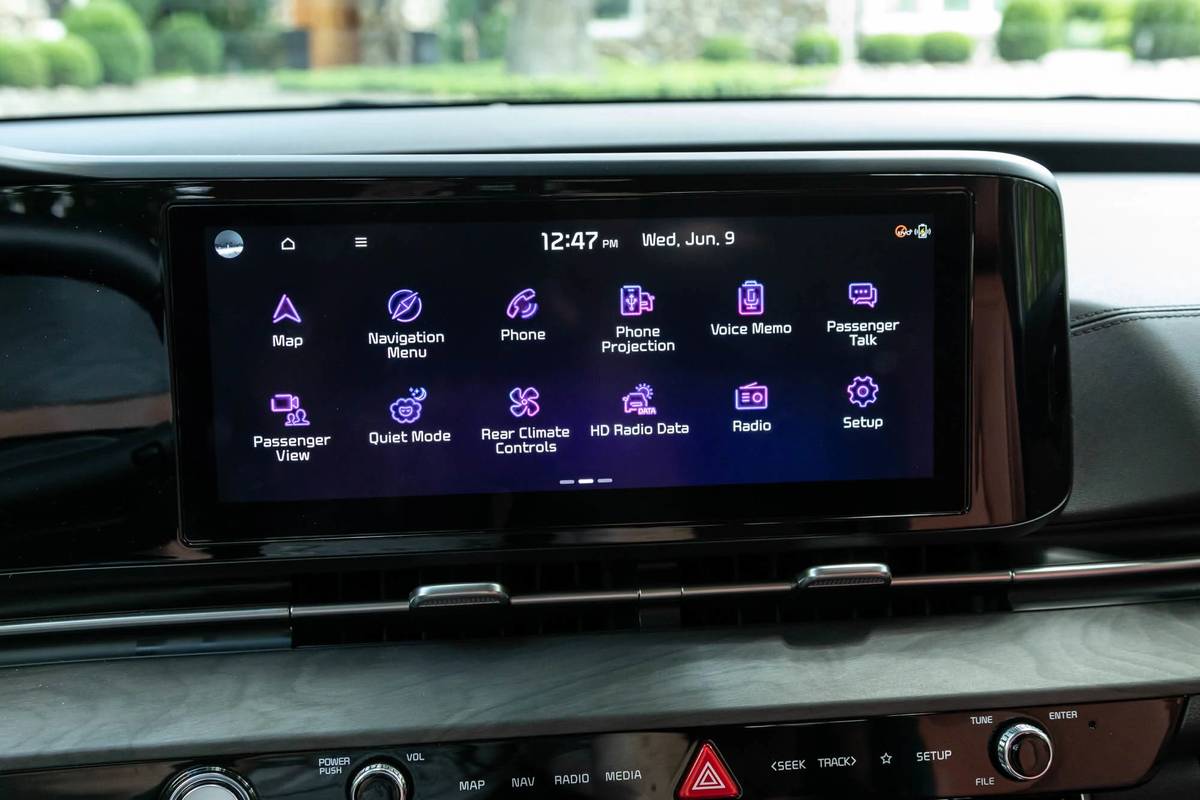
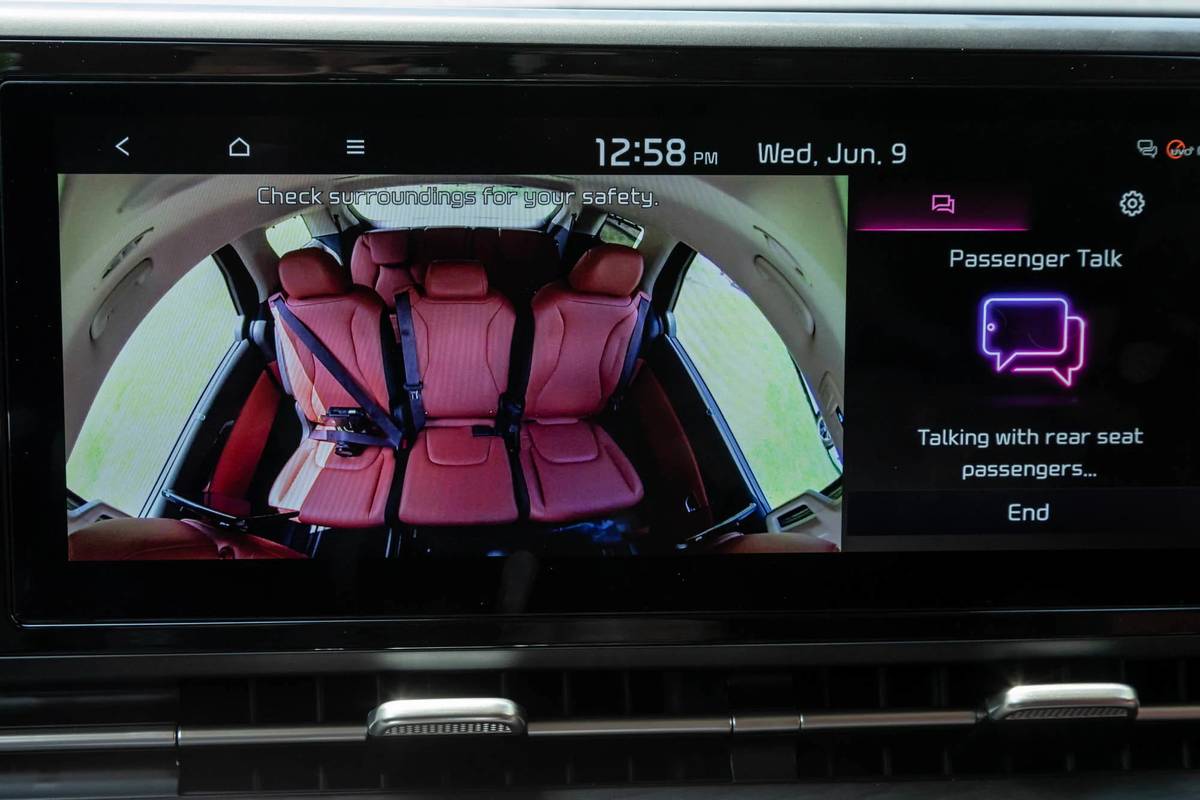

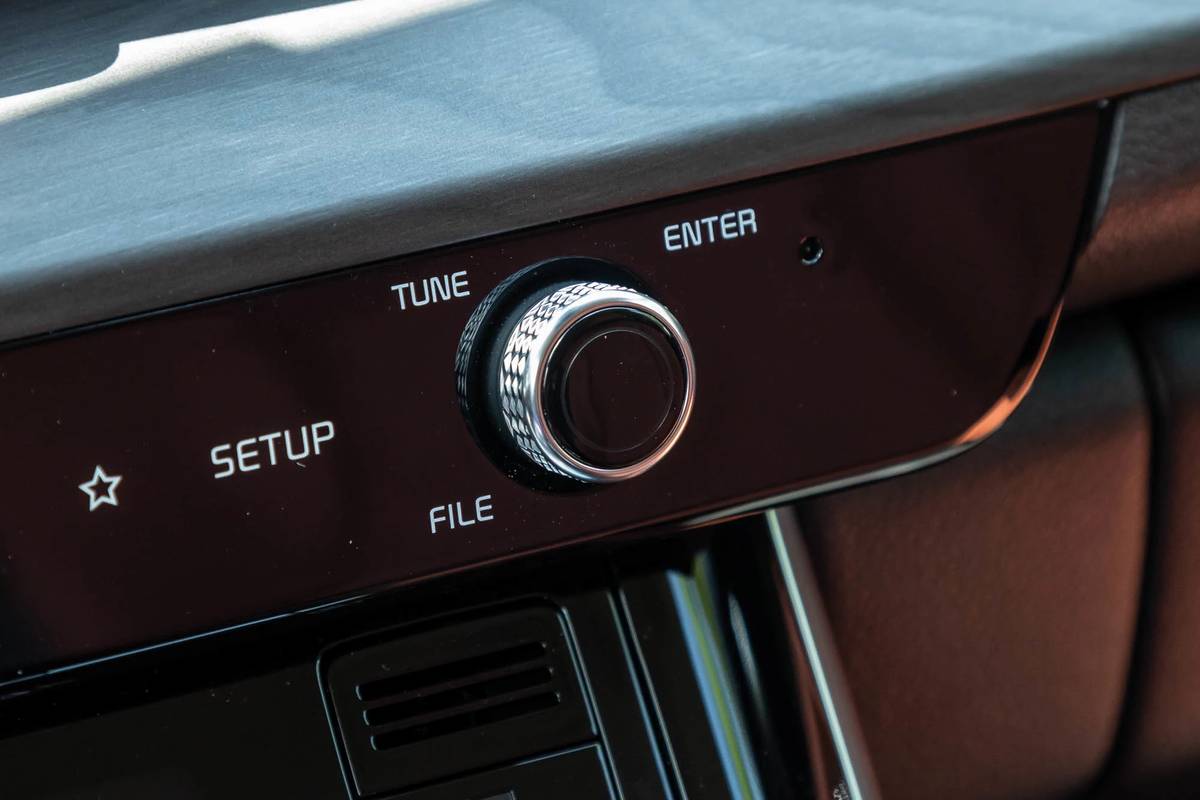
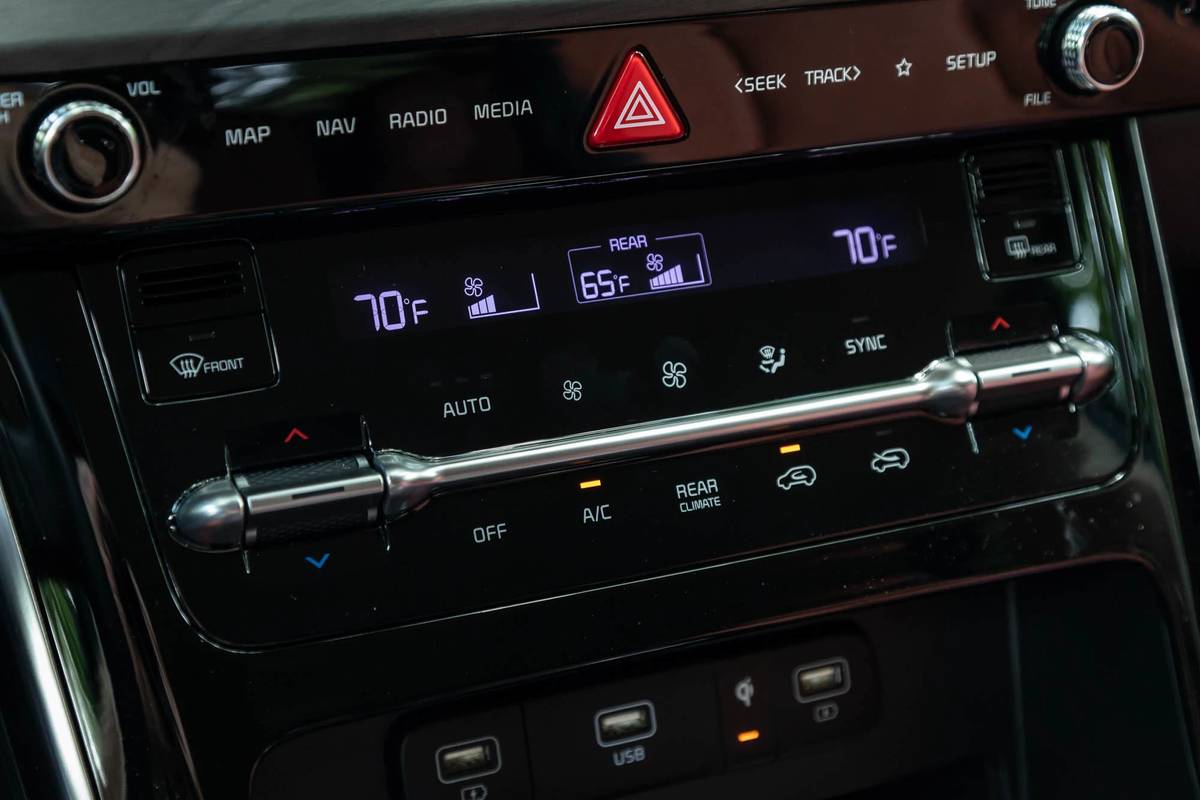
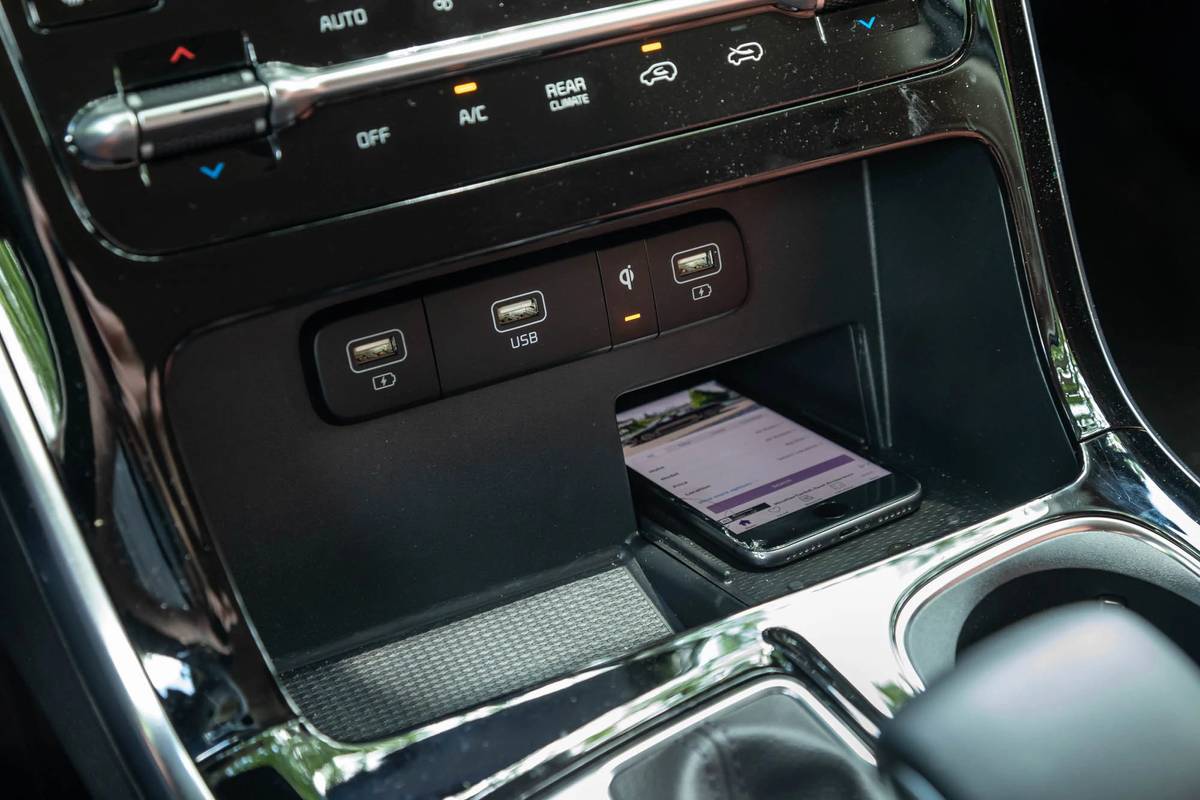
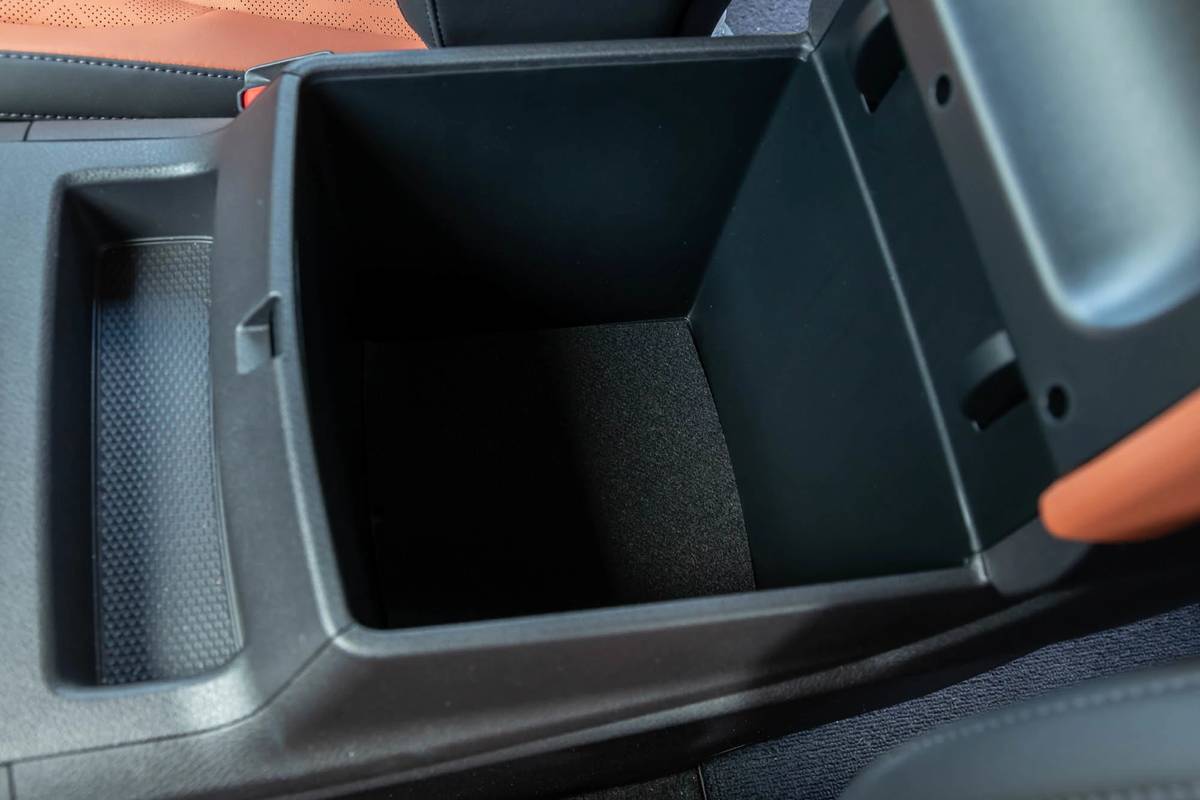
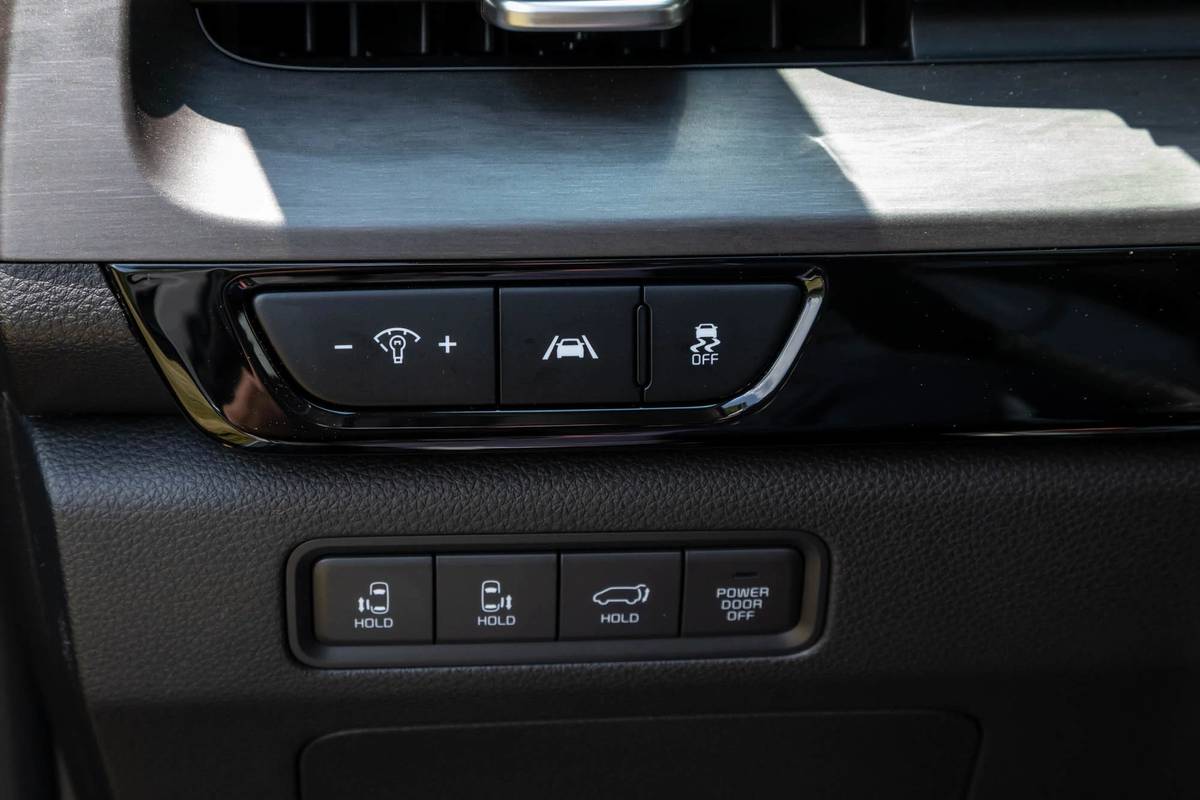
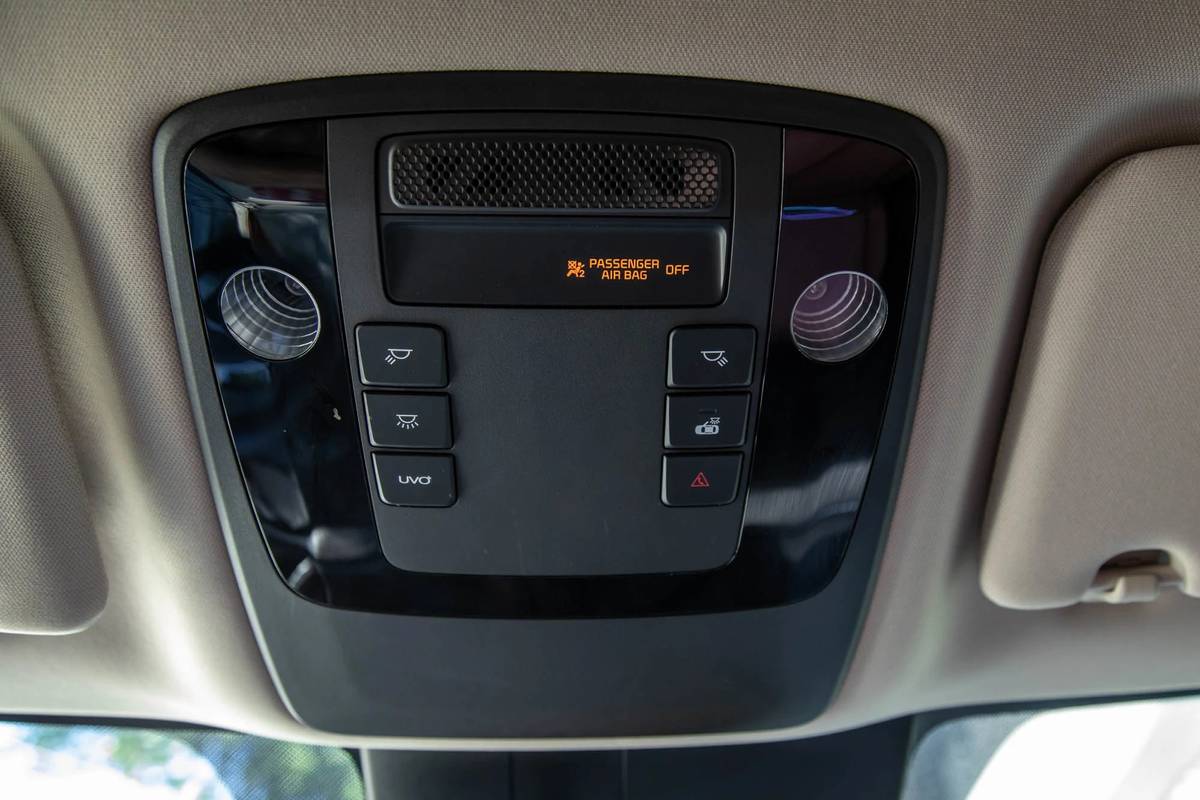
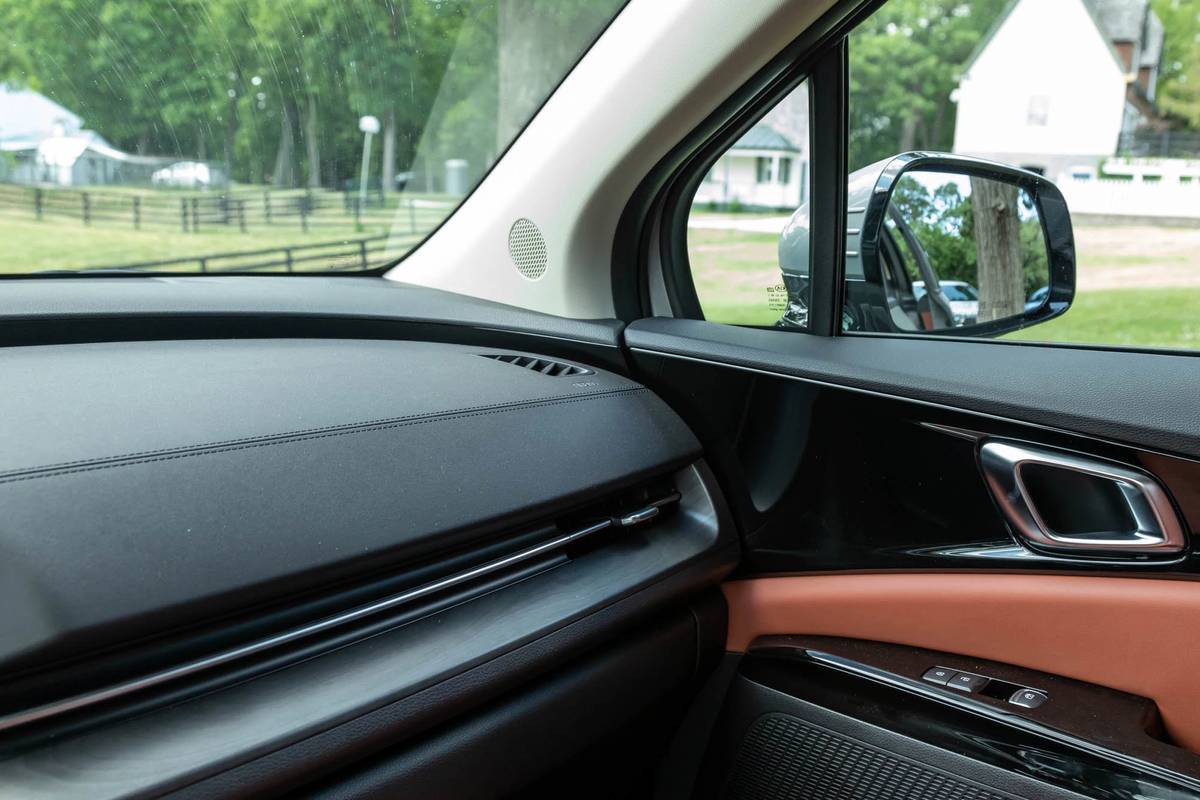
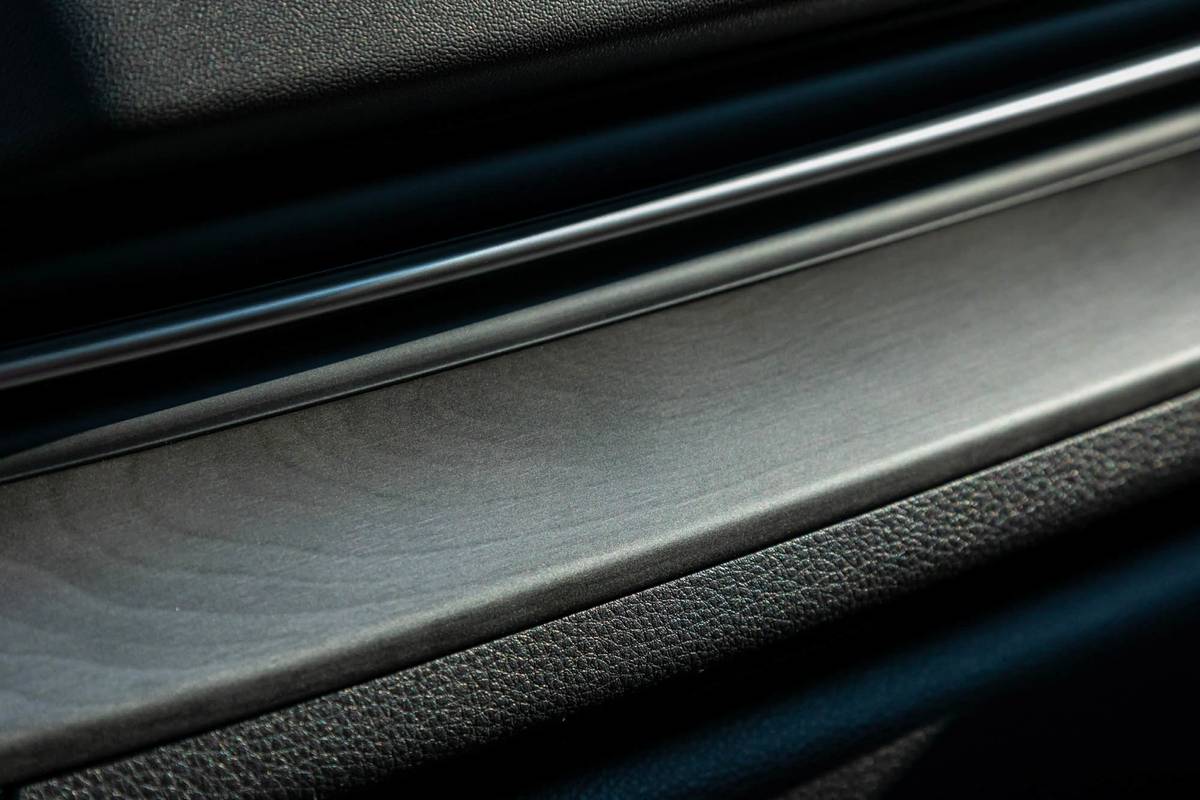
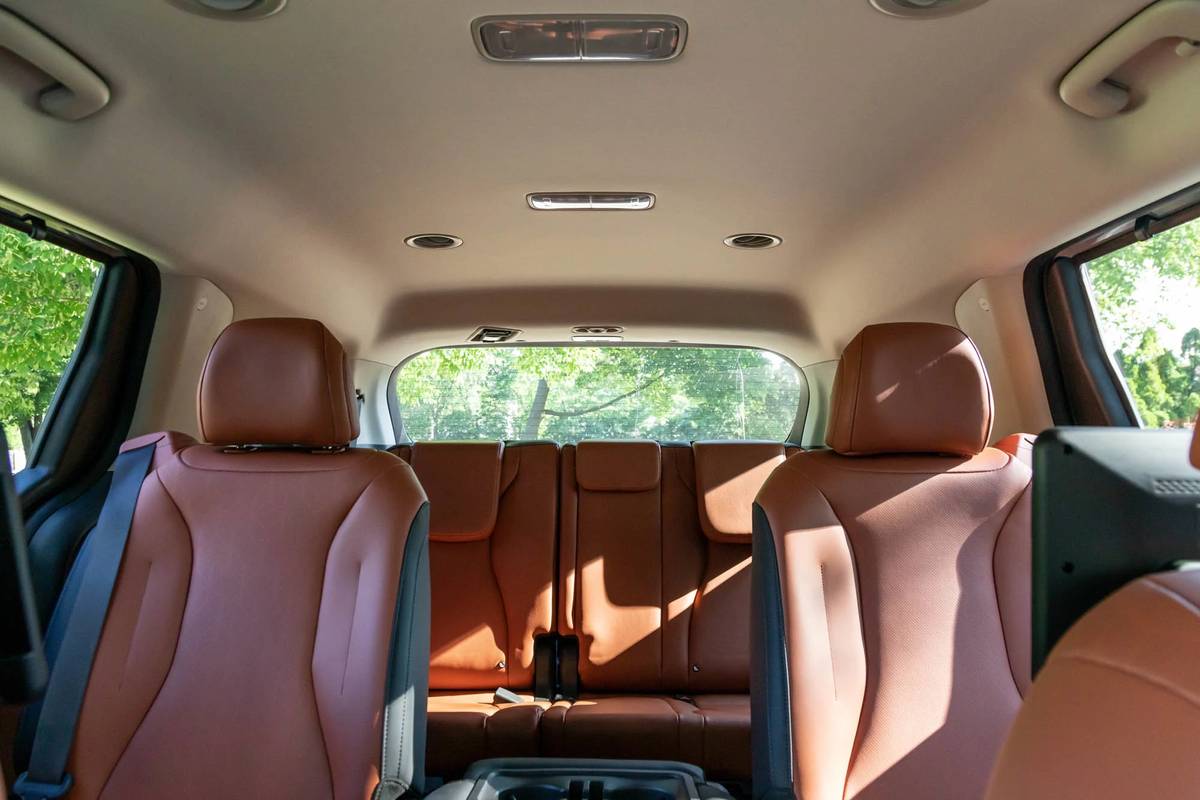
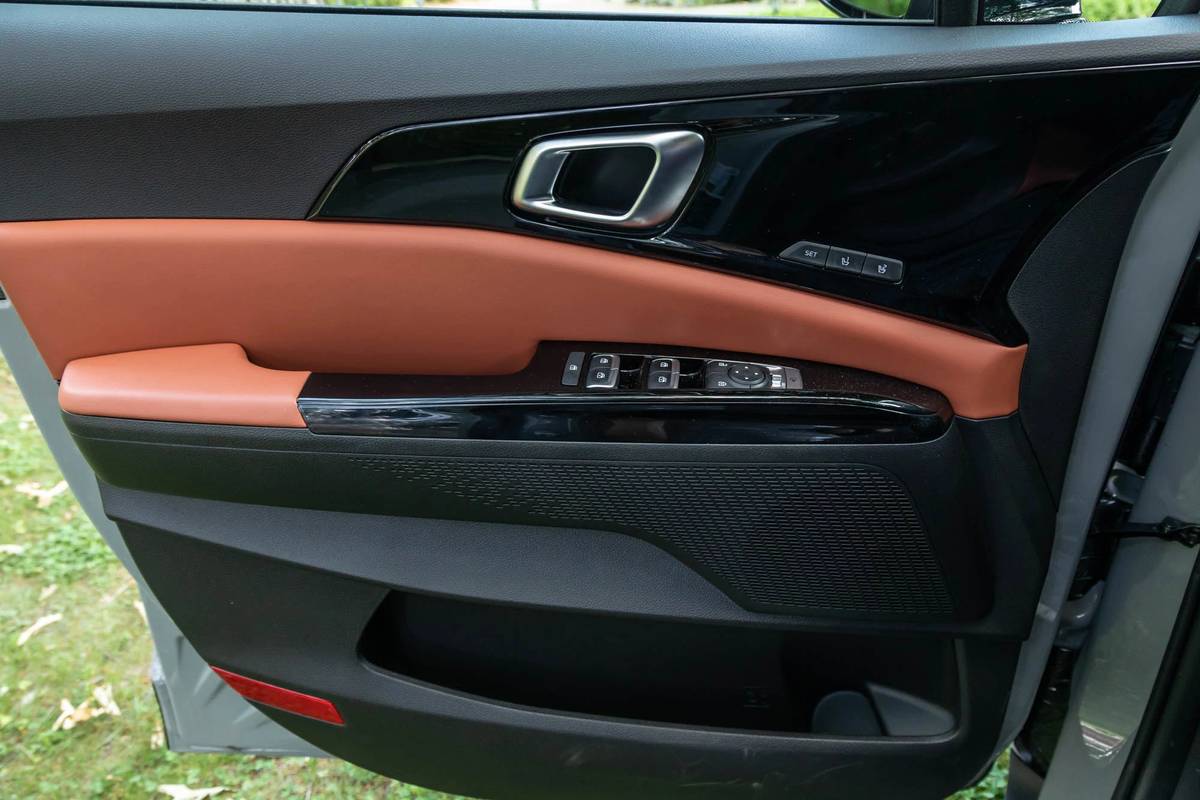
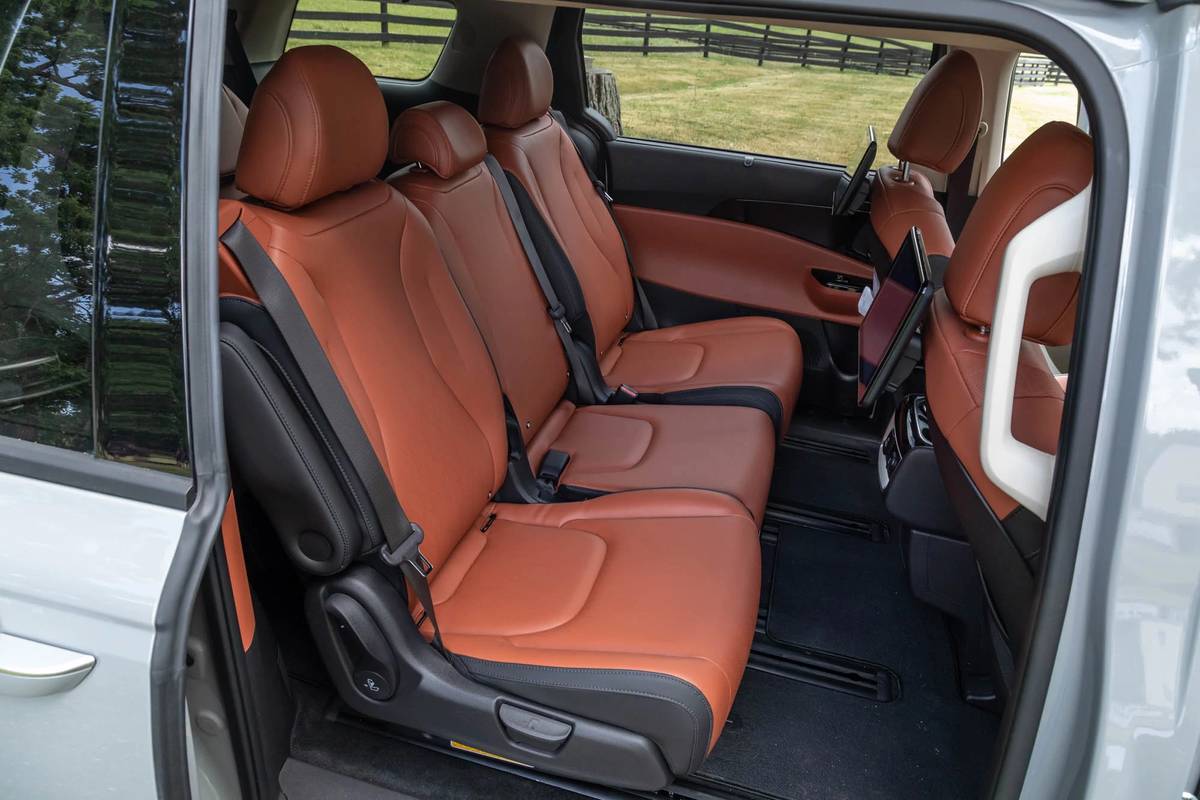
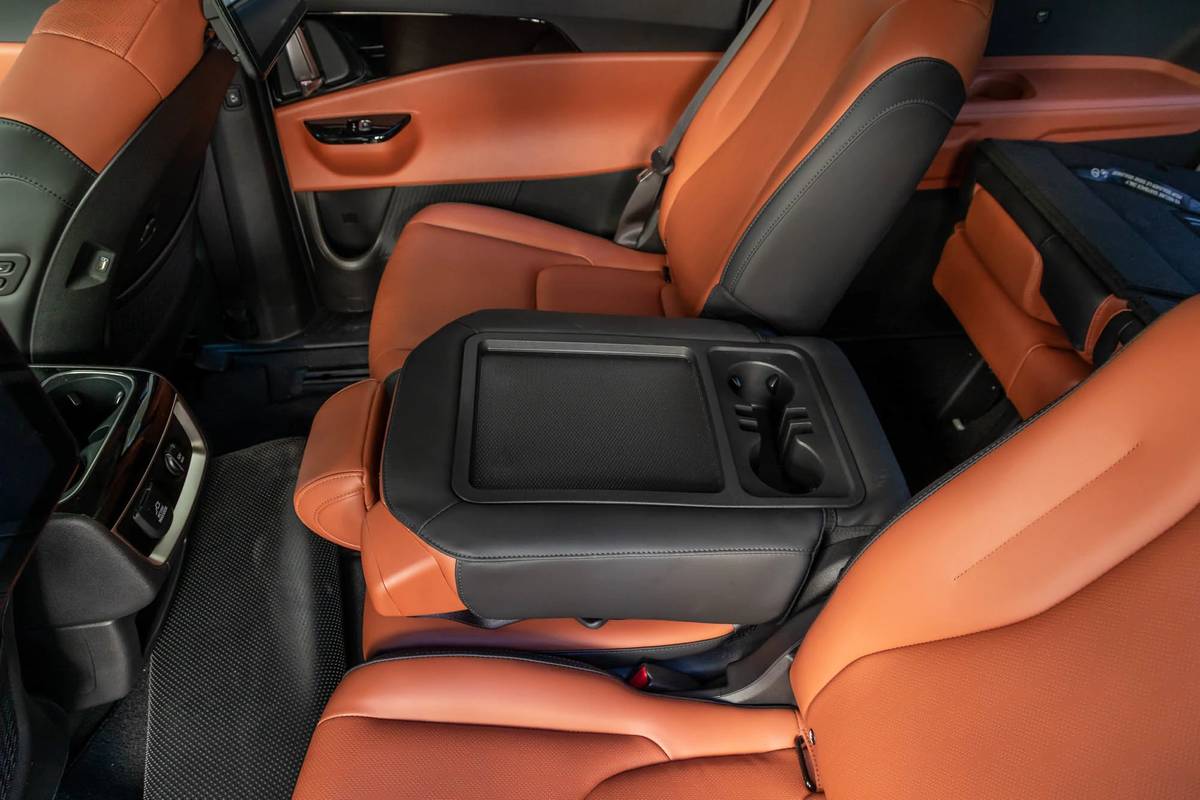
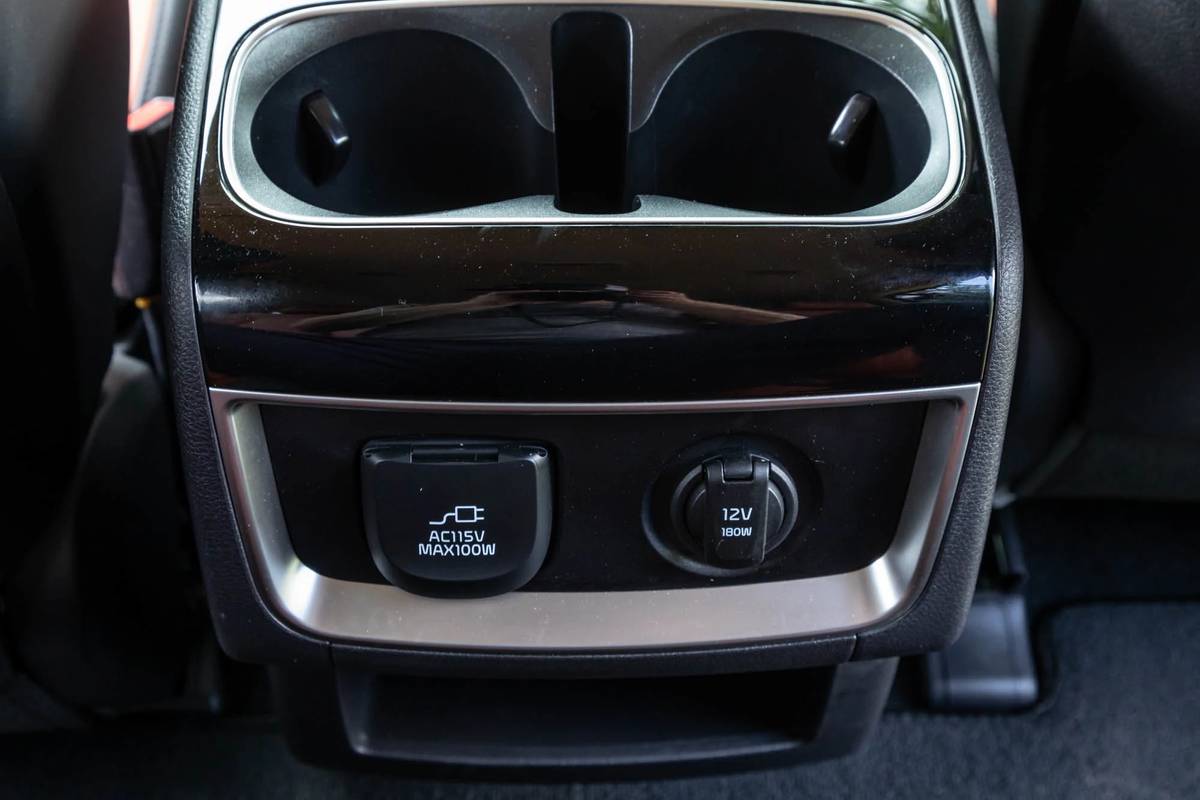

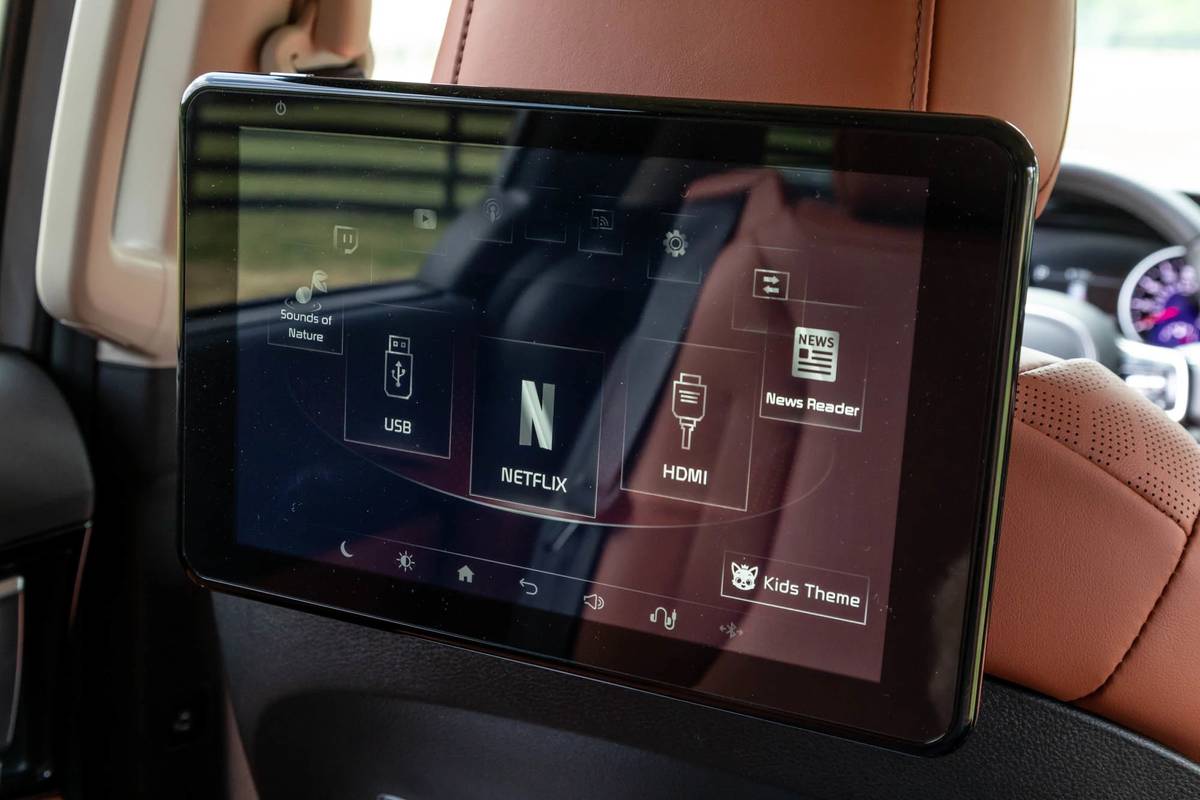

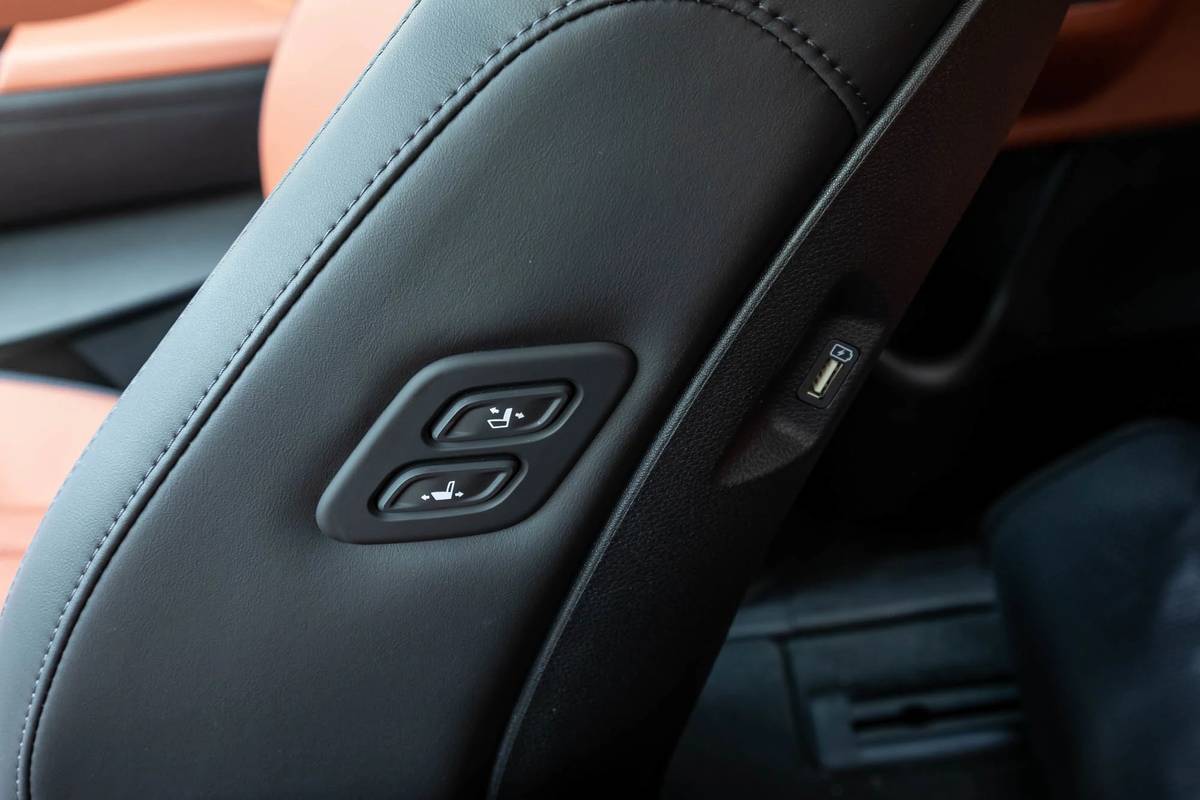
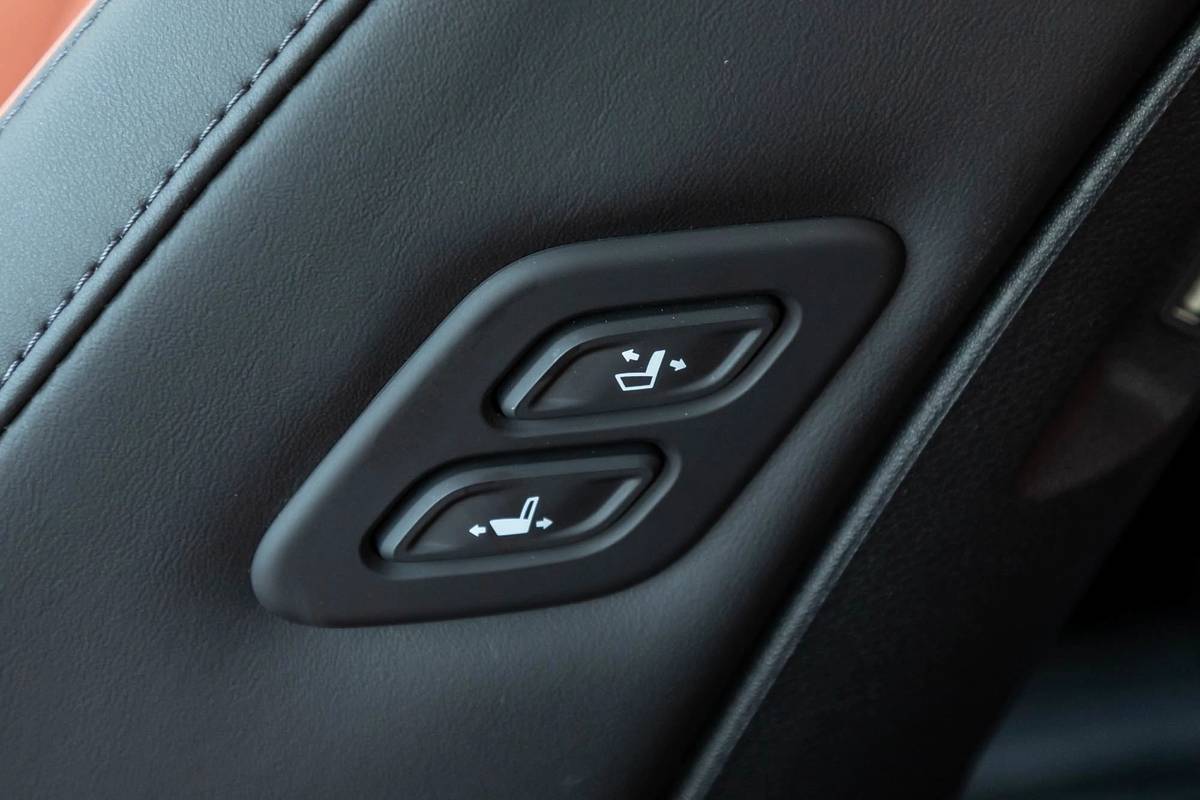
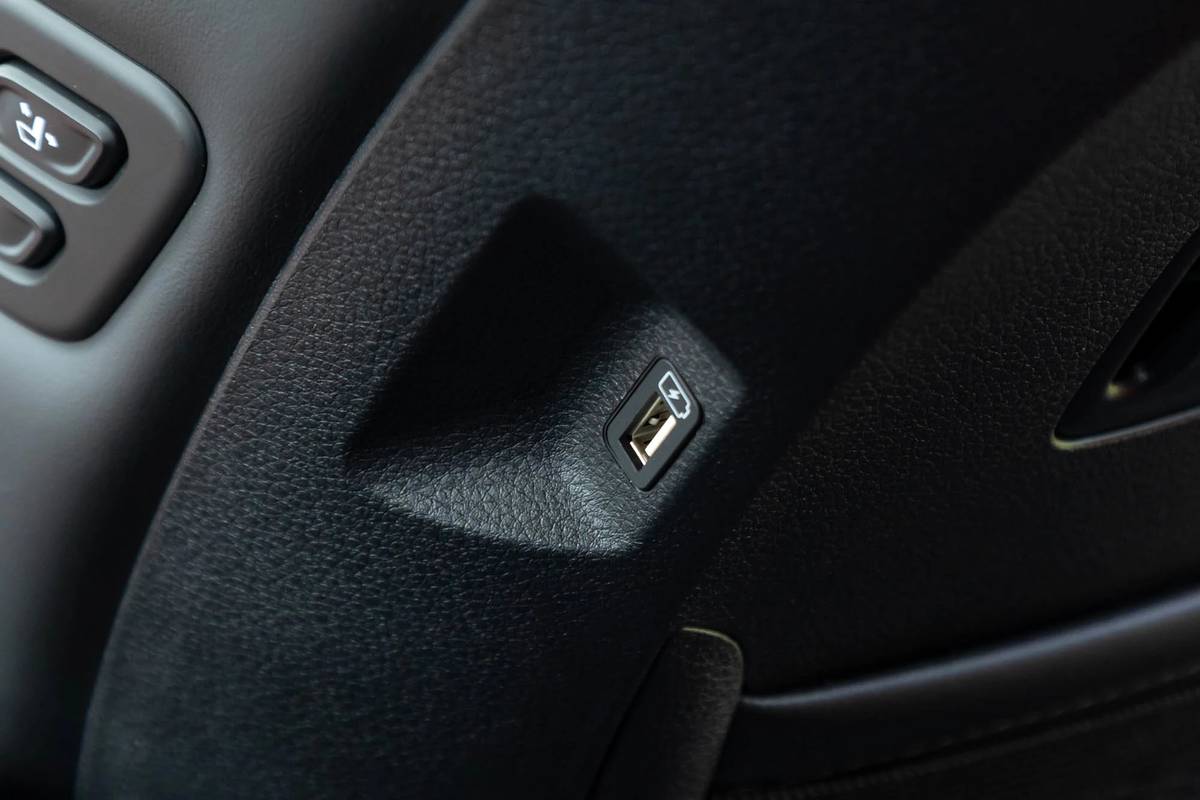






















































Our Test Vehicle
As-tested price: $42,770
Powertrain: 290-horsepower, 3.5-liter V-6 engine; eight-speed automatic transmission; front-wheel drive
Estimated city/highway/combined mpg: 19/26/22
A new name in the market, the 2022 Carnival replaces the Sedona, and the headline is one we’ve come to expect from Kia: You get a lot for a little. One thing you won’t get is optional all-wheel drive, but until recently, that was the norm among minivans. Strangely, while the Pacifica won seven judging categories, the Carnival won only four — but it lost just one category outright where the Pacifica lost four. In the end, it’s not about wins and losses alone but the underlying points, and the Kia racked up the most, beating the Pacifica by 12 points.
The Good
Value: “The Carnival is missing a few features some of the others have — most notably a heated steering wheel, moonroof and real leather seats — but for an as-tested price that’s nearly $8,000 below the group average, value’s a slam dunk.” Mays said. “Put another way, the Carnival is some 20% cheaper than the Sienna and Pacifica, and it’s certainly not 20% worse.” A key Carnival exclusive is the best warranty: five years/50,000 miles bumper-to-bumper and 10 years/100,000 miles on the powertrain versus three years/36,000 miles and five years/60,000 miles, respectively, for all three competitors.
Powertrain: “It’s quick from a stop, with easy and drama-free power delivery at midrange,” Geiger said. “It never felt underpowered, and the transmission is responsive and smooth.” Mays added, “At 50 mph, Kia’s eight-speed automatic kicks down in as little as half the time it takes the Odyssey’s 10-speed, and the V-6 revs energetically for easy passing power after that.”
Interior quality: “For a class not known for cabin quality, the Carnival plays a respectable hand,” Mays said. “The dashboard has well-fitted panels and precise, weighty controls, and Kia sprinkles a few soft-touch materials beyond the first row — a step above the retrograde plastics all three rivals stash back there.” Geiger agreed: “This cabin is handsome,” she said. “The faux leather is convincing, as is the fake wood trim. They combine for a classy design.”
All cameras: The ratings are close in the visibility judging category, but the Carnival came out on top in part thanks to its superior camera resolution and performance. “The backup camera resolution is by far the best, and it’s free of the feed delays we’ve increasingly observed in many cameras across the industry, which can fool drivers into thinking they’re farther from obstacles than they really are,” Mays said. The camera dominance carried into the cabin, as well: “The Carnival’s Cabin Camera is best in class — great resolution, zooming functionality and night vision,” Geiger said. “It also has a good camera angle compared with the others.”
Cargo: Rated just a point behind the first-ranked Pacifica, the Carnival had a few small advantages, including a smidge more cargo volume behind the second row and roughly 2.25 cubic feet more volume behind the third row by our measurements, the most in the test. Its second row also slides 12 inches where the Pacifica’s doesn’t at all — but the Chrysler edged it out on overall cargo points due to its versatile Stow ’n Go seats.
Child-seat accommodation: Ranking a close second to the top-rated Odyssey, the Carnival did a great job of fitting every type of child-safety seat in its second row, earning straight A’s where the Honda had one B for the booster seat. It’s the third row where the Kia fell behind, with three B’s and a C, the latter for anchor issues with the forward-facing convertible car seat’s installation. The Odyssey’s third row got an A for this seat and the Latch rating, plus two B grades.
The Bad
In-cabin storage: “The Carnival doesn’t do cabin storage very well,” Geiger said of its one category loss. “There’s a big center console box, but it’s not divided like the others, which I find helpful. The front seats don’t have enough small storage spaces like the others have. There’s an open area ahead of the shifter and a little one in the knee area, but that’s about it. Second-row storage is just OK: shallow seatback pockets and no other device storage, but ample cupholders. The third row is worse: no device storage, no seatback pockets.”
Front seats: Rated second to last, “The front seats feel flatter and firmer than some others,” Geiger said. The Carnival also had the only manually adjusted and unheated steering wheel in the test.
Limited emergency braking: The Carnival lost a point the other vans earned because its automatic emergency braking operates at low but not highway speeds, as stipulated by the owner’s manual.
Touch sensitivity: The Carnival rated just above average among the group for user interface, but Mays expected better. “Affiliated automakers Hyundai and Kia have long been known for intuitive controls, but the Carnival strays disconcertingly,” he said. “Touch-sensitive buttons have enveloped much of the dashboard, taking the place of physical controls for often-used climate and multimedia keys. Let’s hope this is a mere lapse in judgement, not a precursor to Hyundai-Kia’s descent into the button-free woods.”
Research the 2022 Kia Carnival | Search Inventory | Car Seat Check
Related Video:
Cars.com’s Editorial department is your source for automotive news and reviews. In line with Cars.com’s long-standing ethics policy, editors and reviewers don’t accept gifts or free trips from automakers. The Editorial department is independent of Cars.com’s advertising, sales and sponsored content departments.

Former Executive Editor Joe Wiesenfelder, a Cars.com launch veteran, led the car evaluation effort. He owns a 1984 Mercedes 300D and a 2002 Mazda Miata SE.
Featured stories

































































